Statistically, the best driver in the history of F1, the best Ferrari driver ever, the miracle worker – Mr. Michael Schumacher.
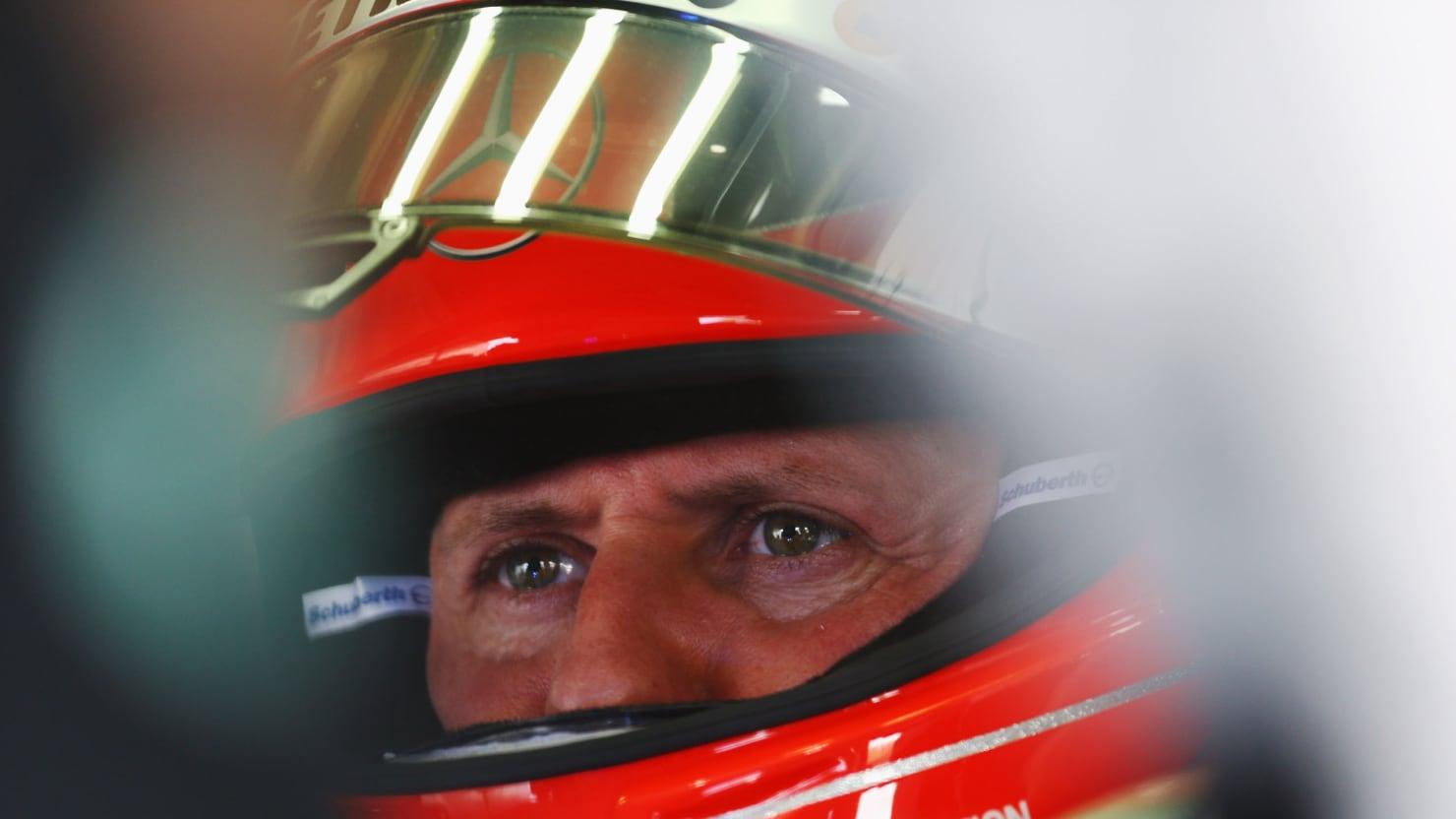
The best of all pace. The German devotion of bygone days, an unbeatable ability for grouping, a big Italian hearth. And an alien body, like anyone ever in motorsports races. Hard to imagine a better driver than Schumacher from the Ferrari days. Maybe even for the best Senna.
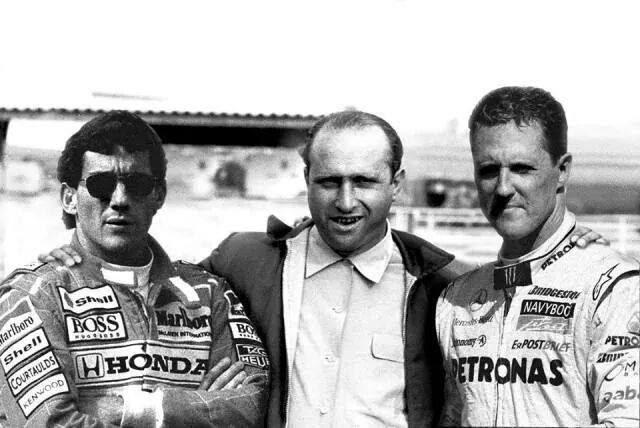
Ayrton Senna, Juan Manuel Fangio and Michael Schumacher.
The two greatest champions that the Formula 1 has ever known. Saying who of the two has been the best depends on personal taste and maybe it’s not important. Let us be glad to have seen both of them driving. Schumacher pushed the car to the limit and made it stay on it with infinite, strenuous steering corrections, for the whole race. No other driver could, except for short, tiring periods of the GP. Or over one lap or an overtake, in which the instinct, class and the risk appetite of the Crusader Senna were unmatched. Michael Schumacher was a machine that crushed opponents both physically and mentally. And he set the car like nobody, to win the race, not over one lap. Found rhythm, it was a matter of time. Michael took no prisoners, he won. If you also drive Ferrari in the best time of its history, with the best technicians, then you become a king, with a whole country at your feet. Then it’s too much, even for Michael. This way you can do only in Heaven.
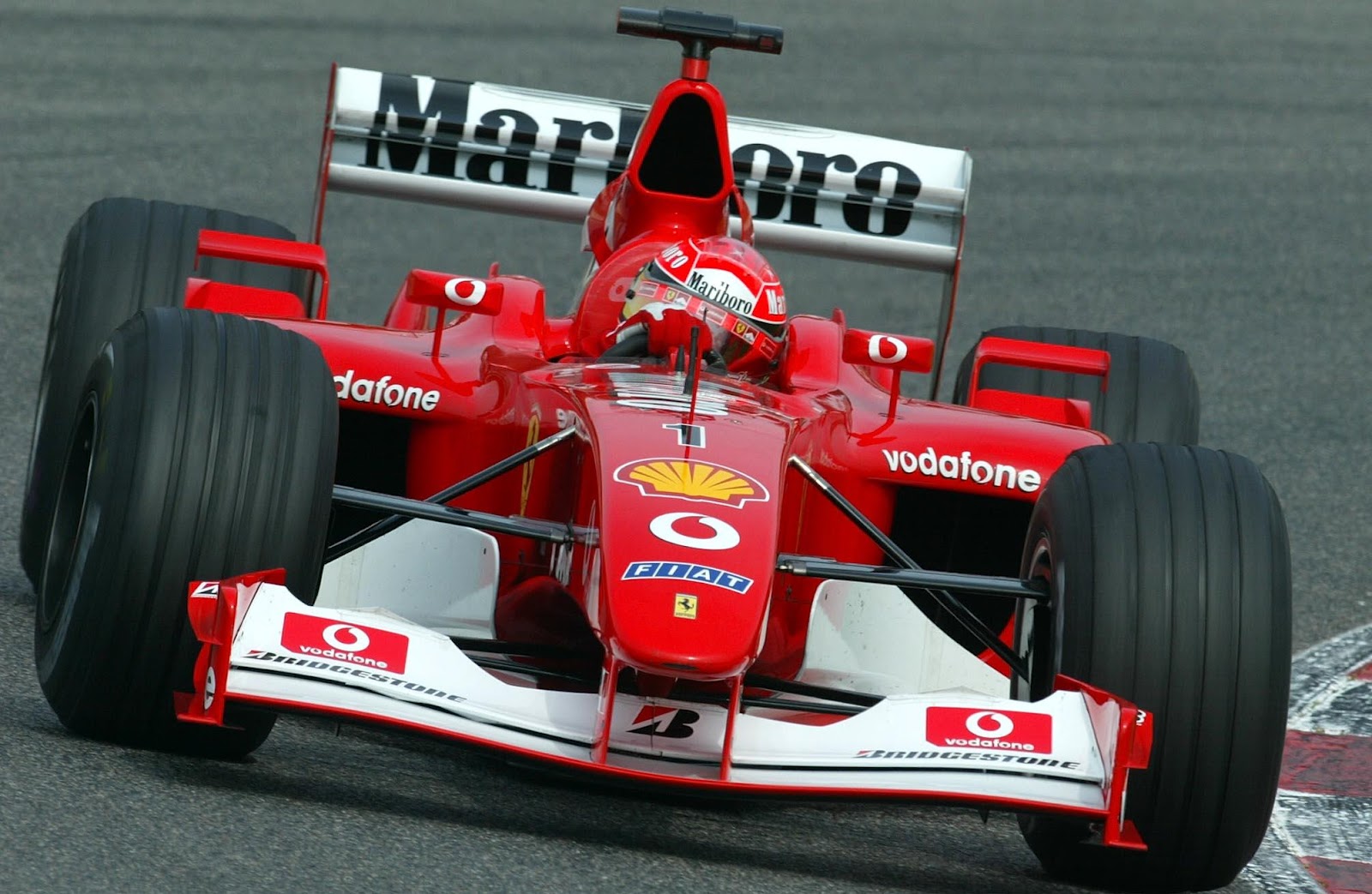
Michael Schumacher in his Ferrari at Spanish GP on 28 April 2002.
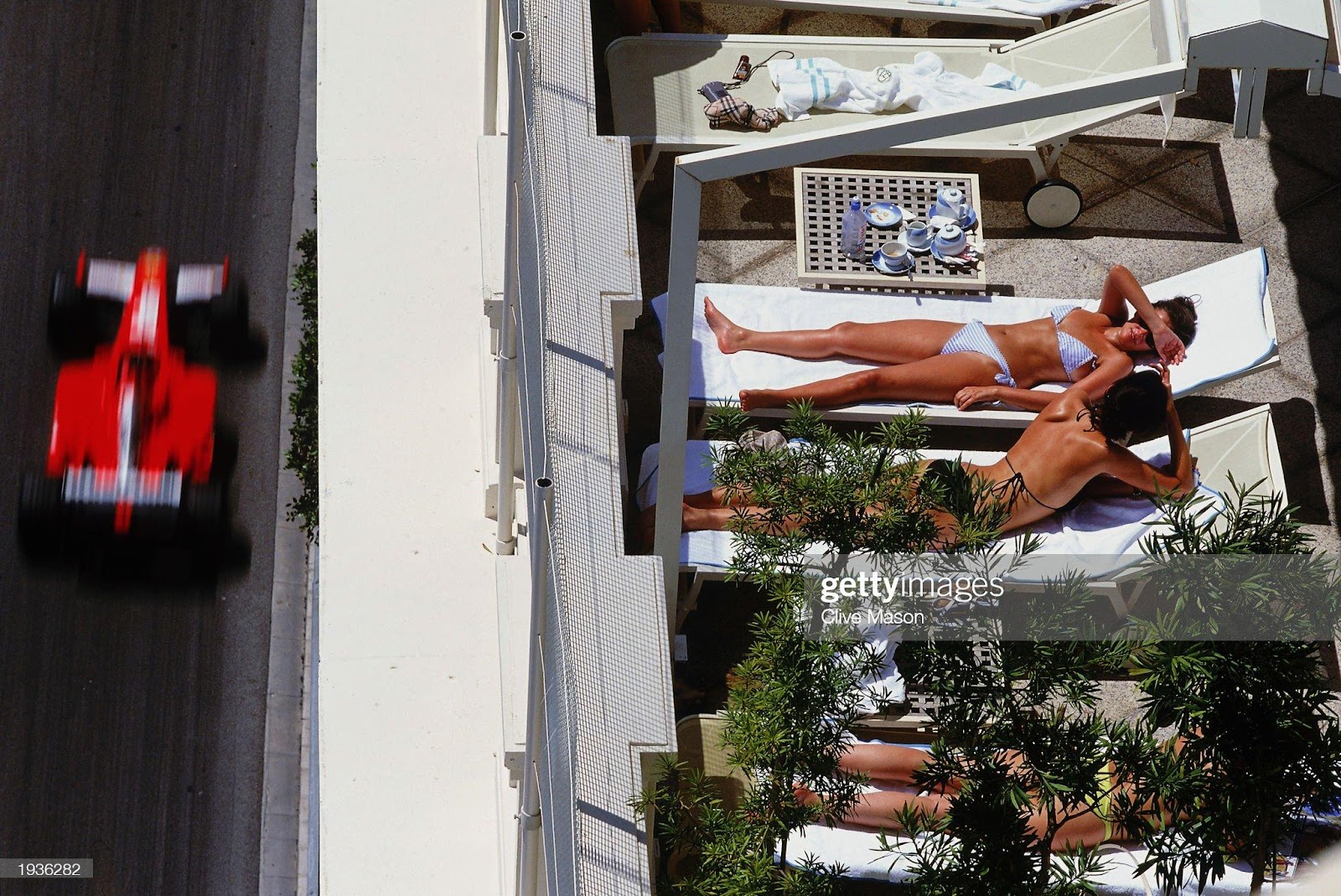
Ladies sunbathe as Michael Schumacher, Ferrari, drives past during the Monaco Formula One Grand Prix held on May 26, 2002 in Monte Carlo, Monaco. Photo by Clive Mason/Getty Images.
Him and Ferrari were as one. For the team, he was a myth. He was one of them, one of the guys. When he was racing, the world came to a stop, and he won, he won, and he won again. There won’t be others like him. He is the most loved and respected, a true idol. So lucky and so unlucky. Destiny took its toll. You can’t fly this high, you can’t win for ever, even Michael and Ayrton, Gods of speed.
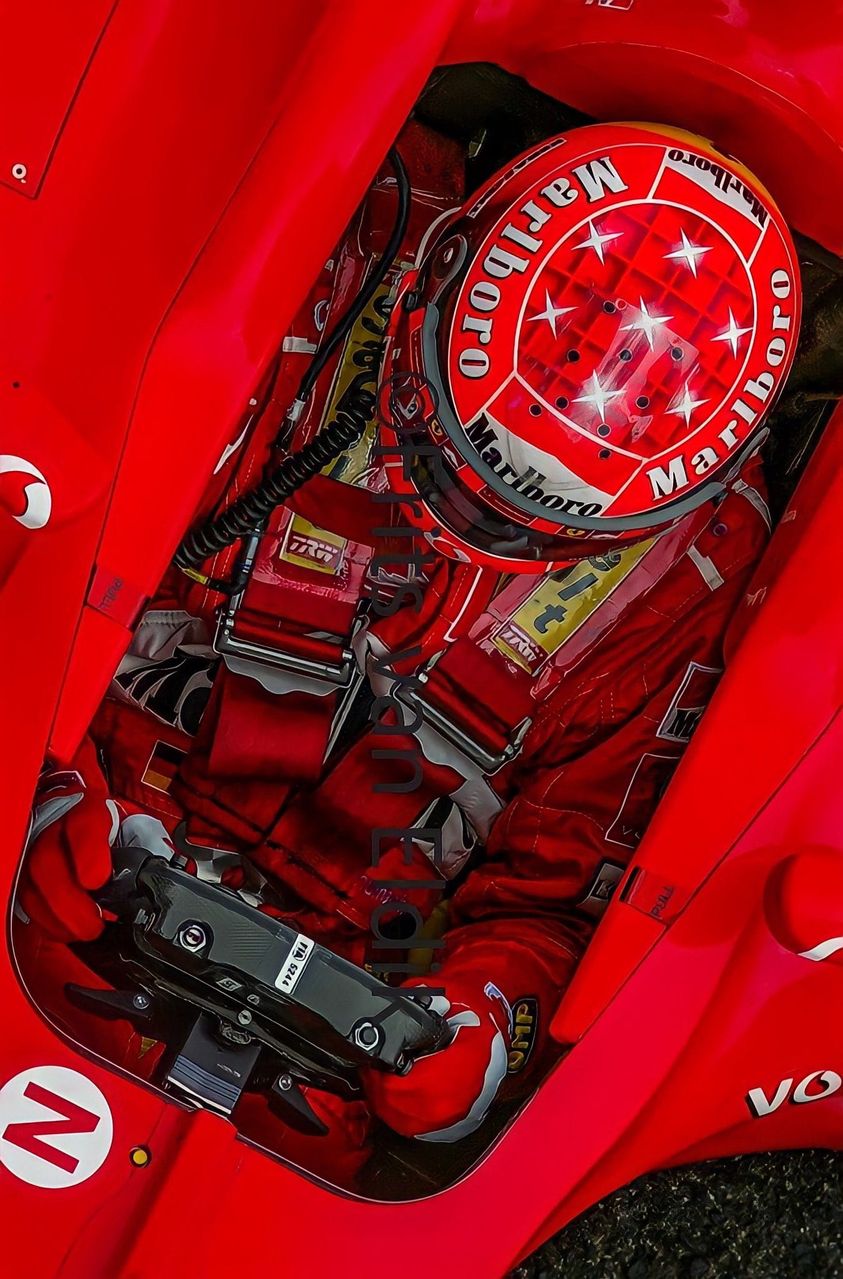
Michael Schumacher's monumental achievements came about through a perfect storm of an exceptionally talented and hard-working driver, ground-breaking technical achievement, a bottomless pit of money and a ruthless management. Schumacher at his peak would have been a challenge for the best of any era. His combination of blistering pace and metronomic consistency was a potent mix. His particular excellence was his ability to operate at his peak on every lap, of every race, for years at a time. Schumi was also a rain master, winning 17 of the 30 wet races contested. Most experts judge a driver’s driving ability by watching him in the wet because it takes certain finesse and skill to control a car on those conditions.
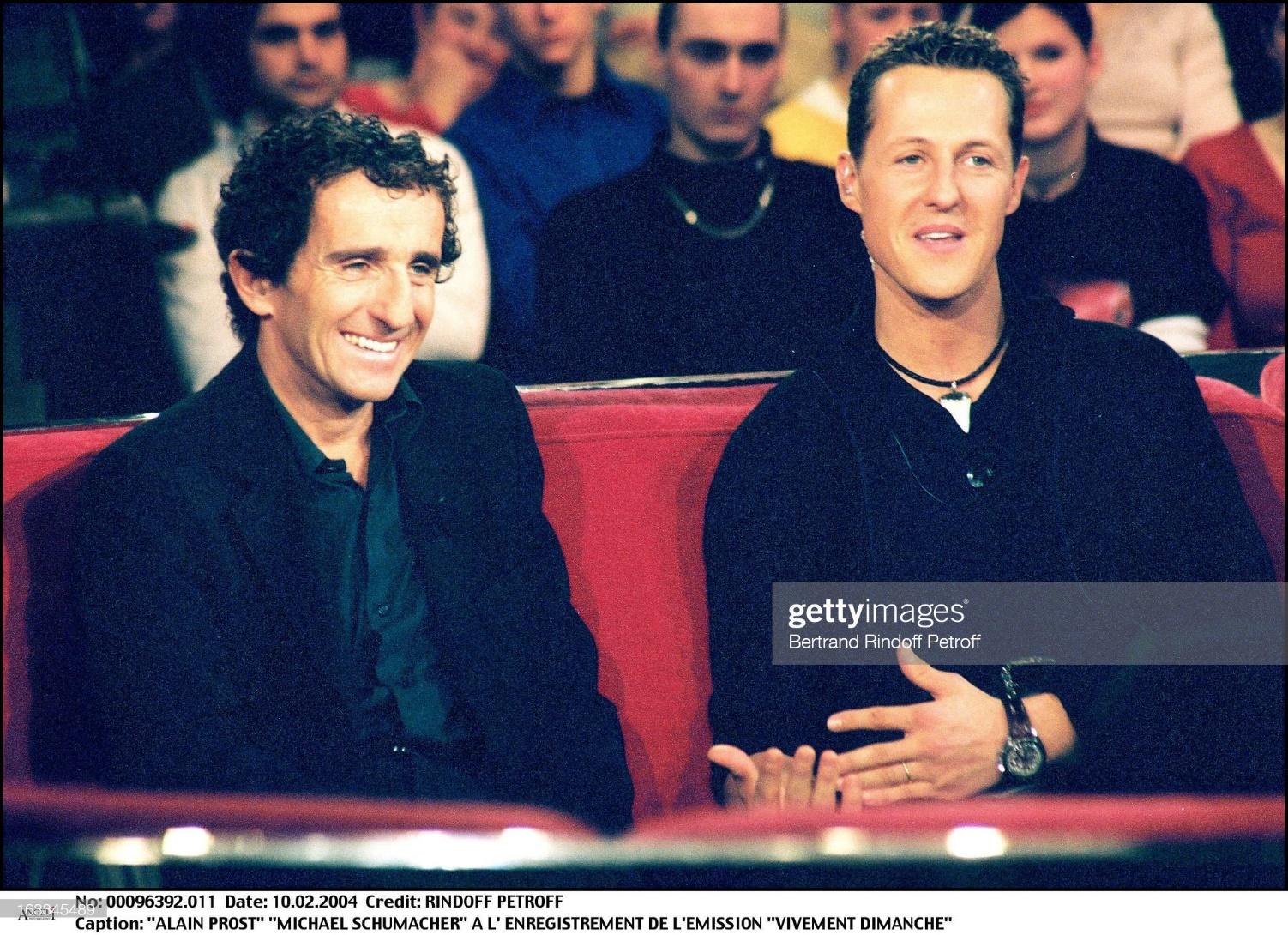 Alain Prost and Michael Schumacher at the recording session of the TV show "Vivement Dimanche" (Roll on Sunday) on February 10, 2004. Photo by Bertrand Rindoff Petroff/Getty Images.
Alain Prost and Michael Schumacher at the recording session of the TV show "Vivement Dimanche" (Roll on Sunday) on February 10, 2004. Photo by Bertrand Rindoff Petroff/Getty Images.
“I’m Senna’s equal, I’m sure last year I’d have been better than Prost, in the same car. I’m not afraid of comparisons indeed. In karting and even in single-seater, I used to have fun changing car to see who was the fastest. In F1 this is not possible, but I don’t think Senna would be faster than me in the same car.” Michael Schumacher
“I've always believed that you should never, ever give up and you should always keep fighting even when there's only a slightest chance.” Michael Schumacher
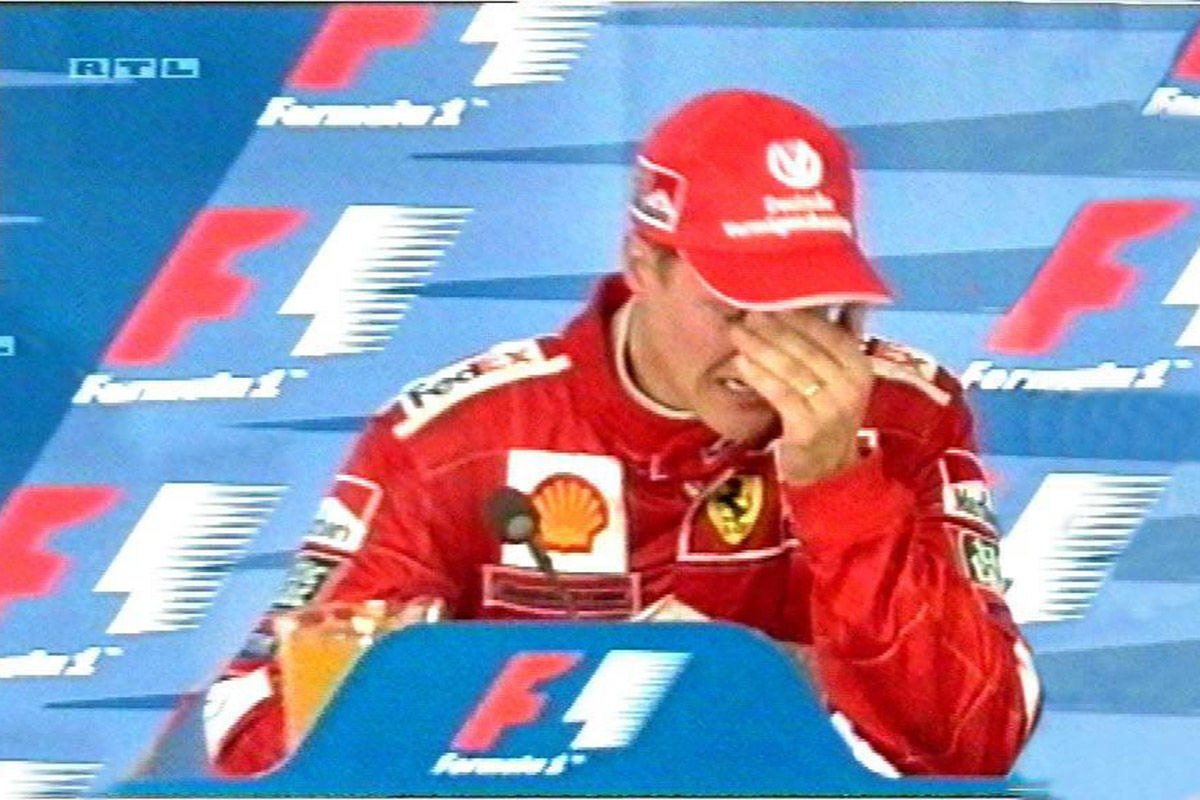
Monza, 10 September 2000. Michael Schumacher triumphs in front of his fans in an explosion of total collective joy. The German moves to -2 points in the standings from his rival Mika Hakkinen, rekindling the dream of the world title that Ferrari has been missing for 21 years. Post race press conference. The interviewer: "you have reached Ayrton Senna's 41 victories, does that mean a lot to you?" Suddenly the icy, cold and obnoxious (for his detractors) driver from Kerpen, perhaps taken by surprise by the question, dissolves into liberating tears. "It means a lot to me." Mika Hakkinen puts a hand on his shoulder, tries to comfort him but the German continues to cry and sob. The interviewer moves on to the runner-up. Hakkinen, great gentleman, motioned to the reporter to move the shot off Schumi, who had burst into tears.
"After the death of Ratzenberger and Senna at Imola, I thought about quitting. Their passing made me question a lot. I asked myself then what F1 and motorsport really mean to me.” Michael Schumacher
“Never think that success is down to your own performance alone. If you start listening only to yourself you take the first step back towards the bottom. The flowers of victory belong in many vases.” Michael Schumacher
“Once something is a passion, the motivation is there.” Michael Schumacher
“Just being a mediocre driver has never been my ambition. That's not my style.” Michael Schumacher
“I can’t really imagine life without Formula One.” Michael Schumacher
“Sometimes minor details can have a huge impact. If you don't devote 100 percent of your efforts to every detail, you immediately run into difficulties.” Michael Schumacher
“Losing composure is pointless.” Michael Schumacher
“An engineer can look at the data, but he needs a translator from the cockpit - the driver - to understand it completely. For example, only the driver can tell you why he abruptly takes his foot off the gas pedal at a certain point. The data doesn't necessarily tell the engineer whether the driver made a mistake at that point or the car was acting up. The information the driver provides often helps determine the direction of development.” Michael Schumacher
“The first thing, when I got the money, I knew I would support somebody. And the person I supported was my family. Because we were really in debt with the money. And - so I gave to my father this suitcase full of money. And he couldn't believe it. And that was something very special.” Michael Schumacher
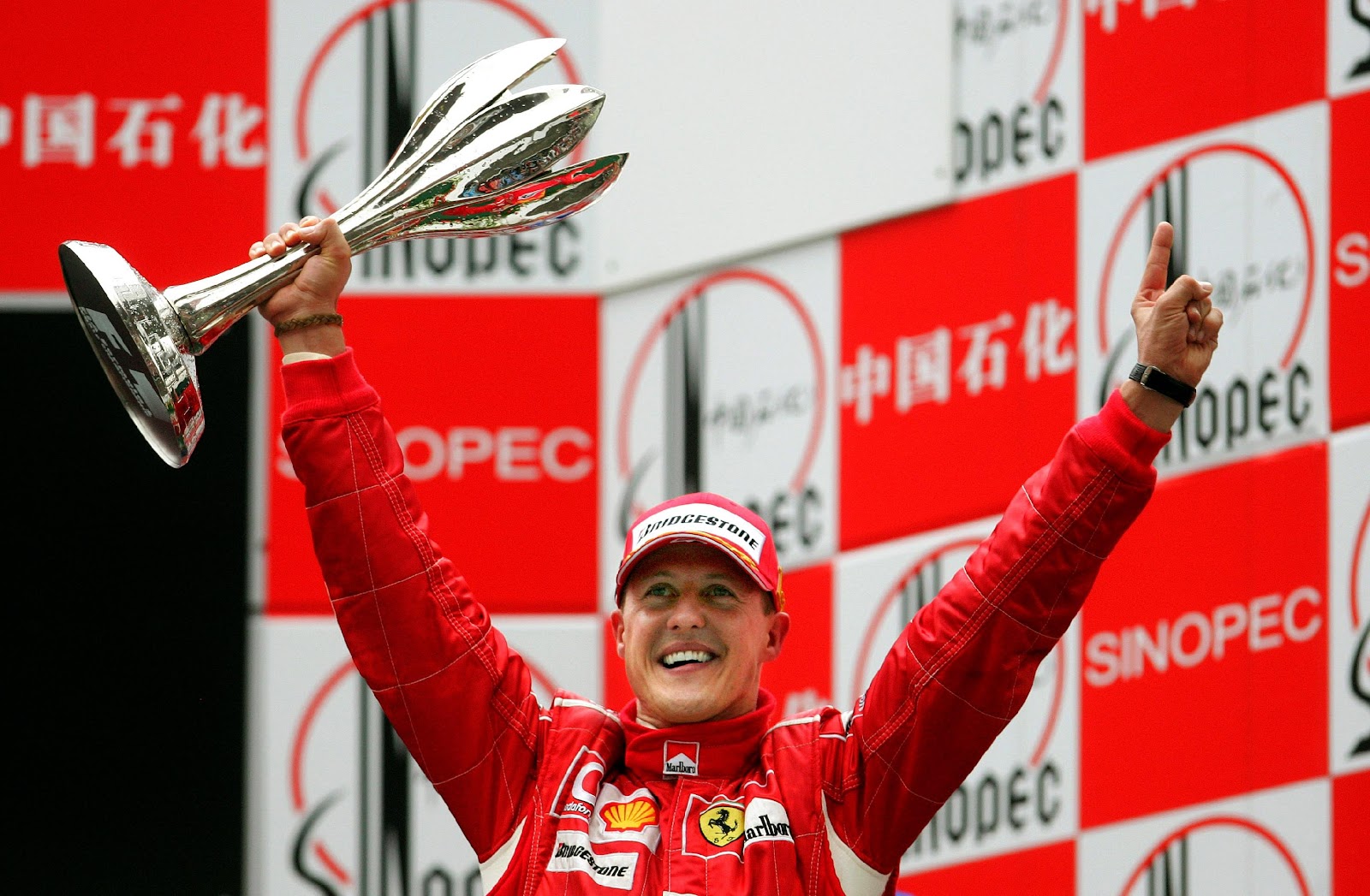
“You win a race, the next race it’s a question mark. Are you still the best or not? That’s what is funny. But that’s what is interesting. And that’s what is challenging. You have to prove yourself every time.” Michael Schumacher
“You try to hide your emotions, so as not to show weaknesses to others. I believe it's the same for every sportsman.” Michael Schumacher
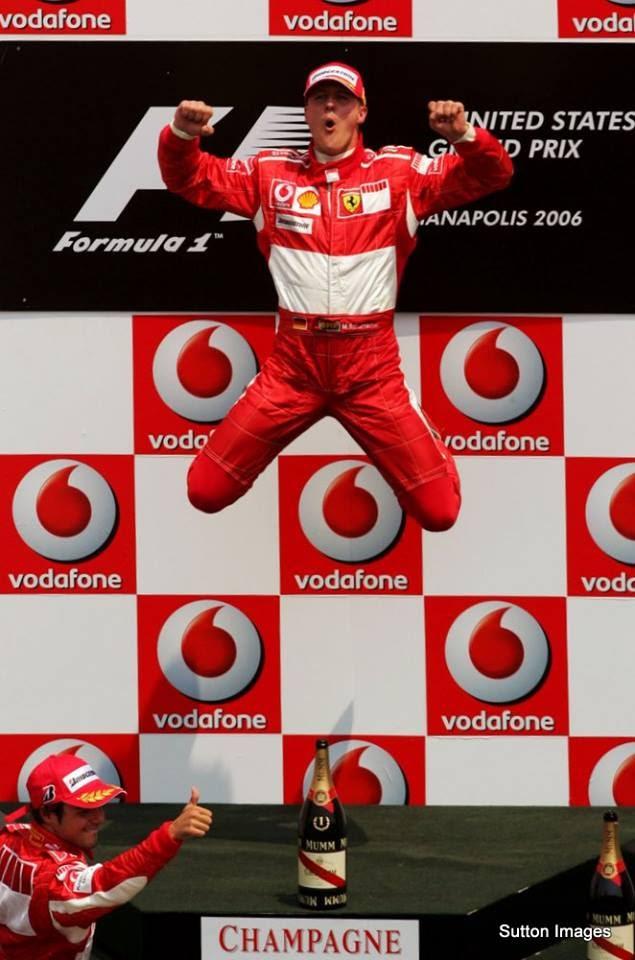
"The truth is that we have all worked at one hundred percent on several occasions this year and these are the results. I know that unfortunately things will change sooner or later, but I wish this extraordinary moment would never end. Everyone at Ferrari, including fans, must feel like little kings.” Michael Schumacher, Hungary 2004
“When you start out in a team, you have to get the teamwork going and then you get something back. I like working in a team and at Ferrari there is always good cooperation. I have really enjoyed my time at Ferrari, not just because of the successes. I have to say it's been tough to leave the Ferrari family, which has been a big part of my career. When you are part of a community for 14 years, it inevitably shapes you. I will always have a part of Ferrari beside me; a part of my heart will always be red.” Michael Schumacher
"You are not a true world champion until you win with Ferrari." Michael Schumacher
“Technology has certainly reduced performance differences among drivers. Whereas a talented driver could get a half-second out of every lap in the past, nowadays talent makes up for only about one or two tenths of a second. But the driver is still the key factor.” Michael Schumacher
“The more precisely I can drive, the more I enjoy myself.” Michael Schumacher
“Every year we find something new, we go faster and that's what Formula One is about.” Michael Schumacher
“Those who have come into Formula One without experiencing cars devoid of electronic aids will find it tough. To control 800 horse power relying just on arm muscles and foot sensitivity can turn out to be a dangerous exercise.” Michael Schumacher
“Mika Hakkinen was the best opponent (I've had) in terms of his quality, but the biggest admiration I had for him was we had 100% fight on track but a totally disciplined life off track. We respected each other highly and let each other live quietly.” Michael Schumacher
“I have been in Formula One for 12 years and out of that I had one year with the perfect car.” Michael Schumacher
”Racing is life and life is risk.” Michael Schumacher
“I am a racer, I push things to the absolute edge. People like it or don’t like it – I don’t care. What is allowed, I will go for.” Michael Schumacher
"People get excited around me and behave differently than they would normally. I don't feel different from anyone else, except that I drive a racing car round in circles faster than somebody else." Michael Schumacher
"I know what I am and what I have to do in my profession, so I can handle the pressure. It's the way I think." Michael Schumacher
"I just want to be known as a very normal person and be treated as that and be able to walk down the street like anyone else." Michael Schumacher
"I will do everything I can to bring the number one to Ferrari. The whole team and all the fans deserve it." Michael Schumacher
"I'm not very comfortable with what people sometimes say or think about me - things I don't feel responsible for." Michael Schumacher
"I don't want to compare myself to Fangio, because he was extraordinary in an era when it was much more dangerous to race. He had a good team behind him, but not like mine: Ferrari is a legend of which I am only a small part, ... Fangio was a legend himself on his own!" Michael Schumacher

Michael Schumacher with Marlboro models during the Belgian Grand Prix at Circuit de Spa Francorchamps on Sunday August 30, 1998. Photo by Ercole Colombo / Getty Images.
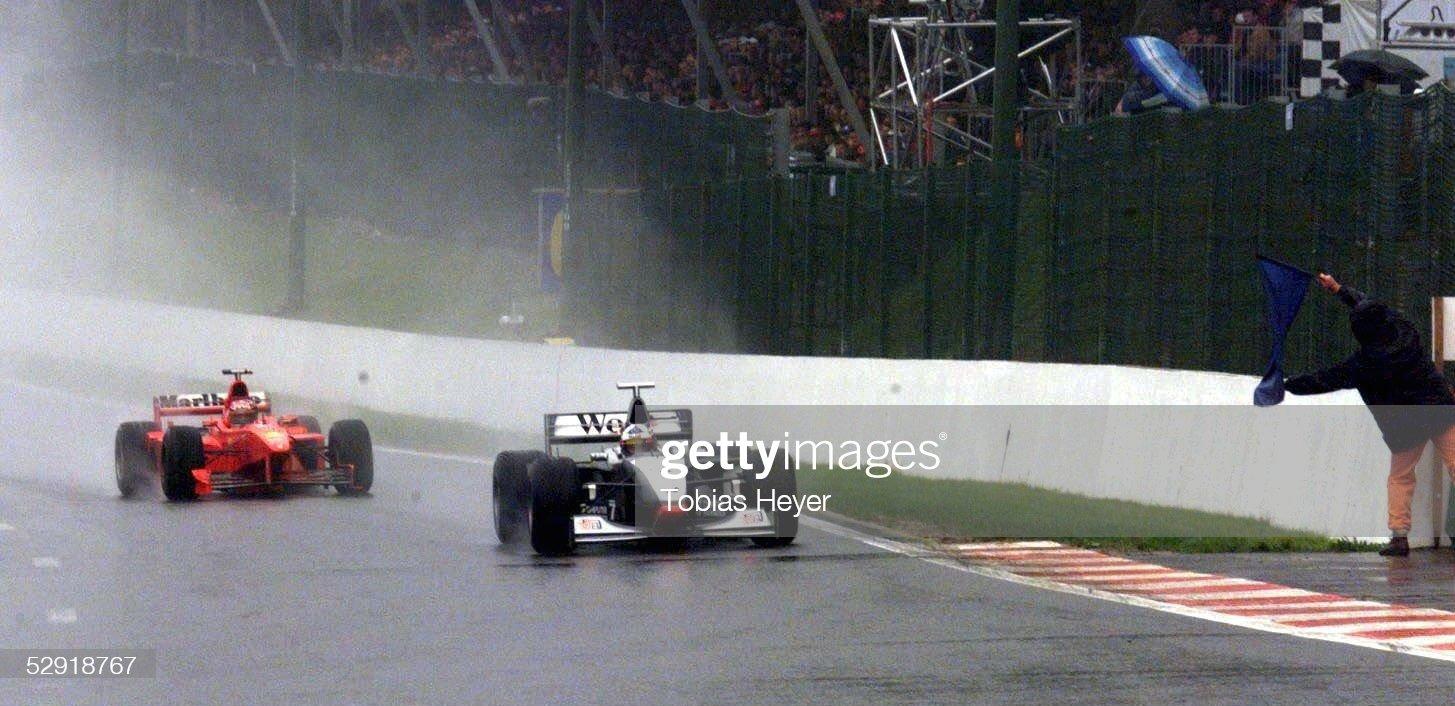
David Coulthard doesn’t let Michael Schumacher pass despite the blue flag at the 1998 Belgian Grand Prix in Spa - Francochamps. Photo by Tobias Heyer/Bongarts/Getty Images.
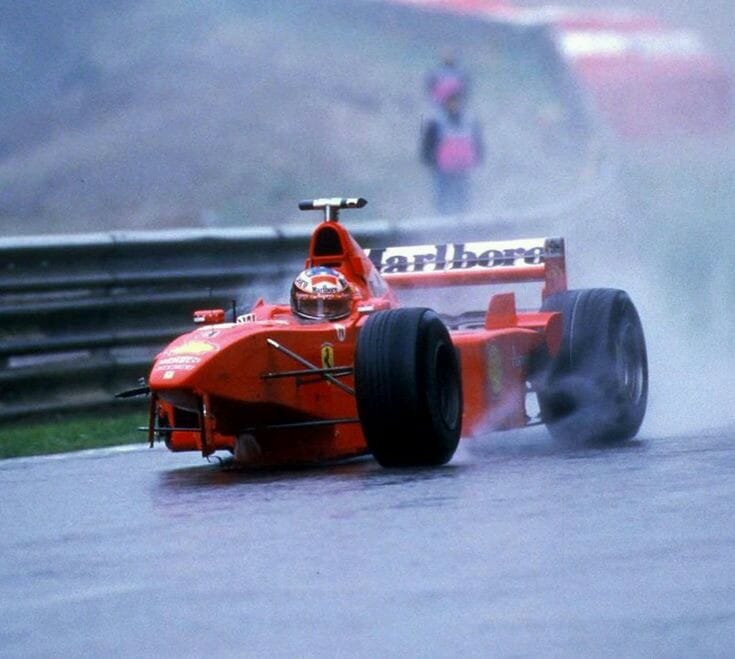
30 August 1998, Spa. "I was so angry that I could have finished the race on three wheels for real!", Michael Schumacher said. No, he couldn't have done it. What is certain is that Schumi covered the central sector of Spa, with the fast corners completely flooded, at the same speed as those chasing him.
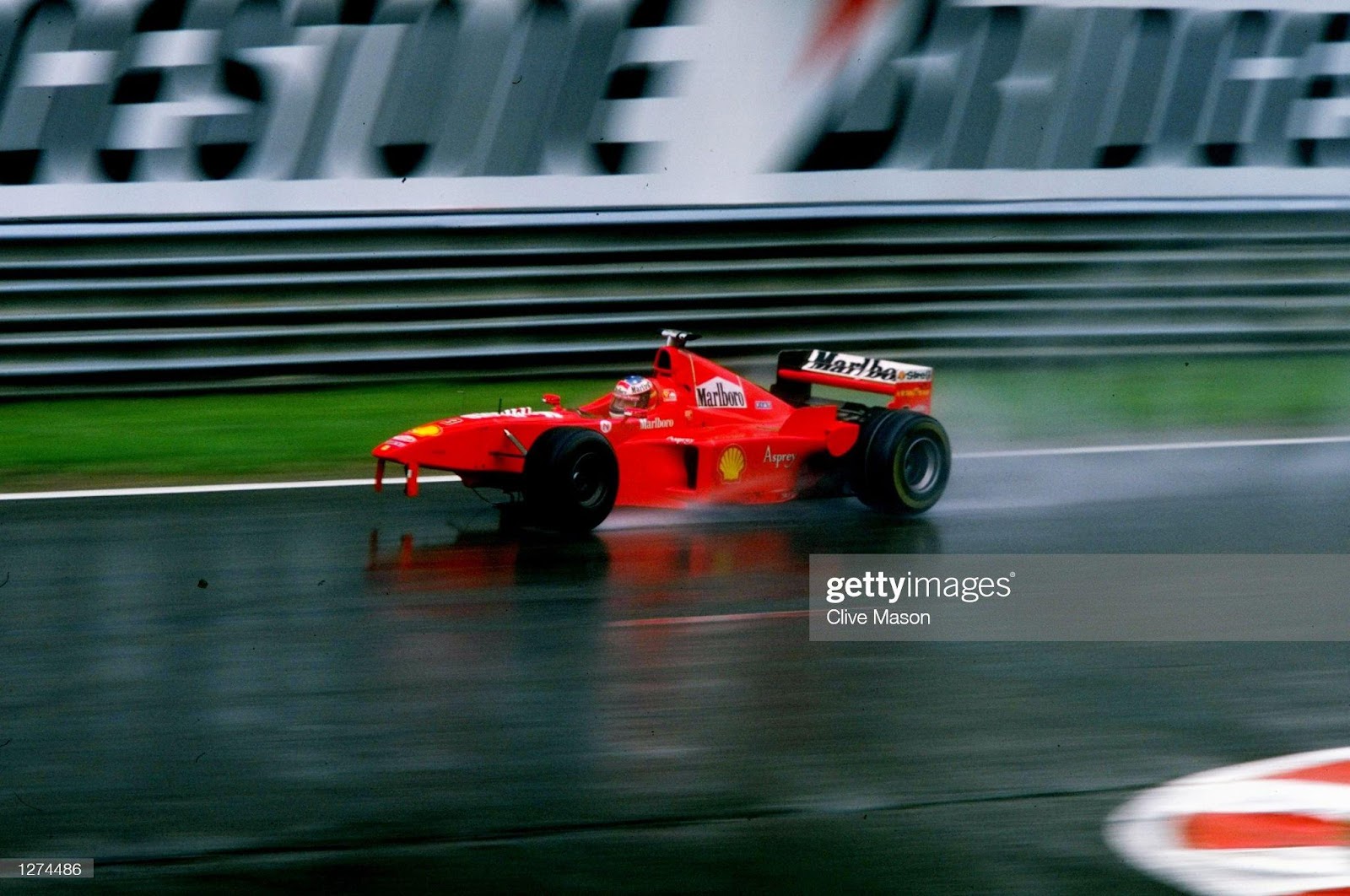
30 August 1998: Michael Schumacher, Ferrari, continues around the circuit after losing a wheel in a collision with David Coulthard’s McLaren Mercedes at the Belgian Grand Prix in Spa-Francorchamps. Credit: Clive Mason /Allsport.
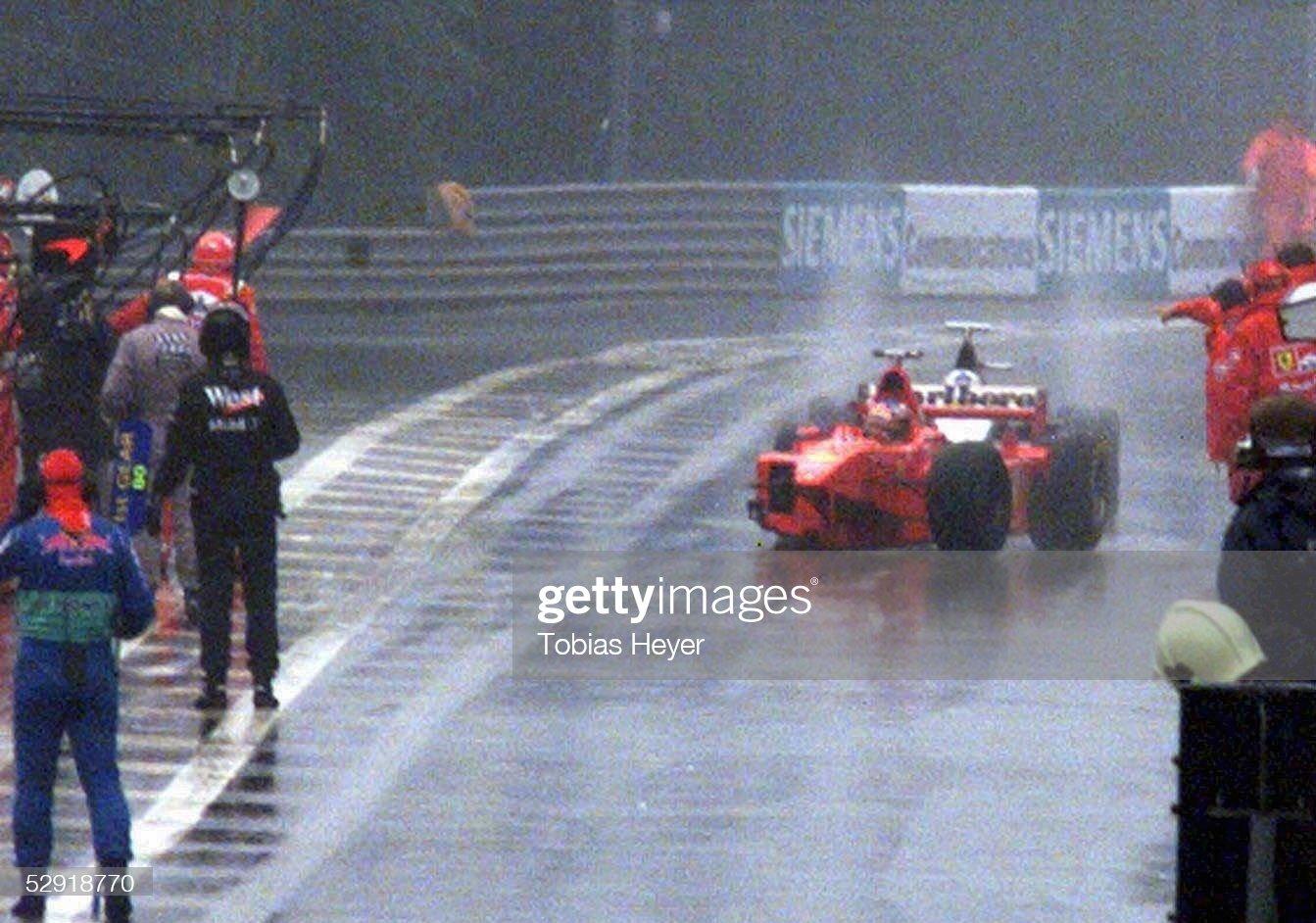
Michael Schumacher drives into the pits on three wheels in front of David Coulthard at the 1998 Belgian Grand Prix in Spa-Francorchamps. Photo by Tobias Heyer/Bongarts/Getty Images.
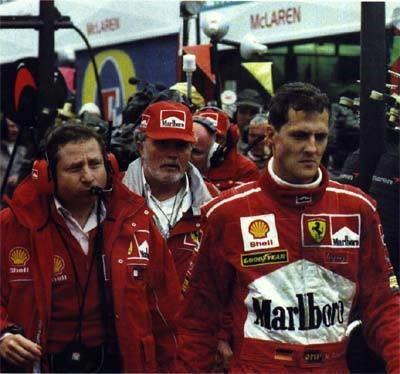
This time I fuck you, next time I'll kill you!" Michael Schumacher to David Coulthard at the 1998 Belgian GP.
“When I was told that I had caught up with Ayrton's number of victories that was the final straw that broke the camel's back. For me he was always the best. I had never put myself on the same level as him, but suddenly there was the evidence. I don't know why - suddenly this sobbing burst out of me." Michael Schumacher
"I have really enjoyed my time at Ferrari, not just because of the successes." Michael Schumacher
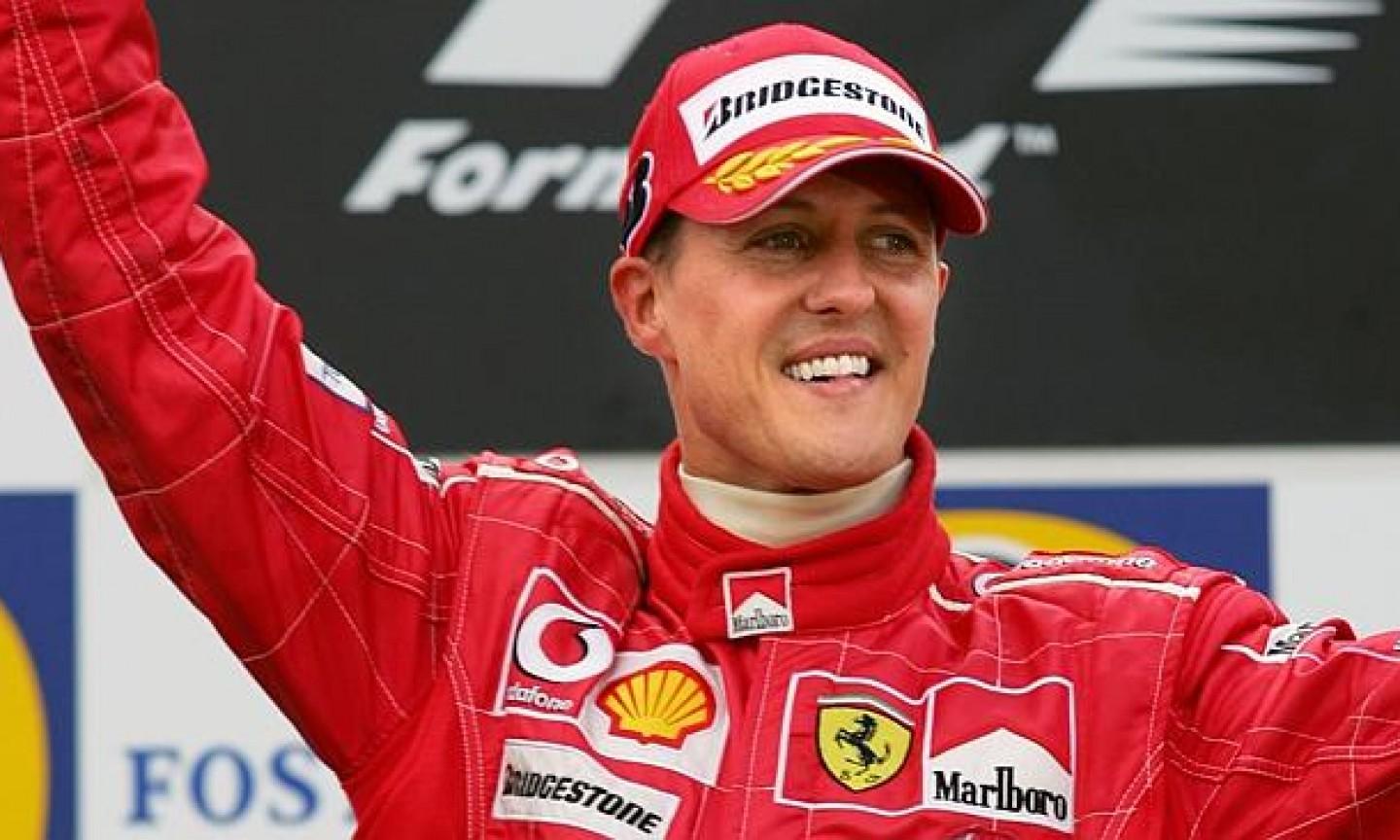
Schumacher, the younger by nine years than Senna, was certainly more scientific: heart rate monitors, blood samples, electrolyte levels. Ayrton – more worldly, white collar, better educated – graduated directly from F3, whereas Schumacher stayed on a year to contest the FIA Sportscar World Championship (again) under the tutelage of Mercedes-Benz. Senna thus jumped from nimble 160bhp front-runner to mid-grid turbo monster, whereas Schumacher arrived in F1 with experience of 900bhp and 200mph-plus; manufacturer pressures and processes; tyre and fuel management; strategy and tactics. Leaner, meaner and more logical, though not necessarily faster, Schumacher’s operating system was tailored for an increasingly regimented, digitised sport controlled by nerd-do-wells. Senna provided a spark. Schumacher – Senna 2.0, if you like – was plugged in. Same planet. Different world. I do rate Schumacher a slightly better racer than Senna. Where I think Michael has the advantage is in team-building/car development. Statistics cannot tell the whole story, it's a typical case where the numbers can mislead to wrong conclusions. Some can argue that having the most wins automatically makes Michael Schumacher the greatest driver ever. But on wins-per-start ratio he is 'only' fifth (325/91, every 3.57 races), behind Juan Manuel Fangio (51/24, every 2.13 races), Alberto Ascari (32/13, every 2.46 races), Jim Clark (72/25, every 2.88 races) and Sebastian Vettel (120/39, every 3.08 races). The quality of the other competitors and equipment can distort the numbers in a very strong manner. To compare two of the strongest pilots of the history we have to compare their ability to produce "magic"! For those two guys, winning with the best equipment was nothing more than their obligation. The "magic" is to win without the best equipment, to resist under pressure, to keep going with a semi broken car, to perform even with a pathetic team, to build the team and keep good feeling inside team.
Schumacher was a bit greater of the two on the track, just simply knows how to win races and titles better than Senna ever could. Some F1 established people, like Lauda, Alesi, Piquet, Rory Byrne (who worked with both of them) think higher of Schumacher than Senna. Legendary British journalist Denis Jenkinson, 'Jenks', a man who had spent the previous half-century watching the best in the business at close quarters, was standing at the crest of Eau Rouge and took note. He timed each driver with a stopwatch from the La Source hairpin through to when they passed him and announced the 22-year-old Schumi fifth fastest behind Senna, Mansell, Patrese and Berger. At his first ever Formula 1 outing and having never driven any kind of car on Spa Francorchamps circuit before! Michael made his F1 debut in 1991 with Jordan team and, just 12 months later, had won his first Grand Prix, driving for the Benetton team alongside Nelson Piquet - world champion in 1981, 1983 and 1987. If the Brazilian wasn't already halfway out the door in what would be his final season in F1, Schumacher's arrival in the team certainly hurried him on his way. The young German outqualified his vastly more experienced teammate four times out of five in the season run-in, scoring only half a point less than him in the time they were together. Schumacher only raced Senna in 1992, 1993, and 1994.
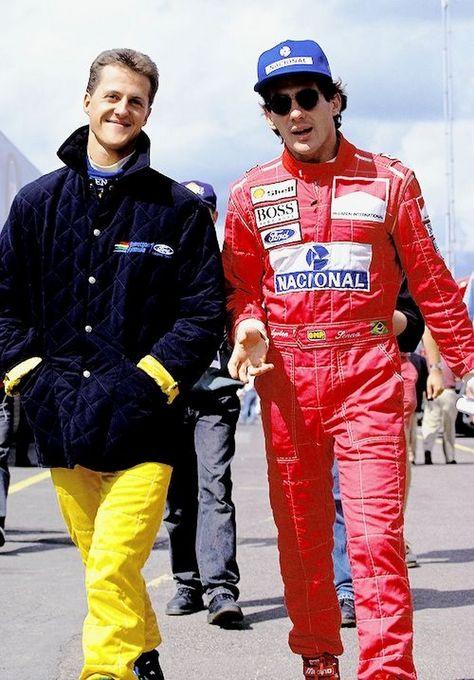
Michael Schumacher and Ayrton Senna.
In 1992 and 1993 Senna did beat the rookie Schumacher, but up until the 1994 the German did have the upper hand on him.
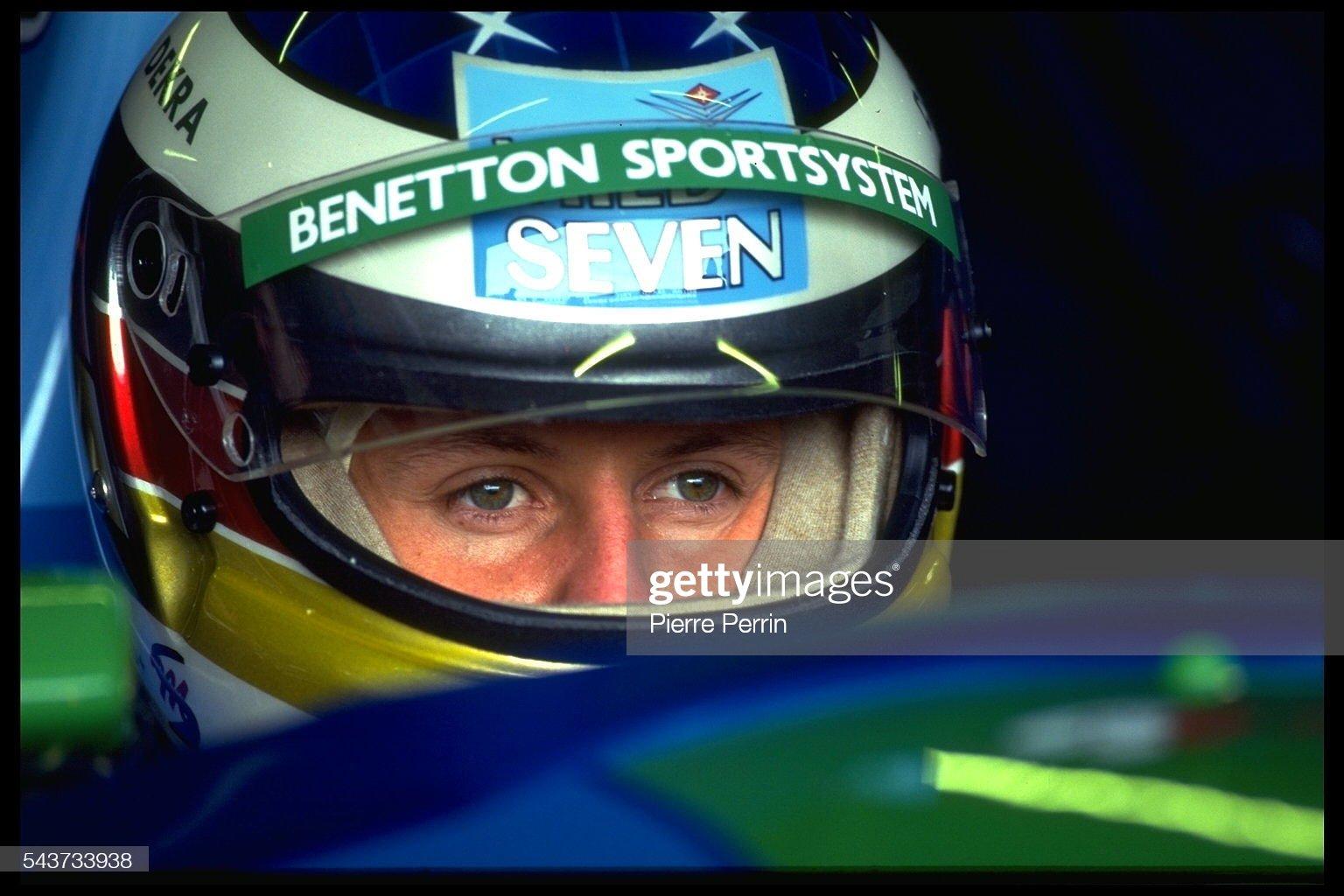
Michael Schumacher on January 01, 1994. Photo by Pierre Perrin/Sygma via Getty Images.
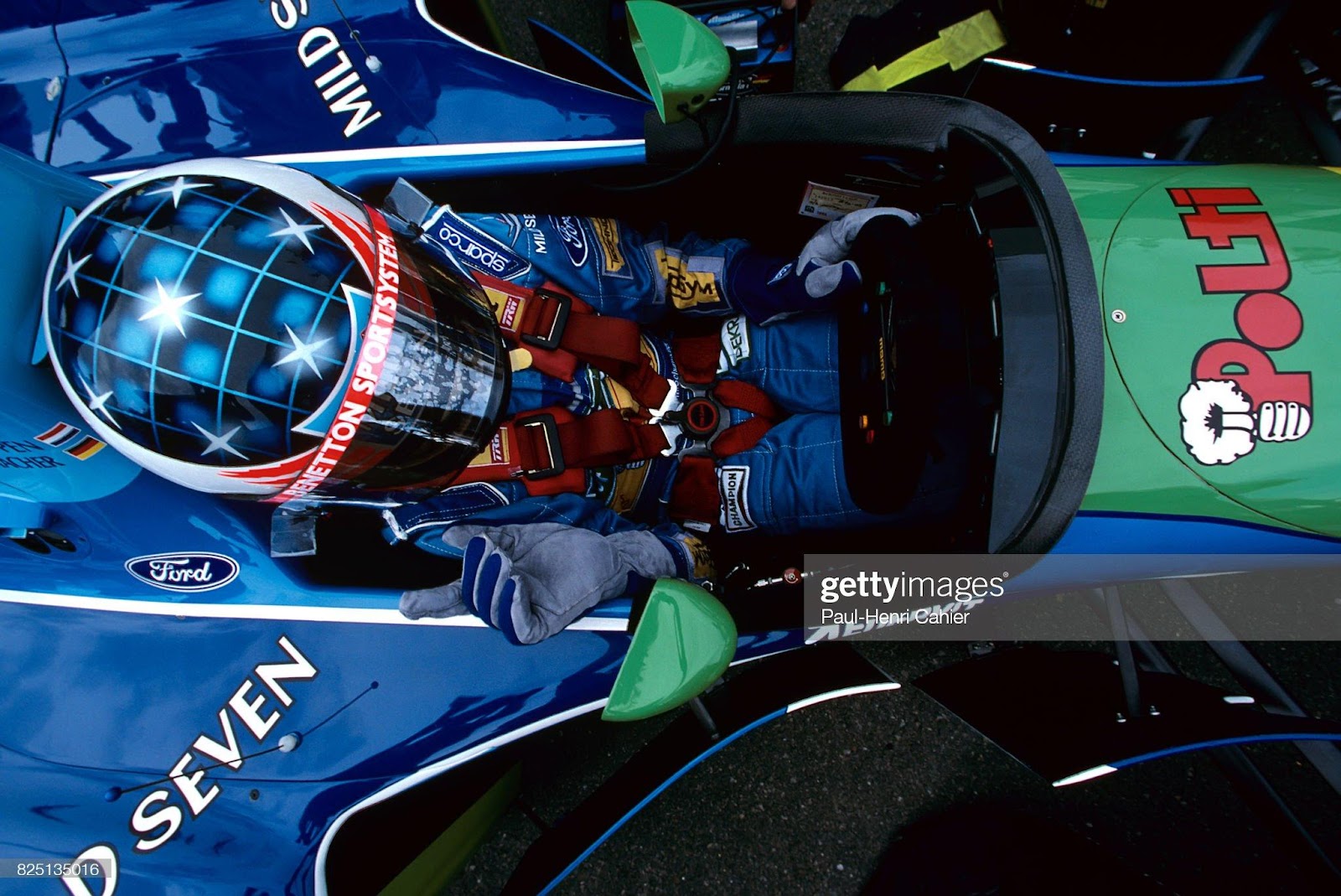
Michael Schumacher, Benetton-Ford B194, Grand Prix of Spain, Circuit de Barcelona-Catalunya, 29 May 1994. Photo by Paul-Henri Cahier/Getty Images.
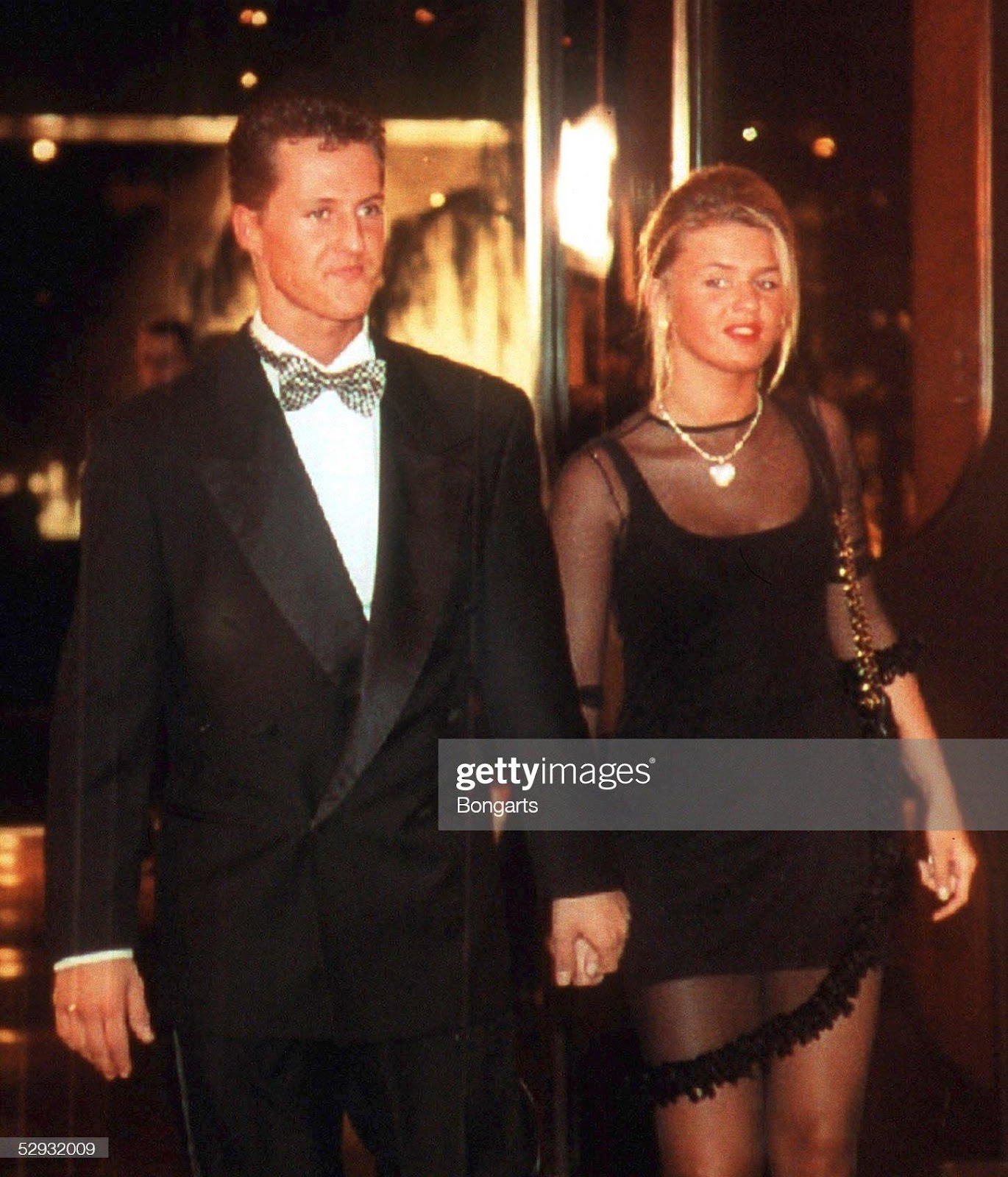
Michael and Corinna Schumacher in Monte Carlo on December 12, 1994. Photo by Bongarts/Getty Images.
In the 1993 and 1994 seasons Schumacher gave Senna a really good run for his money in many of the wheel to wheel battles. People say that in ‘93 Schumacher had an advantage in the engine (McLaren was forced to take a customer supply of Ford V8 engines which were two specifications behind that of Ford's factory team, Benetton, but only 8-10 horsepower difference), but Senna had superior TAG electronics, including an effective active suspension system, the best at the time. At Silverstone, Schumacher beat him by a great margin with a great overtaking in the middle, and in 94 Senna had a V10 with reportedly 80-100 horsepower more than Schumacher's V8 engine. In 1993 Schumacher only had traction control in Monaco, where he was leading the race with 15 second advantage over Senna, however his engine cruelly gave up half way through the race. On top of this Senna was a matured driver at his peak when a young and inexperienced Schumacher came on the scene.
McLaren had in 93 a lot more experience than Benetton with active suspension and semi-automatic gearbox, because in 92 Senna used active suspension and semi-automatic gearbox were Schumacher had to use a manual gear box and conservative suspension the entire year. In 94 Senna was losing the championship, he knew it, and was obvious that he was feeling the pressure from Schumacher, reason why he was making several mistakes. Yet, Senna claimed pole positions in those first 3 races. Williams had the best car for 1994 but not at the beginning of the season because they were still trying to sort out the car without their active suspension. But all teams have to adjust to new rules. Schumacher win first race of the season in Brazil (Schumacher was leading; Senna was trying to reduce the gap to him, but then spun off on lap 56, just pushing too hard) and second race in Japan (at the start, Schumacher got ahead of Senna, later Senna spun and was hit by Larini, taking both out) with fastest lap in both races. The German was leading Senna in the drivers' championship by twenty points. The tragic Imola race was won again by Schumacher. In an inclement Monte Carlo, just 15 minutes prior to the race start, Schumacher decided to swap cars - he was ditching his dry-weather set-up in favour of a car more suited to driving in the rain. Some of his rivals were on wet-tyres, others were dry-weather slicks - but on his intermediates Schumacher powered off the line and into an immediate lead. He took a 4 second advantage over the second placed car after only one lap. This hadn't been seen since the days of Clarke. Schumacher first season at Maranello was one of his greatest. He won three races in a car that was miles off the pace, his driving was on a separate level from the rest.
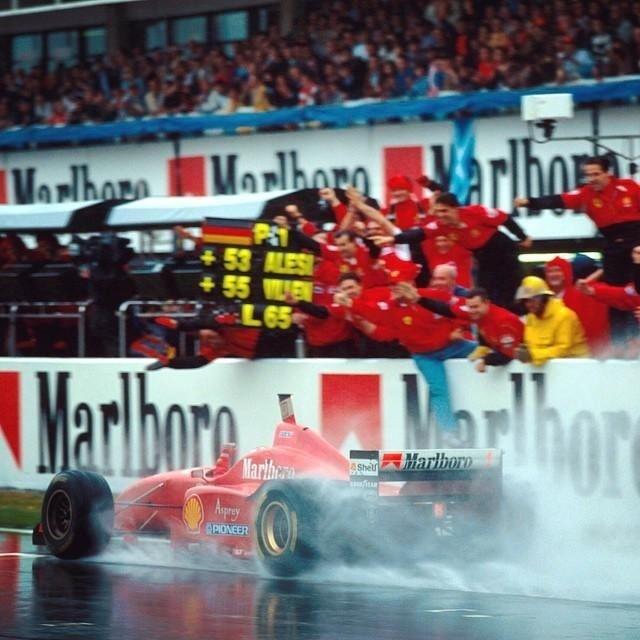
“I wouldn't have bet a penny on this win because, after qualifying, we had no advantage over the Williams. Yes, by the middle of the race I only had 8 or 9 cylinders working in the car and it was not at all rewarding, because we thought it would be difficult to finish the race and that at any moment something could happen but, in the end, the car stayed with us ..." It was June 02, 1996 when Michael Schumacher won his first Grand Prix with Ferrari colors, the first of many miracles in Red. The story began here.
The best was a stunning victory, his first in a Ferrari, in torrential rain at the Spanish Grand Prix in 1996, where he routinely lapped as much as five seconds faster than anyone else. Former world champion Jacques Villeneuve after losing to him simply said: "he has set an amazing standard which we all have to try to follow. I cannot imagine a harder challenge." In terms of driving I think they share same of principal characteristics, like speed, rain ability, calculating, ruthlessness etc, with a possible little advantage for Michael in race speed consistency and tactics. But Ayrton was capable to perform with everything against him and this was one of his best qualities. His character couldn't let him lose and, because of that, he pushed to the limit more often and more strongly than Schumacher has ever needed to. Schumacher perfected the art of strategic racing, Senna was a master at street circuits. Probably only Jim Clark could approach Senna in terms of speed over a single lap. Pole position statistics are proof of that. Schumacher was on pole for 27.2 percent of his career, whereas Senna was on pole for 40.1 percent of his. At Monaco, in 1988, Senna put his car on pole position, 1.5 seconds quicker than Prost in the same car. He later said he felt as if he was driving on instinct, watching himself from above. On other hand, Schumacher was noted throughout his career for his ability to produce series of fast laps at crucial moments in a race, to push his car to the very limit for longer periods of time. Schumacher was fractionally better driver over a race distance, being masterful at using “hot” in-laps, just before pitting, to overtake a rival tactically. But he never pulled away from confrontation on the track, either.
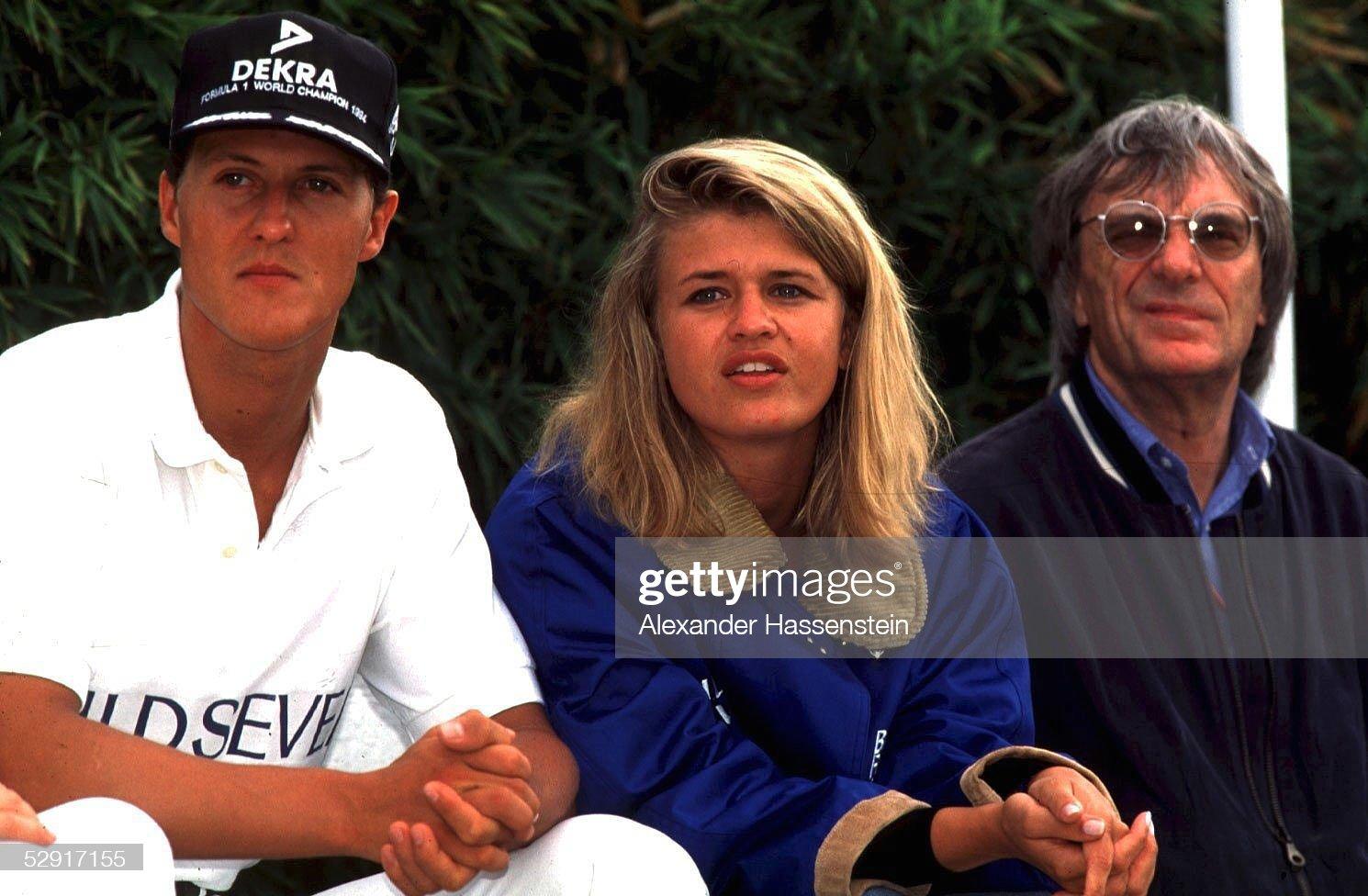
Michael Schumacher, Corinna and Bernie Ecclestone on April 09, 1995. Photo by Alexander Hassenstein/Bongarts/Getty Images.
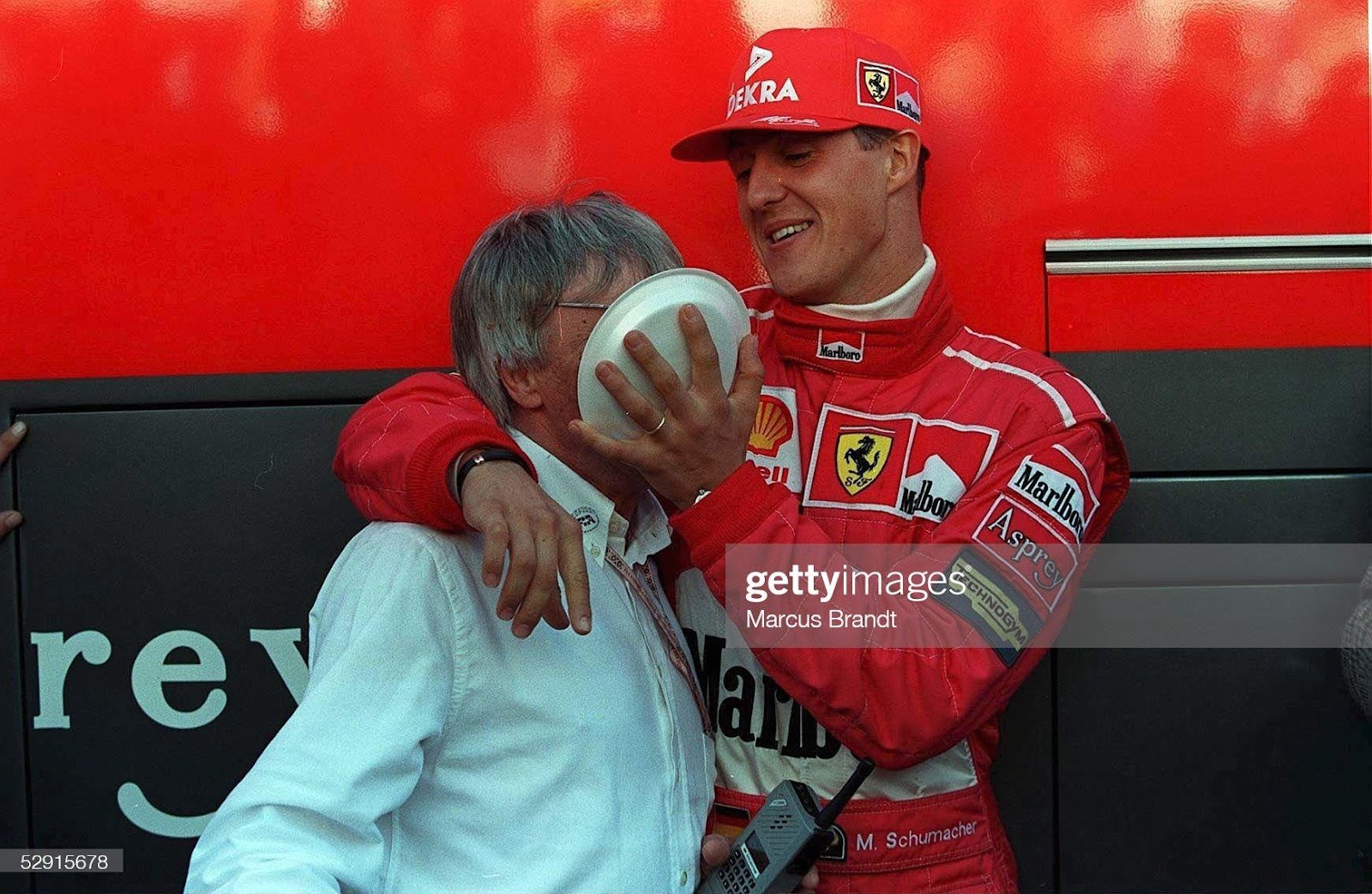
Michael Schumacher and Bernie Ecclestone at Nuerburgring on September 28, 1997. Photo by Marcus Brandt/Bongarts/Getty Images.
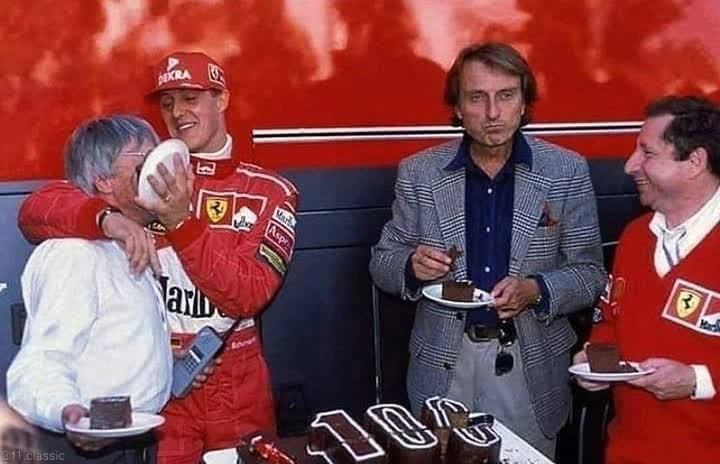
Michael Schumacher, Bernie Ecclestone, Luca Cordero di Montezemolo and Jean Todt.
Ecclestone used to say: “Michael Schumacher is a racer and it’s a pity we’ve not got more like him. Like guys such as Ayrton Senna and Nigel Mansell, he’s prepared to take a few risks. F1 doesn’t need drivers who pussyfoot around; we want them racing.” The consistency of his laps and hammering down many fast laps on the key moments, all of them on pole position time, was proverbial. These have netted him many unlikely victories. Just look at the fastest laps in race statistics. I also regard Prost as one of the best on racecraft and race consistency. Just reading the race. They are very, very close with each other. Michael was a master of using all car abilities for speed. He was the first to use left foot braking in all conditions and was master to use weight transfer and trail braking to reach the maximum. You can often see at TV graphics that he was using brake and accelerator at the same time. He was a master in driving technique. In time of Ferrari, Ross Brown used to say that testing with Michael behind the wheel can hide some negatives of the car because his abilities to adapt can mask some bad things of the car. His diligence to details, discipline, vision, technical knowledge, relentless pursuit of perfection, ruthlessness, physical and mental preparation and speed makes him incomparable with anyone else. He won the championships with a probably little bit lesser material. All other drivers became champions in the best car of period.
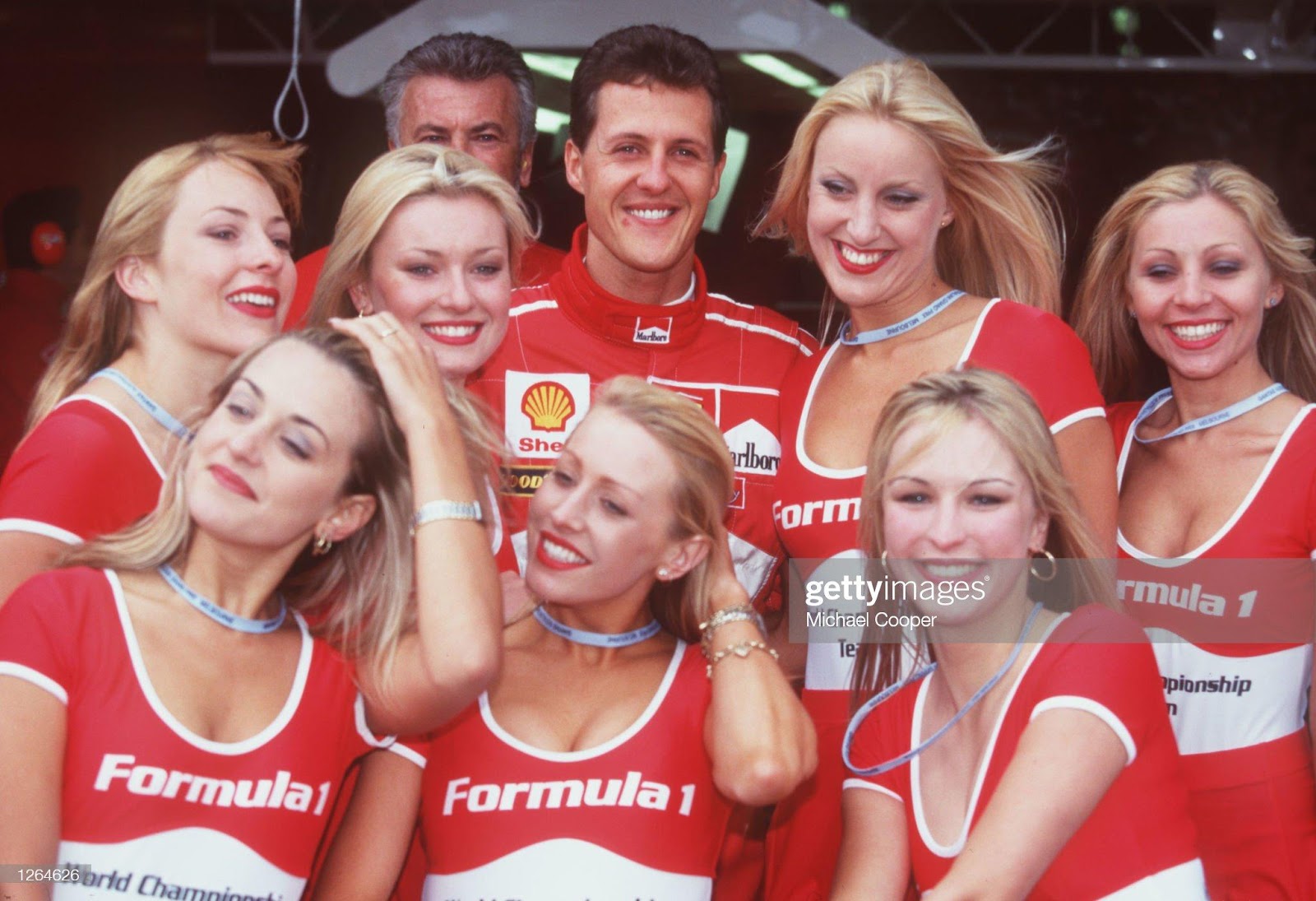
7 March 1998: Ferrari driver Michael Schumacher enjoying the perks of his job with the Formula One girls before the Australian Grand Prix at Albert Park in Melbourne. Credit: Michael Cooper/Allsport.
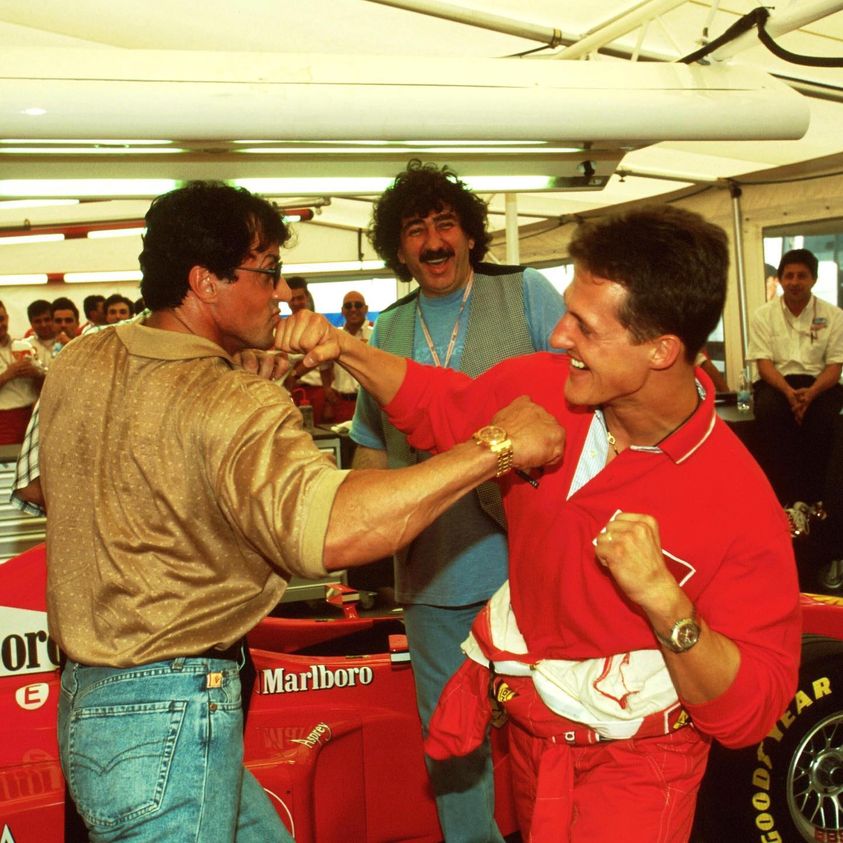
On May 24 1998 Hollywood legend Sylvester Stallone visited Michael Schumacher ‘on his set’ at Ferrari …
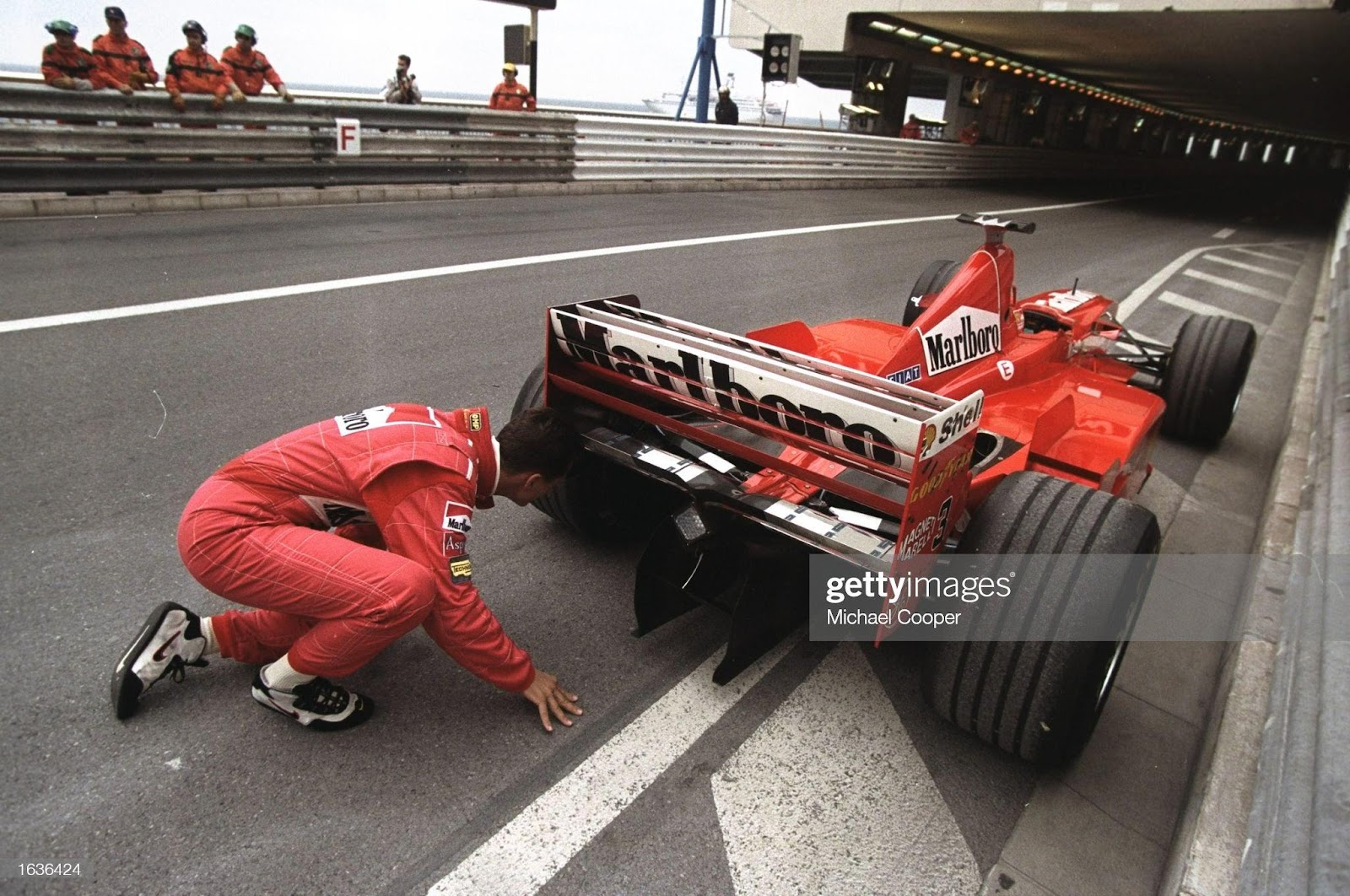
21-24 May 1998: Michael Schumacher looks at his broken down Ferrari during the Monaco Grand Prix at the Monte Carlo circuit. Schumacher finished in tenth place after repairs in the pits which took about two laps. Credit: Mike Cooper/Allsport.
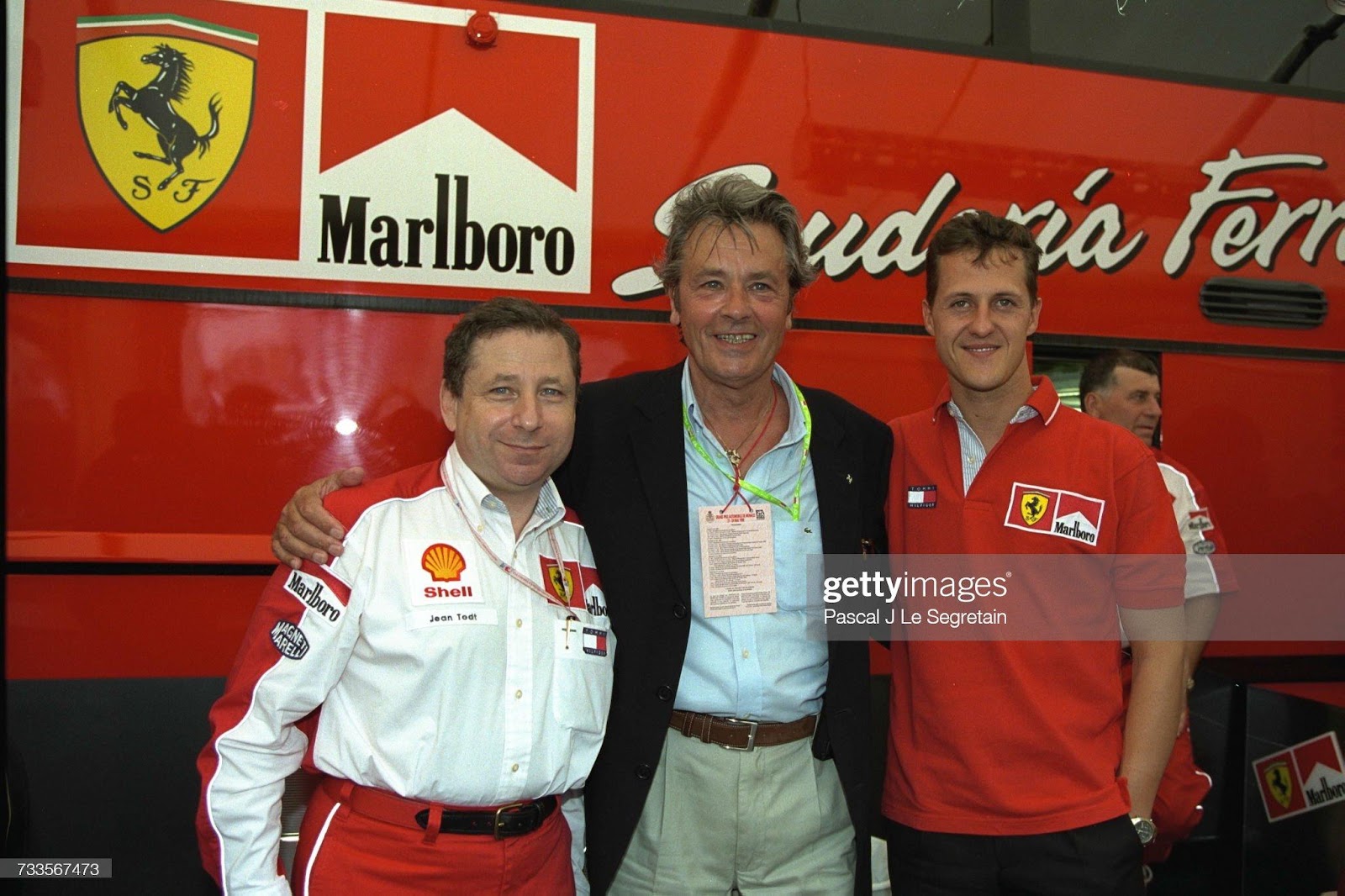
Jean Todt, Alain Delon and Michael Schumacher at the Monaco Grand Prix on May 23, 1998. Photo by Pascal Le Segretain/Sygma via Getty Images.
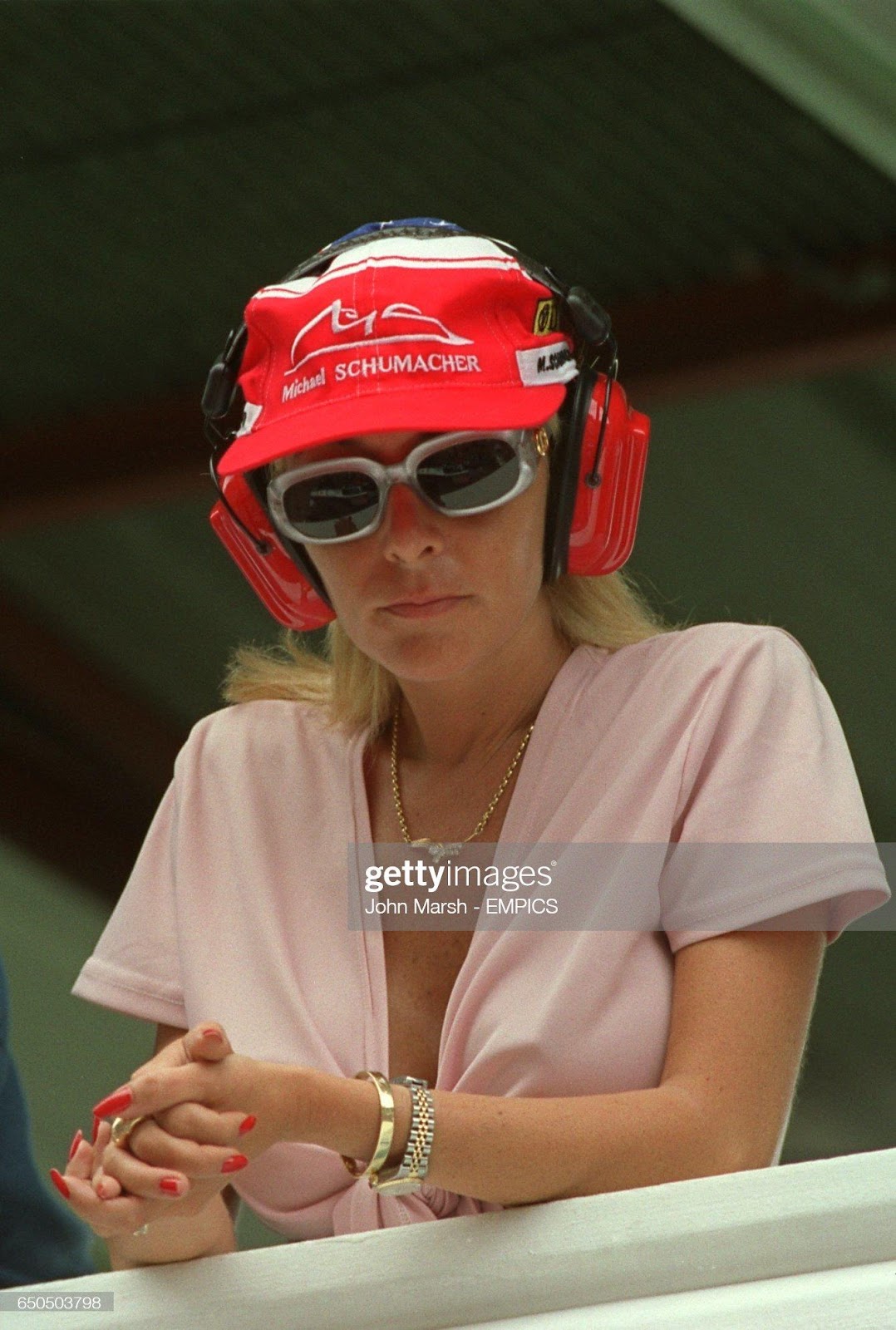
A Michael Schumacher fan at the Monaco Grand Prix on May 23, 1998. Photo by John Marsh/Empics via Getty Images.
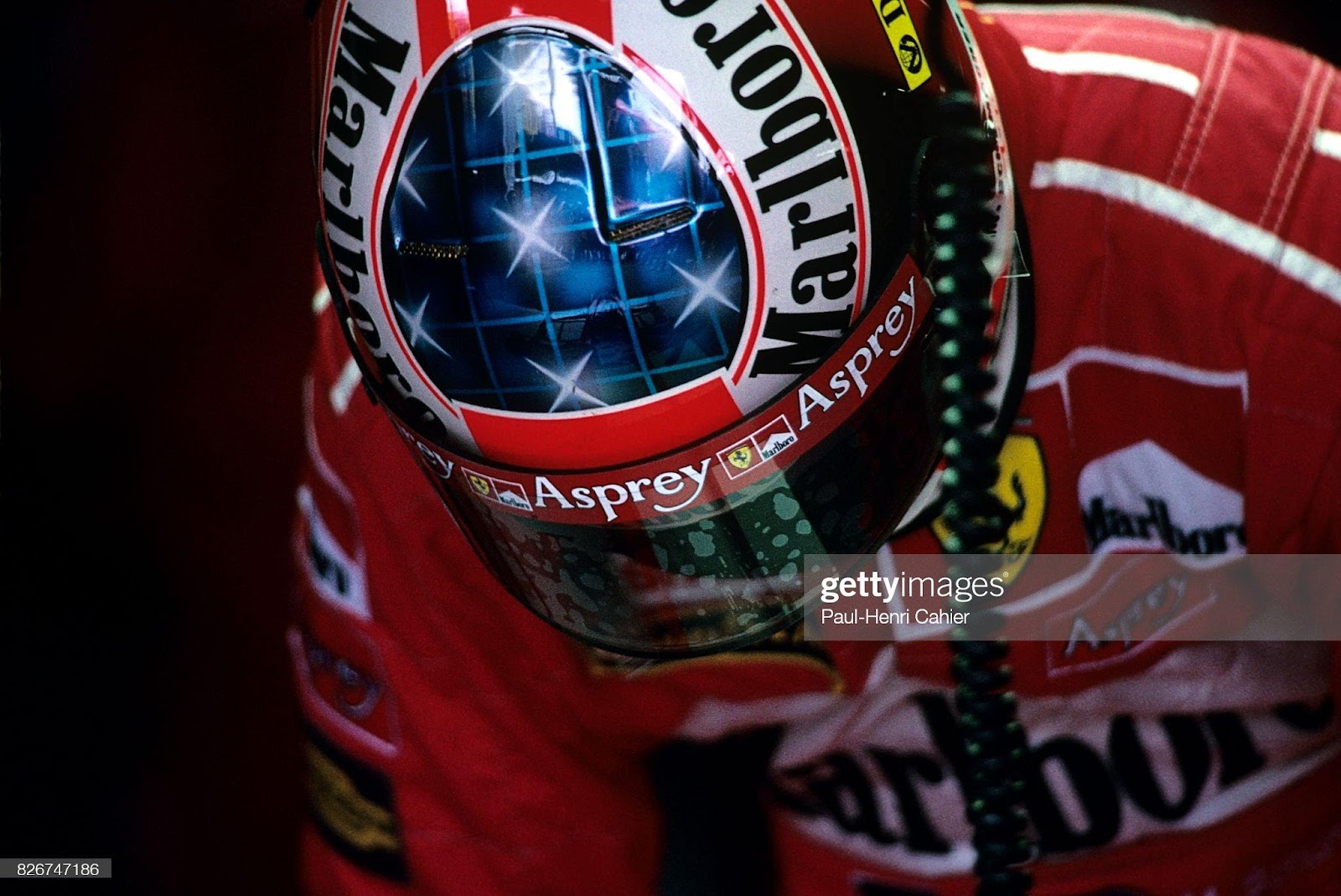
Michael Schumacher, Grand Prix of Luxembourg, Nurburgring, 27 September 1998. Photo by Paul-Henri Cahier/Getty Images.
Michael also came very near in 1997 and 1998 but in far lesser material. Although he didn't win the championship he made clear what kind of driver he was. Just like Senna did in 1993. There are also some claims on that Senna had great characters to fight to and that is true. But remember in his prime days in 1988-1991 he fought only with Prost and had far better cars than Mansell, Piquet, etc although they were great drivers. Schumacher on the other hand had fought with lesser material against Williams and McLarens and that compensates this theory. Remember 1997, 1998 and not that much 1999. In the rain and changing conditions they are both in a class of their own. I would put them equal on this side, with maybe Senna with small edge. They are probably the best wet-weather drivers of all time, for their consistent level of excellence in such conditions, and their total superiority over their peers.
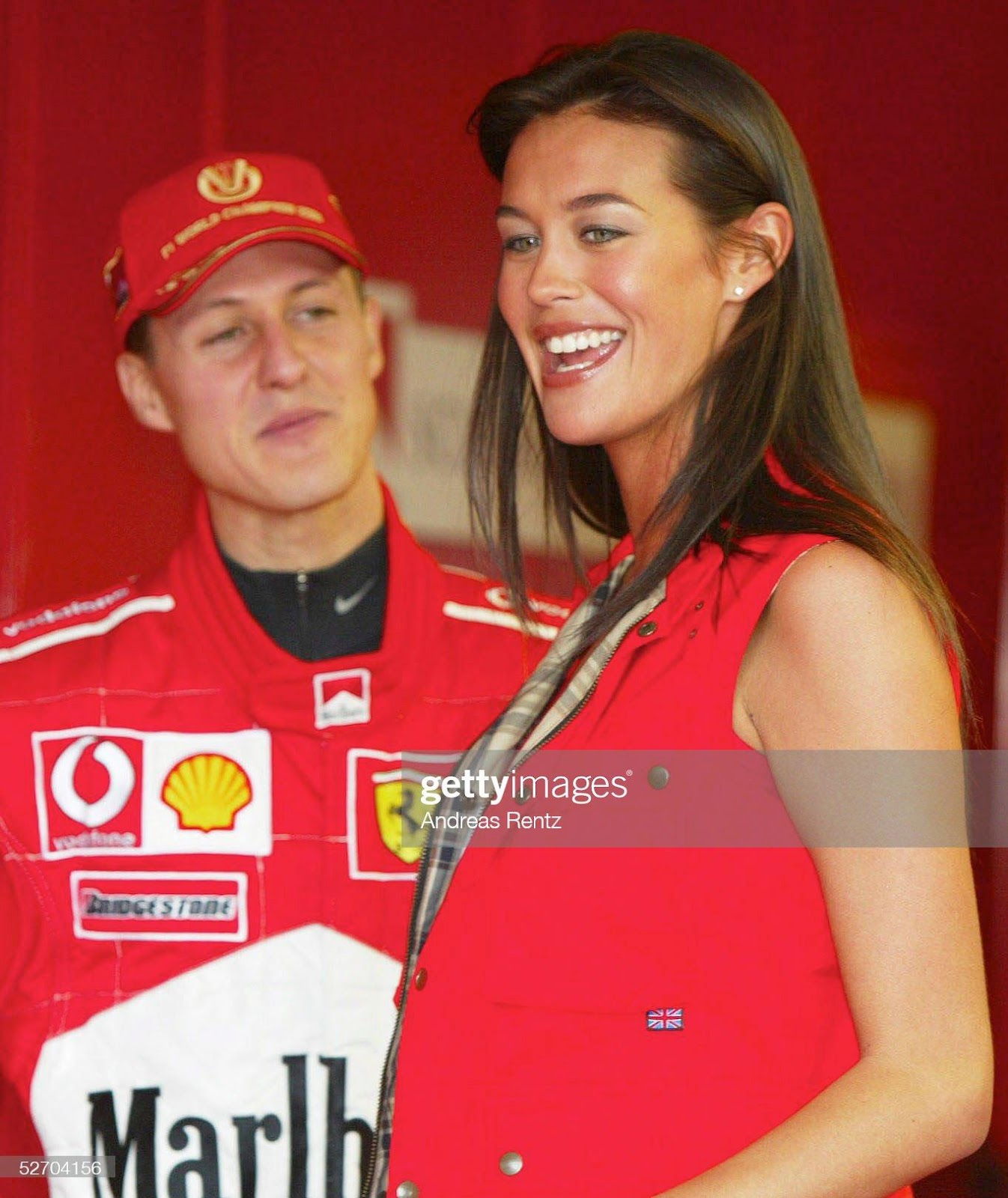
Michael Schumacher, Ferrari, with Australian model Megan Gale at the Australian Grand Prix on March 01, 2002. Photo by Andreas Rentz/Bongarts/Getty Images.
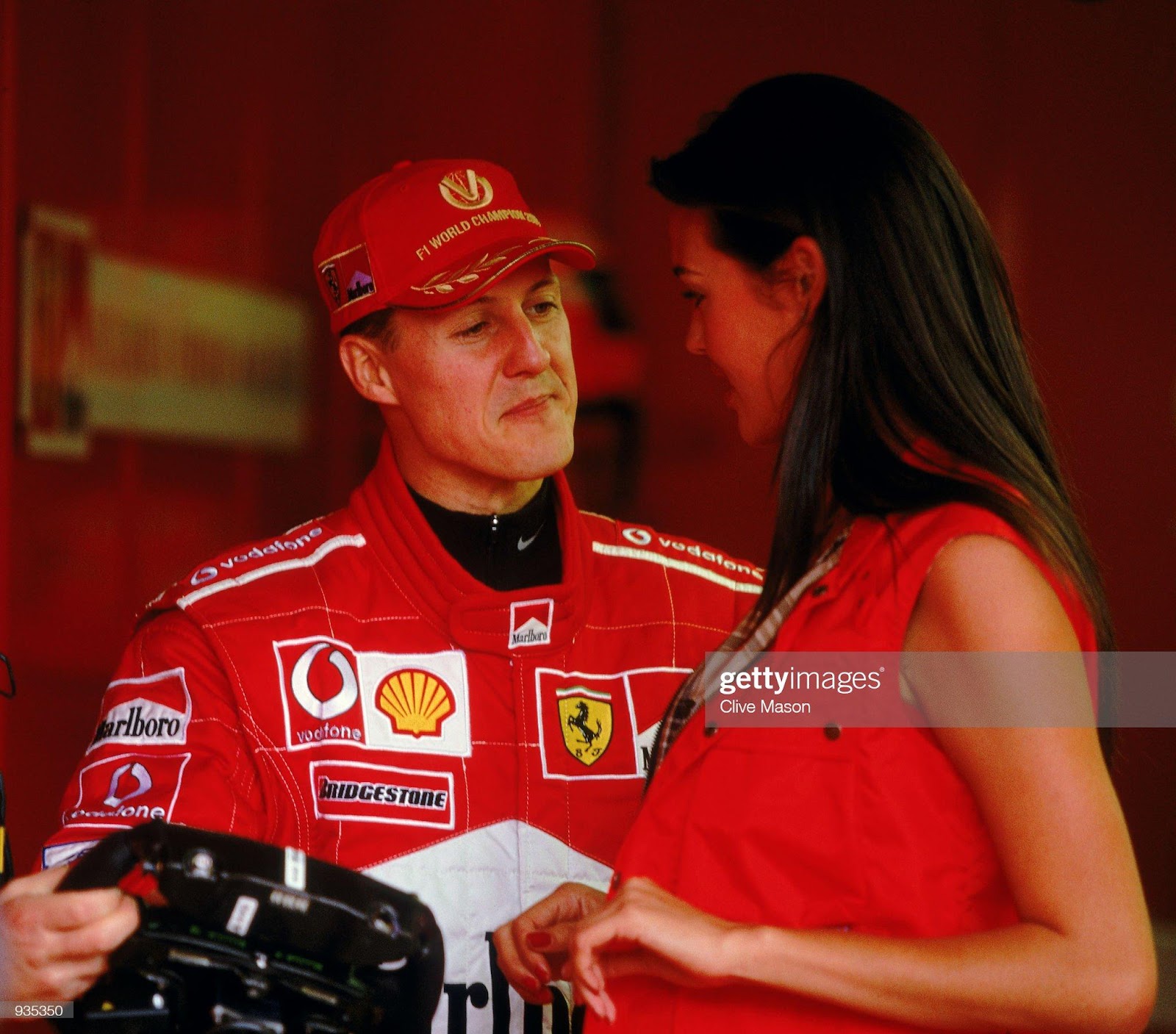
Michael Schumacher, Ferrari, with Australian model Megan Gale at the Australian Grand Prix on March 01, 2002. Photo by Getty Images.
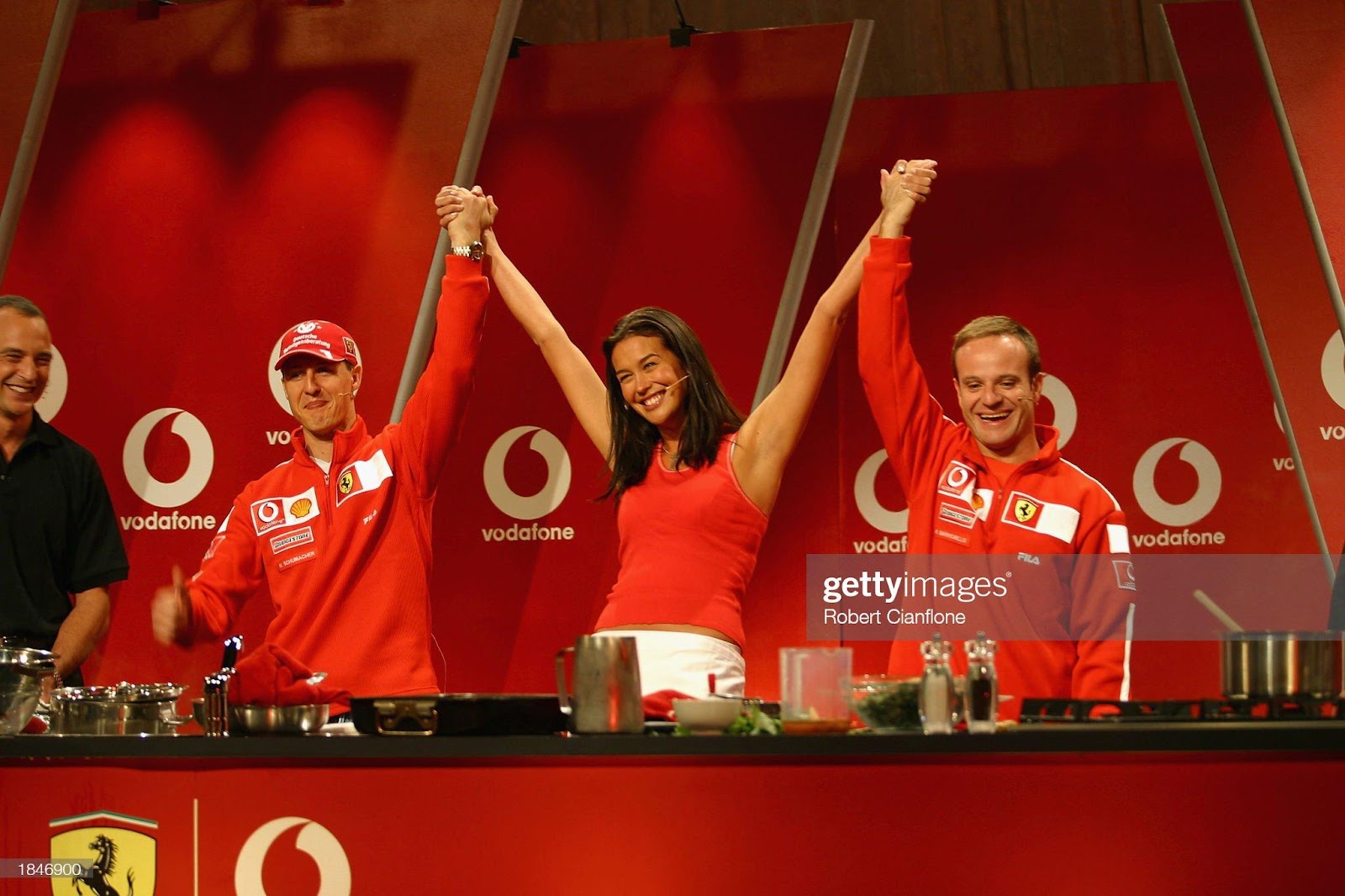
Michael Schumacher and Rubens Barrichello join supermodel Megan Gale in the Ferrari Cook Off held at the Vodafone Arena as part of the Australian F1 Grand Prix at Albert Park in Melbourne, on March 6, 2002. Photo by Robert Cianflone/Getty Images.
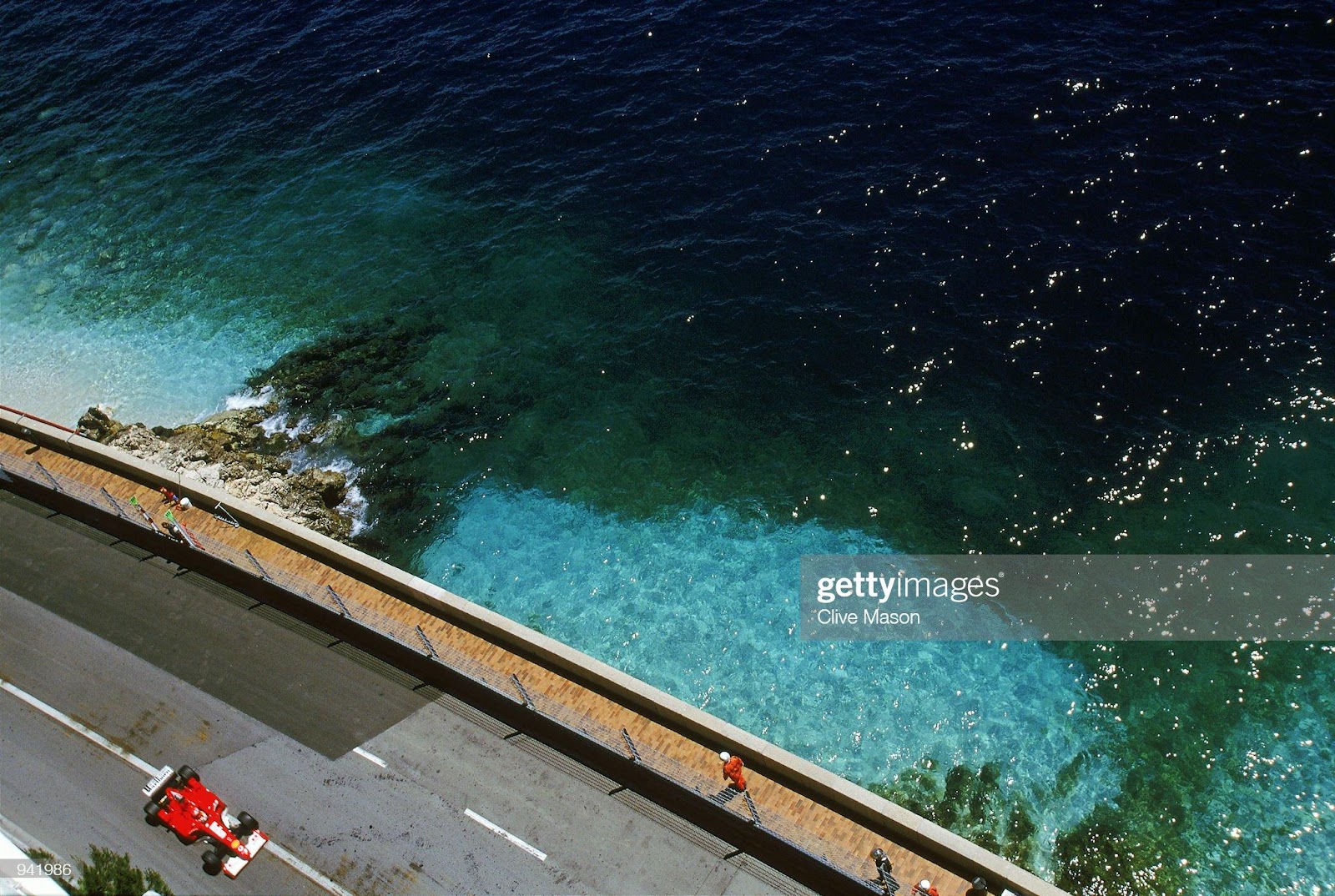
Ferrari driver Michael Schumacher in action during the 2002 Monaco F1 Grand Prix held at Monte Carlo, Monaco on May 26, 2002. Photo by: Clive Mason/Getty Images.
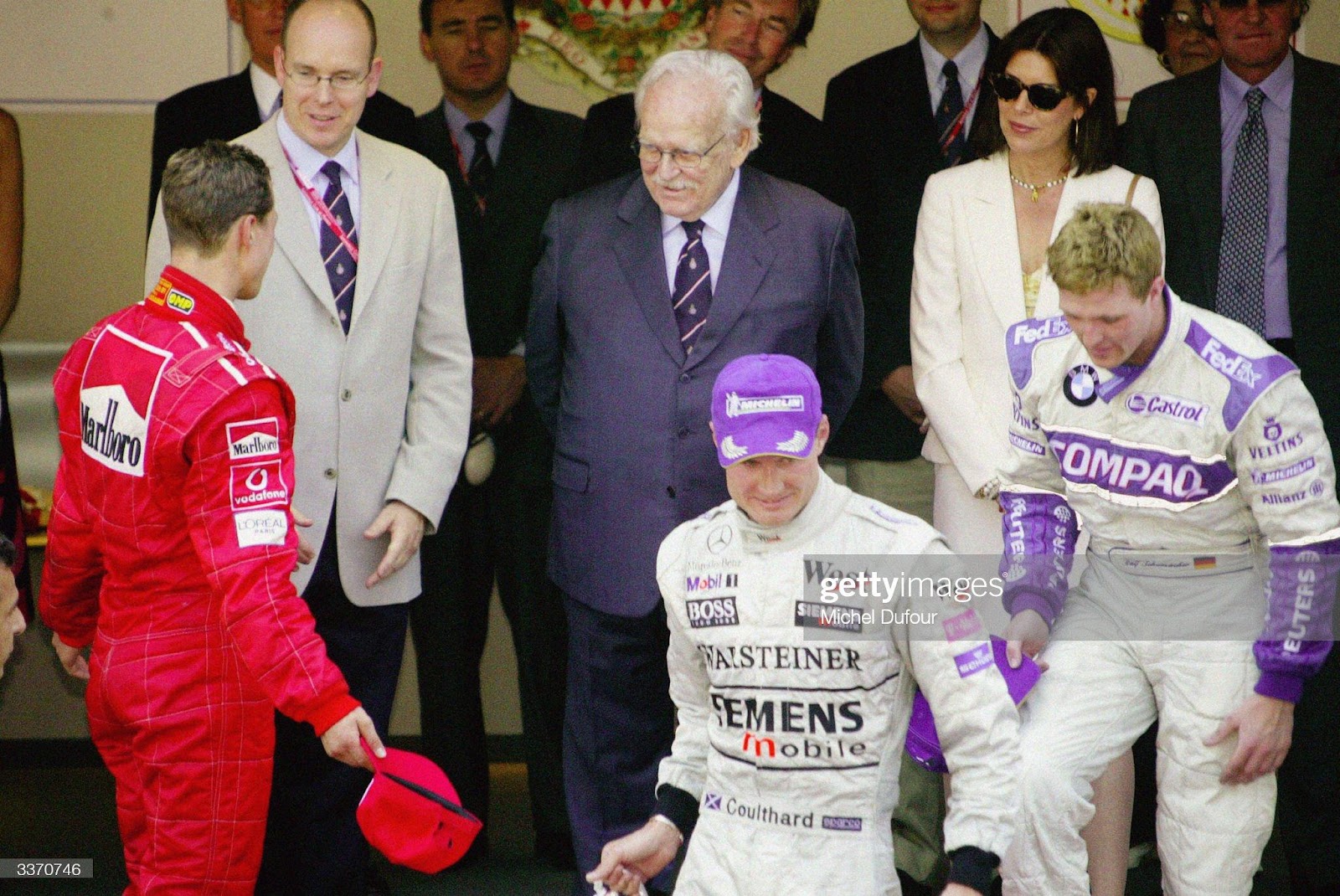
Prince Rainier III of Monaco (1923 - 2005) with daughter Princess of Hanover Caroline and son Prince Albert meet Ferrari driver Michael Schumacher after the Monaco F1 Grand Prix held on May 26, 2002 in Monte Carlo. Photo by Michel Dufour/WireImage.
In the 2002 book, "Formula 1, The Autobiography", Senna is quoted speaking about the race in Donington: "people later said that my win at the wet in Donington in '93 was my greatest performance - no way! I had traction control! It was a good win, sure, but, compared with Estoril '85, it was nothing, really." If they are under pressure I would give Senna the edge. Looks like Ayrton can control himself better, but not for much. I think on tactics Schumacher has little bit the edge. Of course he has a team around him, but he was so superb with those things. He was an exceptional racing driver and he worked for a team that gave him all the benefits of being an undisputed number one, and he exploited that. He can perform and transform in a race and can deliver a tactic. Senna, sadly, couldn't show us this in the refueling era (remember, 1994 was the first year). As a team man Schumacher is few steps higher than Senna, because of his capacity to transform a team, first Benetton then Ferrari, which Senna never did and never had the force and desire to do. Michael criticisms to the team are constructive where Senna’s were destructive. Senna always goes for the better team and when he leaves the team, it is not better than when he arrives. McLaren, Lotus and Williams are an example of this. With Schumacher the opposite happens, he improves the teams. I will quote the words of one of the most respected voices in F1, Sir Jackie Stewart: “Schumacher’s greatest feat was not winning seven world titles, but turning Ferrari into Formula One’s best team. Michael brought Ferrari from 21 years of not winning anything to being champions many times. I put that down much more to him than President Luca di Montezemolo or team boss Jean Todt. Without Michael Schumacher it would not have happened. Generally speaking, I think it’s true to say he re-shaped Ferrari and made the Ferrari the car it is today.“ Alan Henry, a GP reporter, working in Formula 1 since the early 1970s, wrote: "Schumacher remains the most complete driver in F1 today. Apart from the dazzling car control, Michael rules his Italian team with a psychological rod of iron, taking as much responsibility for technical decisions as he does for capitalizing on them during the race. Jackie Stewart believes that the man who eventually eclipses Schumacher is not yet even in F1. He could be right." It is a fact that Schumacher, like stated before, transformed teams into winners and champions.
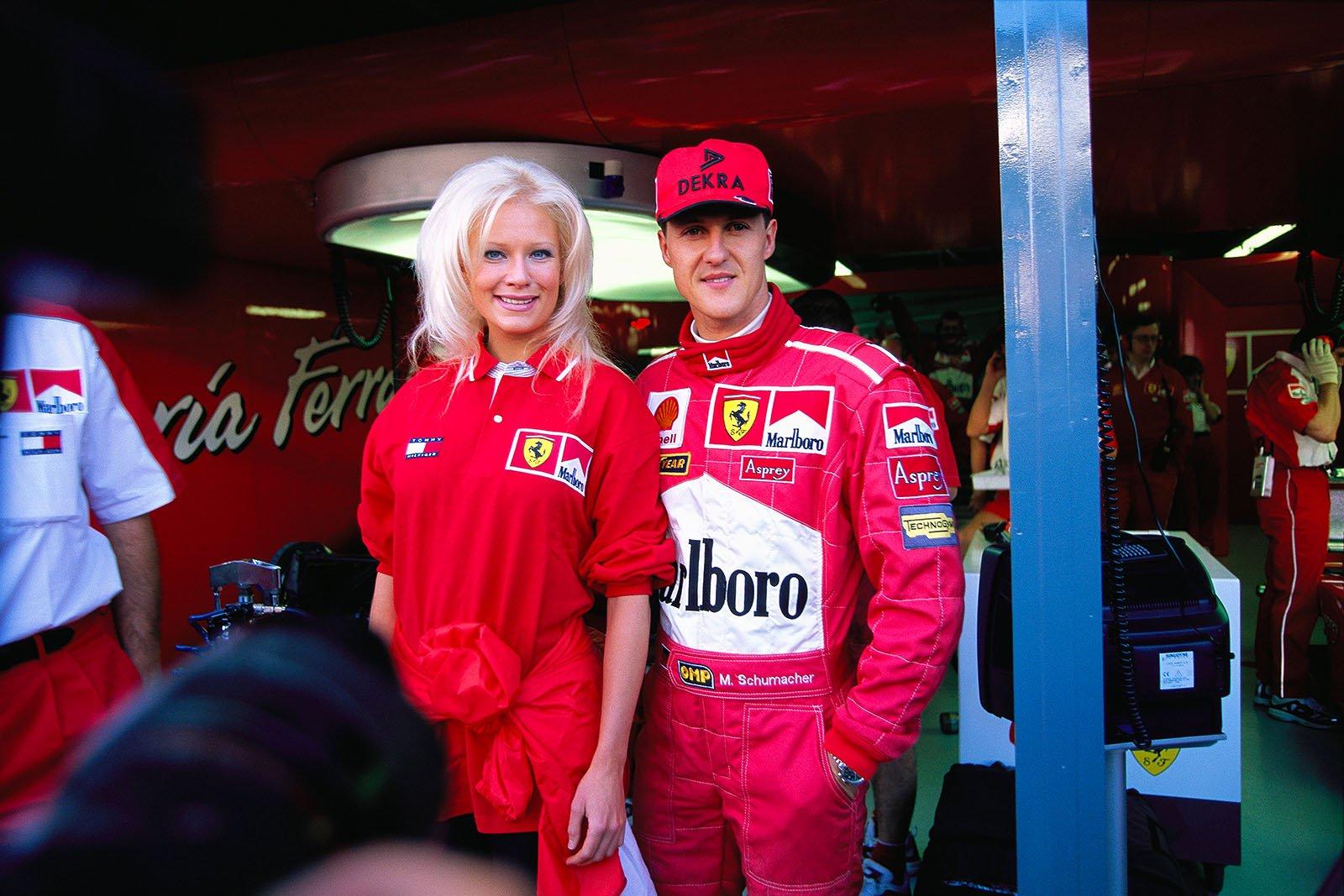
Weekend vibes with Michael Schumacher and the lovely Linda Lampenius at the 1998 Italian Grand Prix in Monza. Photo by Rainer Schlegelmilch.
He did it with Benetton and also with Ferrari. He made them better. Of course he has a good team around him, but to be number one in any team, you have to earn it. You have to perform. No team in the world will give you number one status if you are slow and scrappy driver. Schumacher could choose to drive for Williams in 1996 but he chose (in this period of time scrappy) Ferrari. He could have won more championships if he went to Williams. But he prefers to be a one who build a team around him. And that is a way to achieve your goals and goals of the team effectively and if he wouldn't deliver, he never would have achieved that number one status. Especially in Ferrari. You remember that Ferrari axed Prost few years earlier. Ferrari had suffered a disastrous downturn in the early 1990s, partially as its famous V12 engine was no longer competitive against the smaller, lighter and more fuel efficient V10s of its competitors. Alain Prost had give the vehicles labels such as "truck", "pig" and "accident waiting to happen". At the end of 1995, though the team had improved into a solid competitor, it was still considered inferior to front-running teams such as Benetton and Williams.
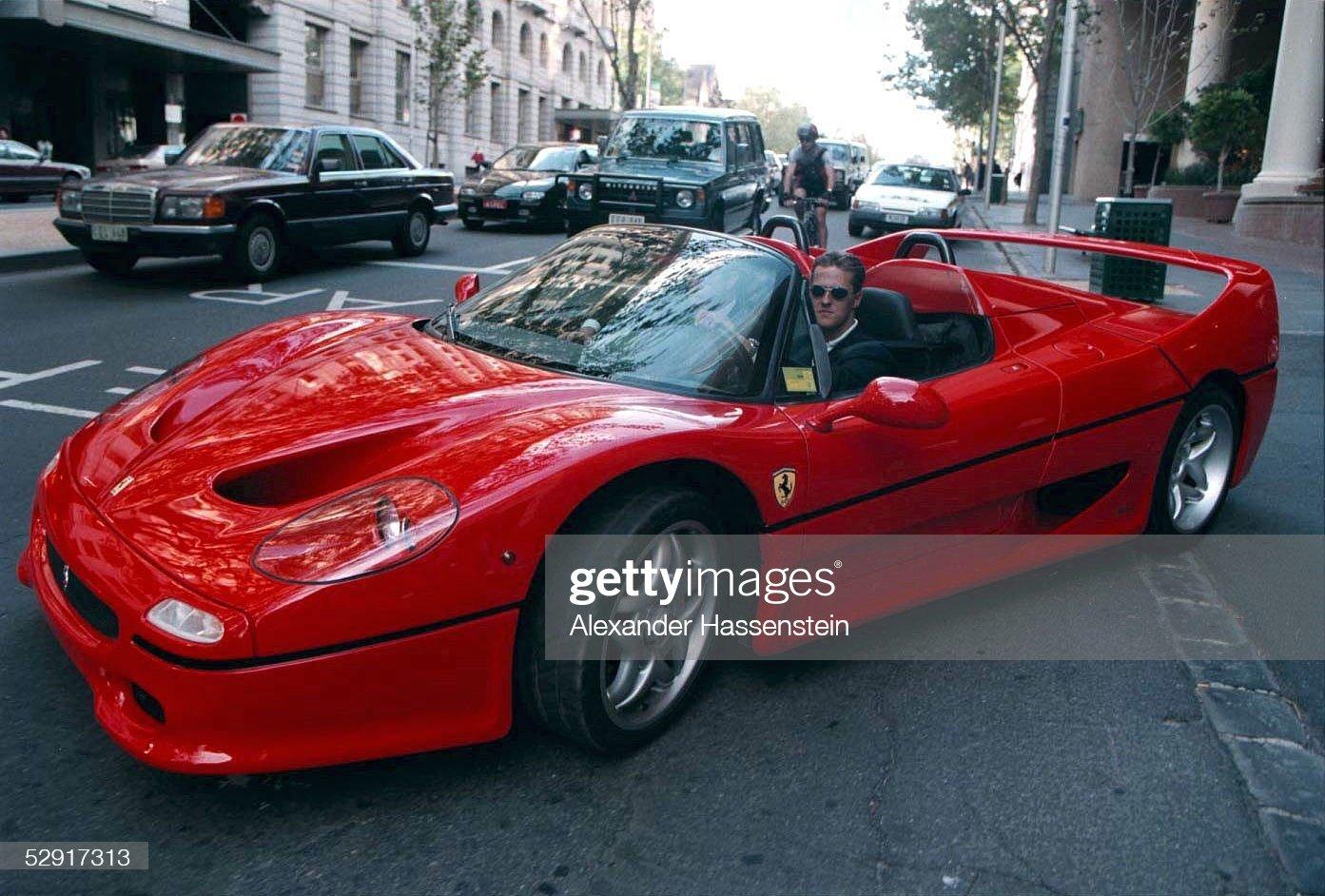
Michael Schumacher on a joyride in the Ferrari on March 07, 1996 at Melbourne for the Australian Grand Prix. Photo by Alexander Hassenstein/Bongarts/Getty Images.
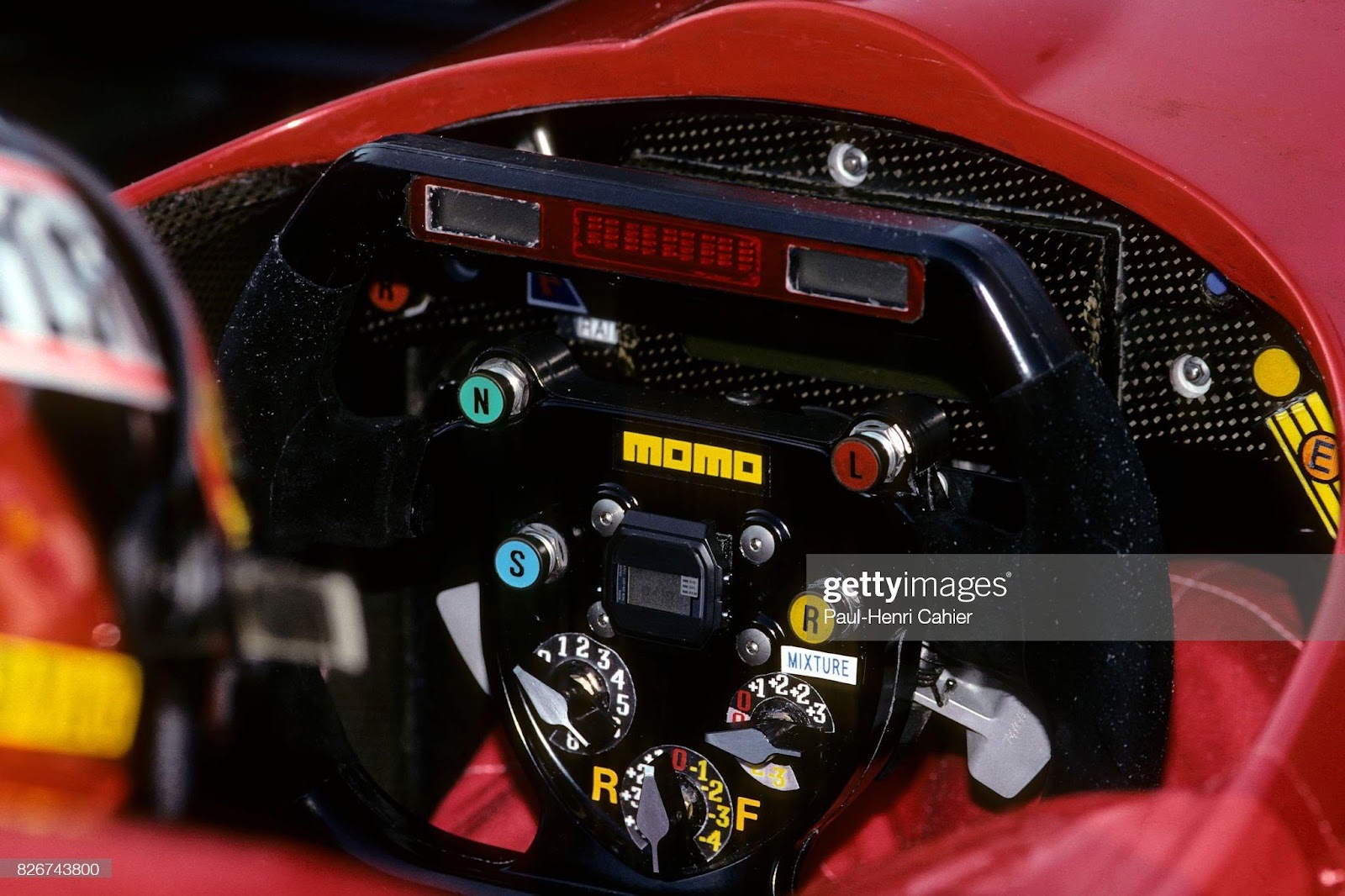
Michael Schumacher, Ferrari F310, Grand Prix of Brazil, Interlagos, 31 March 1996. Photo by Paul-Henri Cahier/Getty Images.
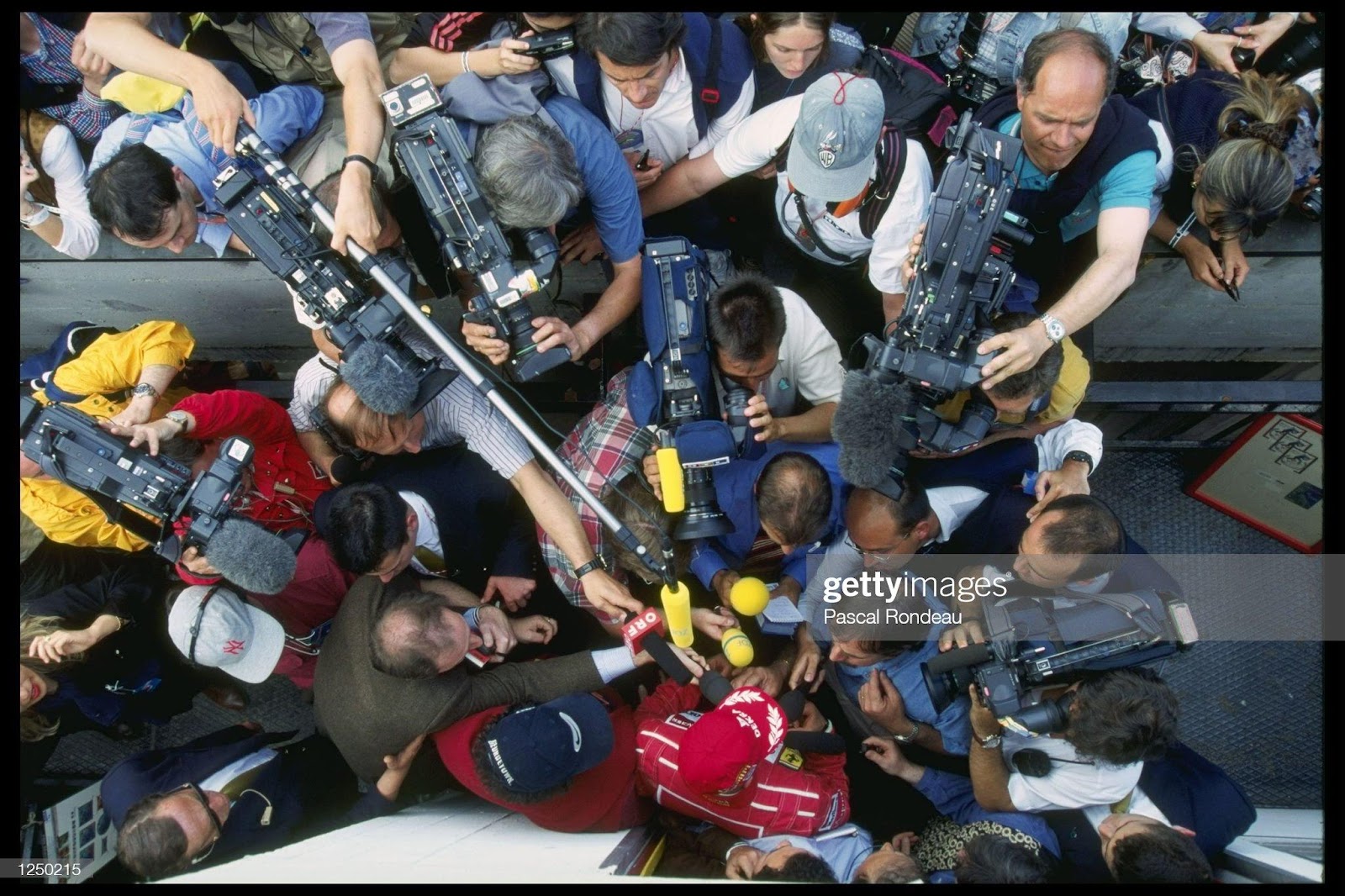
05 April 1996: the press besieges Michael Schumacher during the San Marino Grand Prix in Imola. Credit: Pascal Rondeau/Allsport UK.
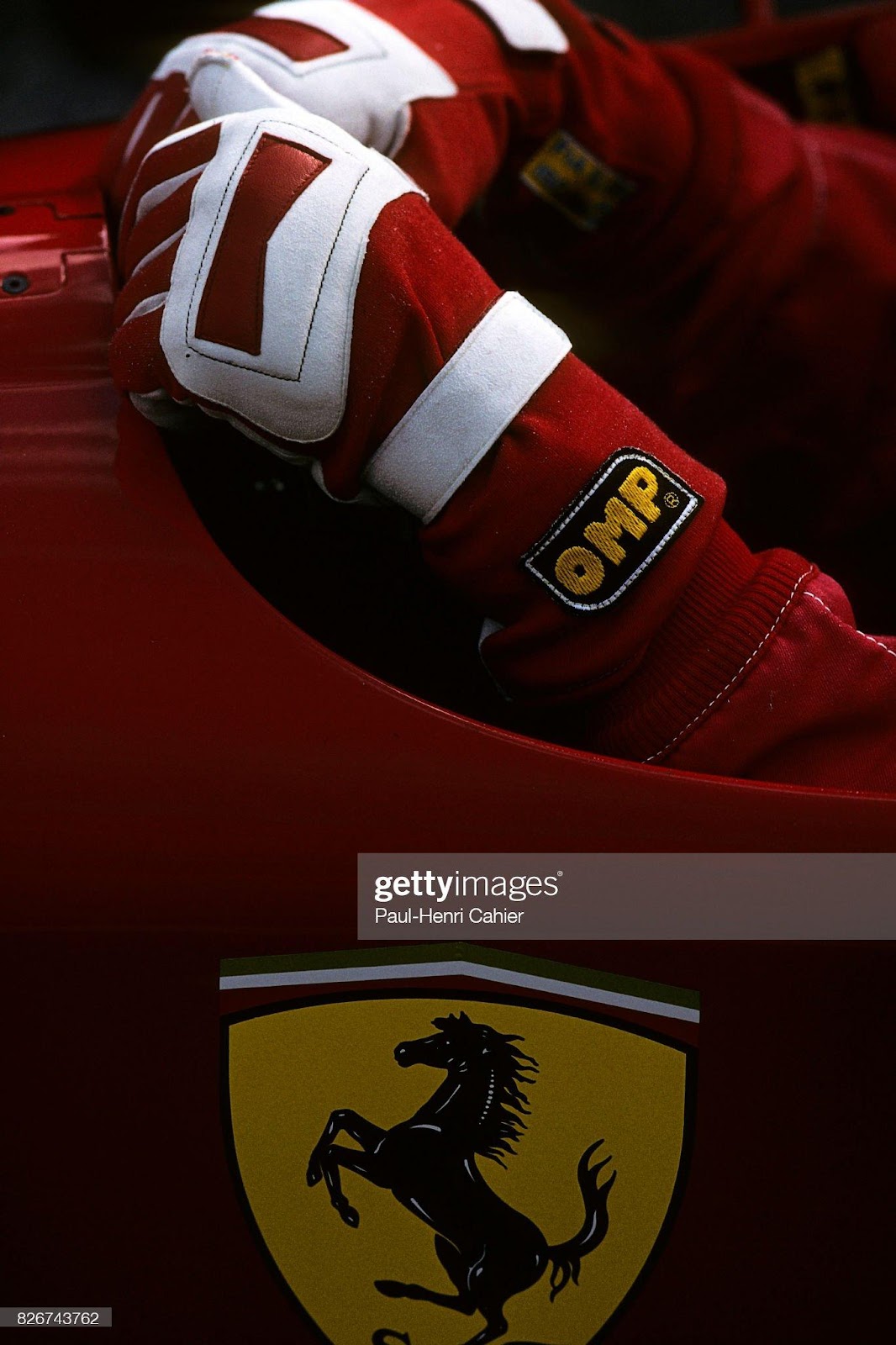
Michael Schumacher, Ferrari F310, Grand Prix of Belgium, Spa-Francorchamps, 25 August 1996. Photo by Paul-Henri Cahier/Getty Images.
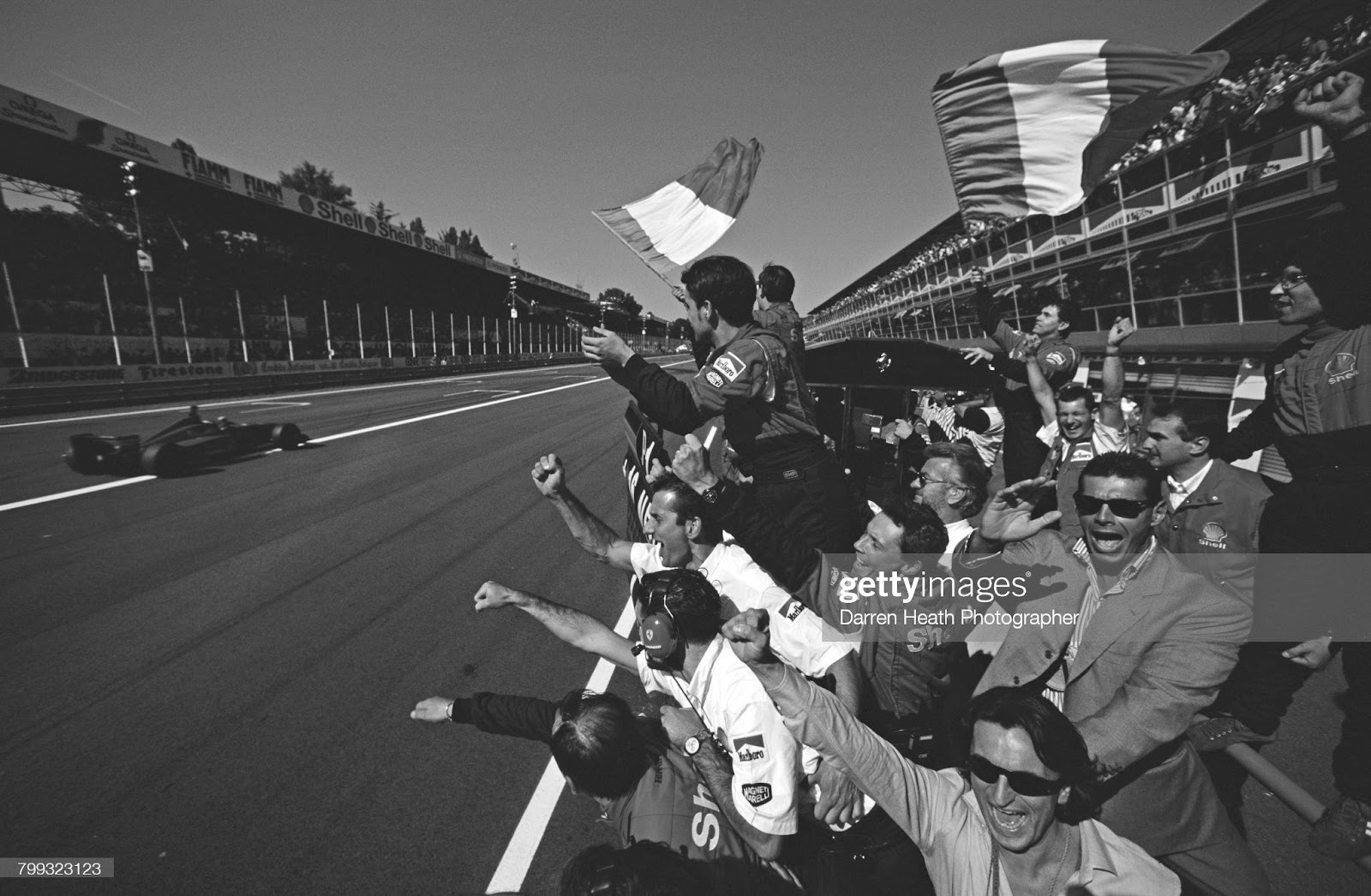
Scuderia Ferrari team members salute Michael Schumacher from the pit lane wall as he takes the chequered flag driving the n.1 Ferrari F310 V10 to win the F1 Italian Grand Prix on 8 September 1996 at the Autodromo Nazionale Monza. Photo by Darren Heath/Getty Images.
During 1996 season, the car had had reliability problems and Schumacher did not finish 6 of the 16 races. But Schumacher never complained really hard on the team, even when it was critical. He was always positive to the team even in bad times. He never slammed the team having a “we win as the team and we lose as the team” attitude.
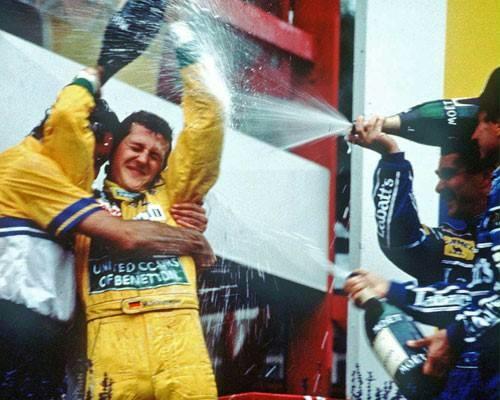
Belgium 92: champagne-drenched joy for Michael Schumacher who wins for the first time in his career at the circuit where he made his debut the previous year, preceding Mansell and Patrese at the finish line.
Steve Matchett, a 51-year-old Englishman who worked as a Formula 1 mechanic for the Benetton team from 1990 to 1998, in his excellent autobiography, 'The Mechanic's Tale', says: "his rapture at winning that race (his first win at Spa 1992) is something that he has continued to show with every successive win. Here is a man who delights in winning and takes no win for granted. He understands that to cross the finish-line ahead of all the others involves a massive amount of effort – effort by the whole team, as well as the driver – a simple fact that some other drivers have clearly forgotten. On the occasion of that first win, as with each of his subsequent wins, Michael's sheer happiness is recognition of all that team effort, from the work of the fabricators, the machinists, the composite specialists, the electricians, the mechanics and the drawing office. The toil of hundreds is reflected in the utter joy of his podium celebrations. On returning to the garage he shook everyone by the hand, thanking us all individually for our help, another genuine show of appreciation that would continue with each subsequent win. I have never felt such an integral part of a team than when working with Michael and sharing in the pleasure of one of our victories. Team was always first.
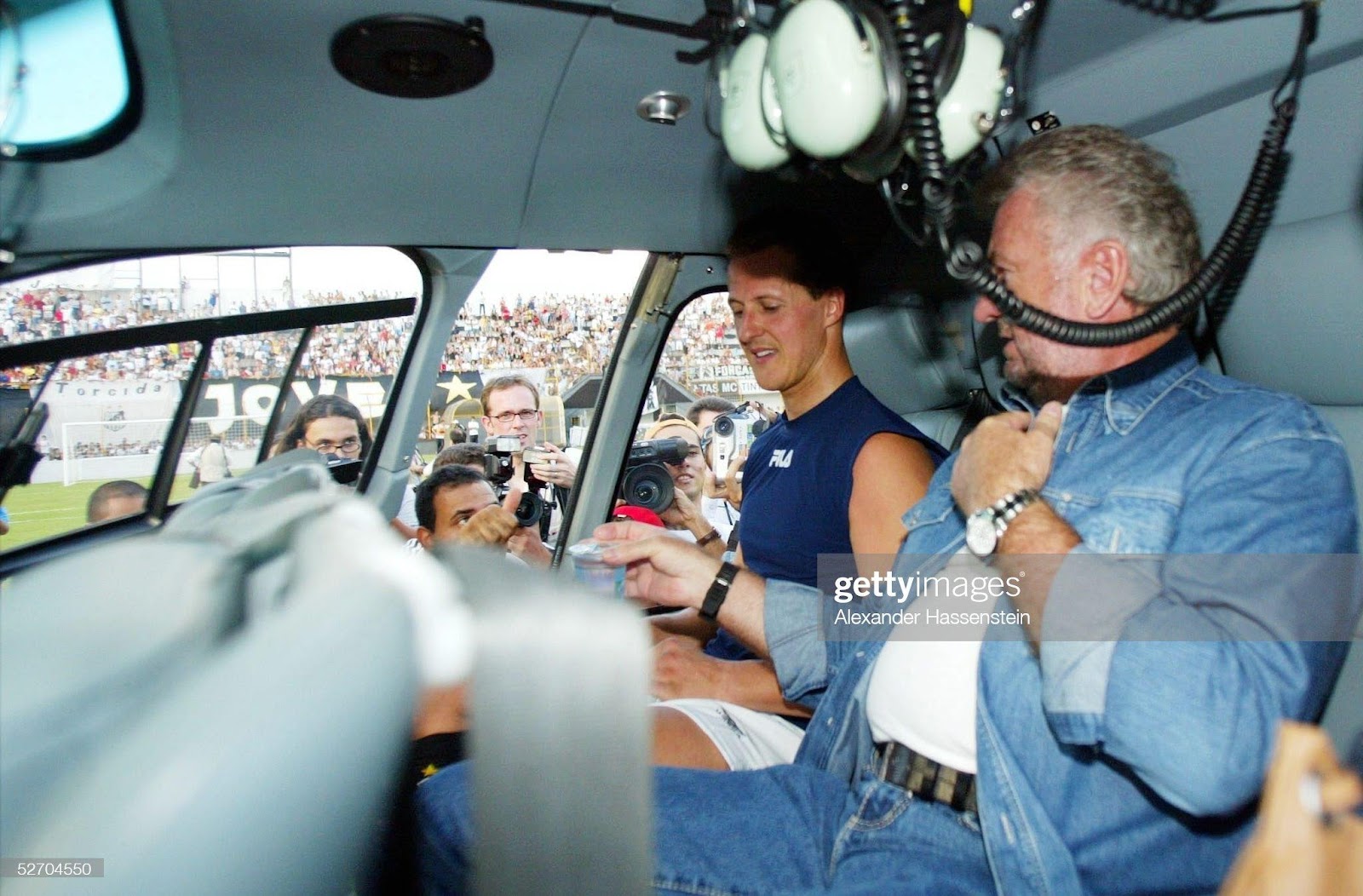
April 02, 2003, Brazilian GP, Santos; UNICEF charity game with Michael Schumacher and FC Santos; Michael Scumacher with his German manager Willi Weber. Photo by Alexander Hassenstein/Bongarts/Getty Images.
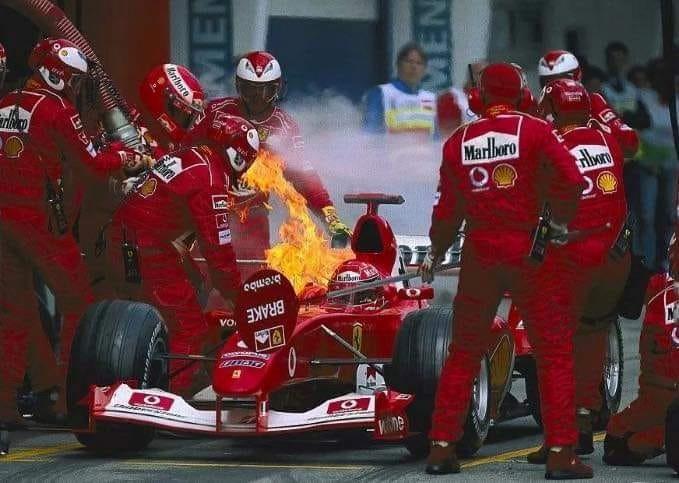
"I work with the best men in the world, I trust them. If they don't tell me I have to get off it means that everything is under control and I'm staying in the car, I'm here to win for them too." Michael Schumacher, Austria, May 18, 2003.
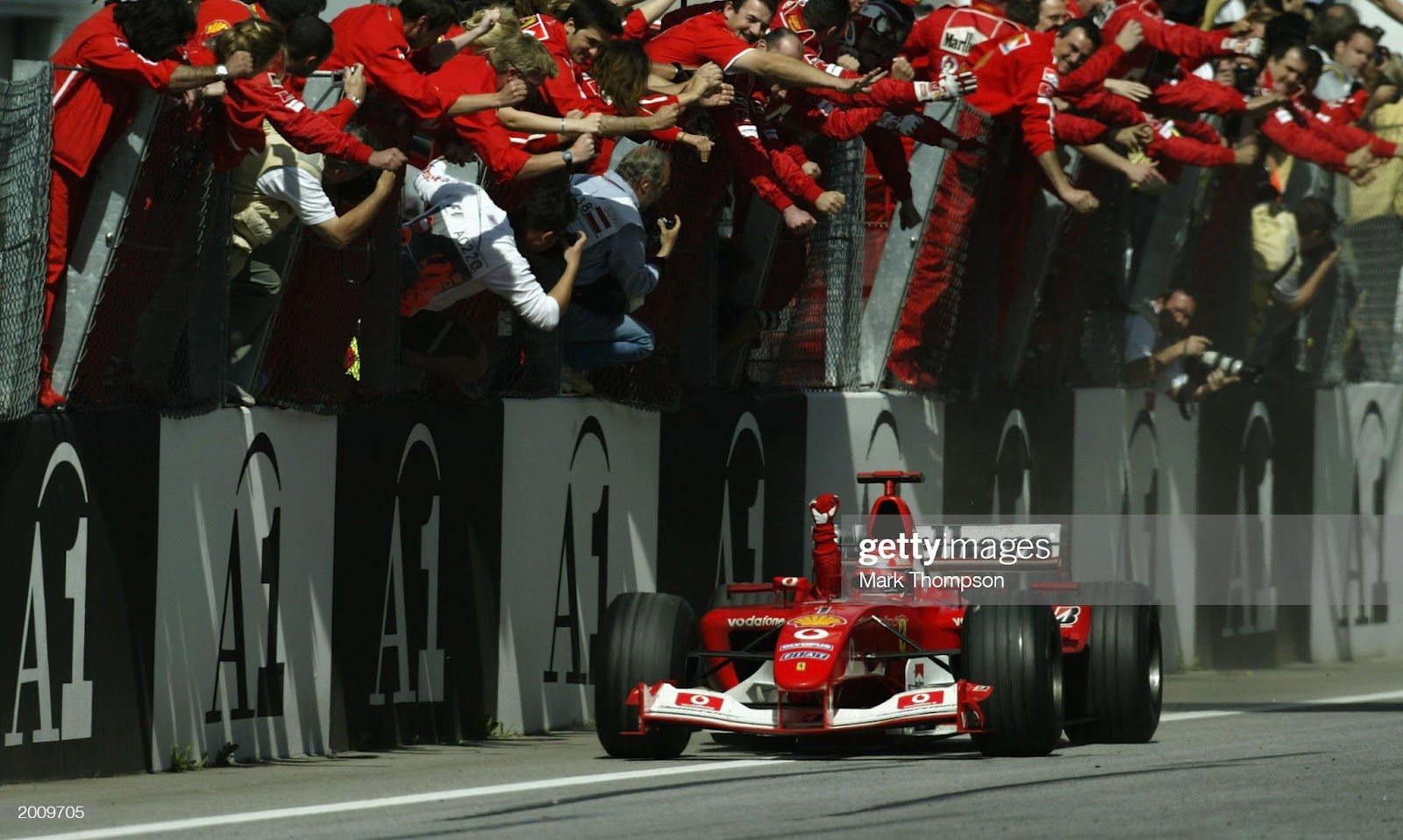
Michael Schumacher, Ferrari, crosses the finish line to win the Austrian Grand Prix on May 18, 2003 at the A1 Ring in Spielberg. Photo by Mark Thompson/Getty Images.
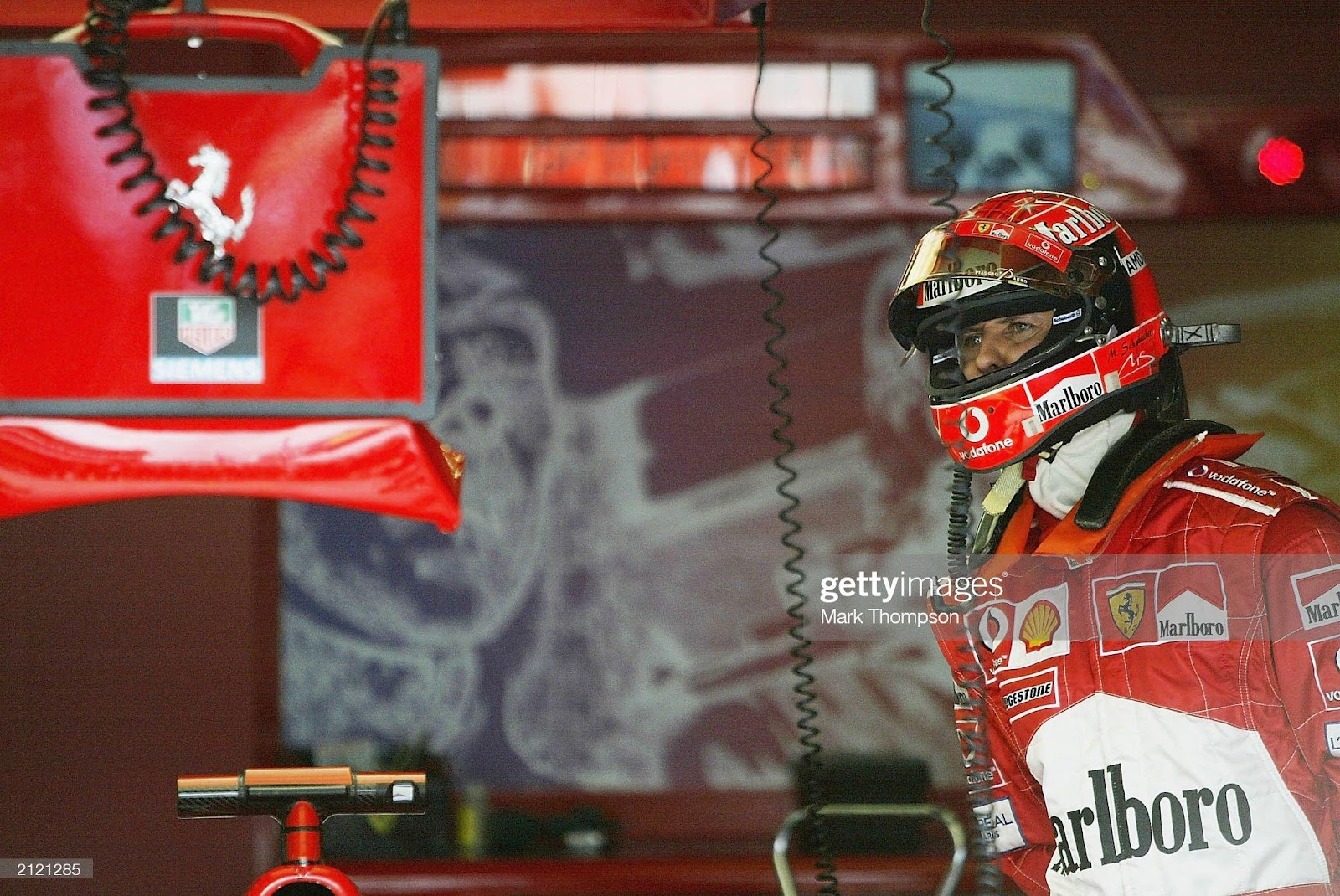
Michael Schumacher, Ferrari, prepares to qualify for the Formula One European Grand Prix at the Nurburgring on June 28, 2003 in Nurburg, Germany. Photo by Mark Thompson/Getty Images.
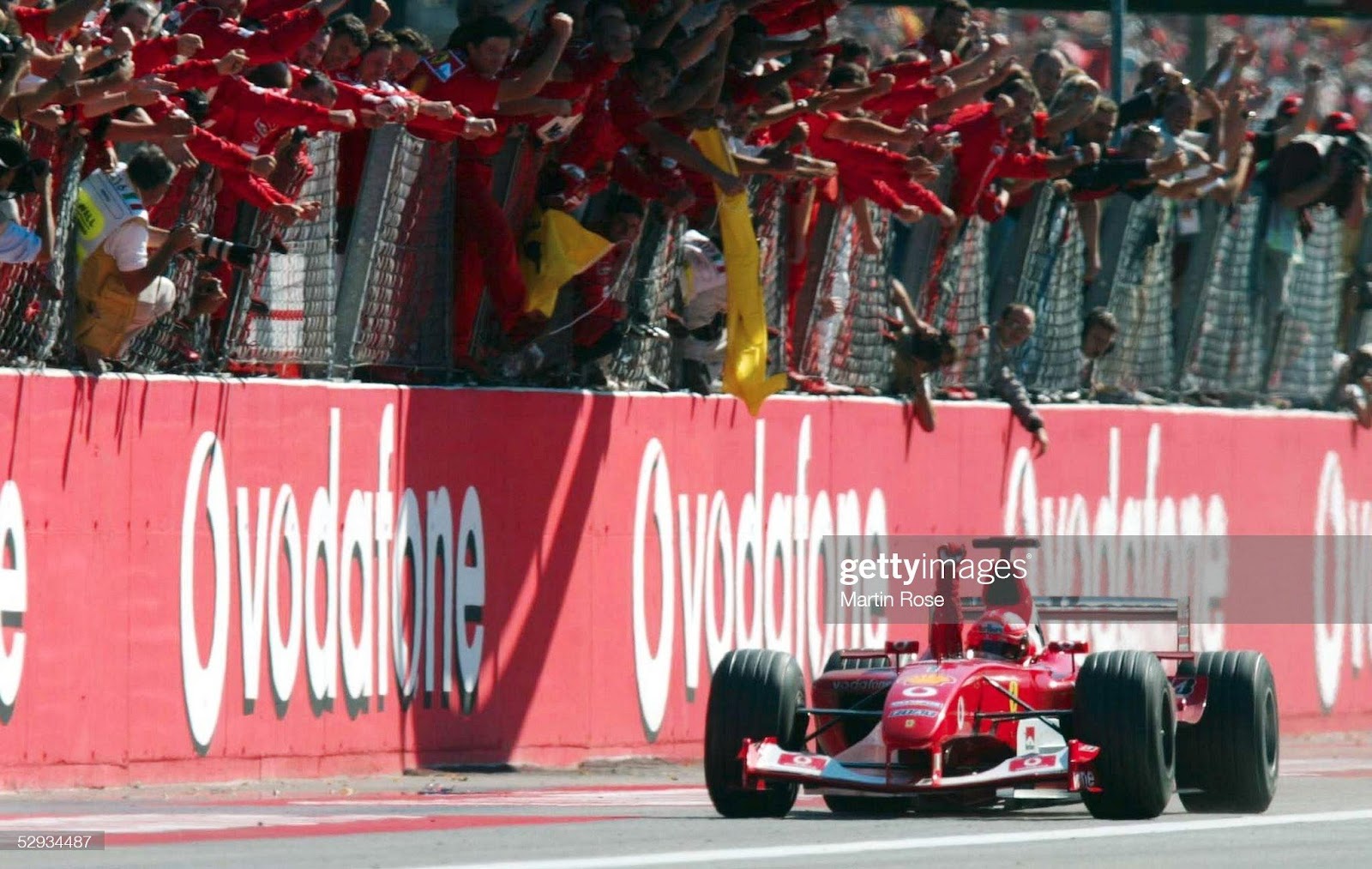
September 14, 2003, Italian Grand Prix at Monza. Michael Schumacher, Ferrari, winner. Photo by Martin Rose/Bongarts/Getty Images.
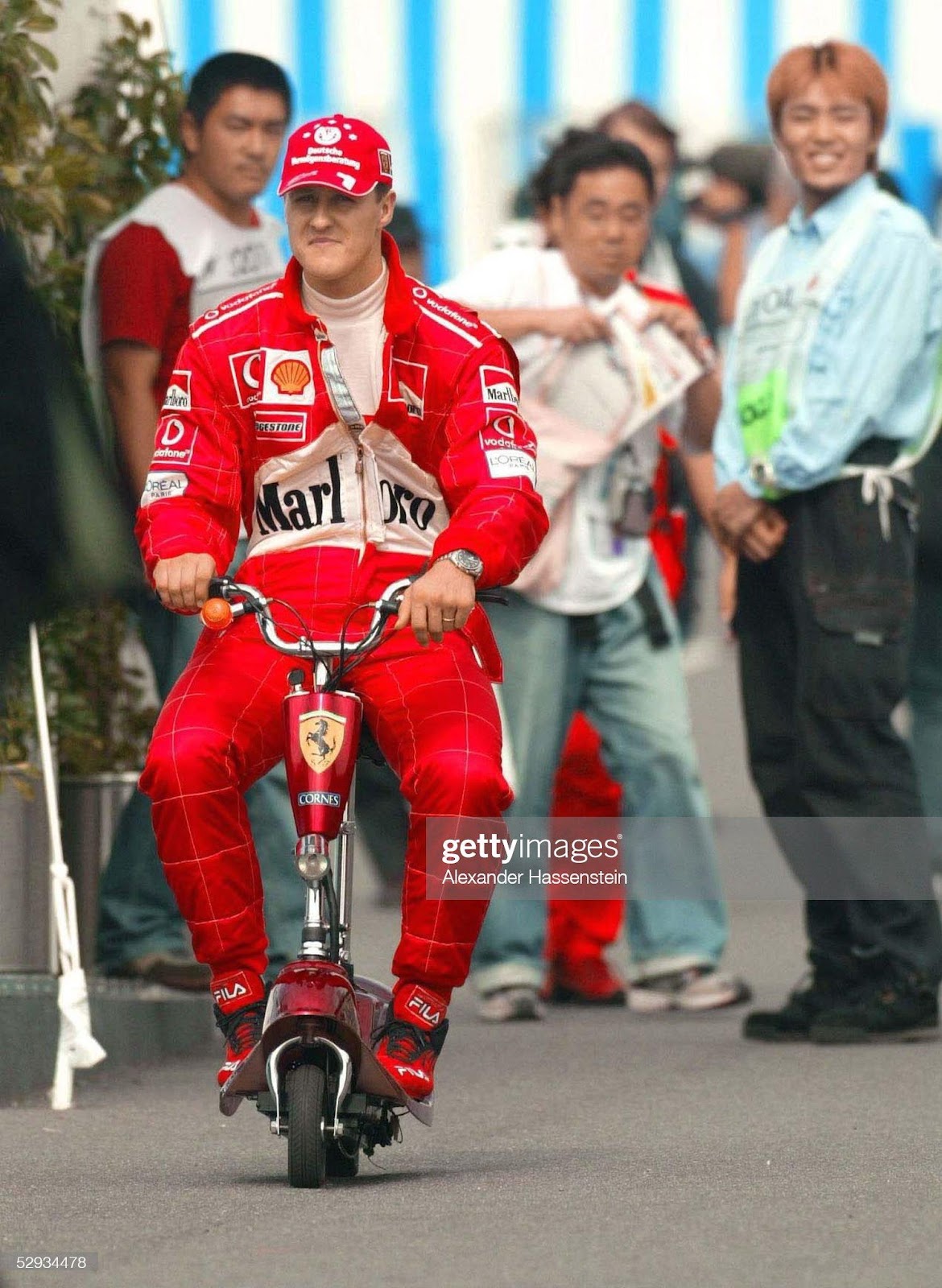
2003 Japanese Grand Prix, Suzuka. Michael Schumacher, Ferrari, drives through the pits on a scooter. Photo by Alexander Hassenstein/Bongarts/Getty Images.
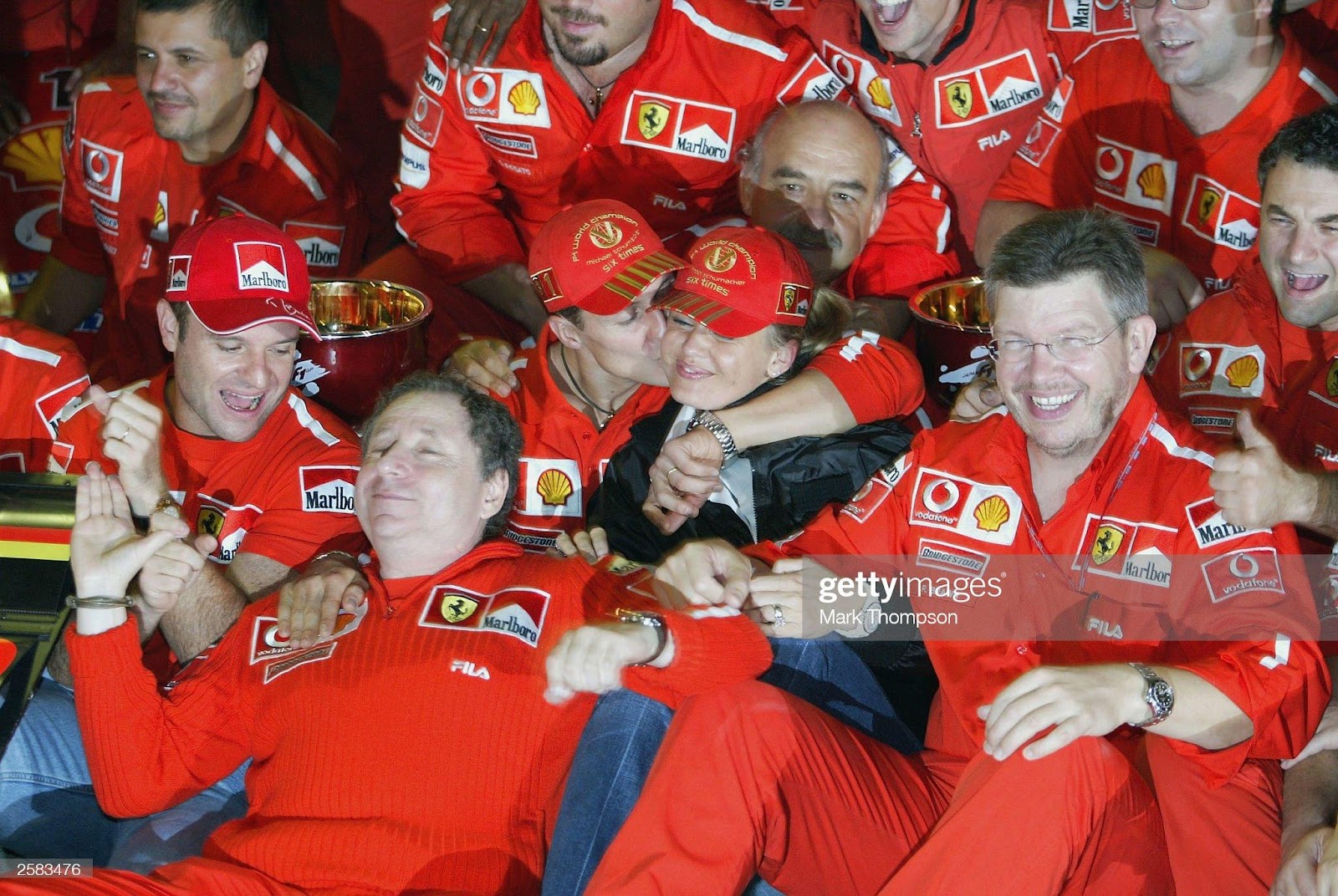
Michael Schumacher, Ferrari, poses with his wife Corinna for a celebratory team photo during the F1 Japanese Grand Prix in Suzuka on October 12, 2003. Photo by Mark Thompson/Getty Images.
But one race that sticks in my mind to proof this was the one he raced hours after his mother died after a tragic accident. San Marino GP 2003. He could have not raced, but he knew the team was desperate for the points. He put aside his grief and won the race. How the hell he managed that with the emotion he was going through is a lasting memory of his heyday.
Jean Todt, who attended the post-race news conference in his driver's place, said the decision over whether to compete had been left to Schumacher: "I think it was very important. He decided together with his brother yesterday to go to Germany and definitely he felt in a way more comfortable having been there. Today again Michael has shown the dimension of what he is as a driver and as a man. It's a shame sometimes that people may want not to understand what he is. Today I think he has done a big demonstration and we are very proud of him." said the Frenchman. "My mom would have liked to see us race today," Michael said after his saddest win.
With nothing to prove, after three years of "pension", he climbed back into the Mercedes AMG cockpit in 2010, as the payback to the team which helped him to enter Formula1.
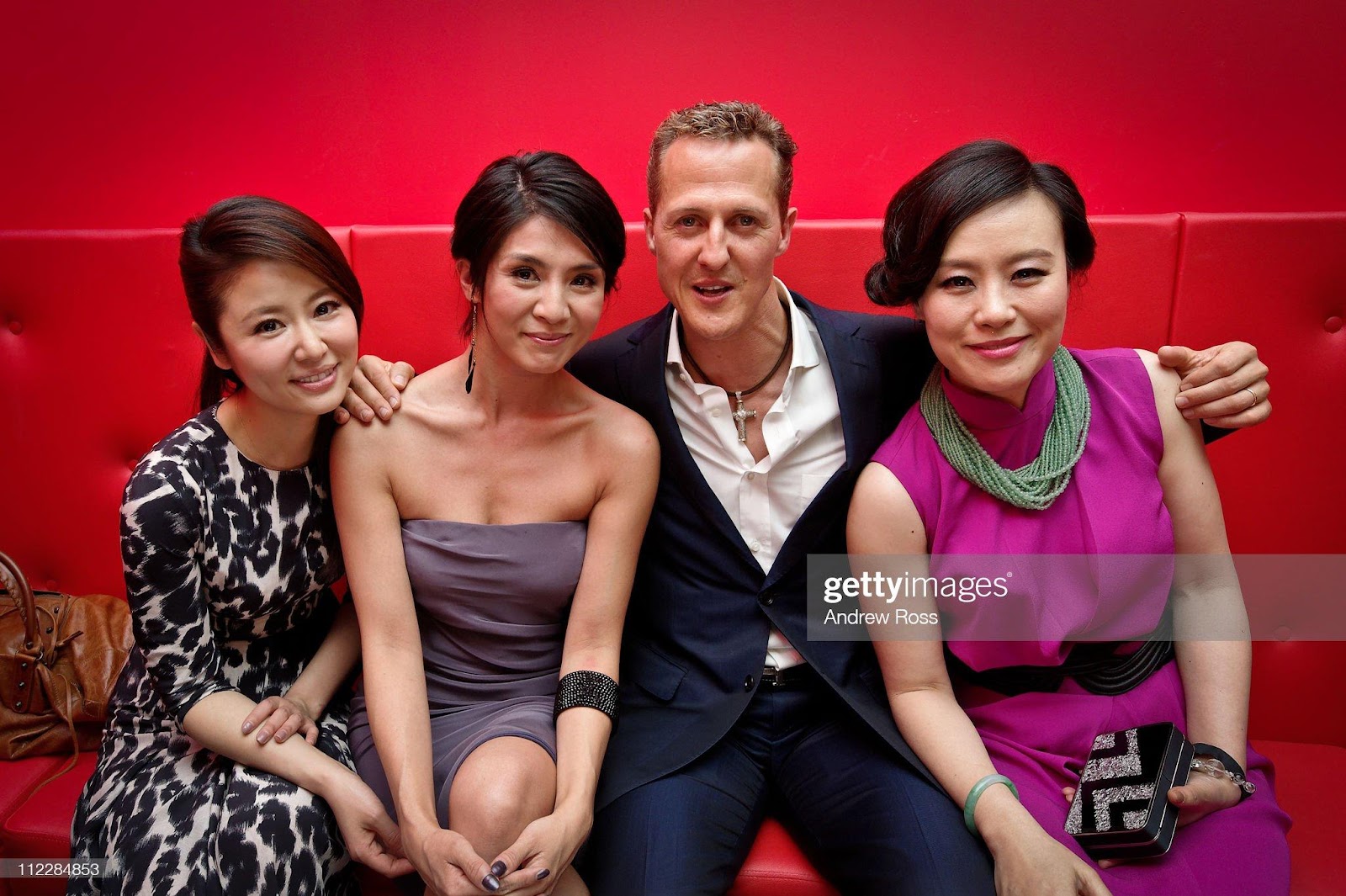
Left to right actress Ruby Lin, actress Charlie Leung, driver Michael Schumacher and actress Vivian Wu at the launch for the Navyboot Msone Collection at MoCa (Modern Museum of Contemporary Art) on April 16, 2011 in Shanghai, China. The event started with an art movie from Michel Comte, followed shortly afterwards by the ceremonial unveiling of the limited luxury sneaker collection from MSone. The celebrations lasted late into the night with Samantha Ronson and Keith Richard's daughter, Alexandra, at the turntables. Photo by Andrew Ross/Getty Images.
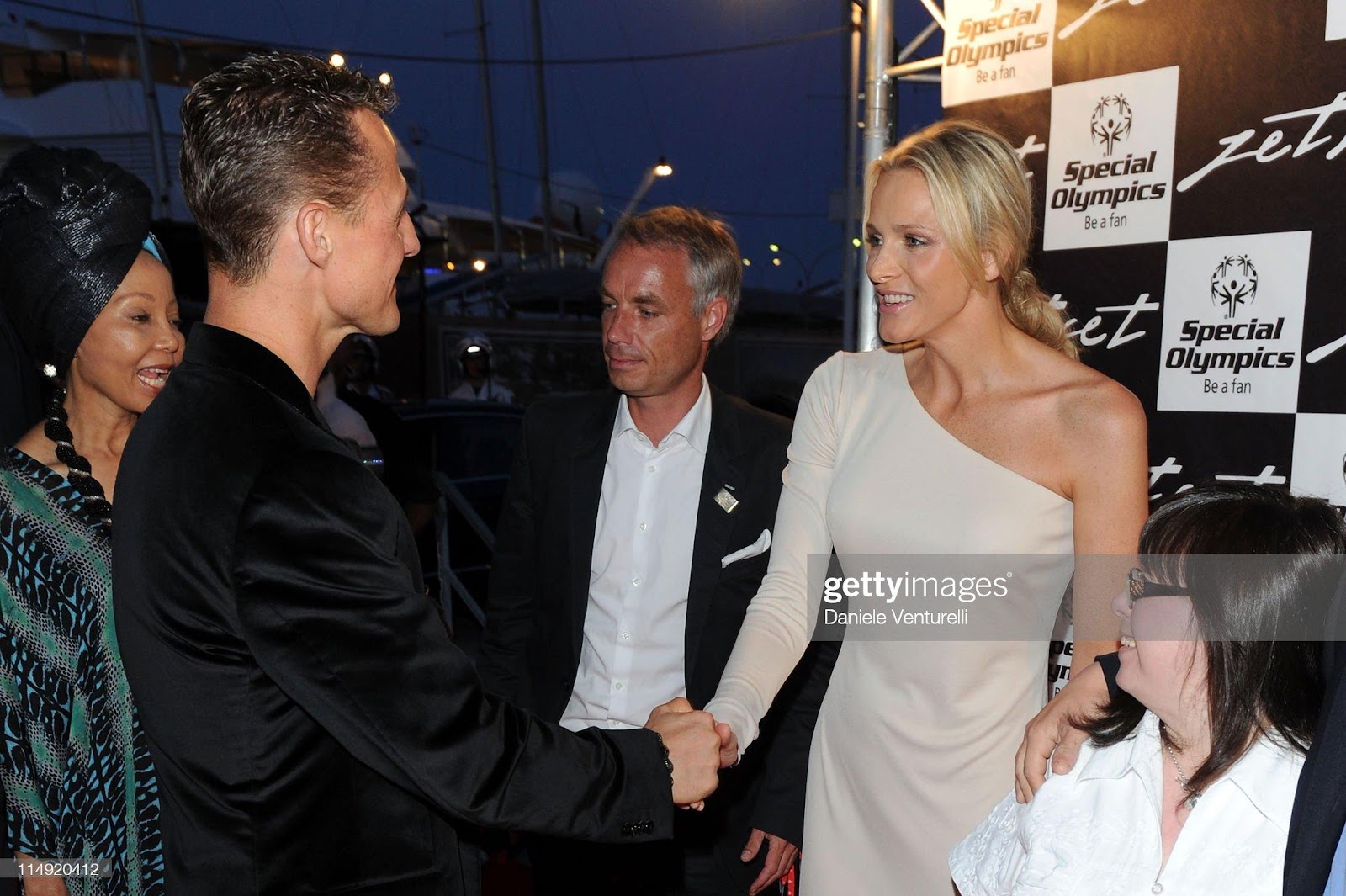
Michael Schumacher and Charlene Wittstock attend the jet set party at the F1 Grand Prix of Monaco on May 28, 2011. Credit: Daniele Venturelli/Contributor.
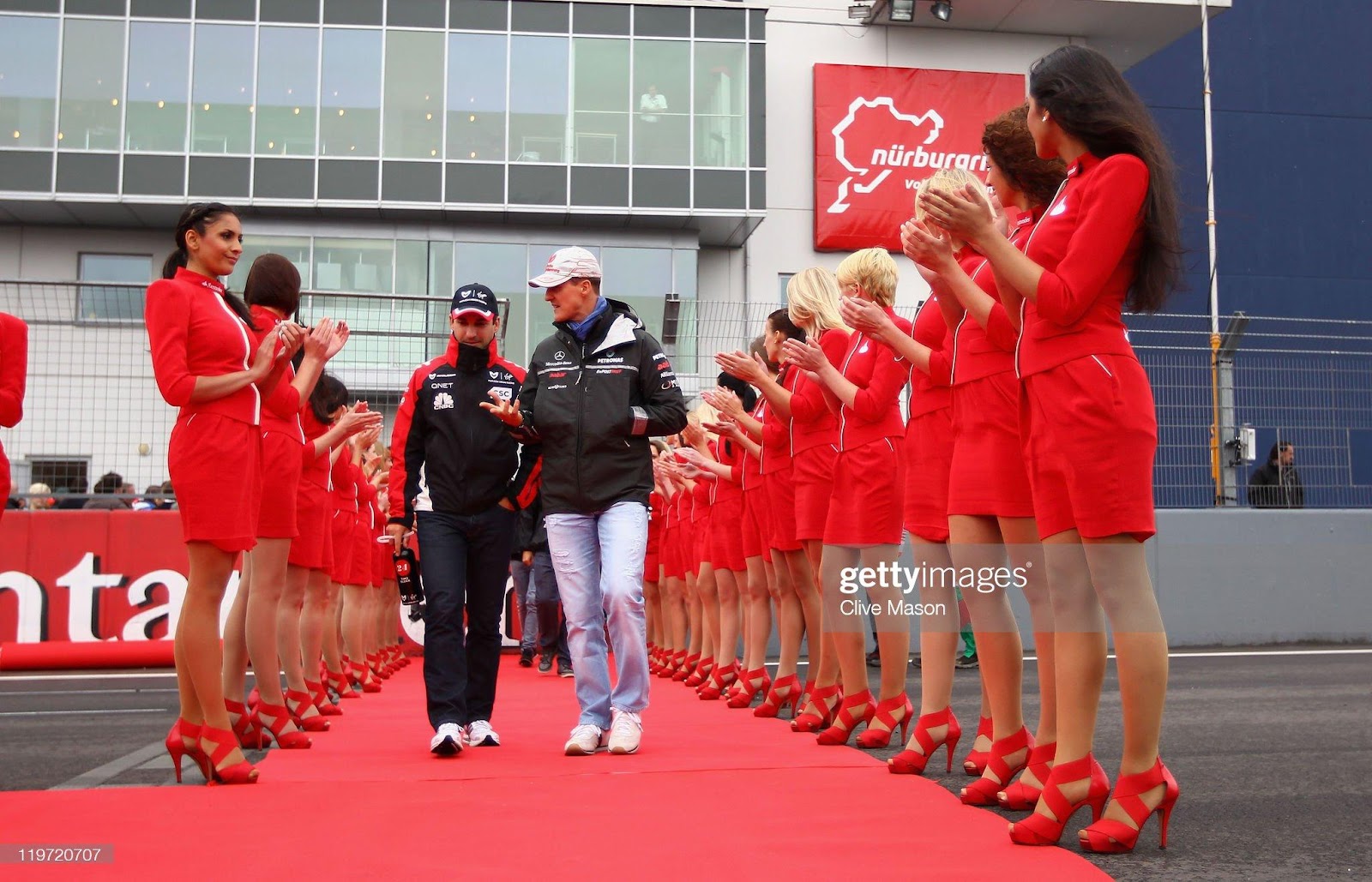
Timo Glock of Germany and Marussia Virgin Racing and Michael Schumacher, Mercedes GP, attend the drivers parade before the German F1 Grand Prix at the Nurburgring on July 24, 2011 in Nuerburg, Germany. Photo by Clive Mason/Getty Images.
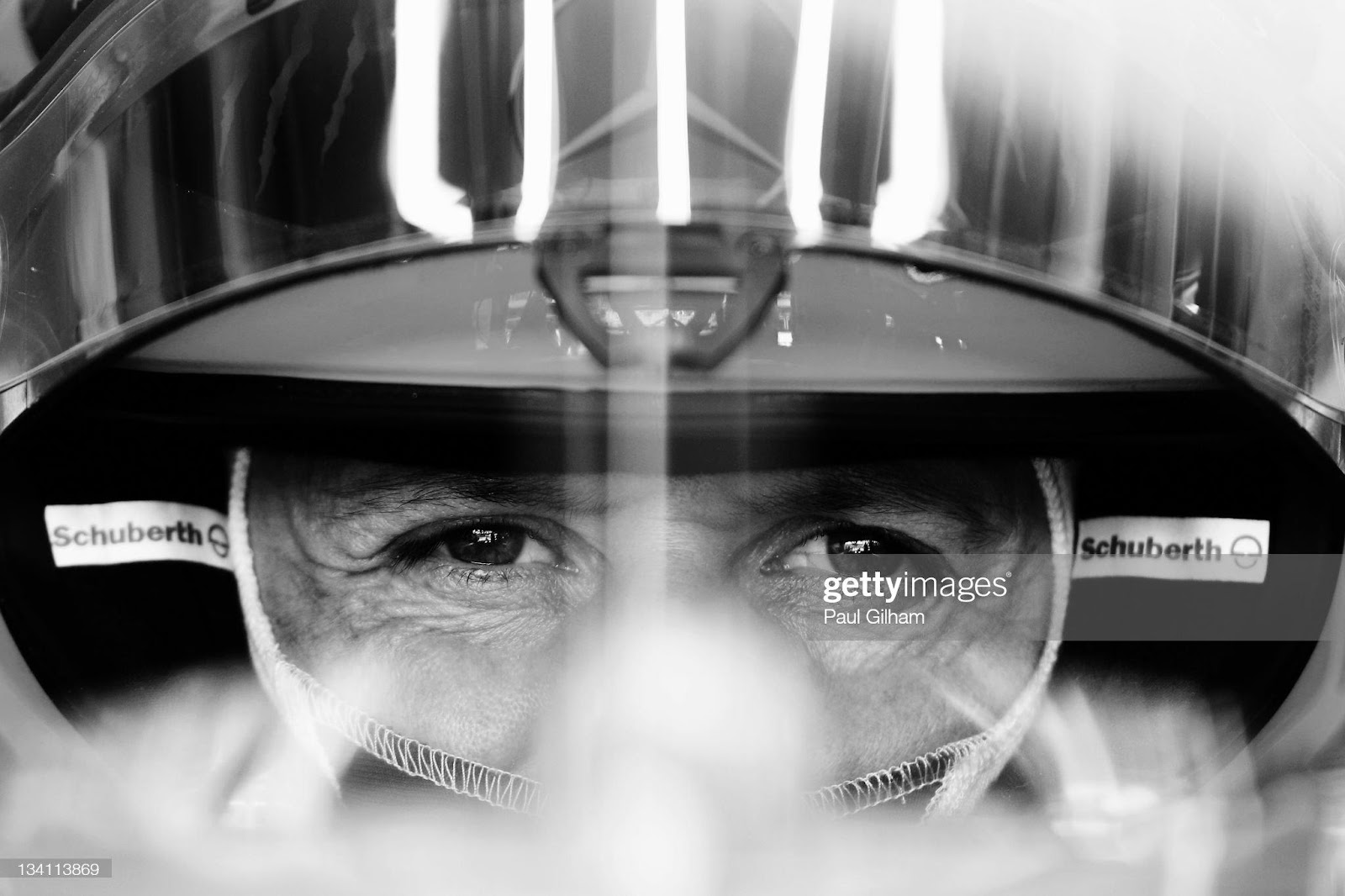
Michael Schumacher, Mercedes GP, prepares to drive during the final practice session prior to qualifying for the Brazilian F1 Grand Prix at the Autodromo Jose Carlos Pace on November 26, 2011 in Sao Paulo, Brazil. Photo by Paul Gilham/Getty Images.
He has failed in his second stint, but only the finest cynics would hold that against him given that Mercedes have not created the car that they were hoping for in the given period of time. Rather he has driven admirably for a 43-year-old.
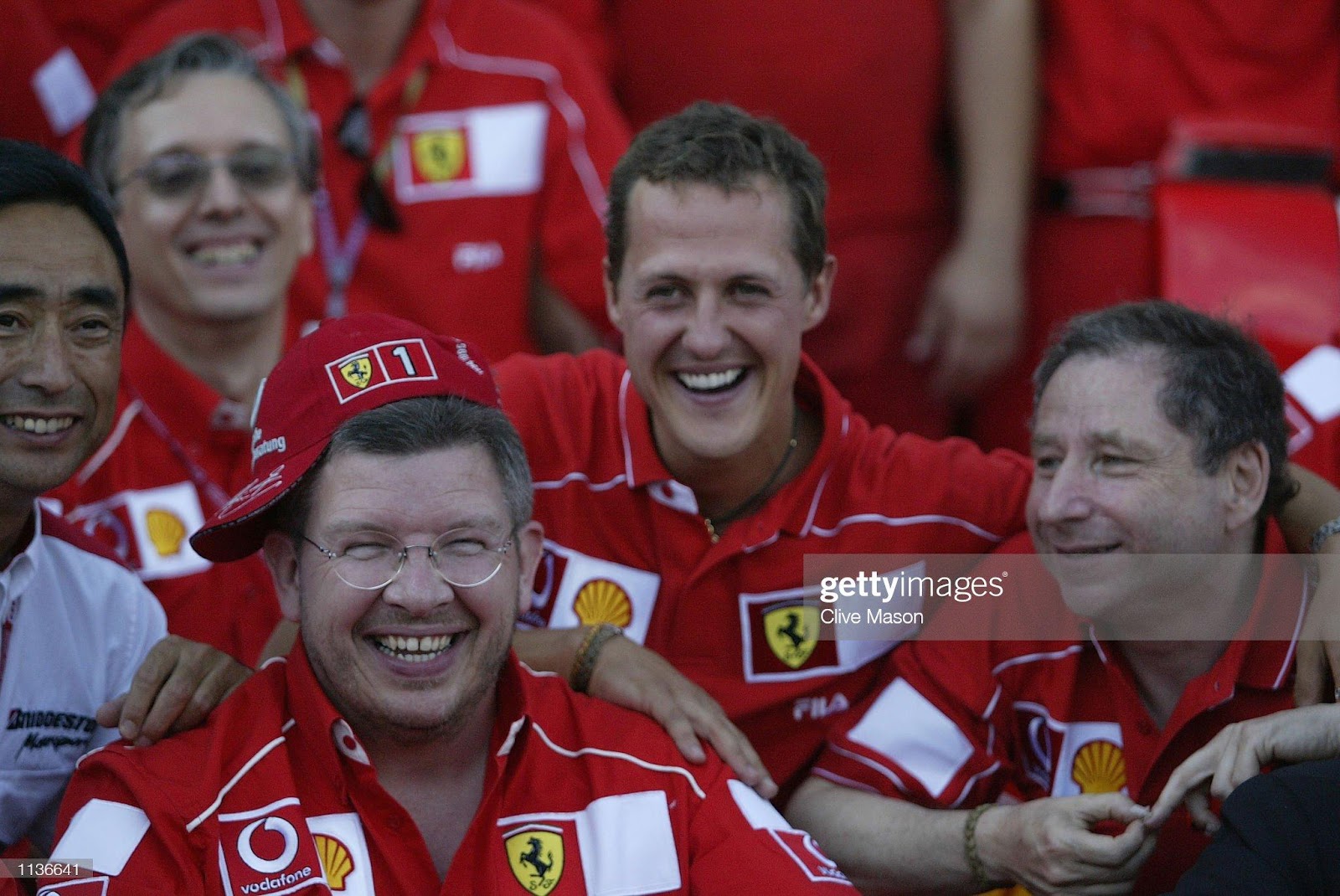
Ross Brawn (left) tries on the new World Champion Michael Schumacher's (center) cap while Jean Todt (right) looks on during a team photo to celebrate the German’s title at the F1 French Grand Prix at Nevers Magny-Cours Circuit, France, on July 21, 2002. Photo by: Clive Mason/Getty Images.
As Ross Brawn, Mercedes team principal, said after Michael announced his final retirement, "I think Michael brought a lot to the Mercedes team in this second period that people don't see. There was a huge contribution behind the scenes. We have not achieved what we wanted to achieve together, and that is frustrating, but I think what we do achieve in the future, Michael will have made a contribution to it. So for me personally, (that is why) he is the greatest racing driver of this century and I was very privileged to work with him." Like Stirling Moss before him, Schumacher is different in this regard. This you can’t say about Senna. Comparing to Schumacher Ayrton was not always that positive on the team. He was upset in 1993, while driving for McLaren, and said some really bad things about his team. This was his character. That's what Hakkinen sad about working with Senna: "I learned a lot from Ayrton. I used to watch Ayrton so closely. I would try to understand what he was doing. I would try to look at him all the time. Ayrton's dedication to racing was incredible and that was the thing that gave him the ability to do what he did. He wasn't a very easy person to work with. I raced with him three times in '93 – from Estoril onwards – and it was very difficult, extremely difficult.“ Hakkinen was the last driver to outqualify Senna, who lost his life only five races later. He sad about that: "it was extremely close, but I beat him. It was a great feeling. I wasn't shouting about it – I was just there doing my job. To drive as fast as possible was my job. He and I had a discussion afterwards. He wasn't very happy about my behavior. He was very upset with me." Senna was visibly pissed-off for starting behind Mika. There was another conflicting situation between Senna and his team. That's happened 1993. Senna demanded to be paid 1 million $ per race by his team McLaren, an amount of money that even then seemed over the top. Ayton was prepared to go right to the edge to get this way. So, he didn't turn up for his next race, San Marino GP 1993 until few minutes before start of the first practice on Friday morning. It was sort of behavior that added fuel to Senna's unpredictable reputation. Like Senna, Fangio moved throughout his career from team to team, exploiting an uncanny ability to predict which was in the ascendant and which in decline, and never letting sentiment get in the way of his decisions. Fangio did not remain loyal to any team. Senna had more raw natural talent than Michael, but Michael can compensate that with tactics and race craft and he learned quickly. Senna and Schumacher both showed a total commitment to success, unmatched by anyone else but Prost. All three worked long into the nights to ensure they were as prepared as they could be. Schumacher in his pomp was undoubtedly one of the very greatest racing drivers there have ever been, a man who was routinely, on every lap, able to dance on a limit accessible to almost no-one else. Schumacher performed miracles with a racing car that stands comparison with the greatest drives of any era. Senna came before Schumacher's time, therefore he reached such a level of skill and greatness earlier, when technology and circuits had not evolved so much, this proving to be harder. Senna was not as physically fit as Michael, as Schumacher was the driver who really brought driver fitness into F1, therefore being so successful in driving yet not as fit, is quite an achievement. The question of who is the better driver has no clear answer and cannot have one. You can only compare them when they actually raced in the same race. It is largely a matter of taste. Decisions about this sort of things rest almost entirely on what philosophers call "counterfactual conditionals," i.e. a series of "what ifs" that depends upon conditions which do not exist. It all comes down to personal feelings and thoughts. If you saw a race with Senna and got this "WOW!" feeling, then you will most likely have him as favourite for all time, since you got this wow feeling with him first. It's like sex. The first time is always special. Same with this feeling.
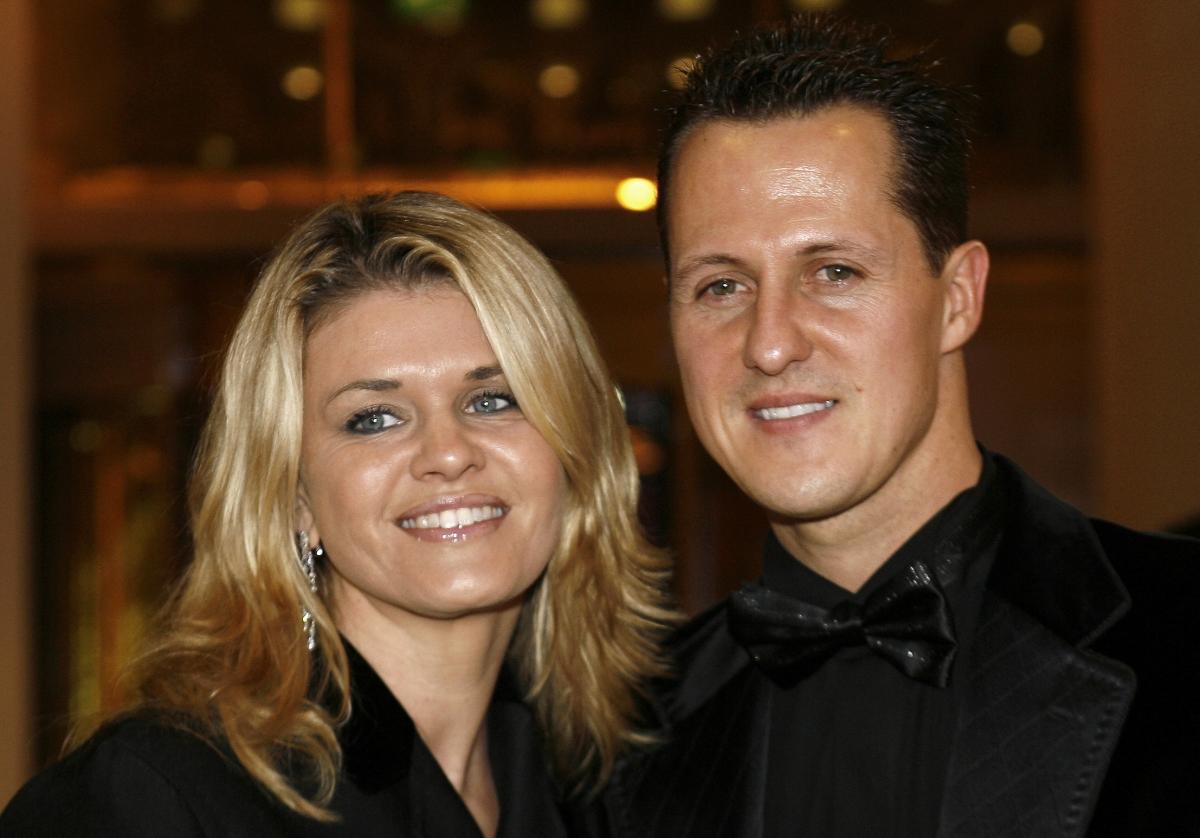
Michael and Corinna.
In August 1995, Michael married Corinna Betsch.
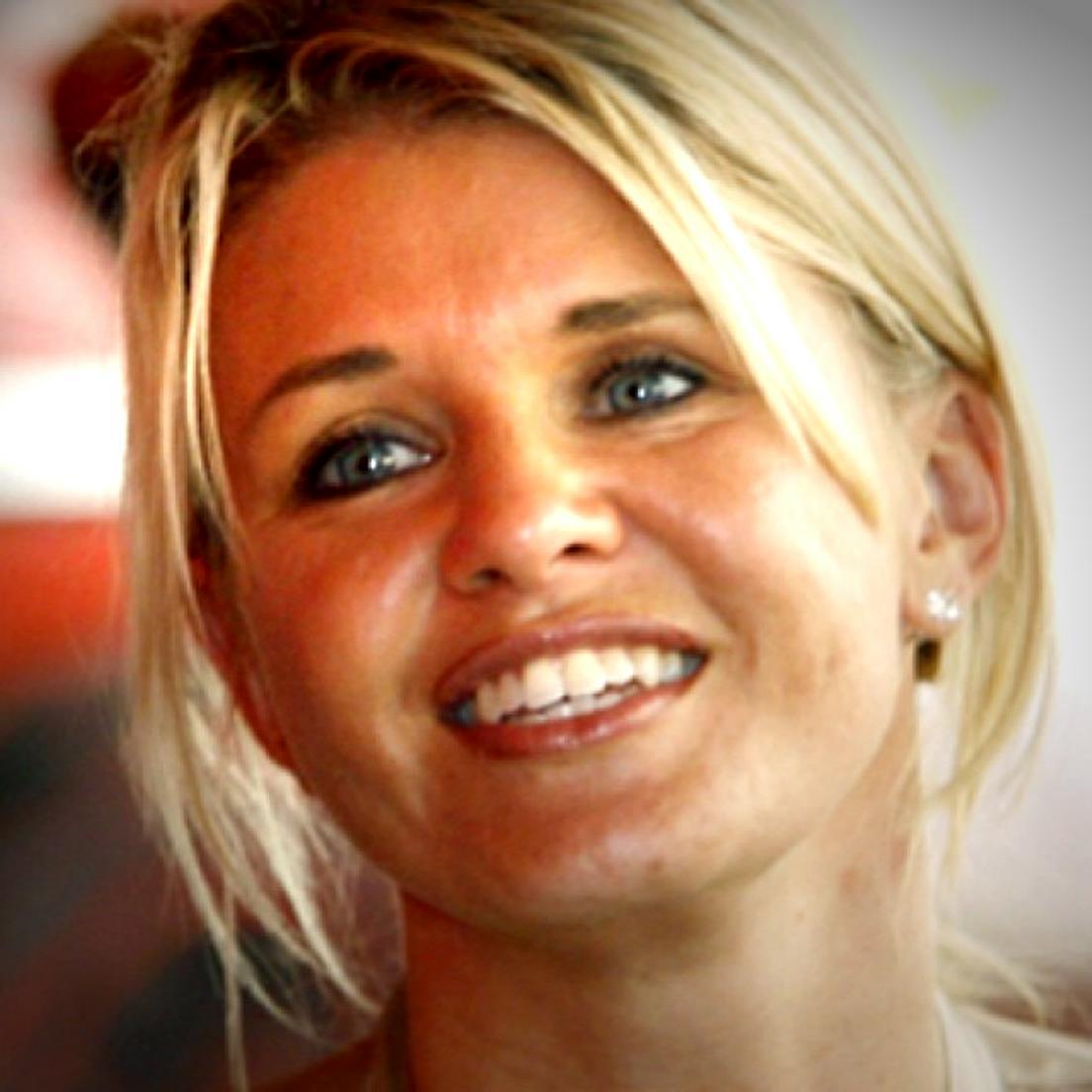
Corinna Betsch.
They have two children, Gina-Maria (born on 20 February 1997) and Mick (born on 22 March 1999). He has always been very protective of his private life and is known to dislike the celebrity spotlight, preferring a simple life. Only his closest friends and confidants know what awaits Schumacher after a motor racing career that has raised millions of dollars for charity. The son of a builder from Kerpen, near Cologne, has donated more than £50 million to projects around the world in the past five years alone. The private Schumacher is a warm family man, and who wants to know that his vast earnings are not all being stashed in offshore accounts. Schumacher is one of the few sportsmen who reached the rarefied stratosphere of fame, in which life is restricted to a circle of just a few trusted friends and relatives.
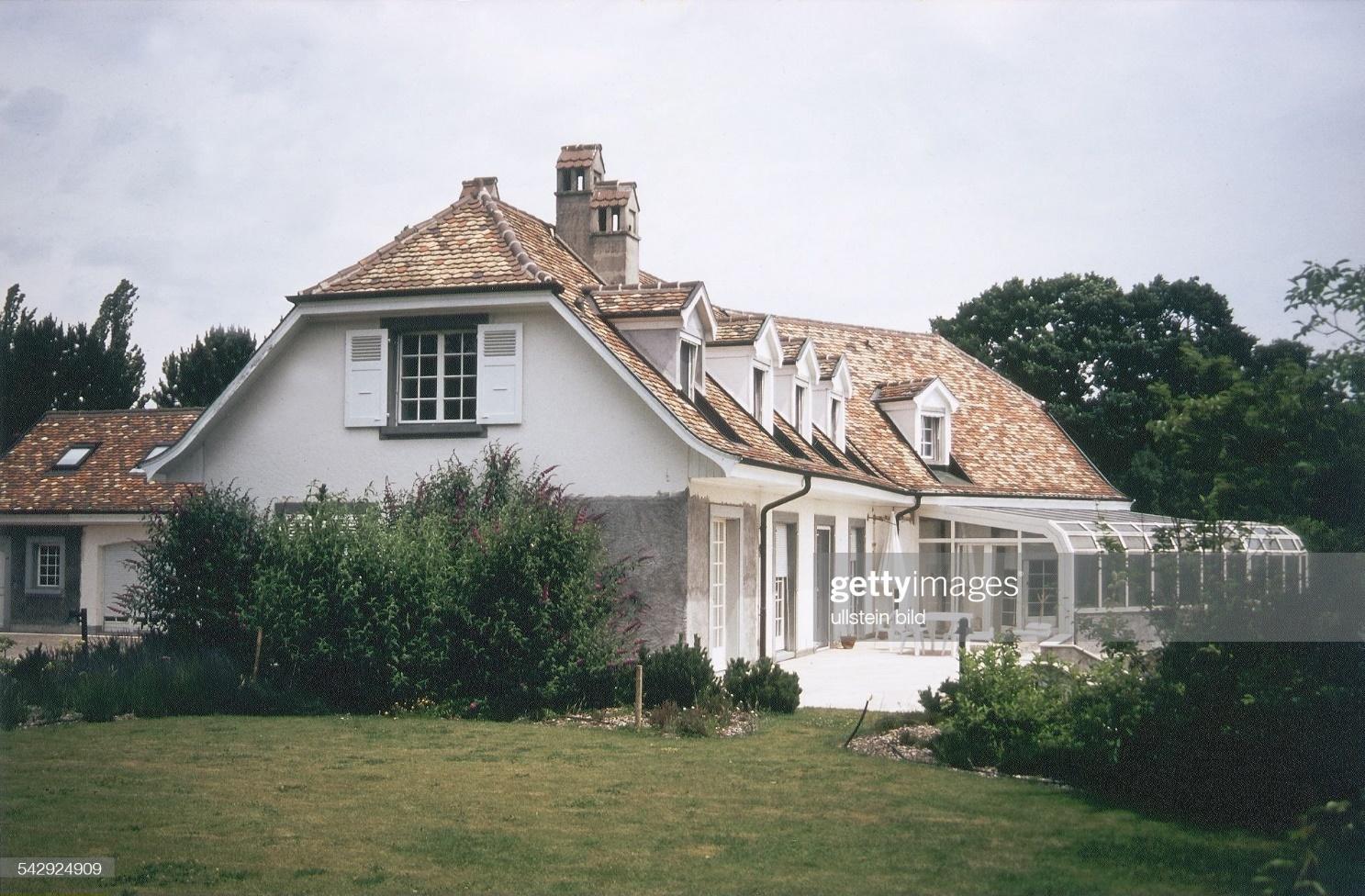
The home of Formula 1 driver Michael Schumacher in Vufflens-le-Chateau on Lake Geneva, near Lausanne, in July 1996. Photo by Nagel - Sportbild/ullstein bild via Getty Images.
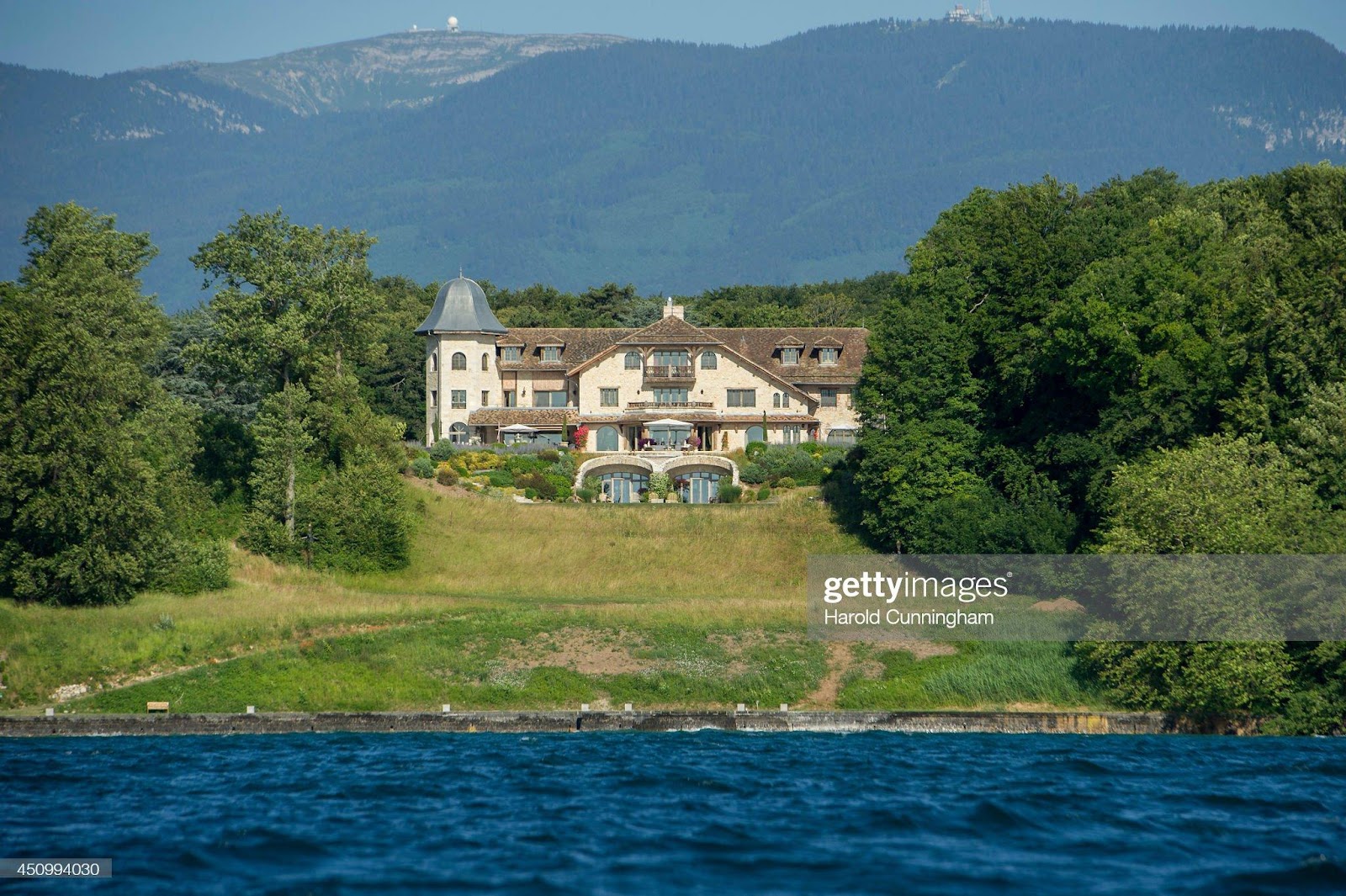
The 'Villa La Reserve', house of Formula One Champion Michael Schumacher, pictured on June 21, 2014 in Gland, Switzerland. Photo by Harold Cunningham/Getty Images.
The family moved to a newly-built mansion near Gland, Switzerland in 2007, covering an area of 650-square-metre (7,000 sq ft) with a private beach on Lake Geneva and featuring an underground garage and petrol station. Schumacher and his wife own horse ranches in Texas and Switzerland.
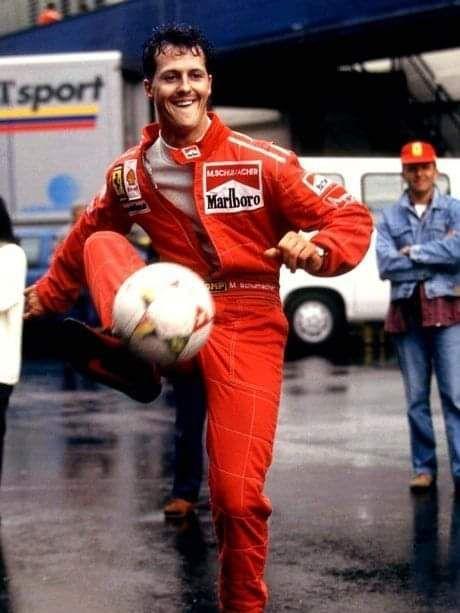
Michael Schumacher playing football.
One of his main hobbies was horse riding, and he played football for his local team FC Echichens.
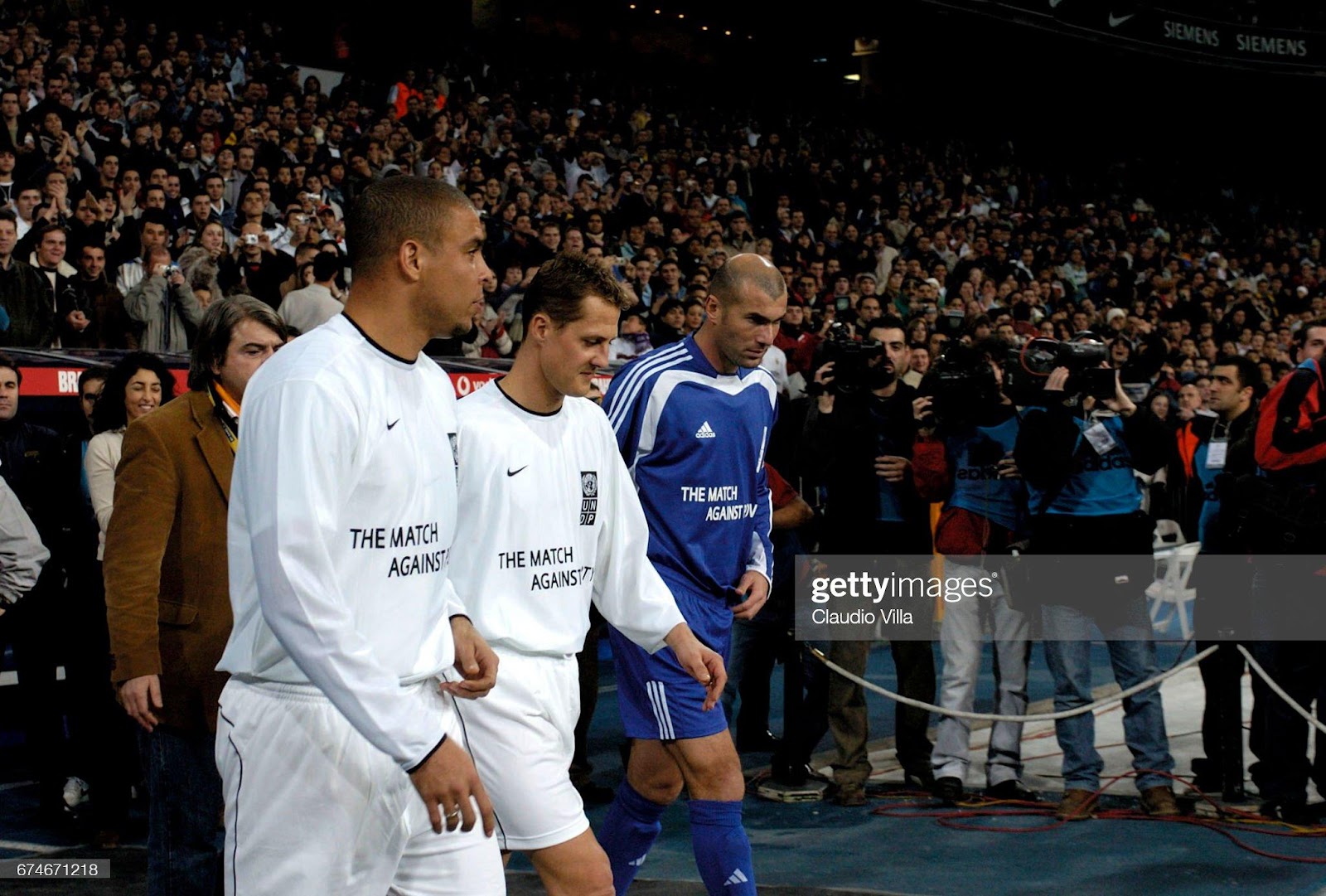
Left to right Ronaldo, Michael Schumacher and Zinedine Zidane during the match against poverty played between Ronaldo & friends and Zidane & friends at "Santiago Bernabeu" stadium in Madrid on December 14, 2004. Photo by Getty Images Europe.
In 2004, Forbes magazine listed him as the second highest paid athlete in the World.
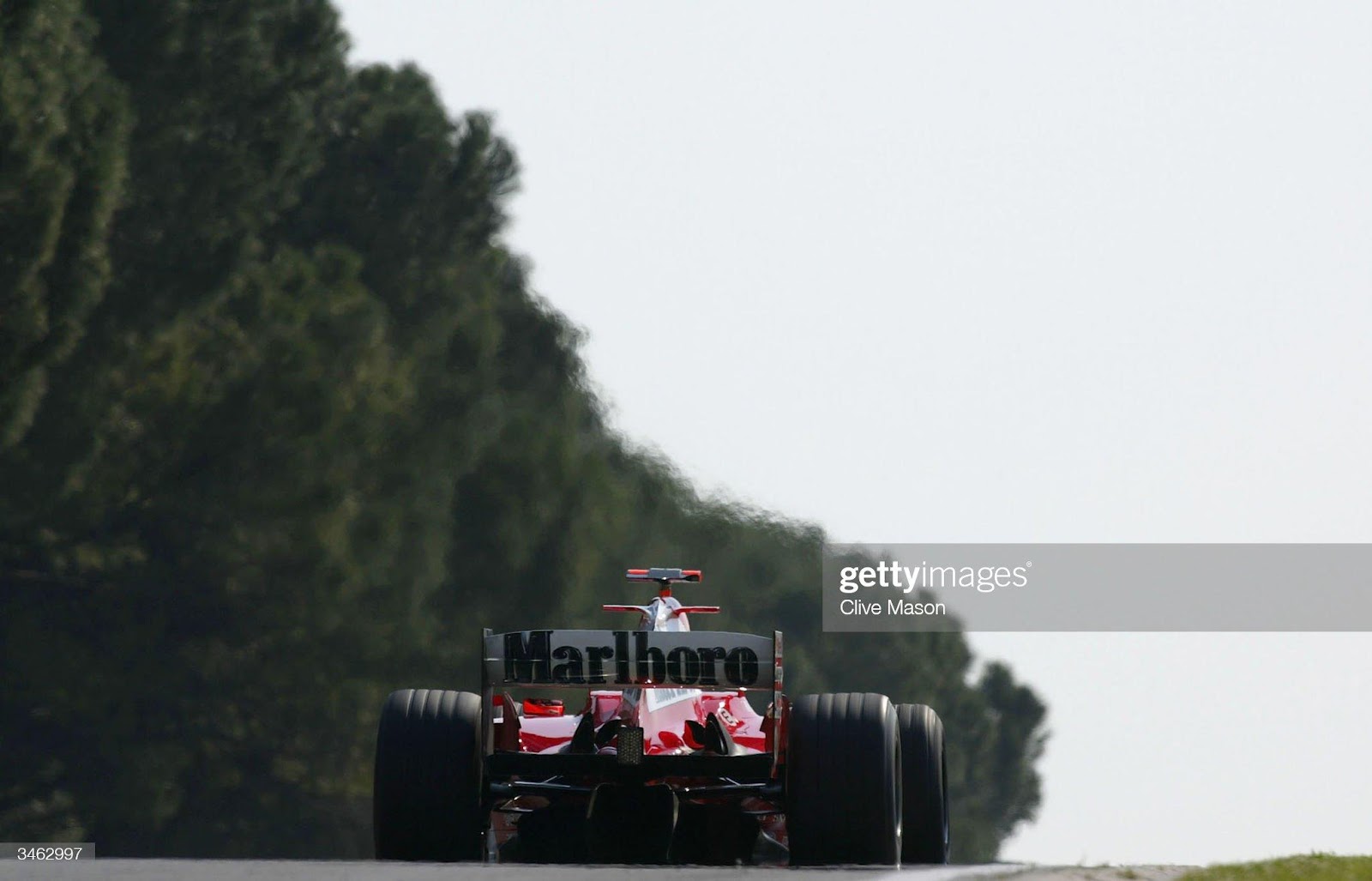
Michael Schumacher, Ferrari, in action during the practise session prior to qualifying for the San Marino F1 Grand Prix on April 24, 2004, at the San Marino circuit in Imola, Italy. Photo by Clive Mason/Getty Images.
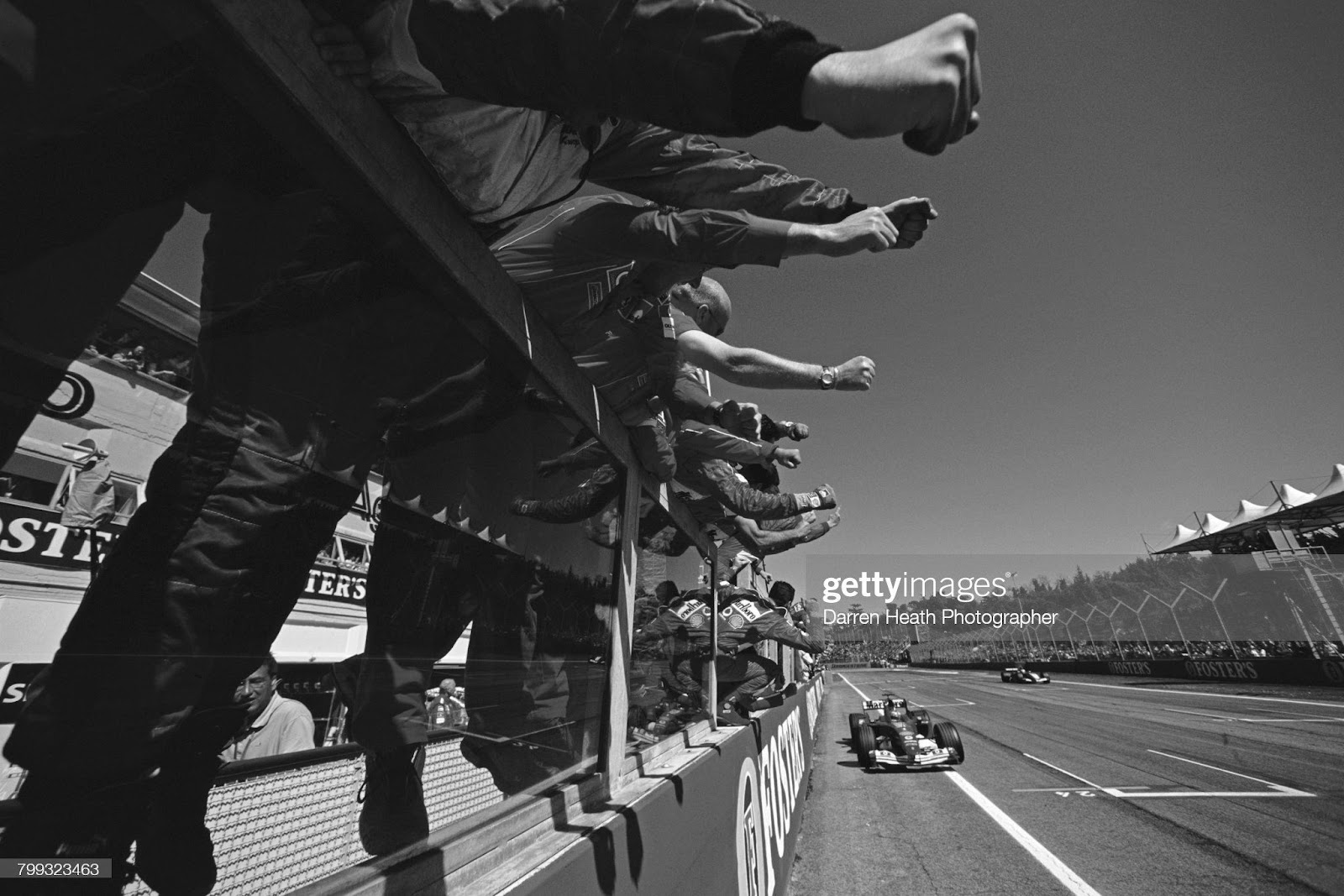
Ferrari team members salute Michael Schumacher from the pit lane wall as he drives the n. 1 Ferrari F2004 V10 to win the Formula One San Marino Grand Prix on 25 April 2004 at the Autodromo Enzo e Dino Ferrari in Imola, Italy. Photo by Darren Heath/Getty Images.
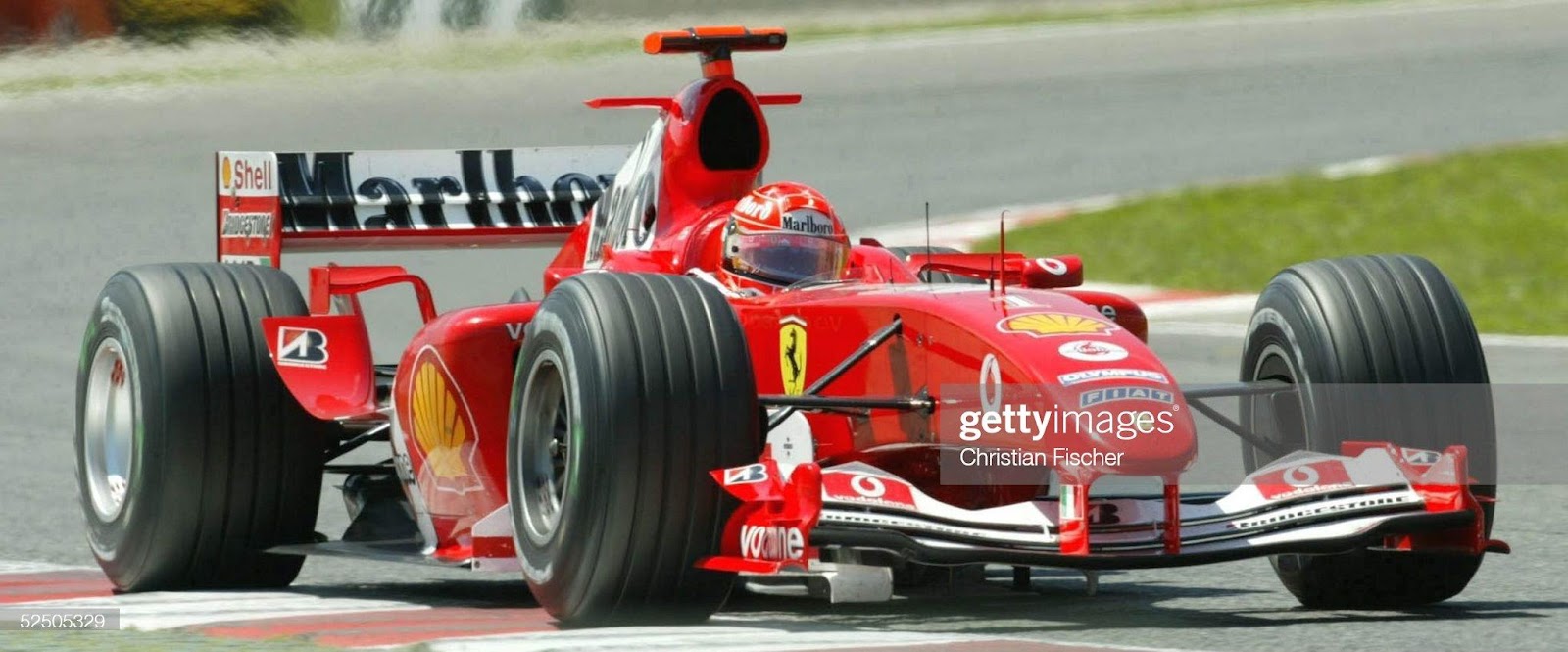
Michael Schumacher, Ferrari, at the Spanish Grand Prix on May 09, 2004. Photo by Christian Fischer/Bongarts/Getty Images.
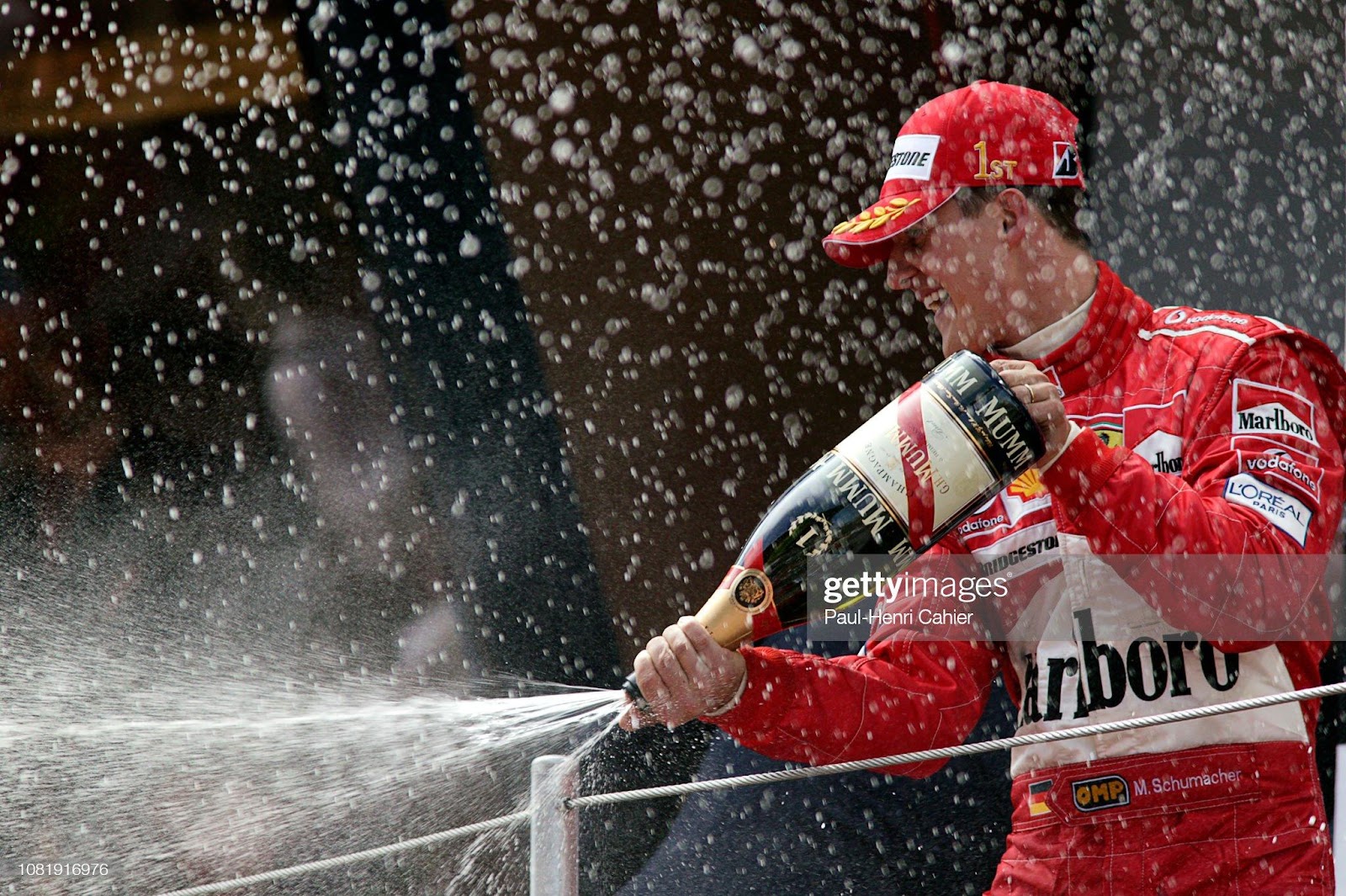
Michael Schumacher, Grand Prix of Spain, Circuit de Barcelona-Catalunya, 09 May 2004. Photo by Paul-Henri Cahier/Getty Images.
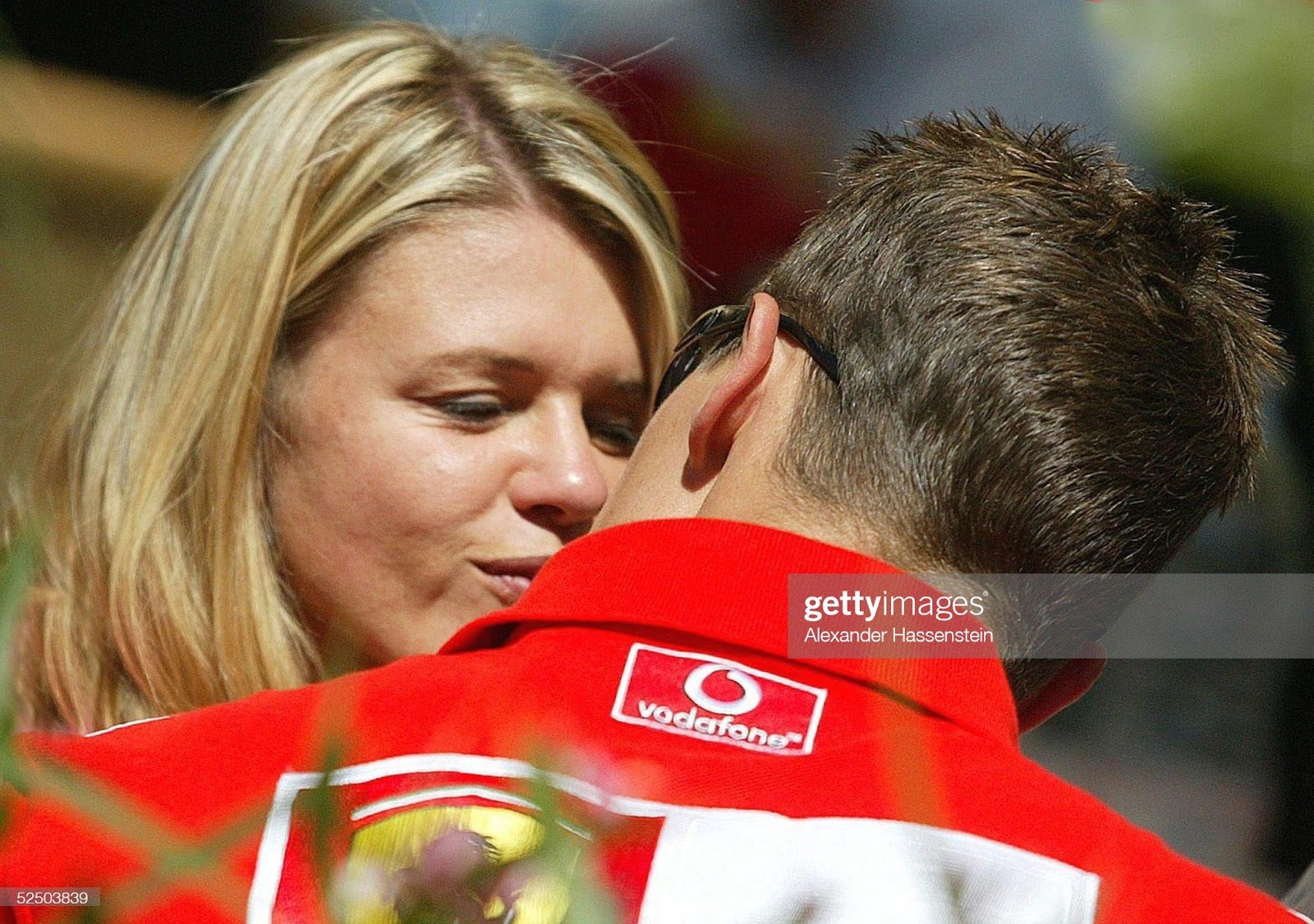
Corinna Schumacher kisses her husband Michael, Ferrari, who won the Canadian Grand Prix in Montreal on June 13, 2004. Photo by Alexander Hassenstein/Bongarts/Getty Images.
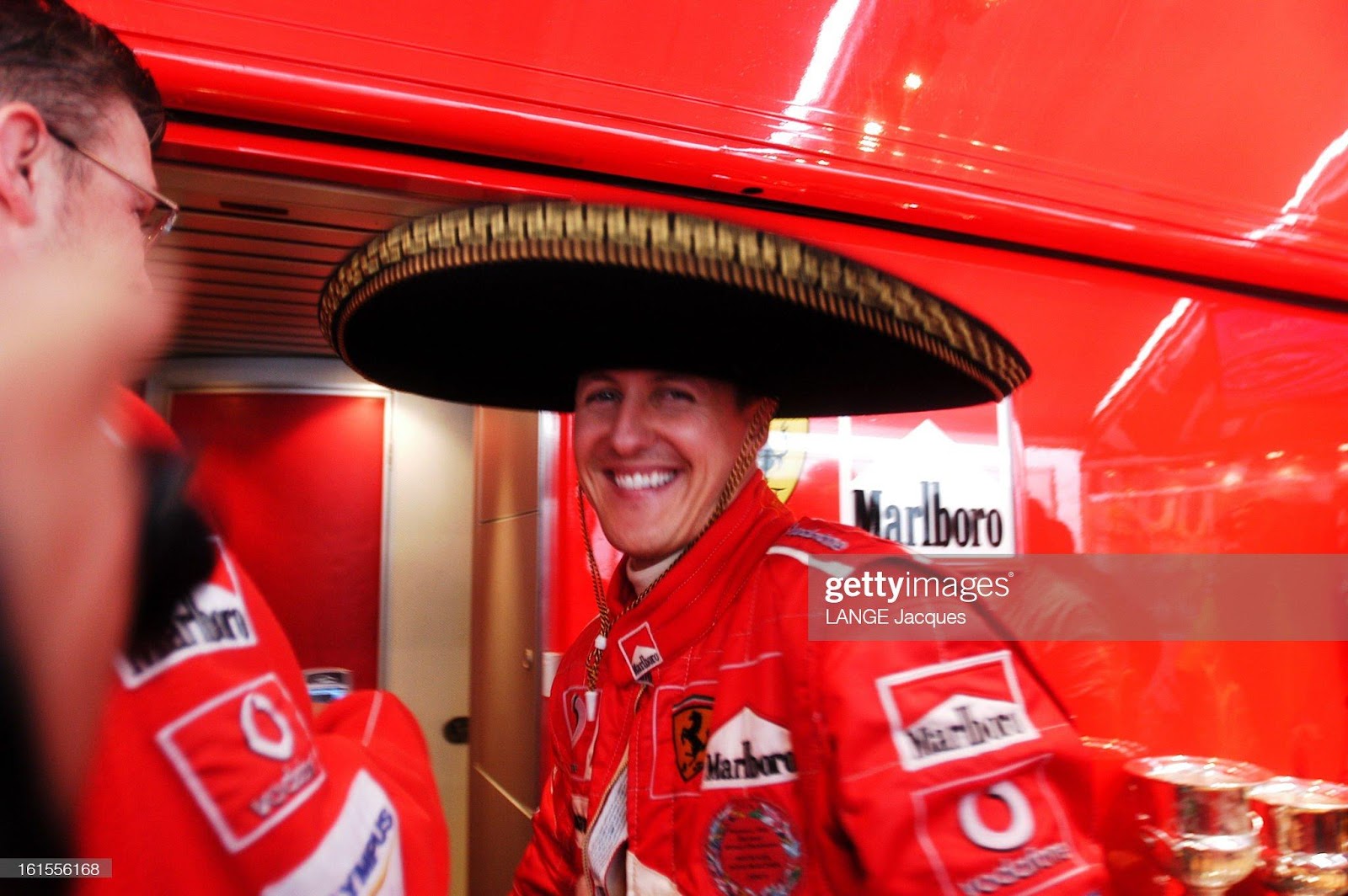
Michael Schumacher has already won his 7th world championship title after his victory at the Belgian F1 Grand Prix in SPA-Francorchamps: the driver is wearing a sombrero and smiling in the motor home of the Ferrari team installed near the track on August 29, 2004. Photo by Jacques Lange/Paris Match via Getty Images.
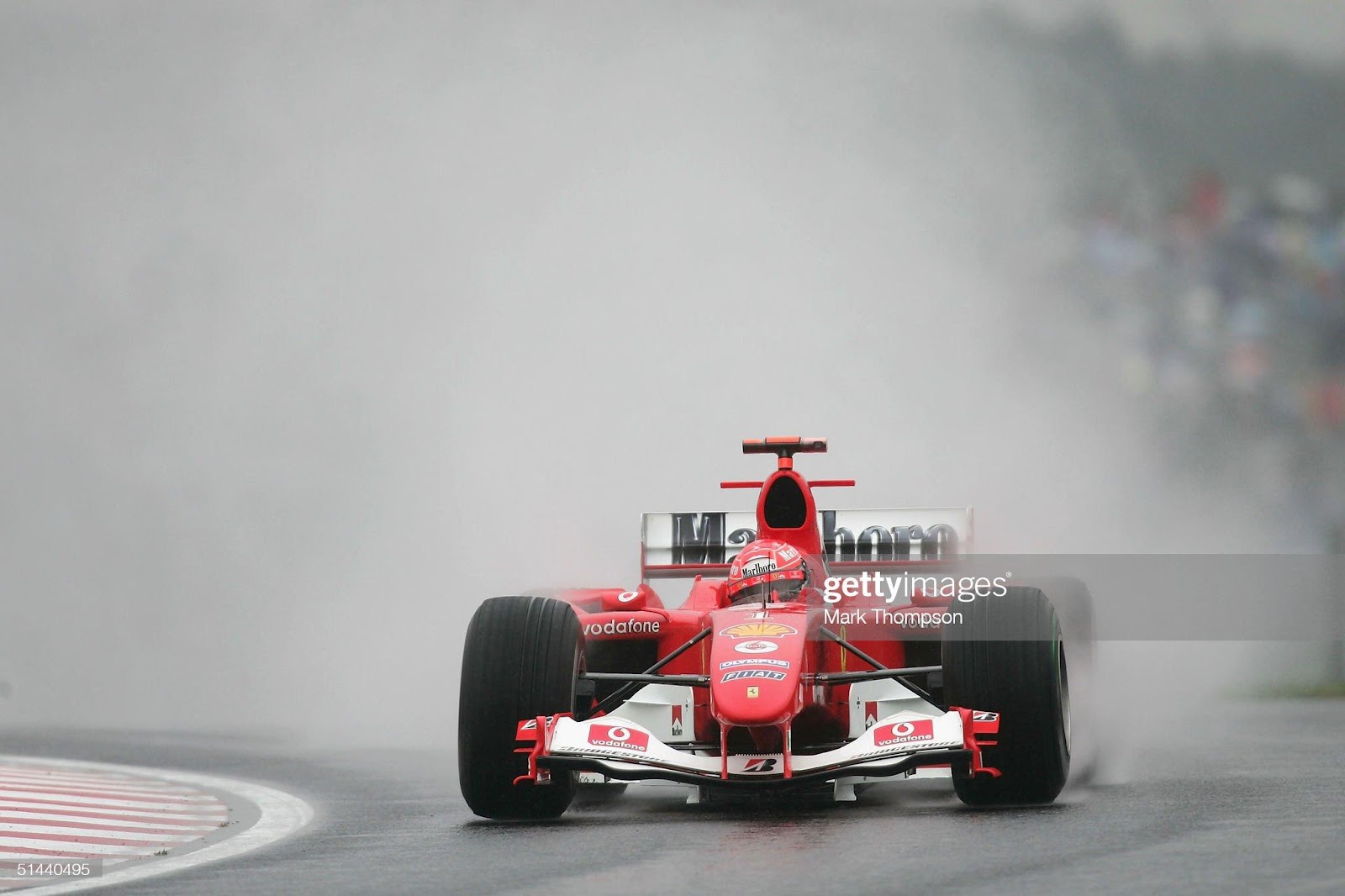
Michael Schumacher, Ferrari, during practice for the Formula One Japanese Grand Prix at Suzuka Circuit on October 8, 2004 in Tokyo. Photo by Mark Thompson/Getty Images.
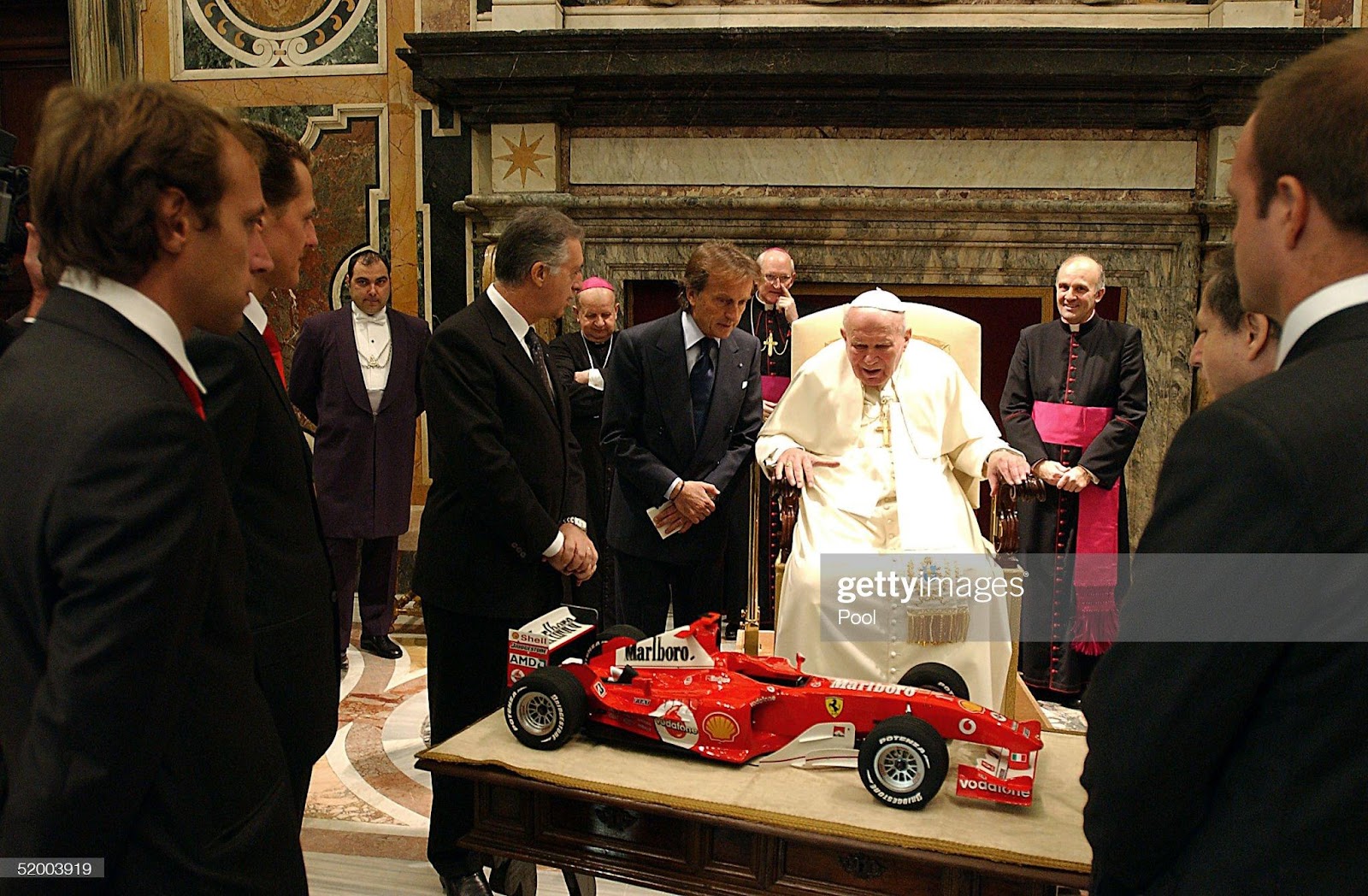
Pope John Paul II receives as a gift from Ferrari President Luca Cordero di Montezemolo, Michael Schumacher, Brazilian teammate Rubens Barrichello, Ferrari managing director, F1 team boss Jean Todt and mechanics a 1:5 scale model of the car that won Ferrari both the championship and constructor title in 2004 during a meeting at the Clementina Hall, January 17, 2005, in Vatican City. Photo by Arturo Mari-Vatican Pool/Getty Images.
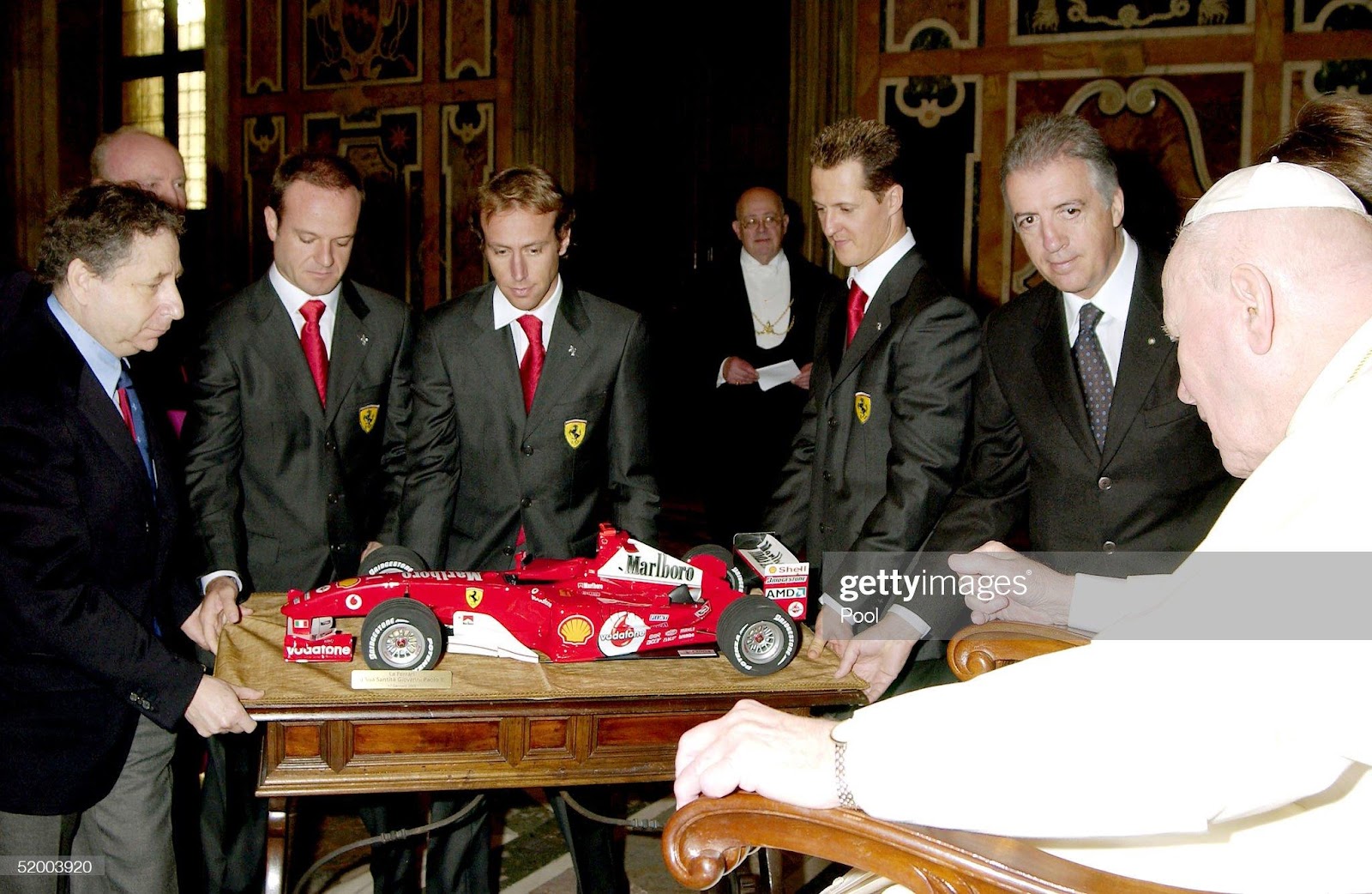
Pope John Paul II receives as a gift from Ferrari President Luca Cordero di Montezemolo, Michael Schumacher, Brazilian teammate Rubens Barrichello, Ferrari managing director, F1 team boss Jean Todt and mechanics a 1:5 scale model of the car that won Ferrari both the championship and constructor title in 2004 during a meeting at the Clementina Hall, January 17, 2005, in Vatican City. Photo by Arturo Mari-Vatican Pool/Getty Images.
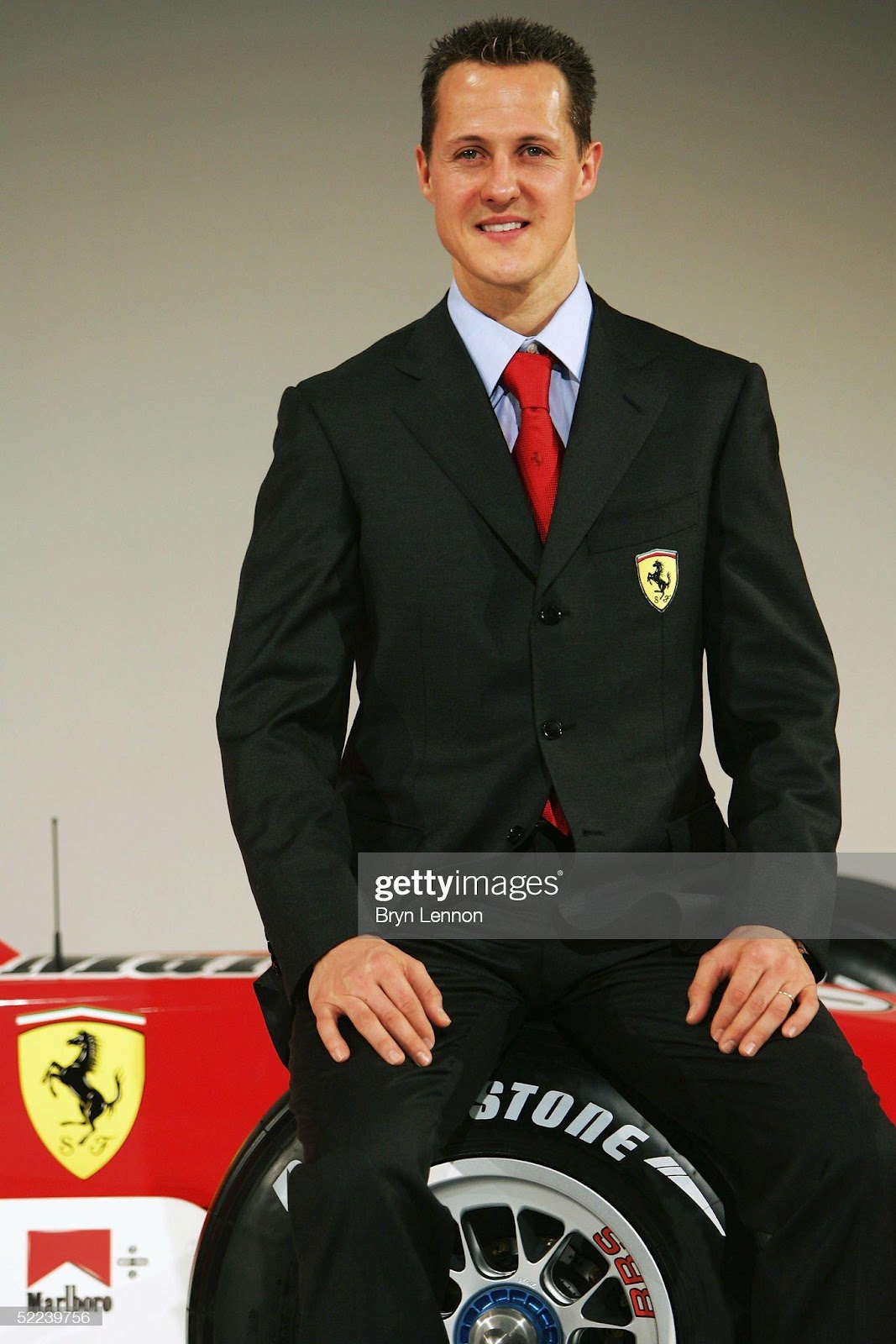
Michael Schumacher poses the new Ferrari F2005 Formula One car at the Ferrari factory on February 25, 2005 in Maranello, Italy. Photo by Bryn Lennon/Getty Images.
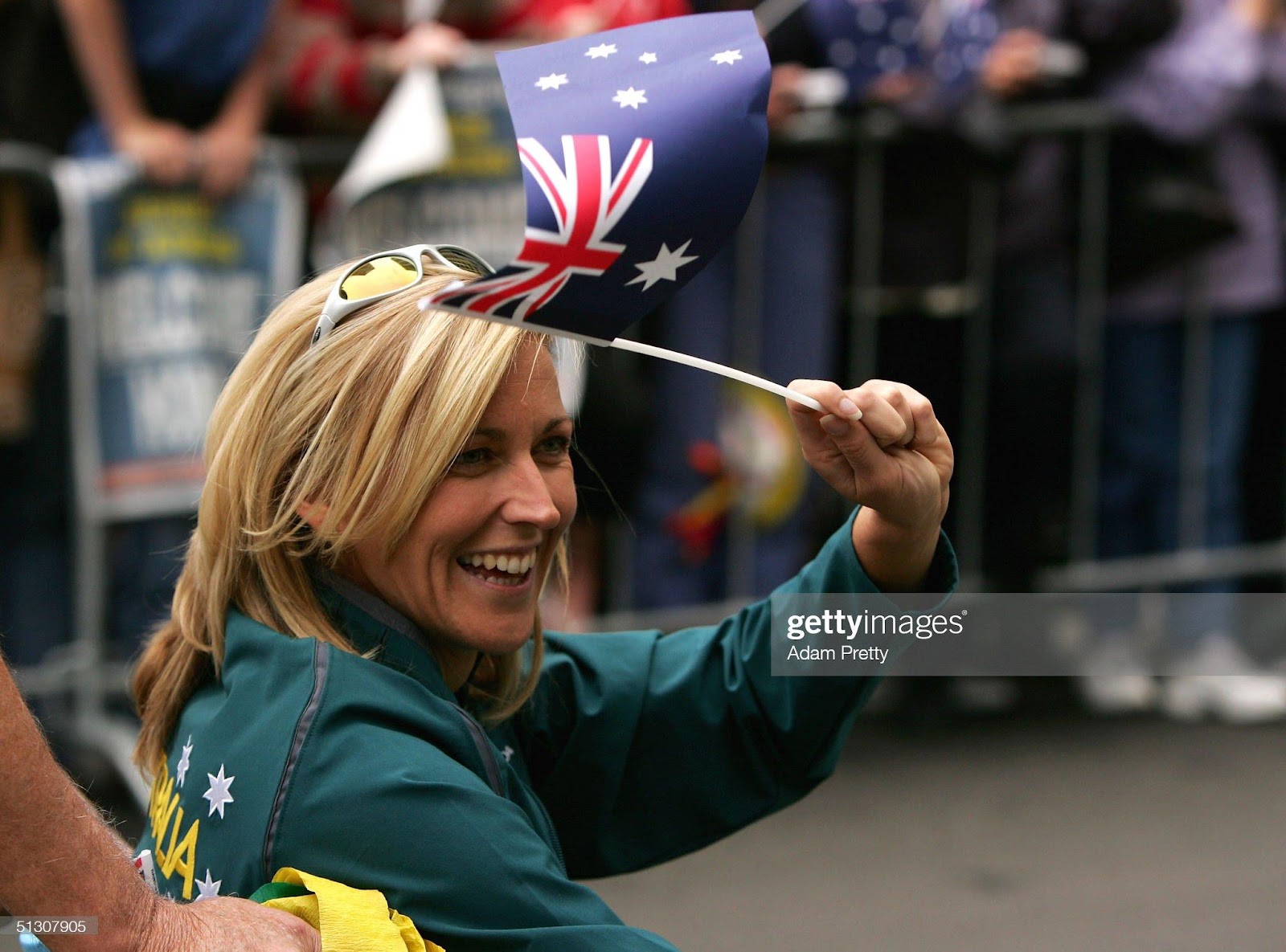
Beach Volleyball player Kerry Pottharst enjoys the National Welcome Home Parade for the Australian Olympic Team as they walk down George Street September 15, 2004 in Sydney, Australia. Photo by Adam Pretty/Getty Images.
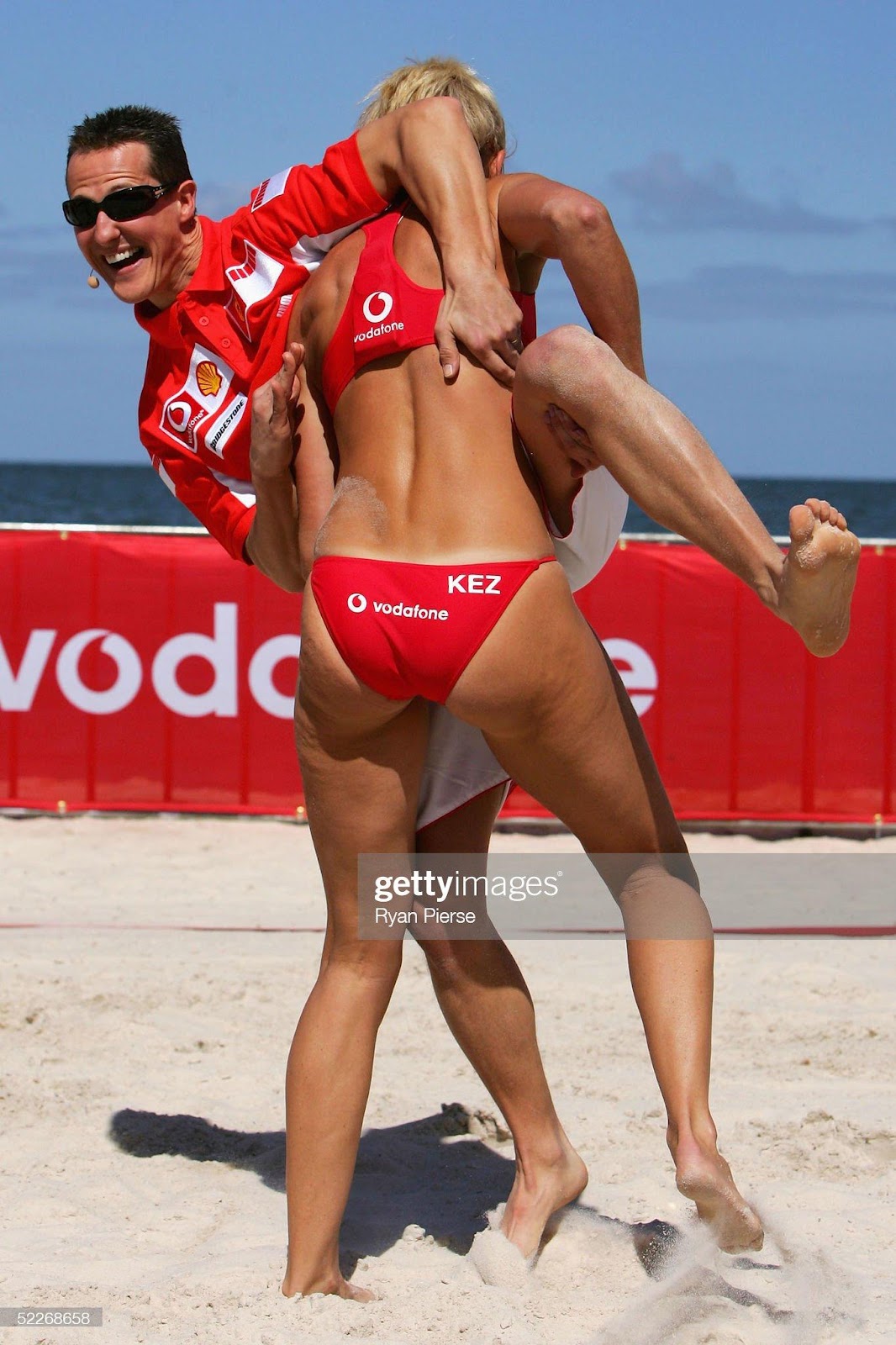
Ferrari F1 driver Michael Schumacher is lifted up by Australian volleyballer Kerri Pottharst while playing beach volleyball at St. Kilda Beach prior to the Australian Formula One Grand Prix on March 3, 2005 in Melbourne. Photo by Ryan Pierse/Getty Images.
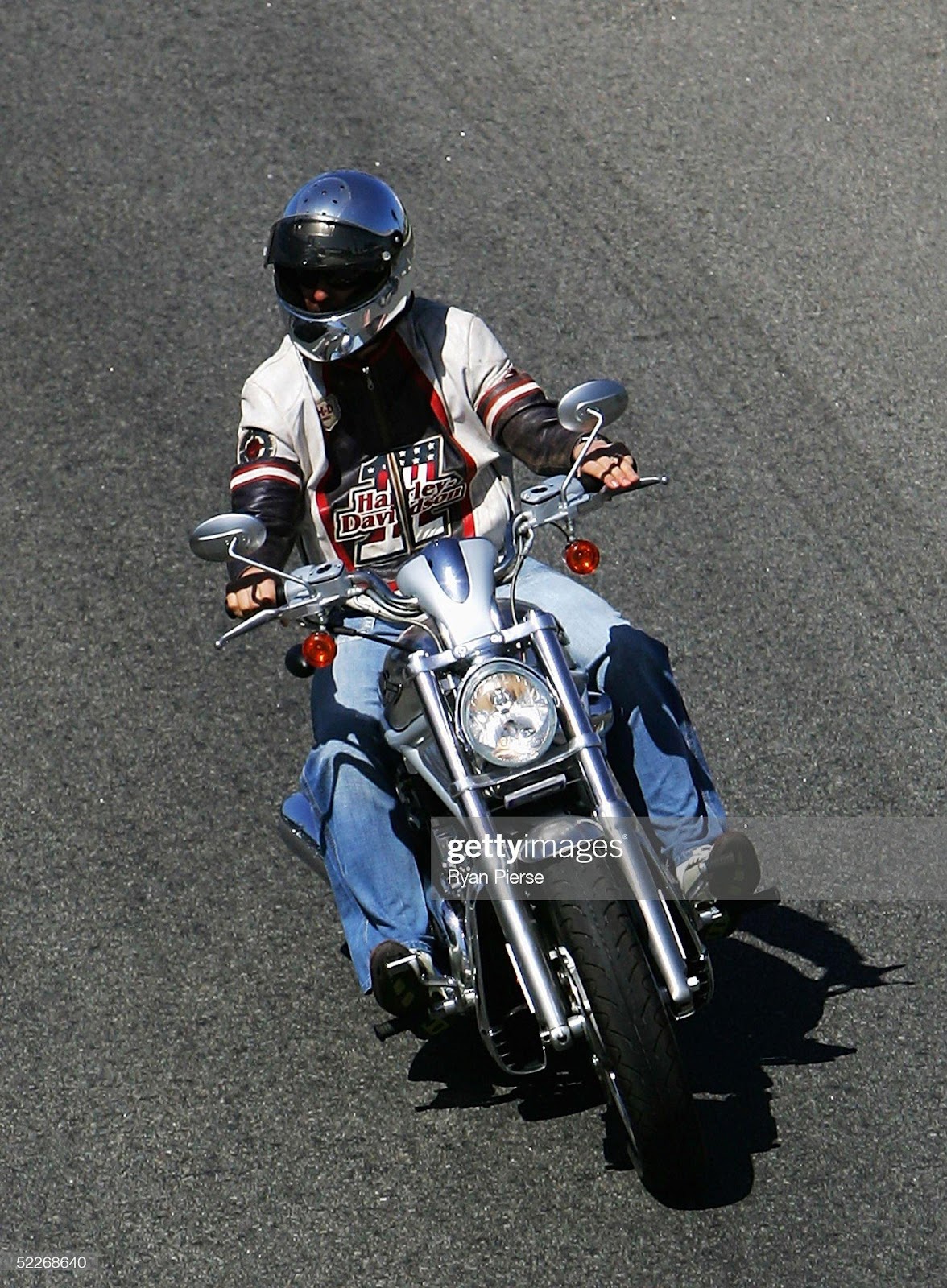
Ferrari F1 driver Michael Schumacher rides his Harley Davidson motorcycle prior to the Australian F1 Grand Prix on March 3, 2005 in Melbourne. Photo by Ryan Pierse/Getty Images.
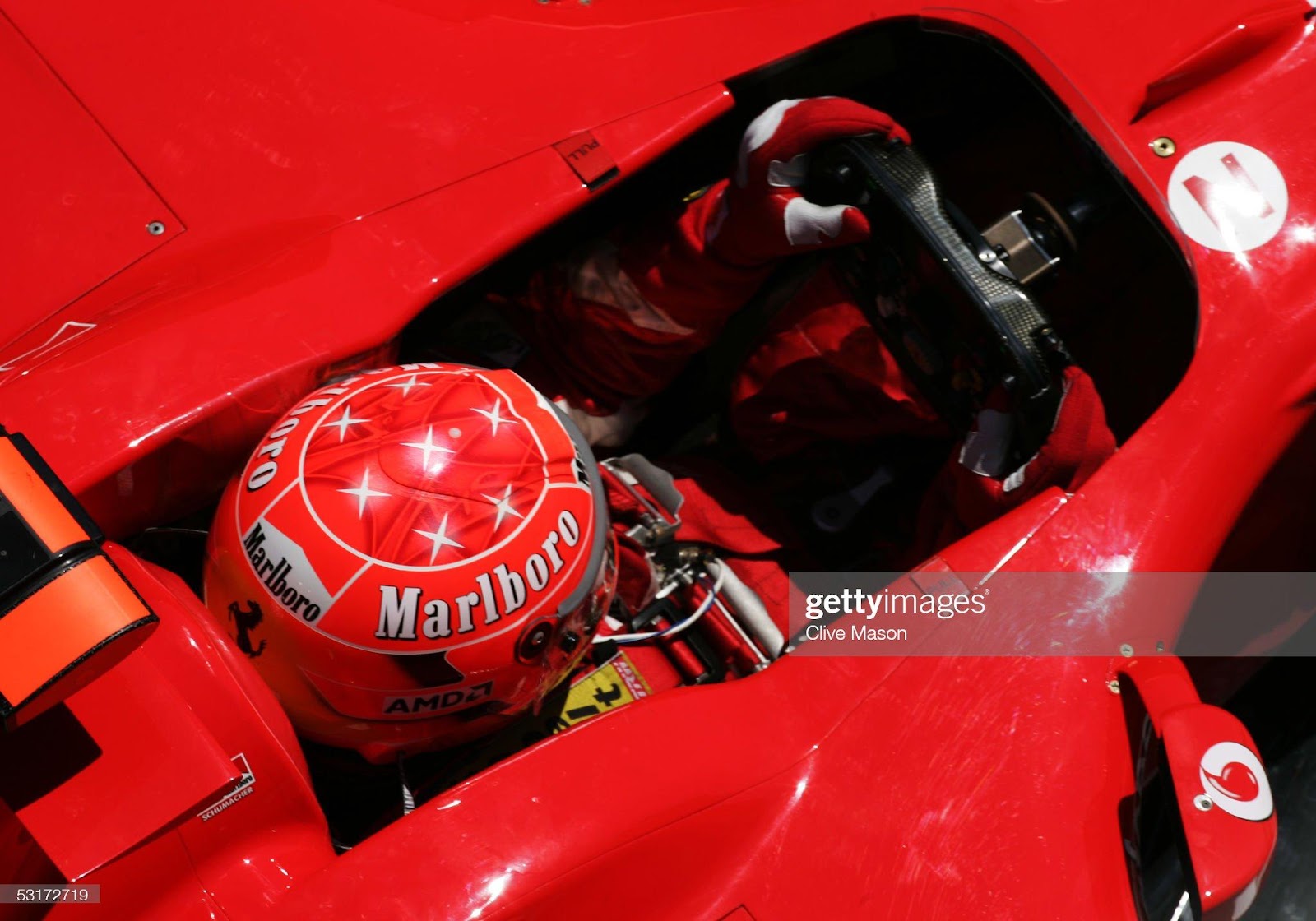
Michael Schumacher, Ferrari, during practice for the F1 Spanish Grand Prix at the Circuit de Catalunya on May 6, 2005 in Barcelona, Spain. Photo by Clive Mason/Getty Images.
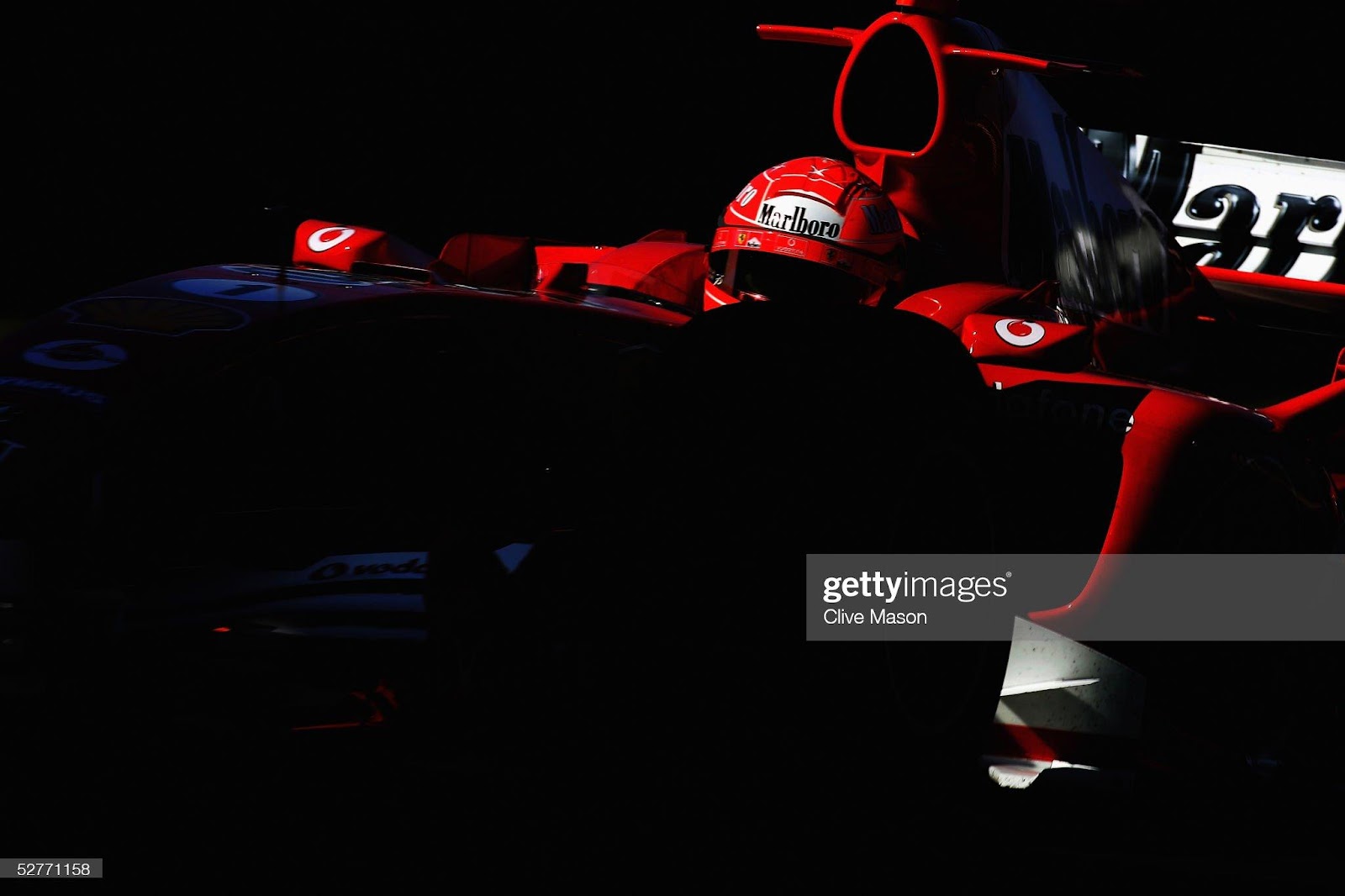
Michael Schumacher, Ferrari, in action during practice prior to qualifying for the F1 Spanish Grand Prix at the Circuit de Catalunya on May 7, 2005 in Barcelona, Spain. Photo by Clive Mason/Getty Images.
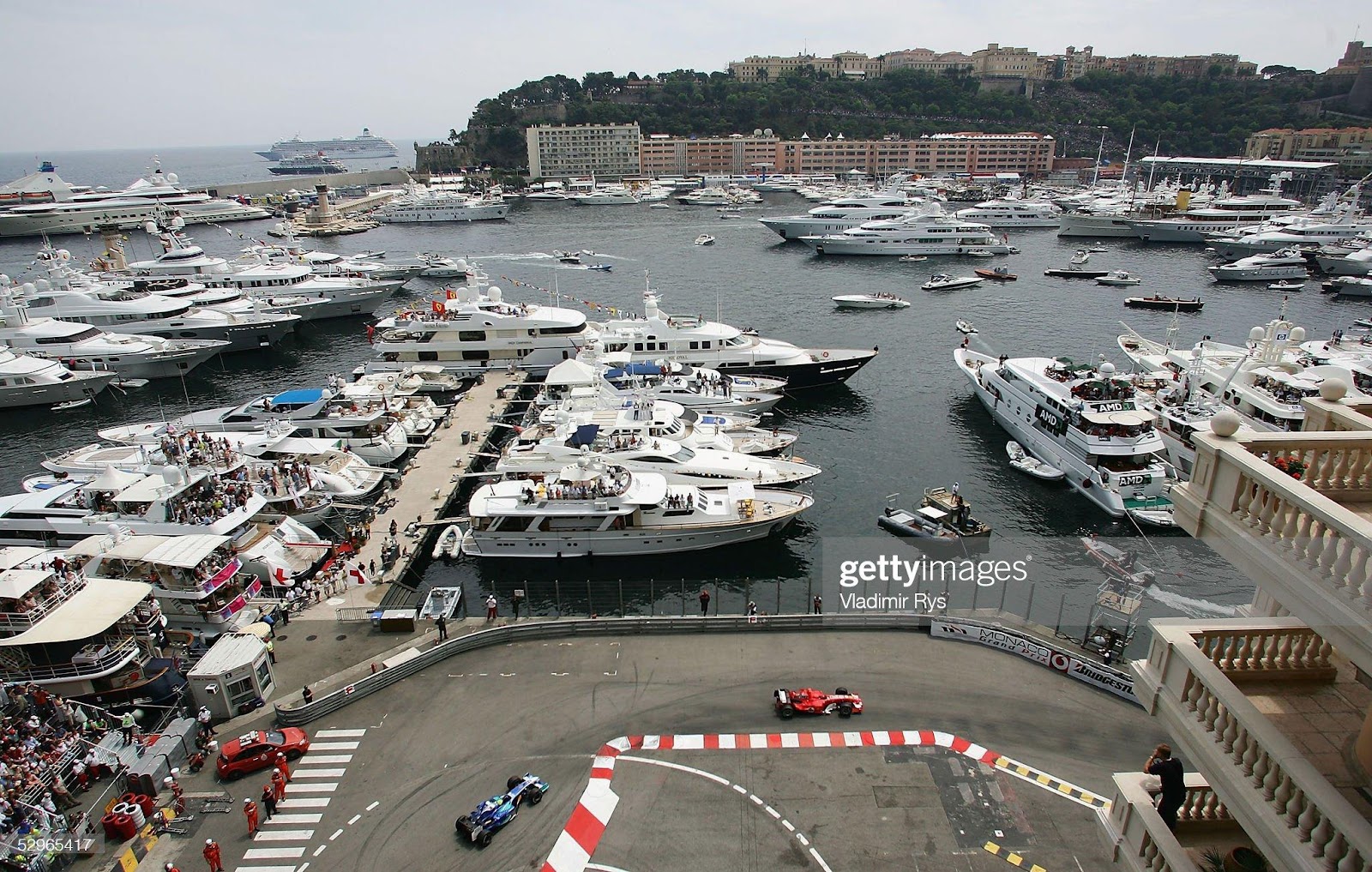
Jacques Villeneuve, Sauber Petronas, behind Michael Schumacher, Ferrari, during the Monaco F1 Grand Prix on May 22, 2005 in Monte Carlo. Photo by Vladimir Rys/Bongarts/Getty Images.
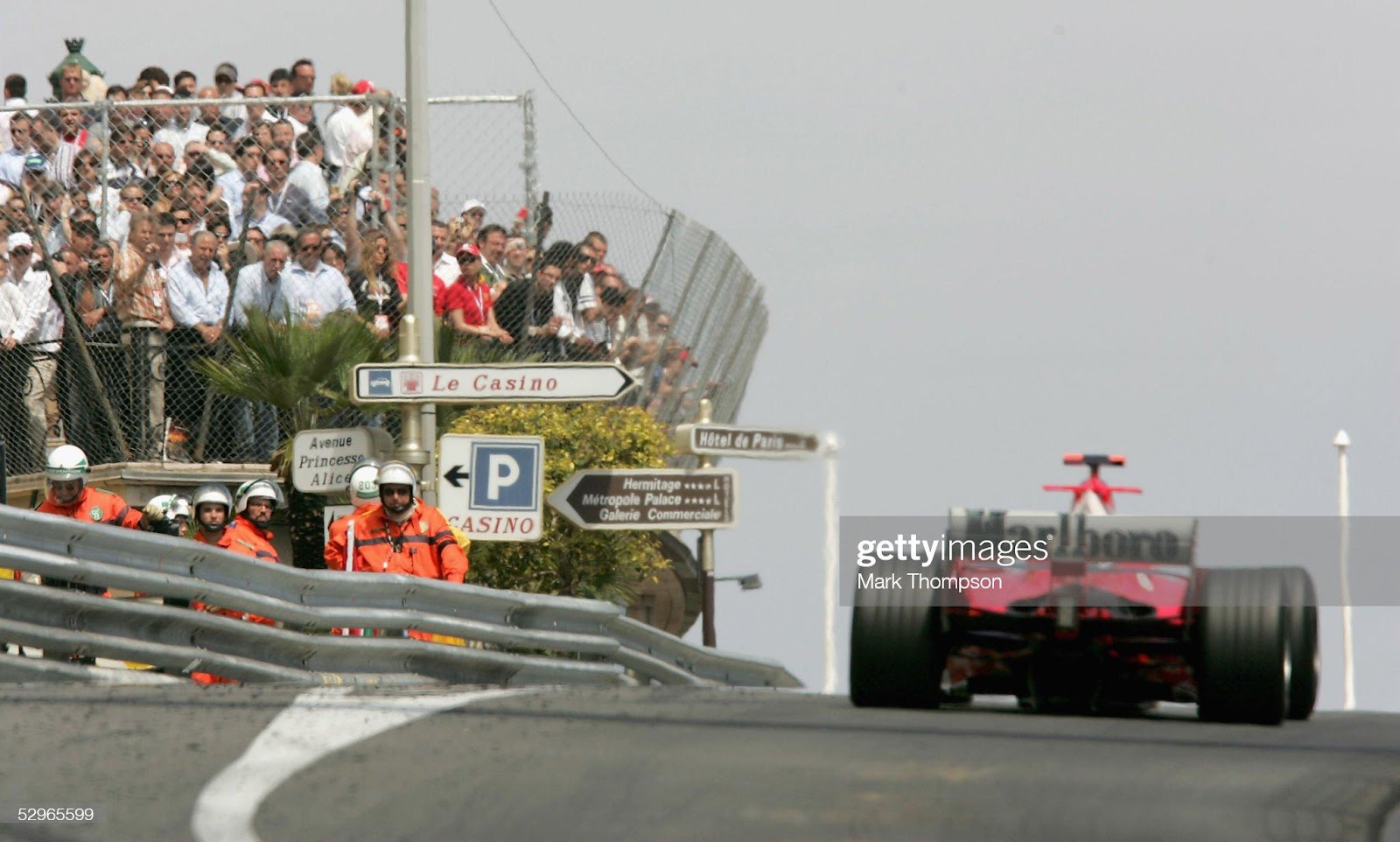
The crowds watch Michael Schumacher, Ferrari, in action on his way to Casino Square at the Monaco F1 Grand Prix on May 22, 2005, in Monte Carlo, Monaco. Photo by Mark Thompson/Getty Images.
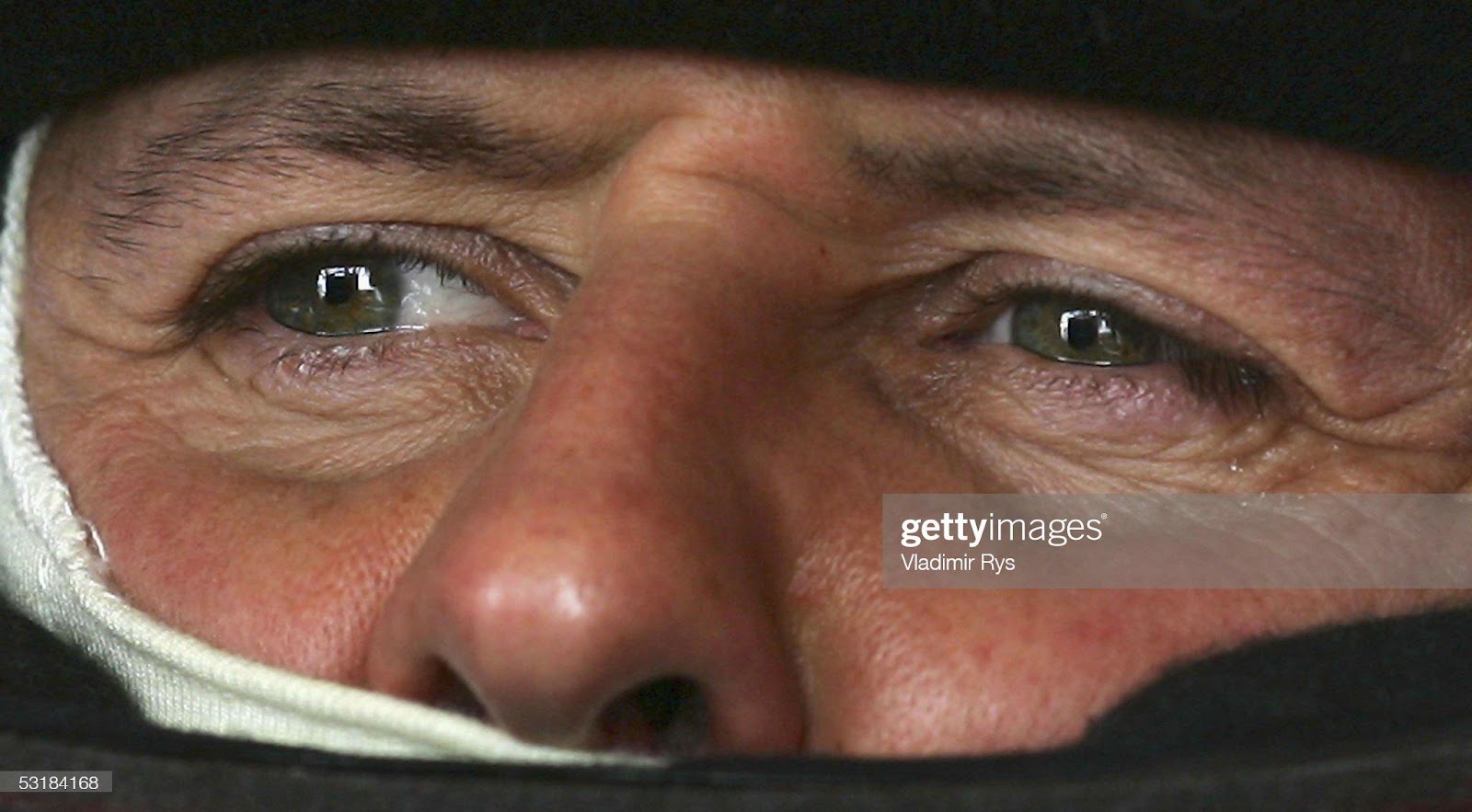
Michael Schumacher, Ferrari, looks on during the qualifying for the French F1 Grand Prix at Magny Cours on July 2, 2005. Photo by Vladimir Rys/Bongarts/Getty Images.
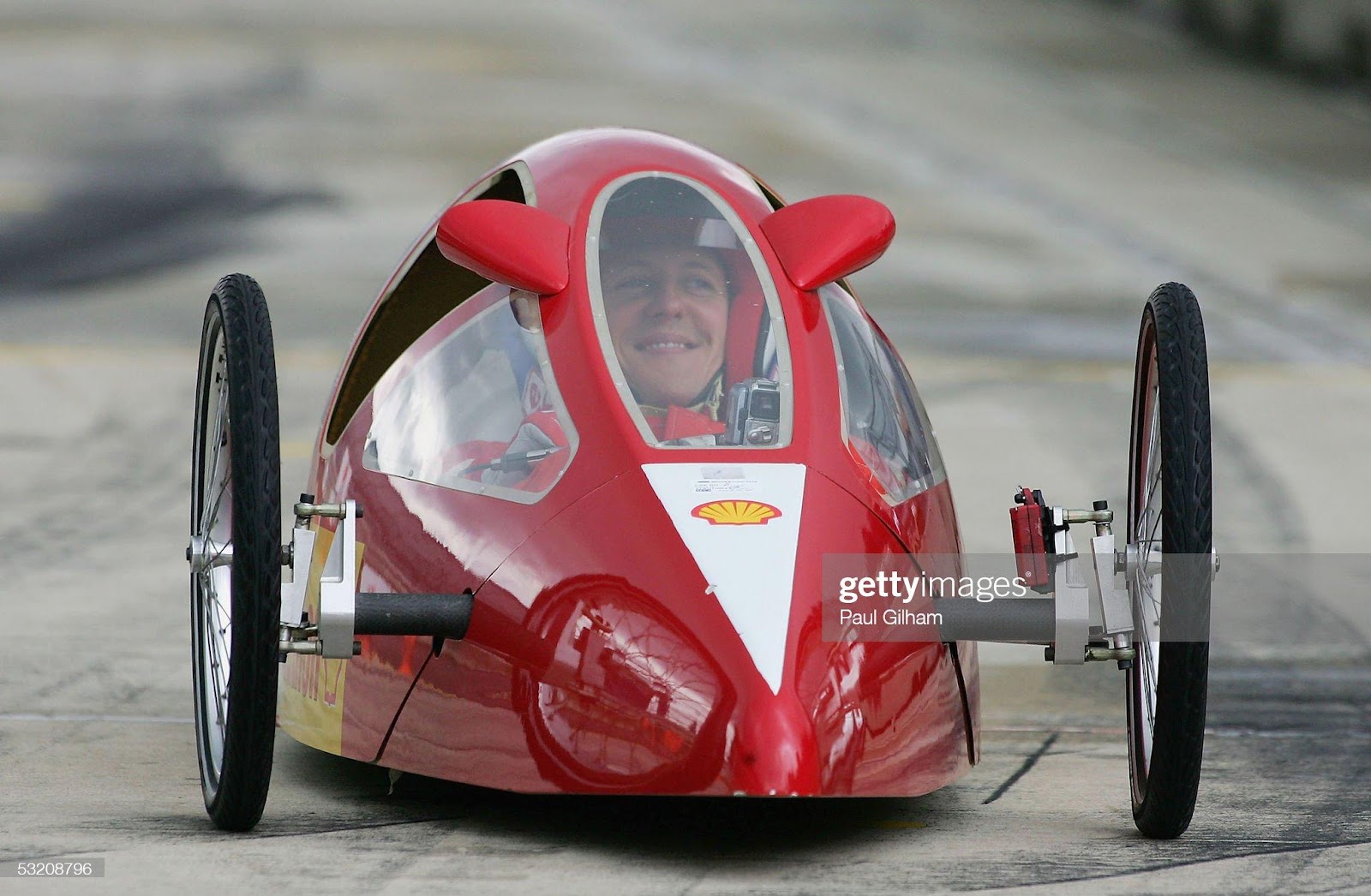
Michael Schumacher, Ferrari, in action during the Shell Eco-Marathon UK at the Rockingham Motor Racing Circuit on July 7, 2005 in Corby, England. Photo by Paul Gilham/Getty Images.
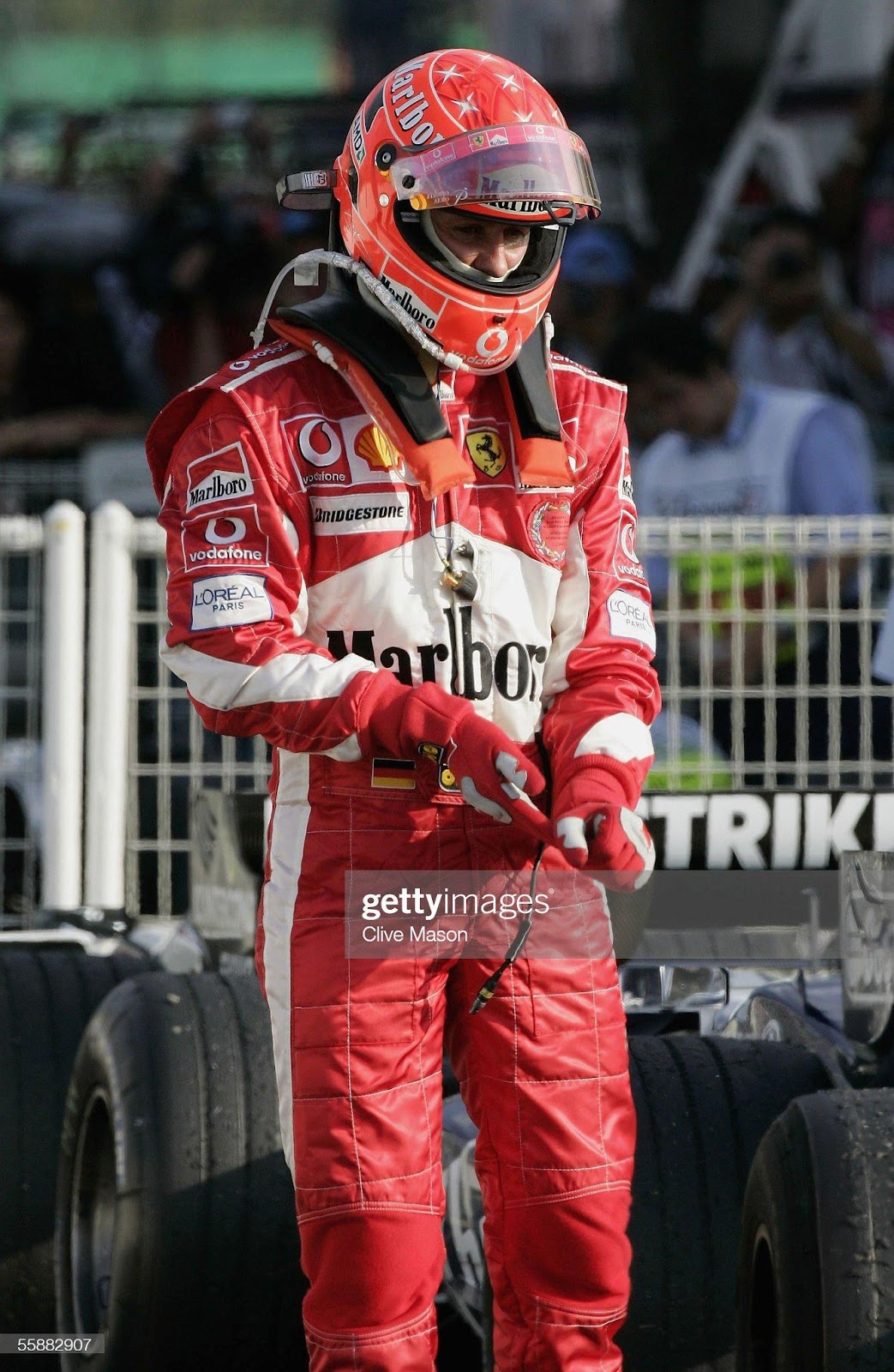
Michael Schumacher, Ferrari, walks in parc ferme after the Japan F1 Grand Prix at the Suzuka Circuit on October 9, 2005. Photo by Clive Mason/Getty Images.
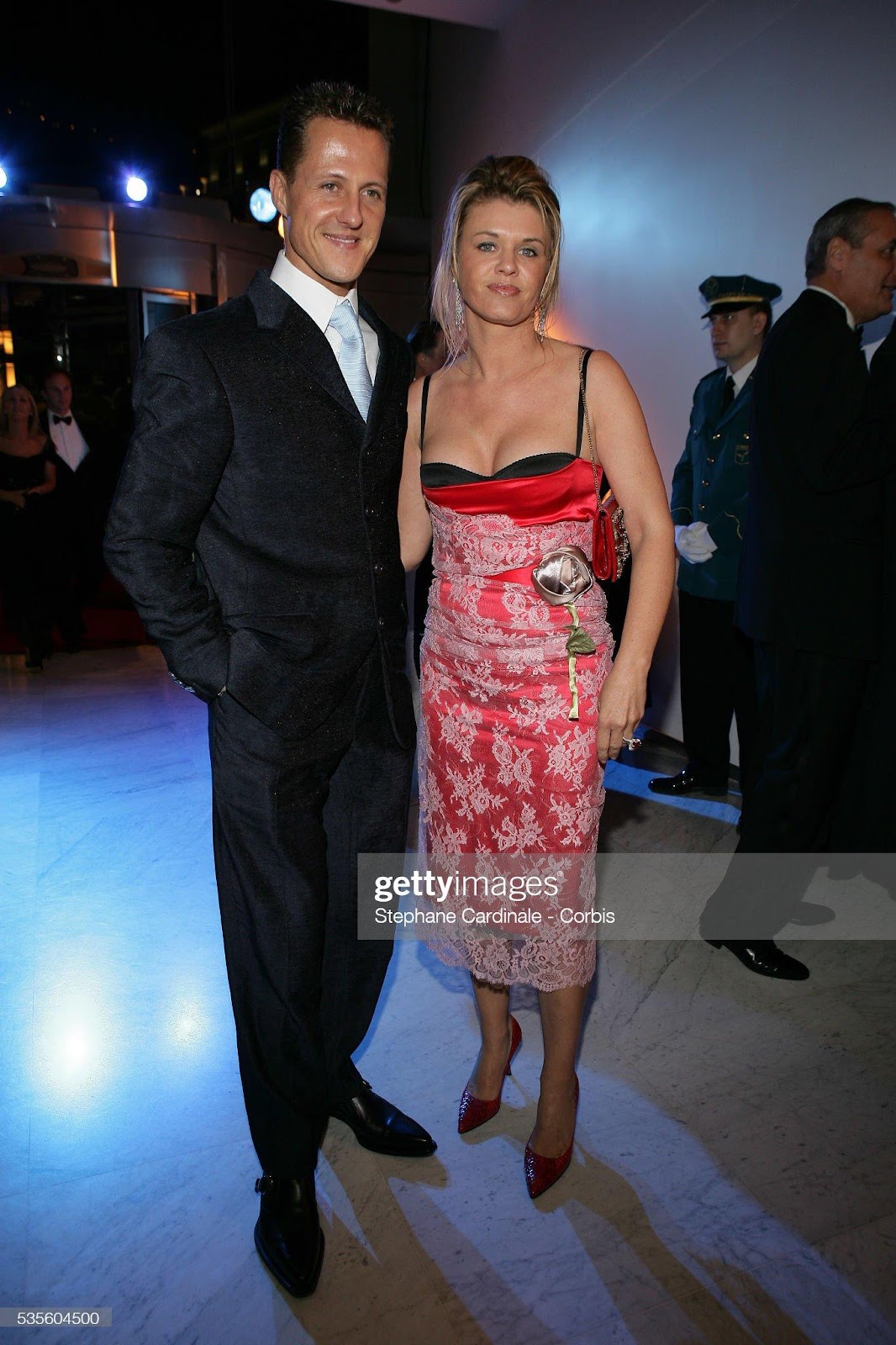
Michael Schumacher arrives with his wife Corinna at the FIA gala in Monaco on December 09, 2005. Photo by Stephane Cardinale/Corbis via Getty Images.
In 2005, Eurobusiness magazine identified Schumacher as the World's first billionaire athlete.
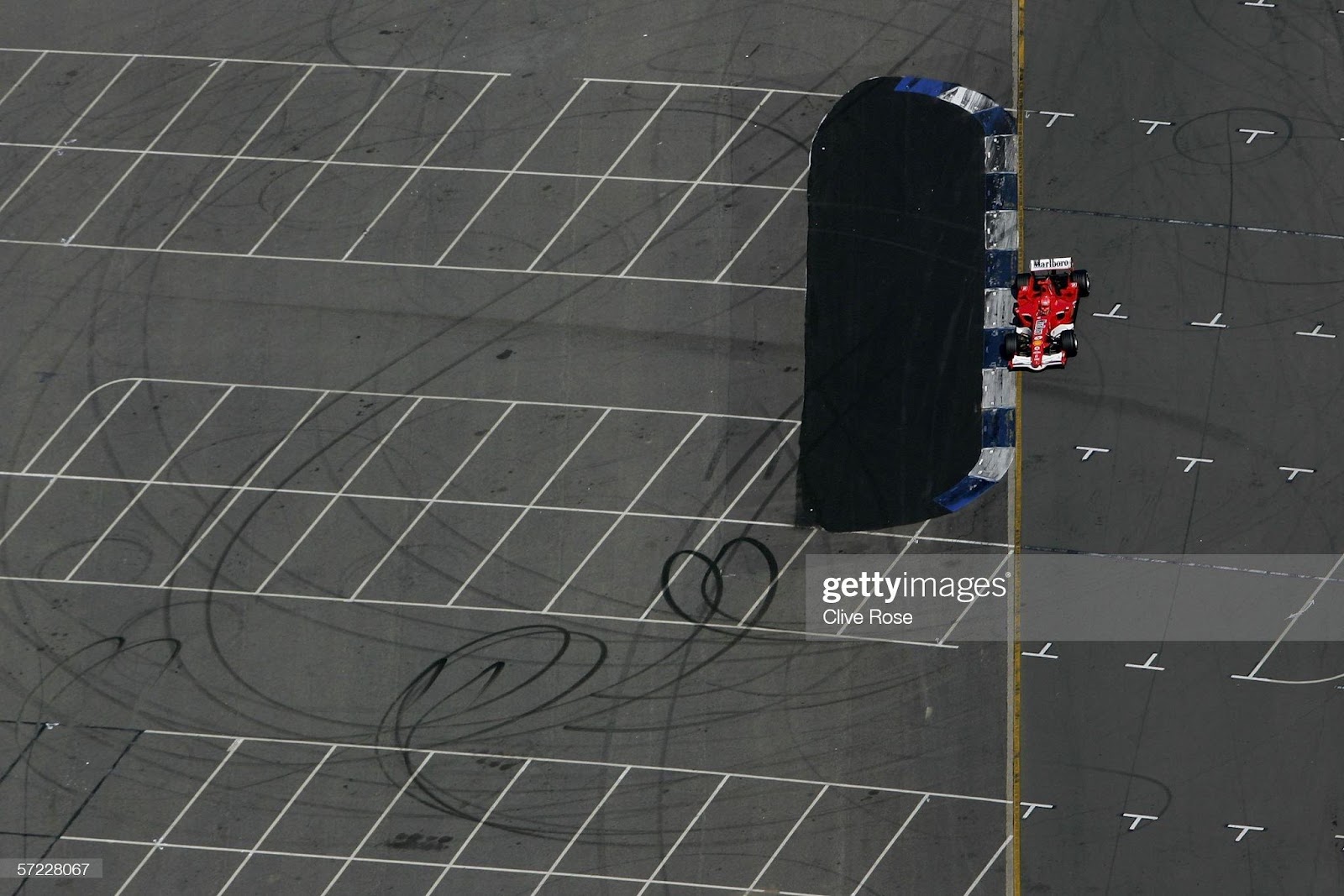
Michael Schumacher drives his Ferrari during qualifying for the Australian F1 Grand Prix at the Albert Park Circuit on April 01, 2006 in Melbourne, Australia. Photo by Clive Rose/Getty Images.
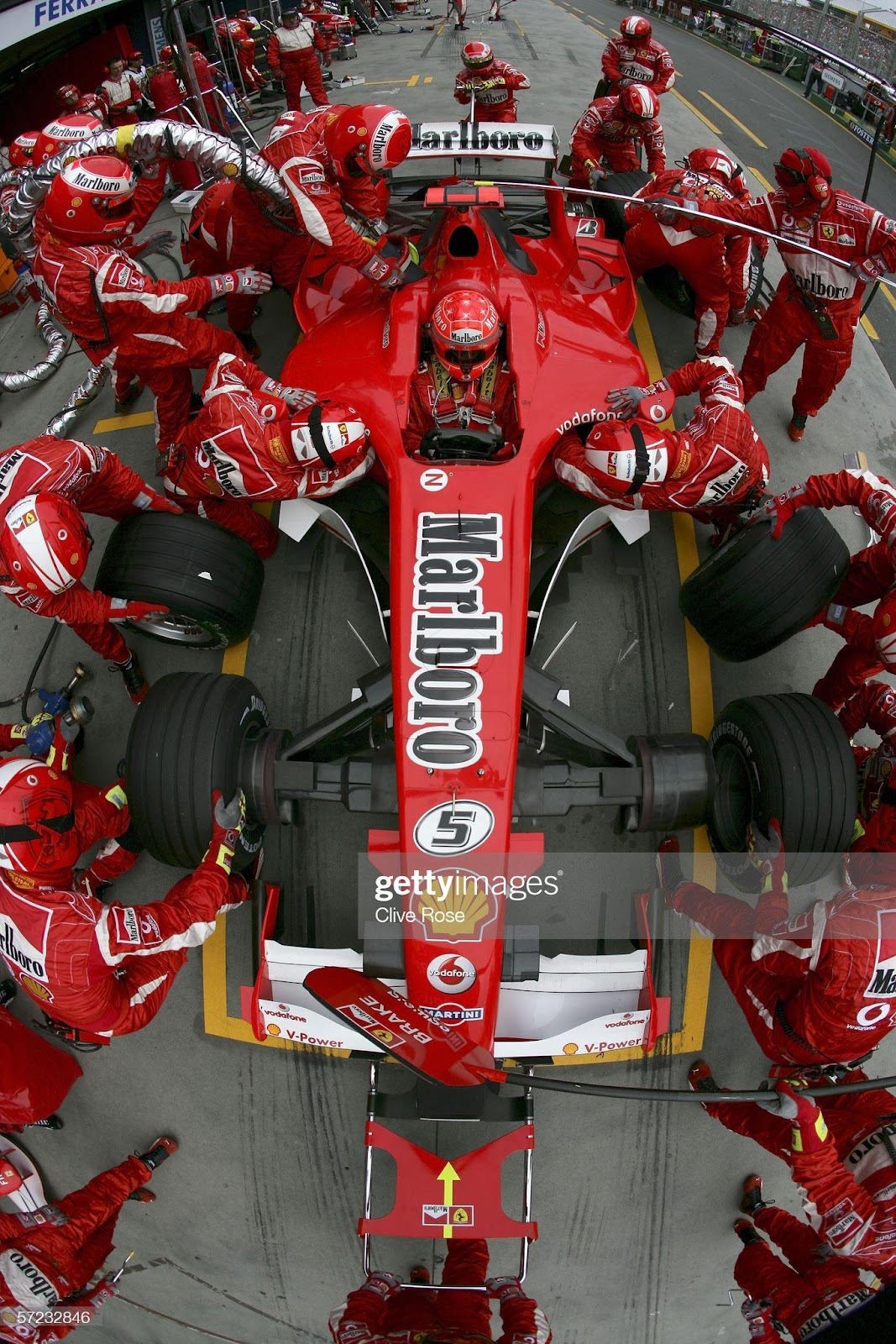
Michael Schumacher, Ferrari, makes a pitstop during the Australian F1 Grand Prix at the Albert Park Circuit on April 02, 2006 in Melbourne, Australia. Photo by Clive Rose/Getty Images.
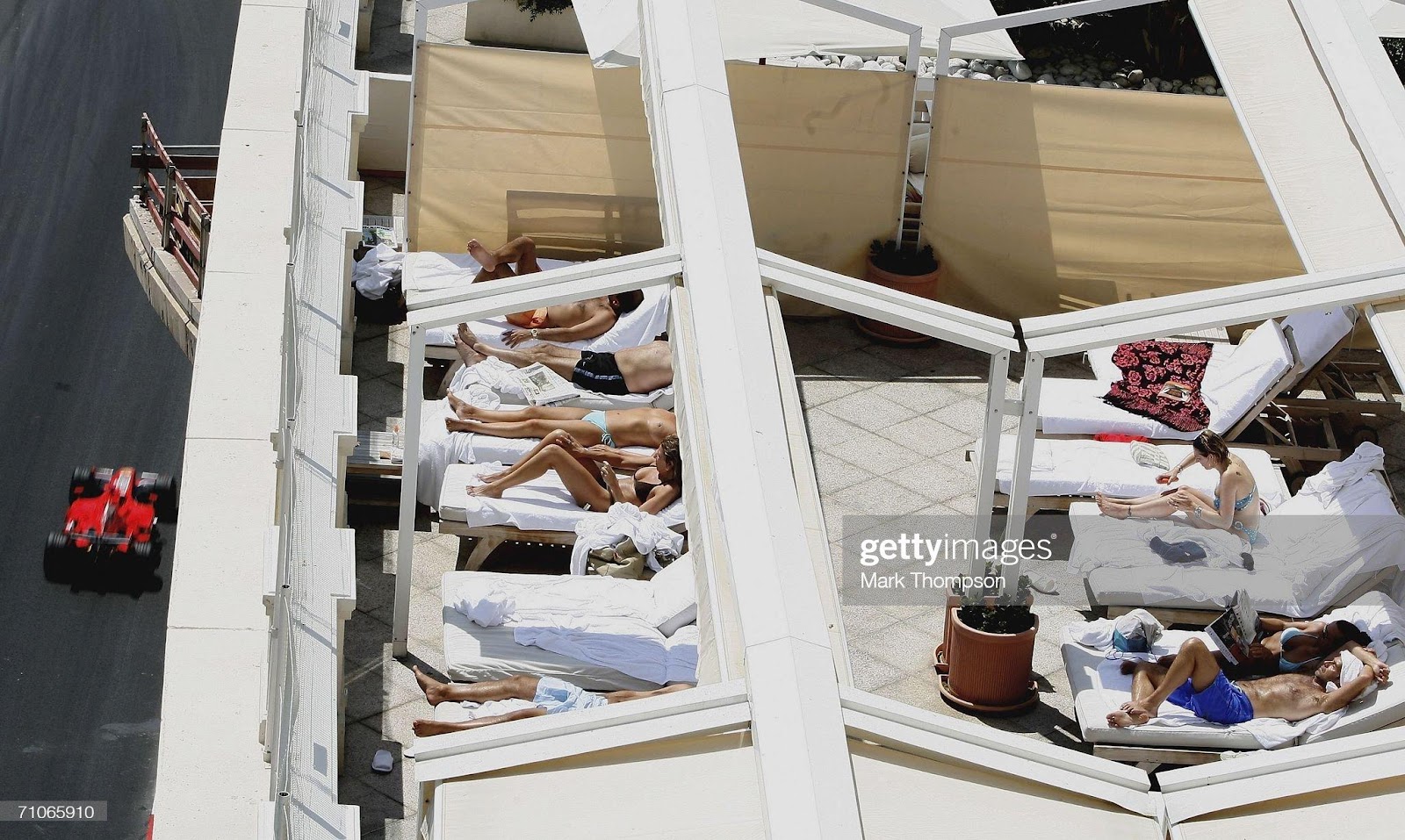
Michael Schumacher, Ferrari, in action below hotel sunbathers during qualifying for the Monaco F1 Grand Prix at the Monte Carlo Circuit on May 27, 2006. Photo by Mark Thompson/Getty Images.
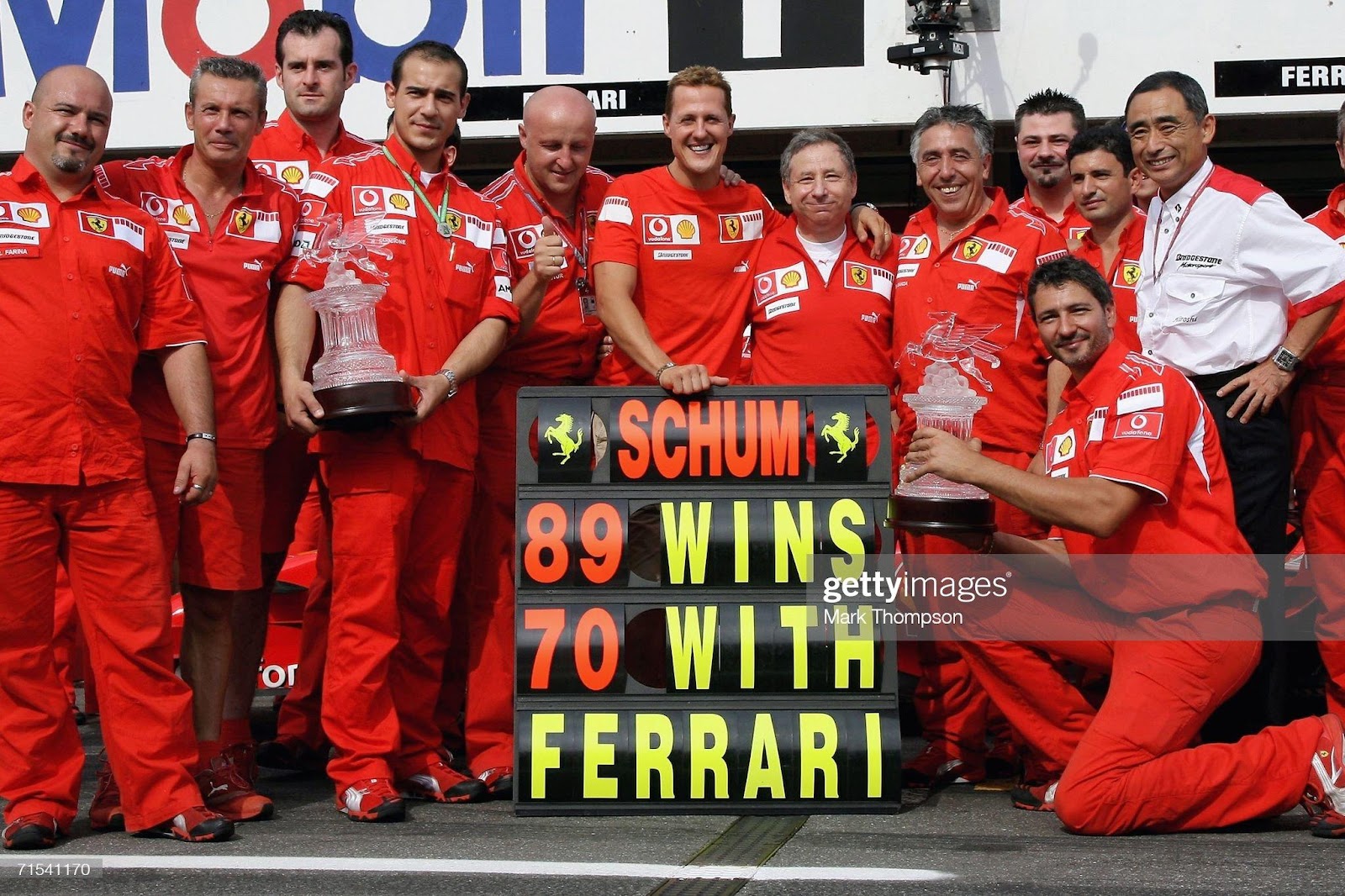
Michael Schumacher, Ferrari, celebrates his victory with his team-mates after the German F1 Grand Prix at the Hockenheimring on July 30, 2006 in Hockenheim, Germany. Photo by Mark Thompson/Getty Images.
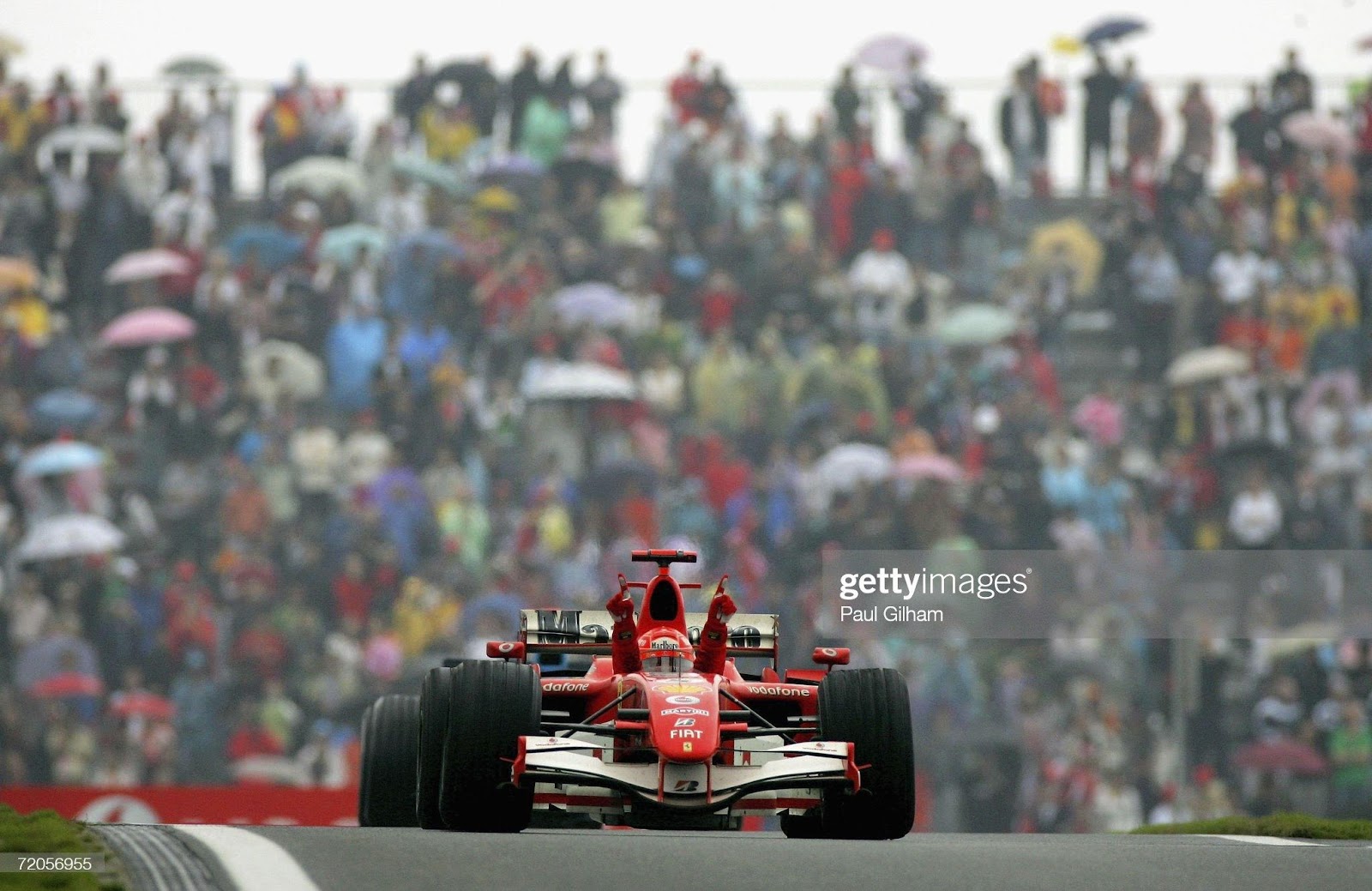
Michael Schumacher, Ferrari, celebrates winning the Chinese F1 Grand Prix at Shanghai International Circuit on October 1, 2006. Photo by Paul Gilham/Getty Images.
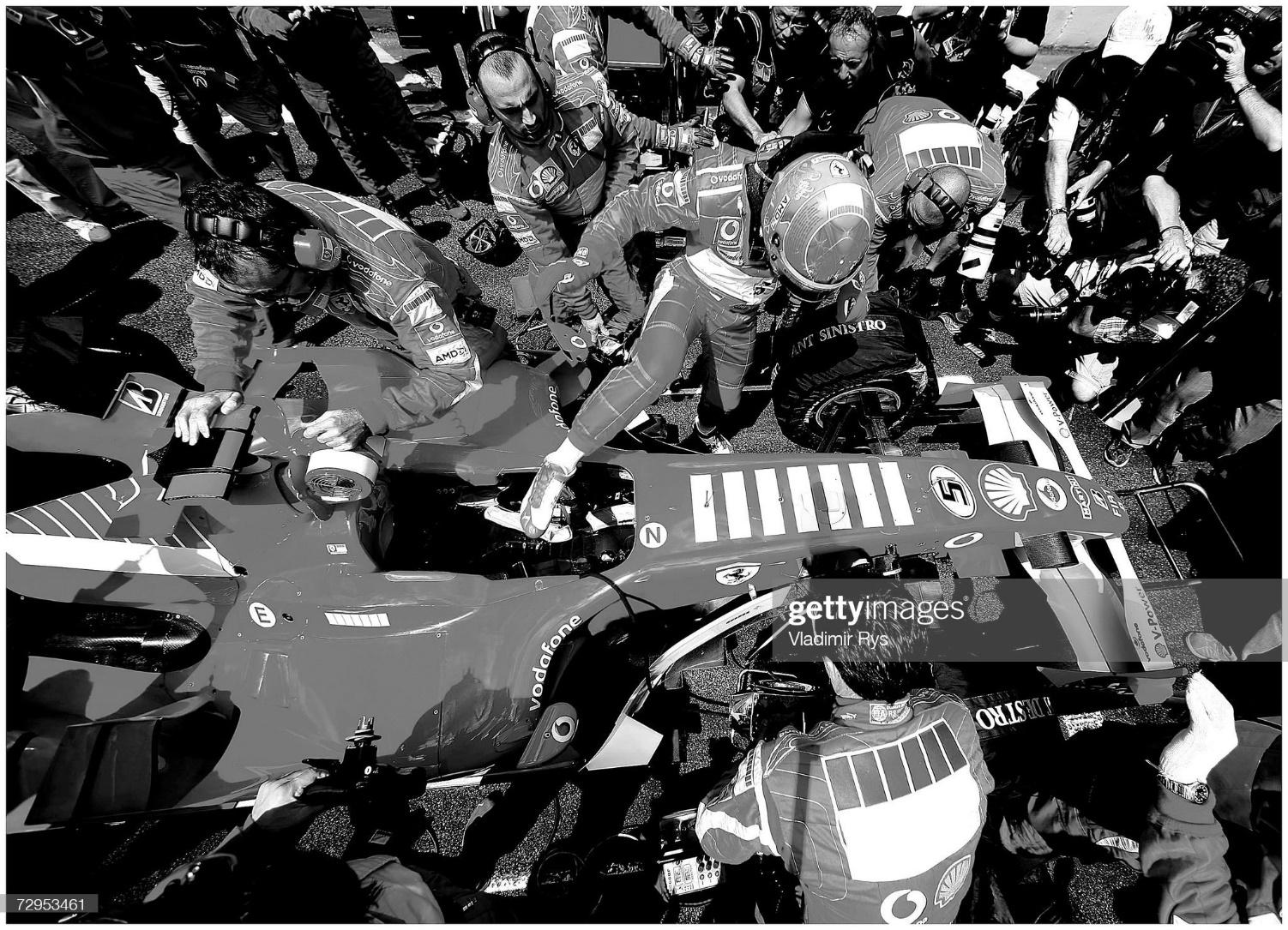
Michael Schumacher, Ferrari, participates in his last race on October 22, 2006. Photo by Vladimir Rys/Bongarts/Getty Images.
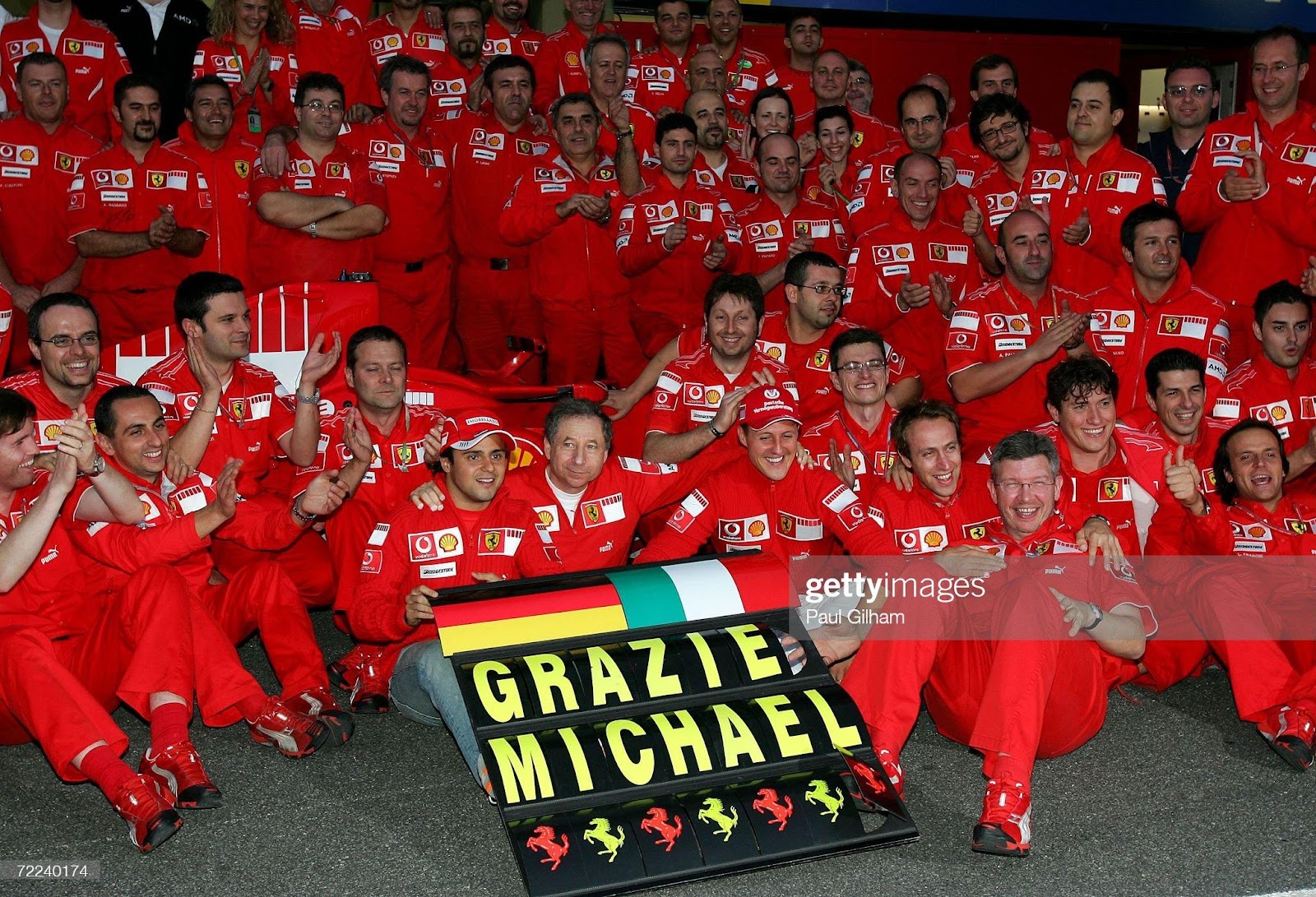
Michael Schumacher and Felipe Massa celebrate with their team-mates at the end of the Brazilian F1 Grand Prix at the Autodromo Interlagos on October 22, 2006 in Sao Paulo, Brazil. Photo by Paul Gilham/Getty Images.
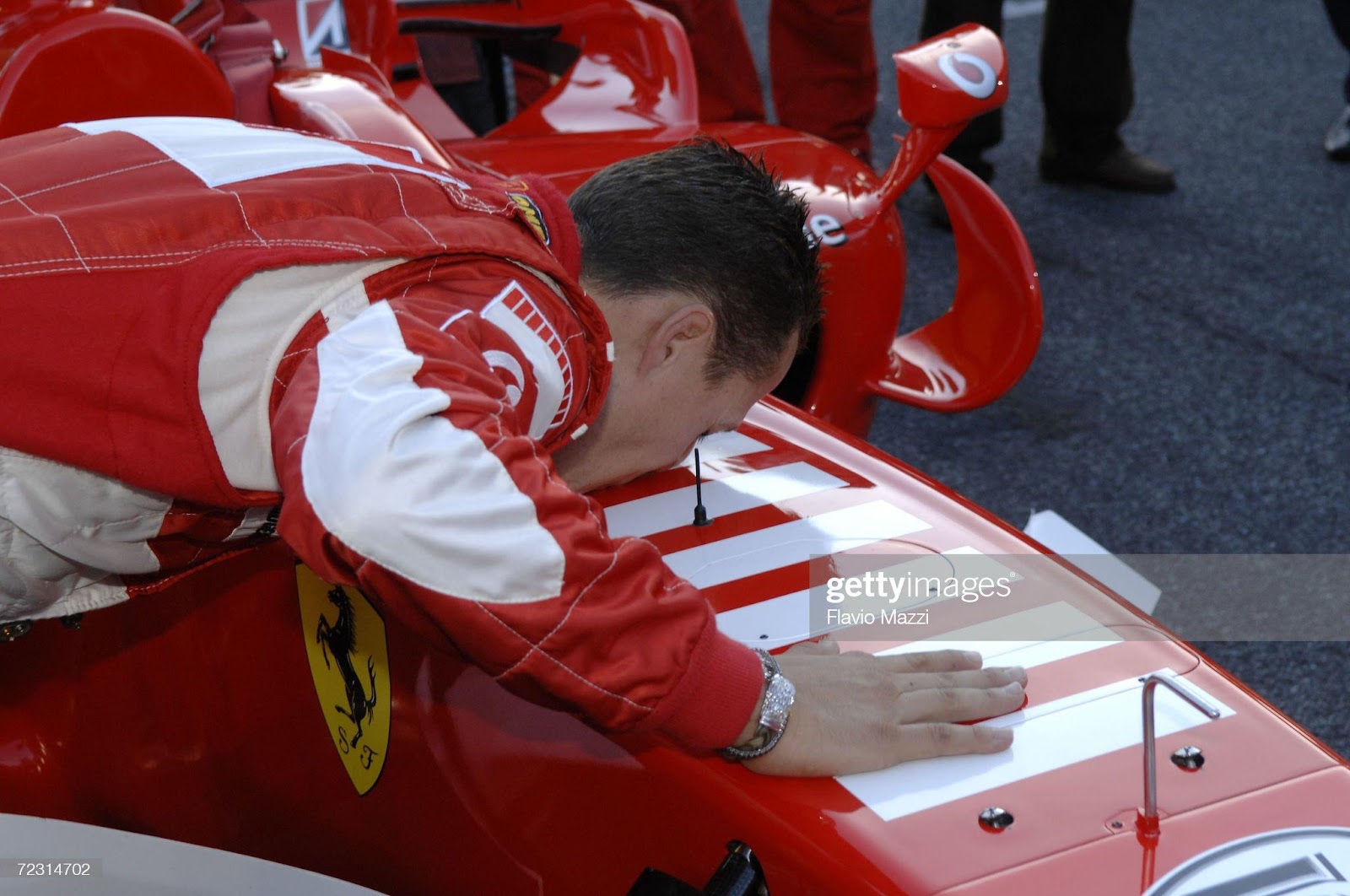
Michael Schumacher kisses his Ferrari during the Ferrari Days on October 29, 2006 in Monza, Italy. Photo by Flavio Mazzi/Bongarts/Getty Images.
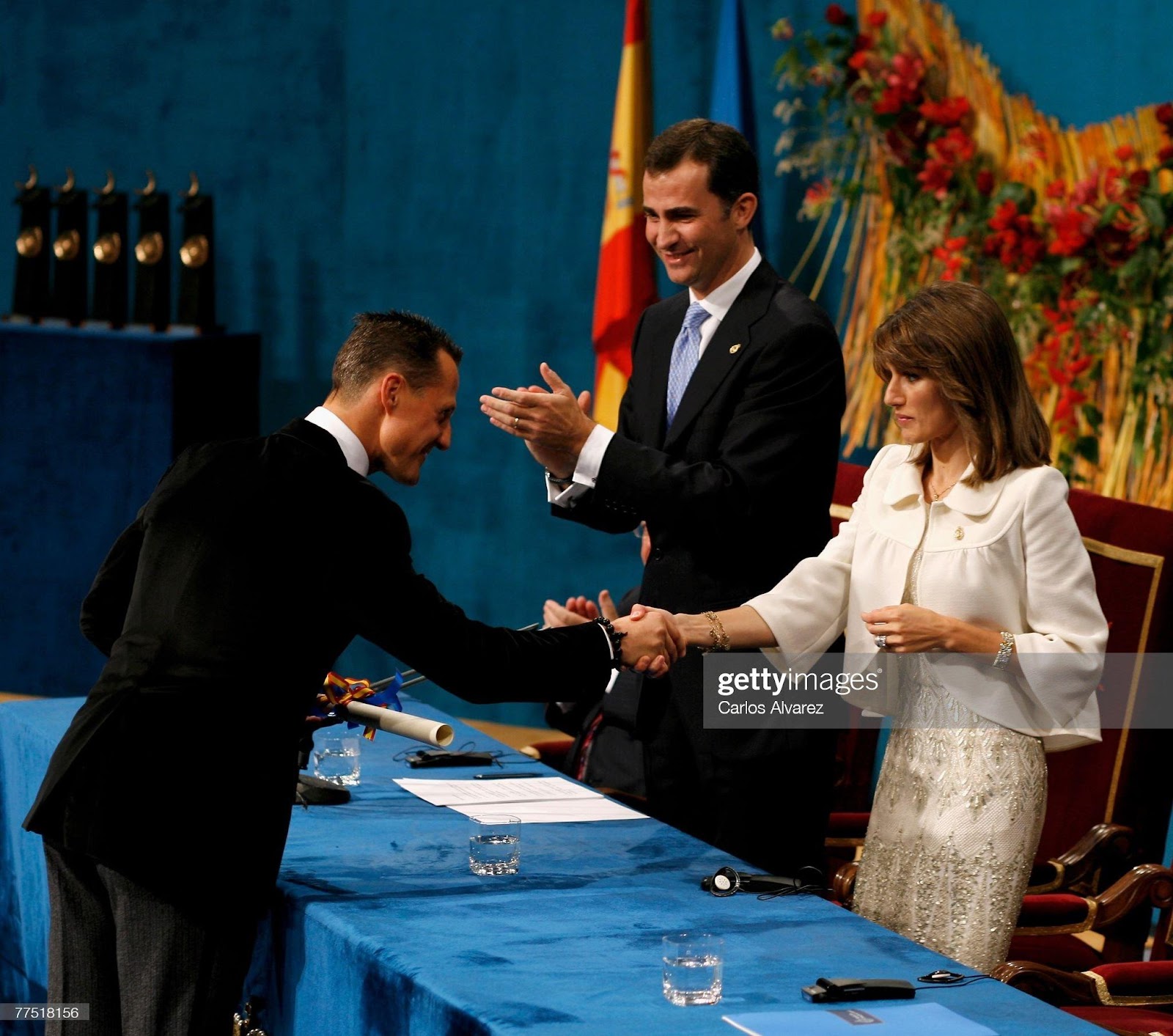
Michael Schumacher receives from Princess Letizia of Spain the Sport Award during Prince of Asturias Award Ceremony on October 26, 2007 at the "Campoamor" Theatre in Oviedo, Spain. Photo by Carlos Alvarez/Getty Images.
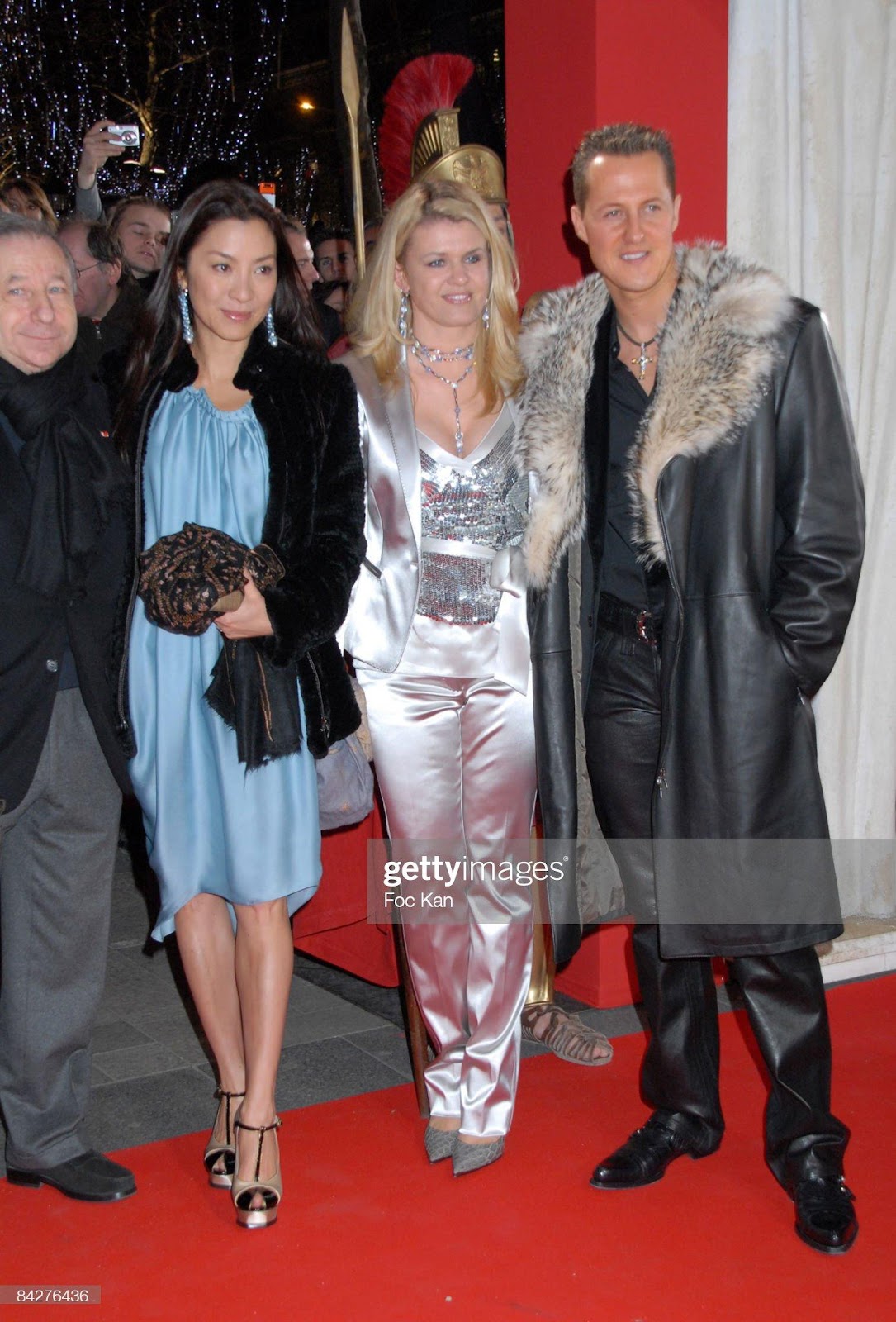
Jean Todt, Michelle Yeoh, Corinna Schumacher and Michael Schumacher attend the Asterix at The Olympic Games Paris Premiere at The Gaumont Marignan on January 13, 2008 in Paris, France. Photo by Foc Kan/WireImage.
In 2007 the Nürburgring racing track renamed turns 8 and 9 as the Schumacher S. Ross Brawn, the Manchester - born technical director who has guided Schumacher to his record seven world championships, said: “people cannot understand what it is like to be Schumacher. He withdraws from public because he is naturally shy. But with his friends he is fiercely loyal and loves to joke.” Harold Huisman, a neighbor in Norway, said: “people think Michael is always angry, always miserable. He is not. He is just cautious about showing his true personality in public. But he is a lovely, warm guy — a family man who hasn’t forgotten his working-class roots.” What was supposed to be a relaxed ski-run during the winter break in French ski resort of Méribel has changed Michael’s life from one day to another. On 29 December 2013 he suffered a major craniocerebral trauma in an accident in the French Alps, where he owns a chalet. He had been skiing on the piste with his son and family friends but moved to a patch about three to six meters of off-piste located between two runs. He skied into a rock and then was catapulted on to another, banging his head with such force that his helmet split in two. Surgeons performed two operations to relieve pressure on his brain and remove blood clots in the days following his accident.
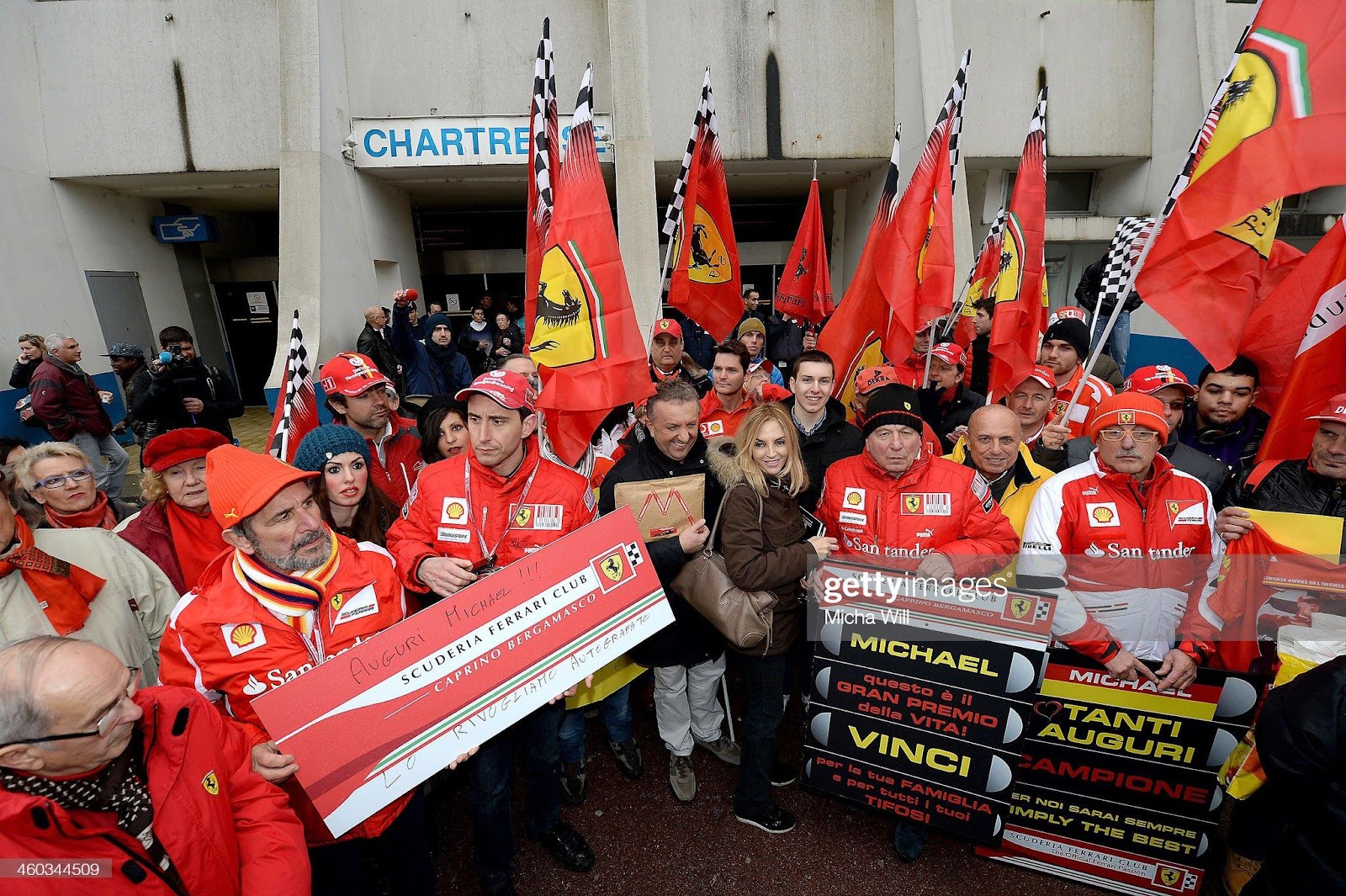
Fans gather in front of the main entrance of Grenoble University Hospital Centre where former German Formula One driver Michael Schumacher is being treated for a severe head injury following a skiing accident on January 3, 2014 in Grenoble, France. Fans gathered outside the hospital to mark Schumacher's 45th birthday, five days after the former driver suffered a serious head injury whilst skiing off-piste. He is currently in a medically induced coma and it is reported that his condition remains critical. Photo by Micha Will/Bongarts/Getty Images.
He returned to his family home to continue his recovery from the extensive head injuries he suffered.
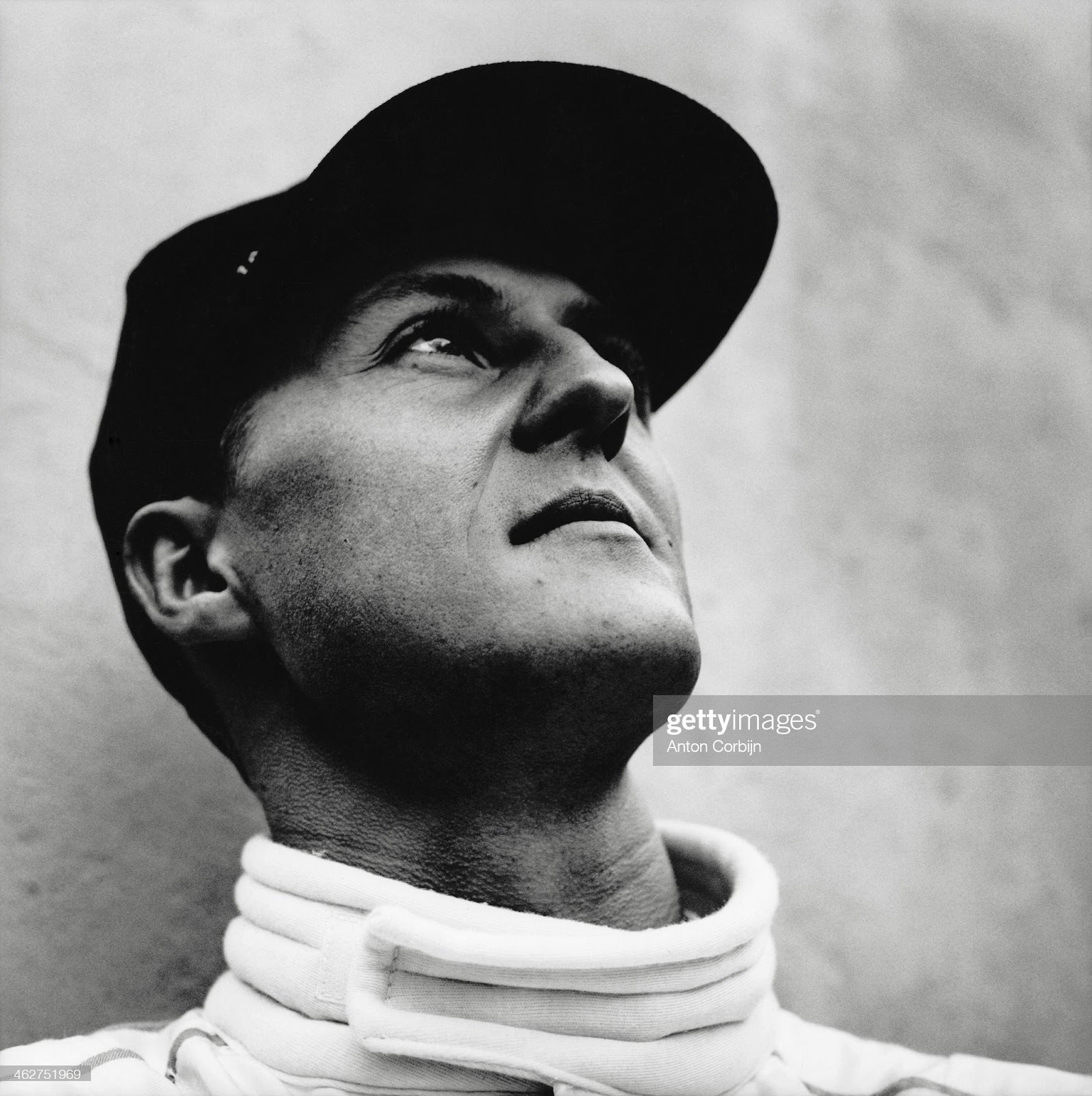
German racing driver Michael Schumacher is photographed for Max Magazine on December 15, 1995 in Estoril, Portugal. Photo by Anton Corbijn/Contour by Getty Images.
Michael Schumacher, born 3 January 1969, raced in F1 for Jordan Grand Prix, Benetton and Ferrari, where he spent the majority of his career, as well as for Mercedes upon his return to the sport. The most successful driver in the history of the sport, Schumacher holds the records for the most World Championship titles (7), five of which he won consecutively, and the most Grand Prix wins (91). After success in karting as a child, Schumacher won titles in Formula König and Formula Three before joining Mercedes in the World Sportscar Championship.
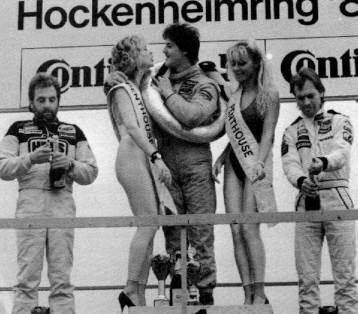
Growing up in a sexist environment F1 girls had moved from the podium into the paddock and from swimsuits into catsuits. Michael Schumacher's entry into Formula One opened up a whole new world to him that his earlier racing career, impressive though it was, could not have entirely prepared him for. Formula Three (or any other motoring sport for that matter) is about as similar to F1 as travelling economy class is to a flight on Concorde. F1 is the ultimate postmodern arena: this most glamorous and decadent of all motor sports transforms little known drivers into worldwide celebrities under the constant glare of the media. Everything is subordinated to the spectacle: safety measures are bemoaned by the masses for spoiling the excitement of a race, hence the safety car used to control the speed of the drivers in bad weather is used as little as possible, sometimes with fatal consequences. The true fans of the sport are kept well away behind huge iron gates, but any fairly decent looking celebrity who expresses the slightest interest is welcomed in with open arms. And as for women ..., as far as the organisers are concerned, F1, like James Bond movies, is a male heterosexual fantasy where the men control everything that matters and the women ("grid girls") are beautiful and vapid and dress in Lycra catsuits. They want to keep it that way. "There is something aspirational about Formula One. Fast cars, wealth, glamour, sex, danger. They are a potent mixture. Other sports contain elements of these, but none contains them all." Victory on the racetrack can therefore be considered to have sexual connotations. This sexual motive is important to Michael, as we shall see.
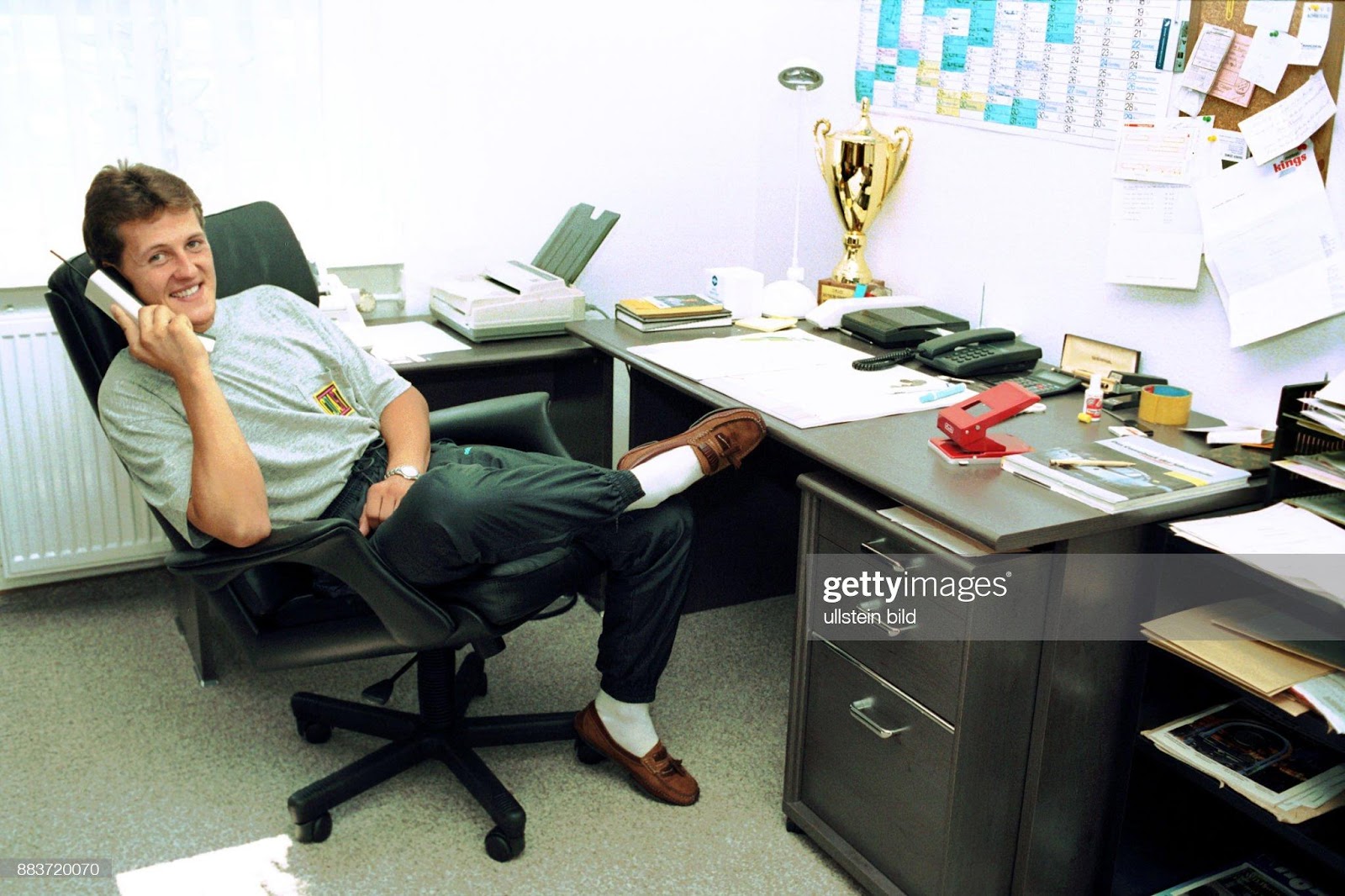
Michael Schumacher in his apartment in Kerpen on 16.08.1991. Photo by Peter Timm\ullstein bild via Getty Images.
In 1991, his Mercedes-funded race debut for the Jordan Formula One team resulted in Schumacher being signed by Benetton for the rest of that season.
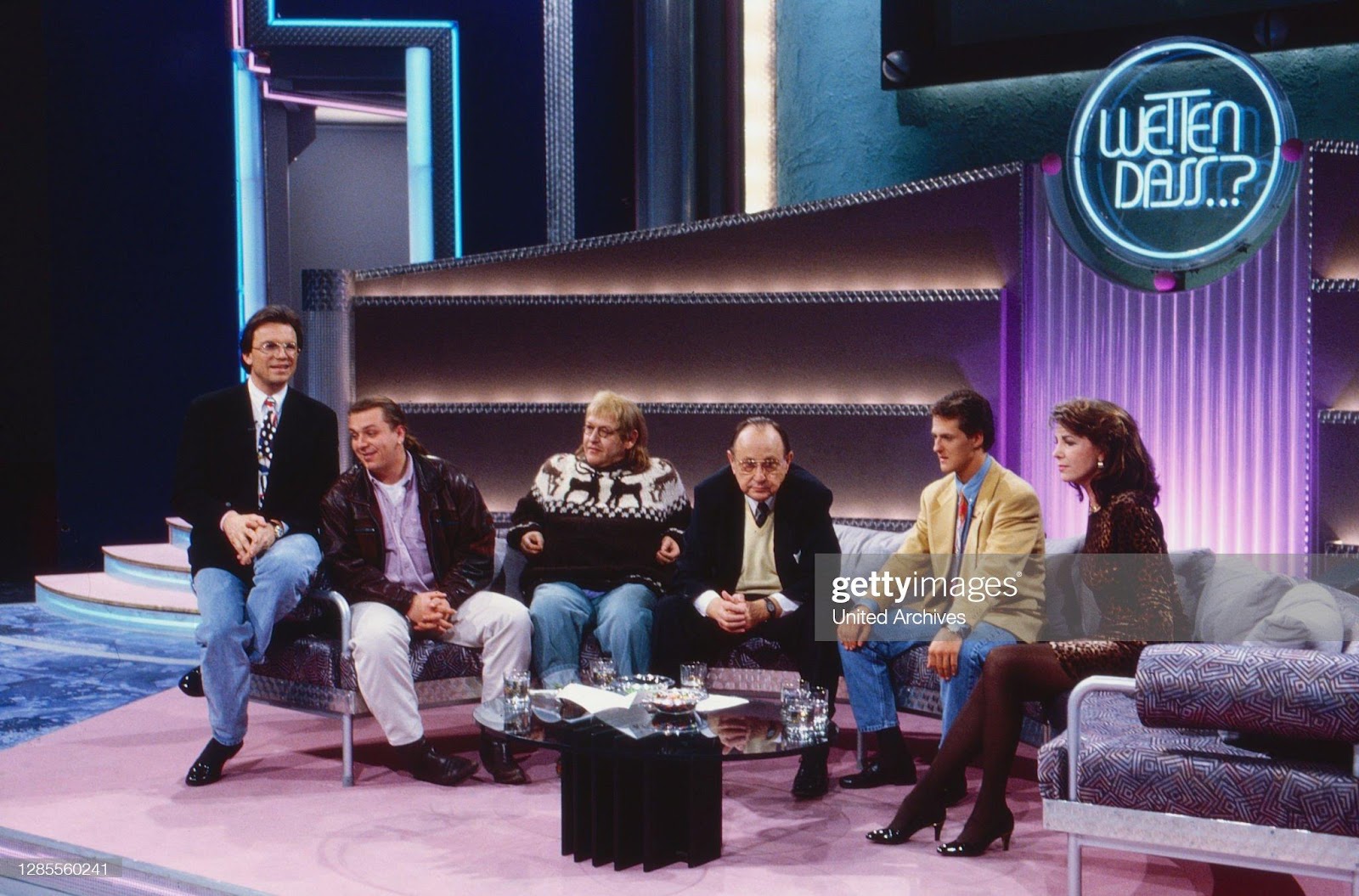
German TV game show “Wetten Dass”. Michael Schumacher with Petra Schürmann on December 6, 1992. Photo by Frank Hempel/United Archives via Getty Images.
He finished third in 1992 and fourth in 1993, before becoming the first German World Drivers' Champion in 1994.
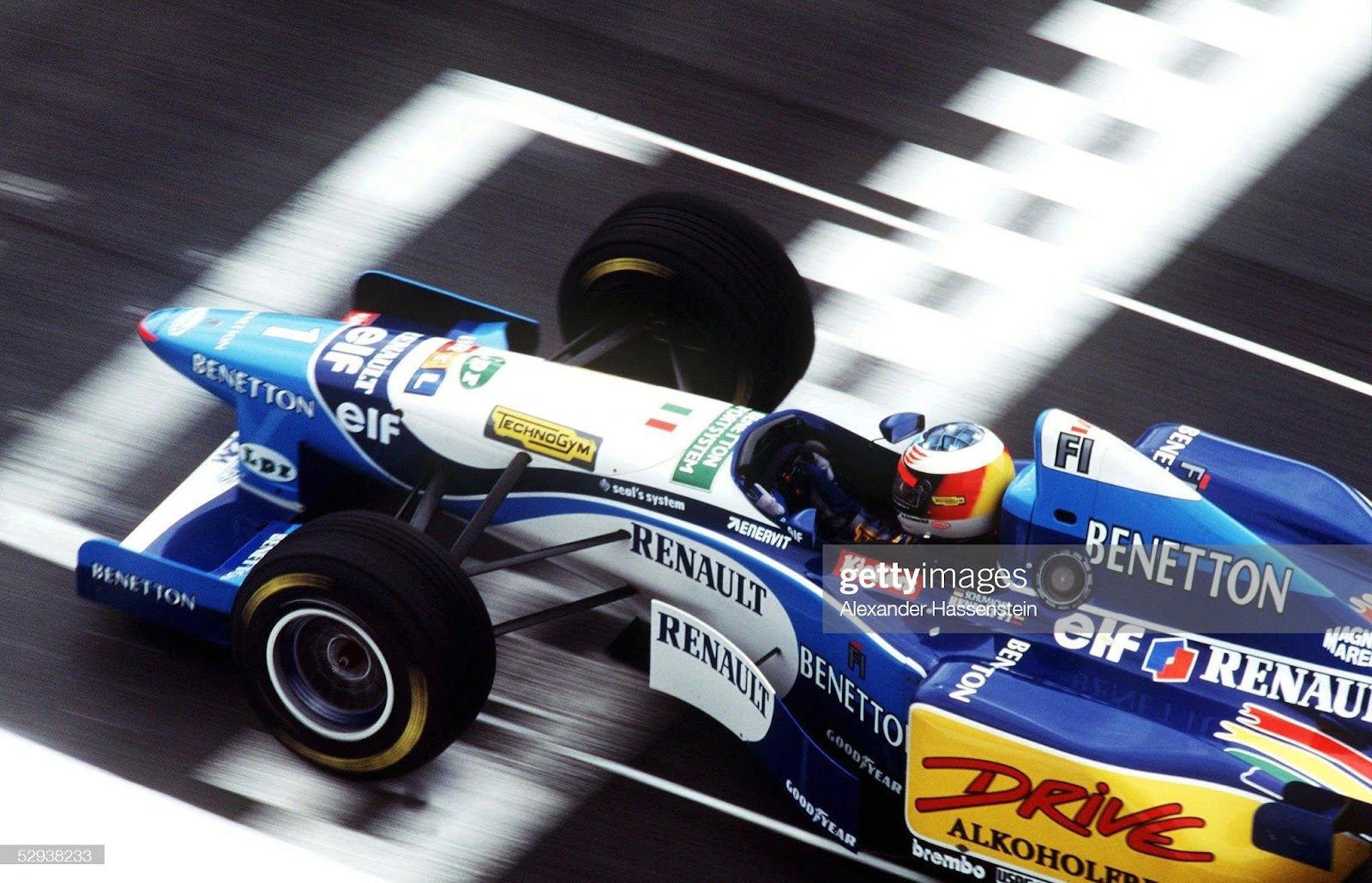
Michael Schumacher, Benetton Renault, at the French Grand Prix in Magny Cours on July 1, 1995. Photo by Alexander Hassenstein/Bongarts/Getty Images.
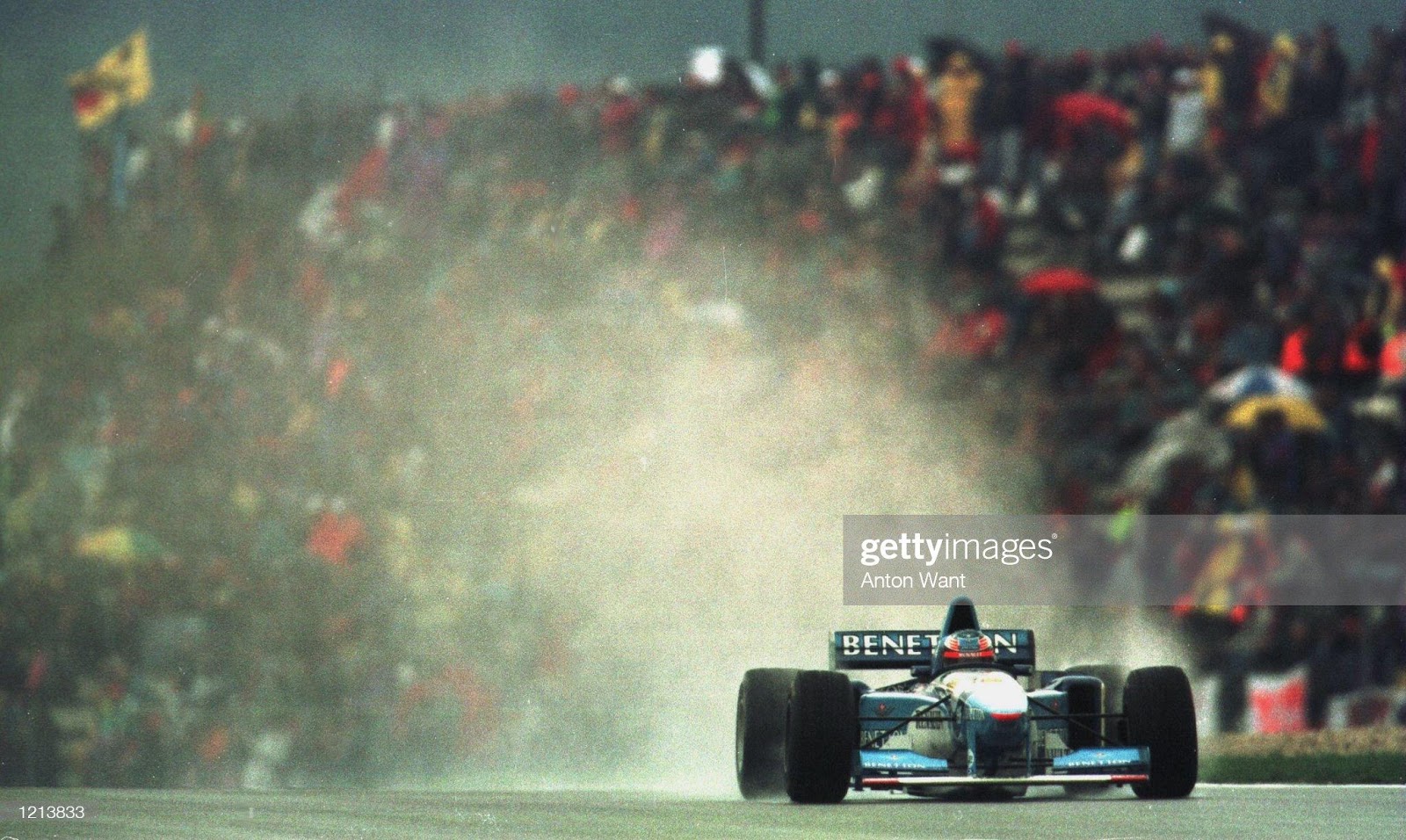
30 September 1995: Michael Schumacher in the Benetton sends up a wall of spray in front of his home crowd on the second day of practice at the European Grand Prix at the Nurburgring in Germany. Credit: Anton Want/Allsport.
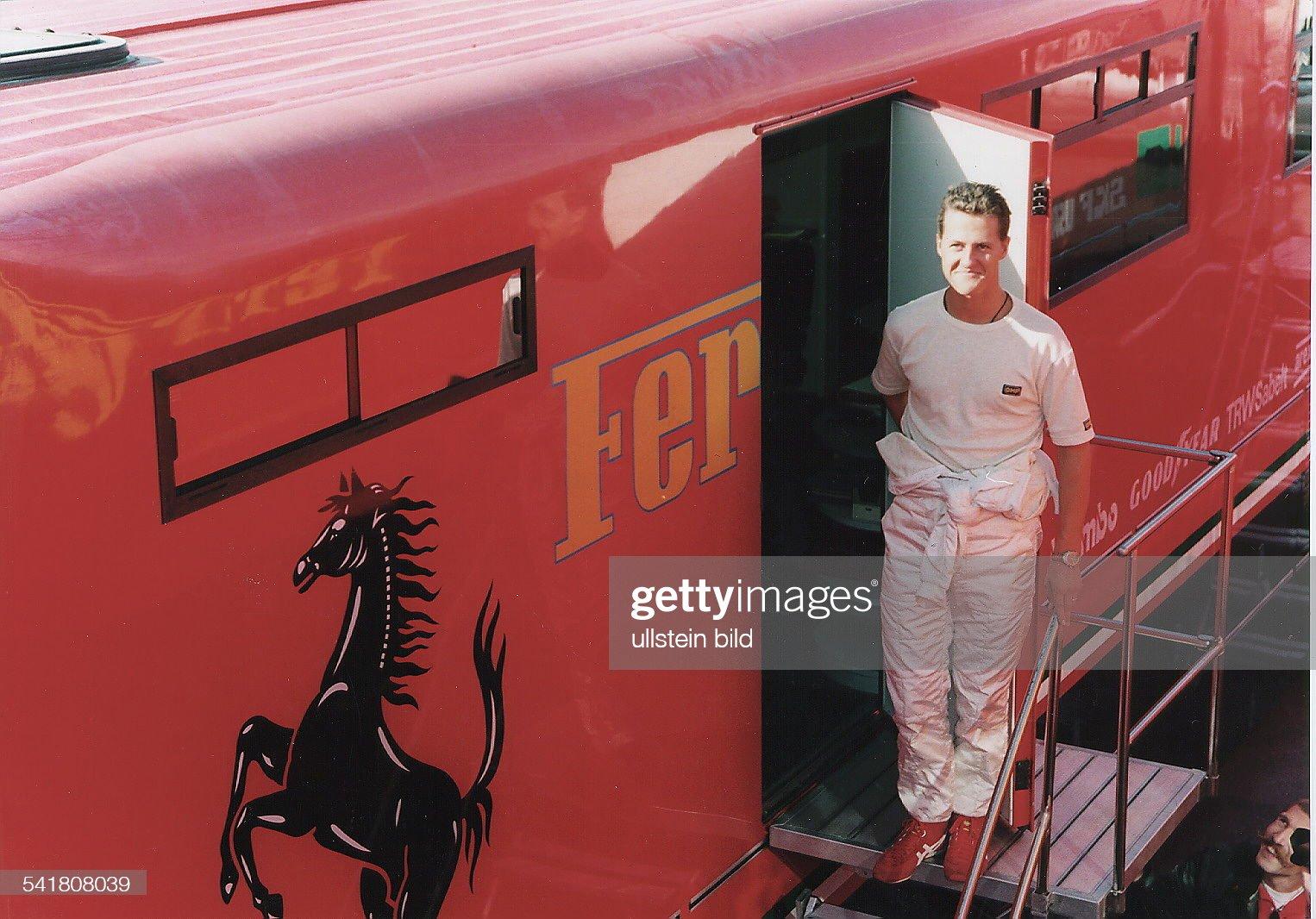
Michael Schumacher in front of the red Ferrari truck during test drives in Estoril, Portugal, in November 1995. Photo by Stephan/Ullstein Bild via Getty Images.
In 1995 he repeated the success with a greater margin.
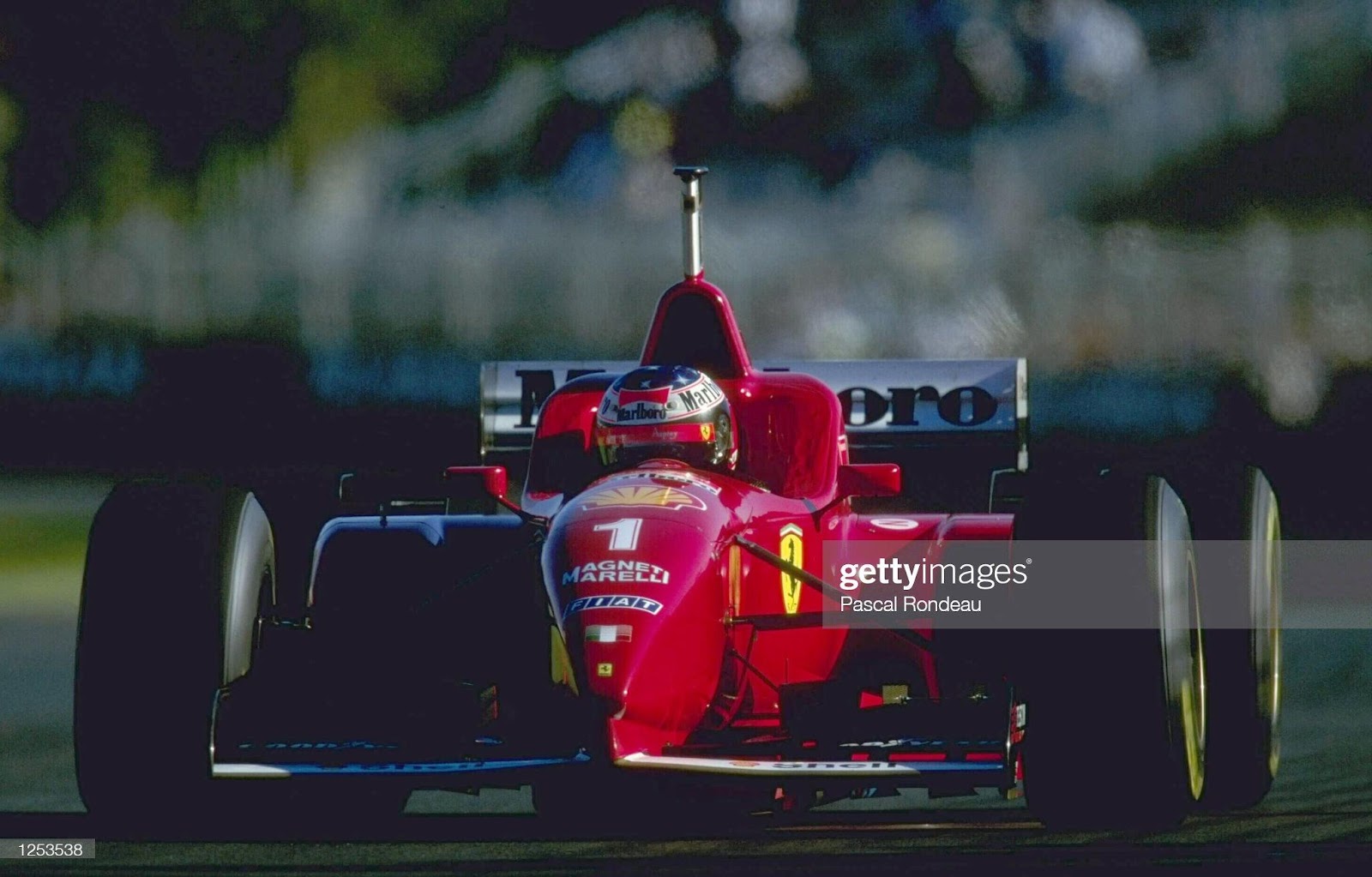
Michael Schumacher in action in his Ferrari during the Australian F1 Grand Prix at Albert Park, Melbourne, on March 10, 1996. Credit: Pascal Rondeau/Allsport.
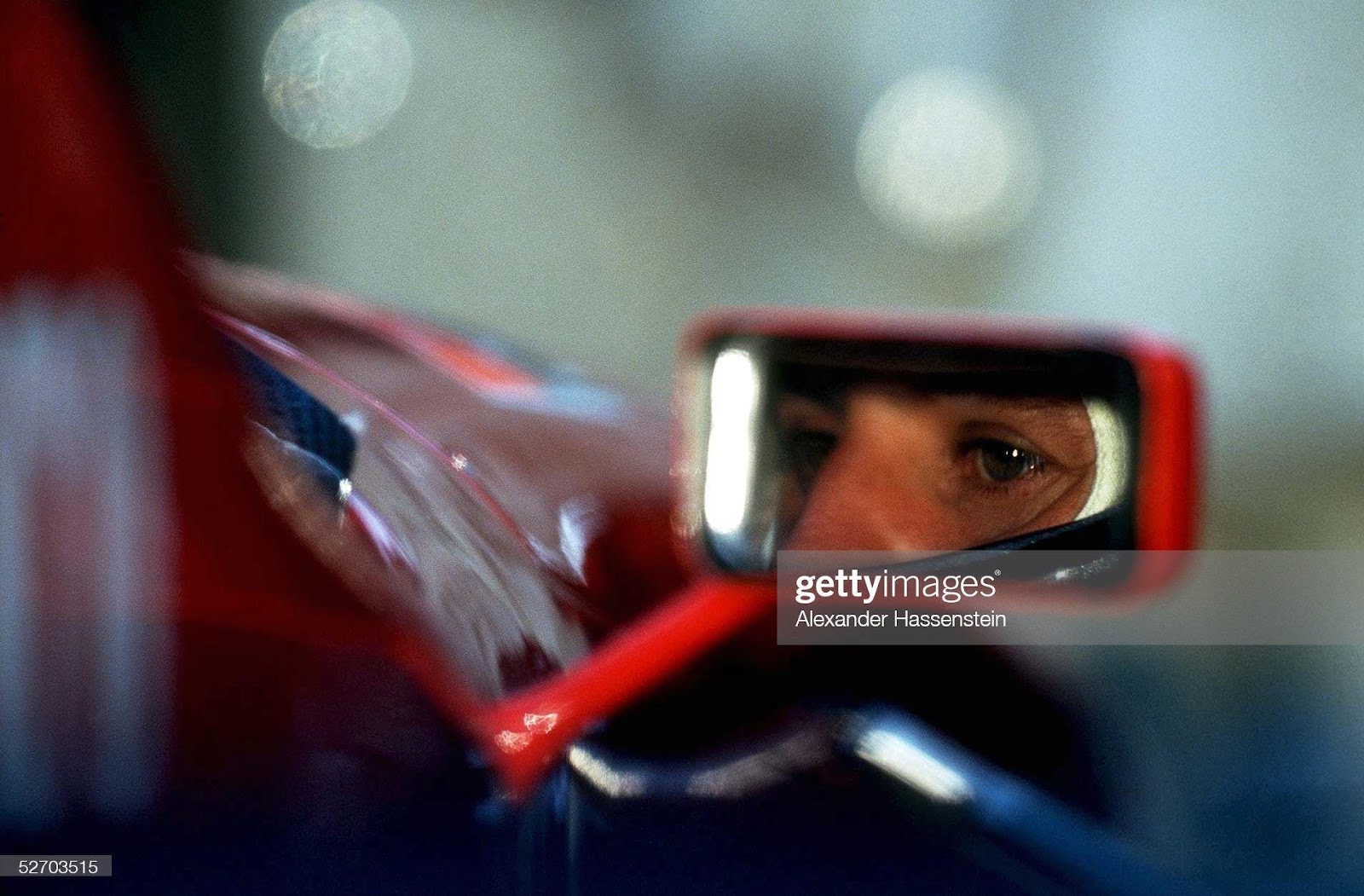
Michael Schumacher in a Ferrari at the Australian Grand Prix in Melbourne on March 12, 1996. Photo by Alexander Hassenstein/Bongarts/Getty Images.
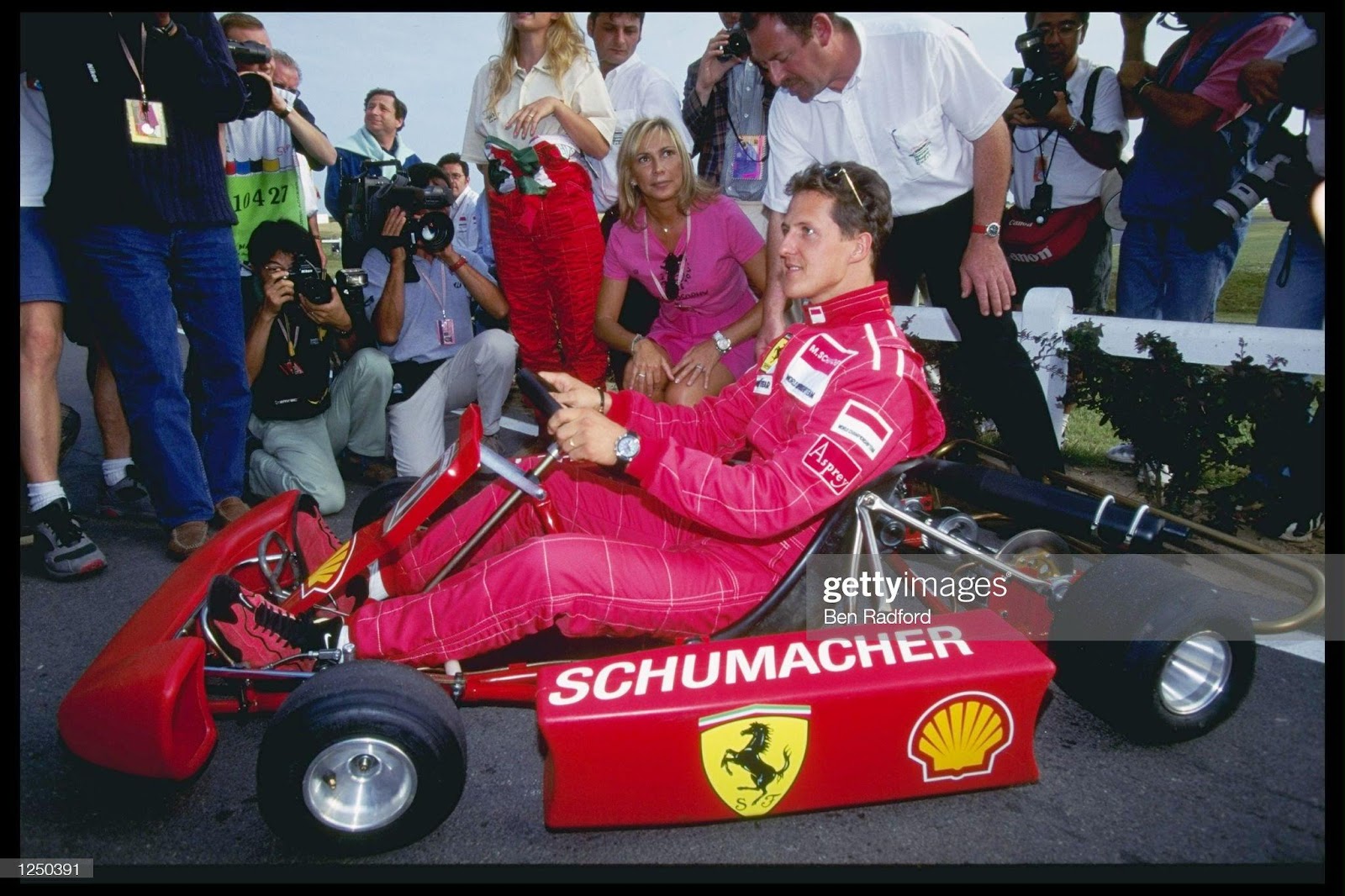
27 - 30 Jun 1996: Michael Schumacher relaxes with a spot of go-karting during the French Grand Prix in Magny Cours. Credit: Ben Radford/Allsport UK.
In 1996, Schumacher moved to Ferrari, who had last won the Drivers' Championship in 1979 and helped them transform into the most successful team in F1 history.
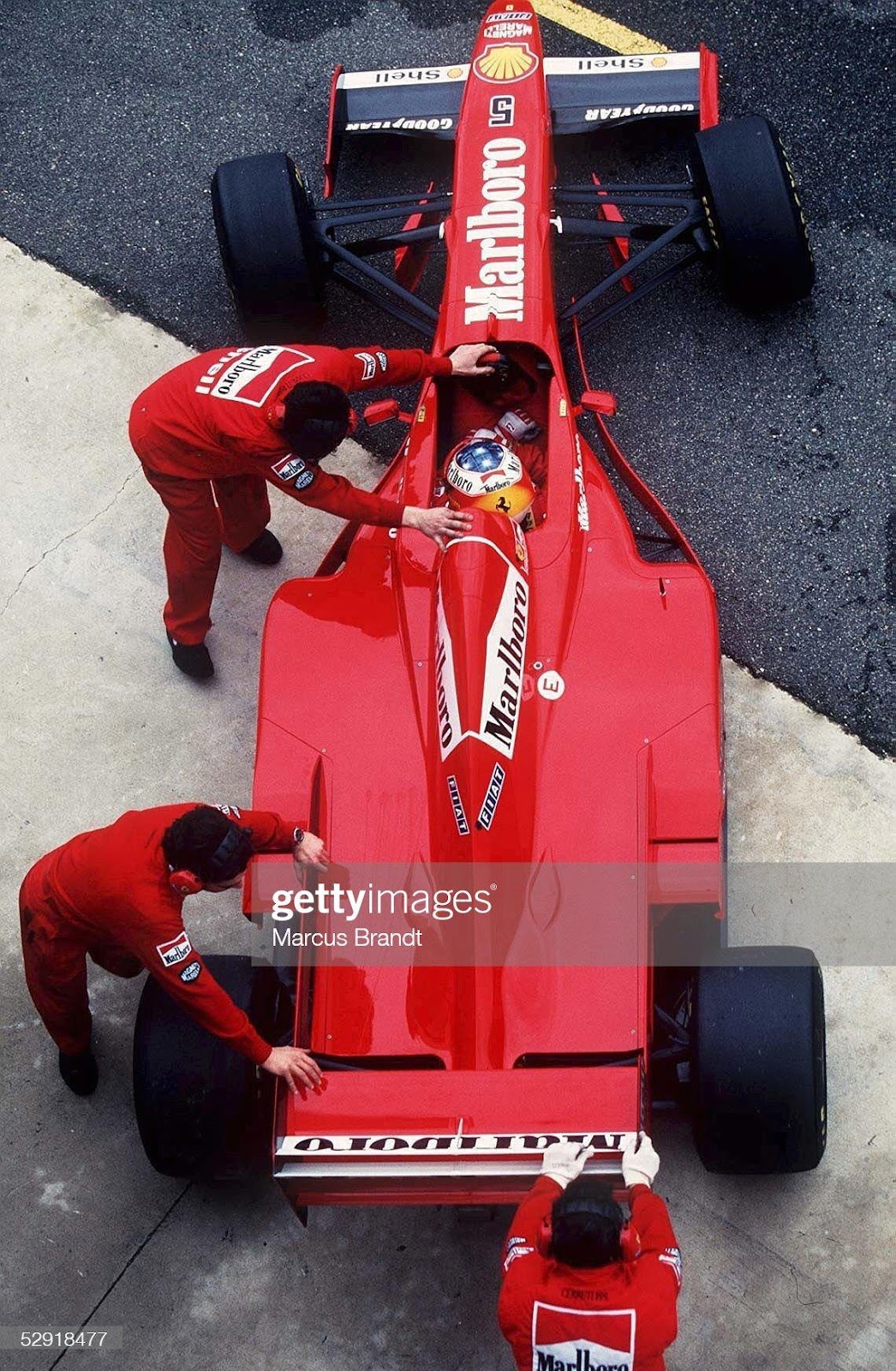
Michael Schumacher, Ferrari, testing at Jerez on January 18, 1997. Photo by Marcus Brandt/Bongarts/Getty Images.
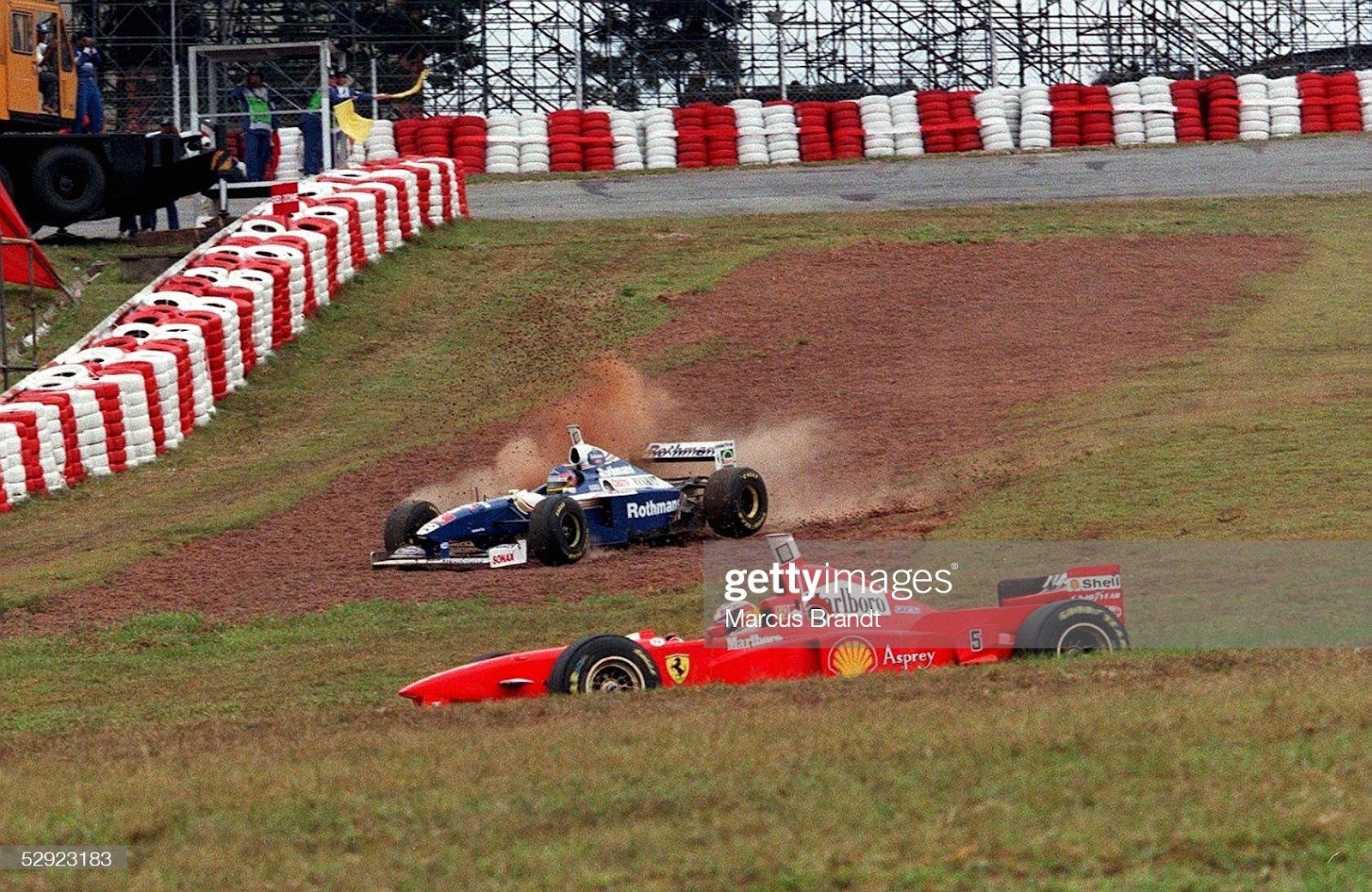
Michael Schumacher and Jacques Villeneuve at the Brazilian Grand Prix in Sao Paulo on March 30, 1997. Photo by Marcus Brandt/Bongarts/Getty Images.
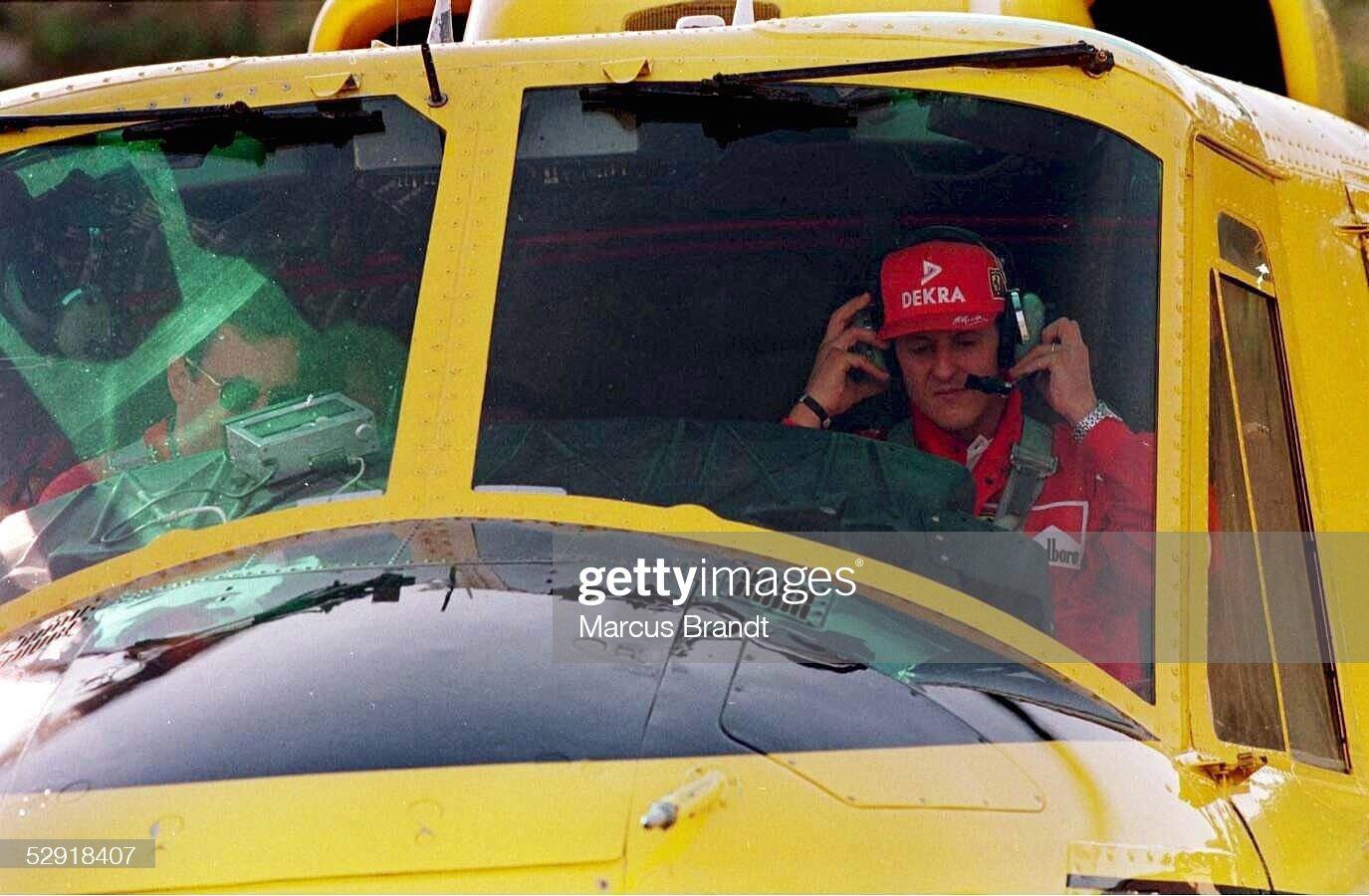
May 22, 1997. F1 Spanish Grand Prix in Barcelona. Michael Schumacher as co-pilot in the helicopter. Photo by Marcus Brandt/Bongarts/Getty Images.
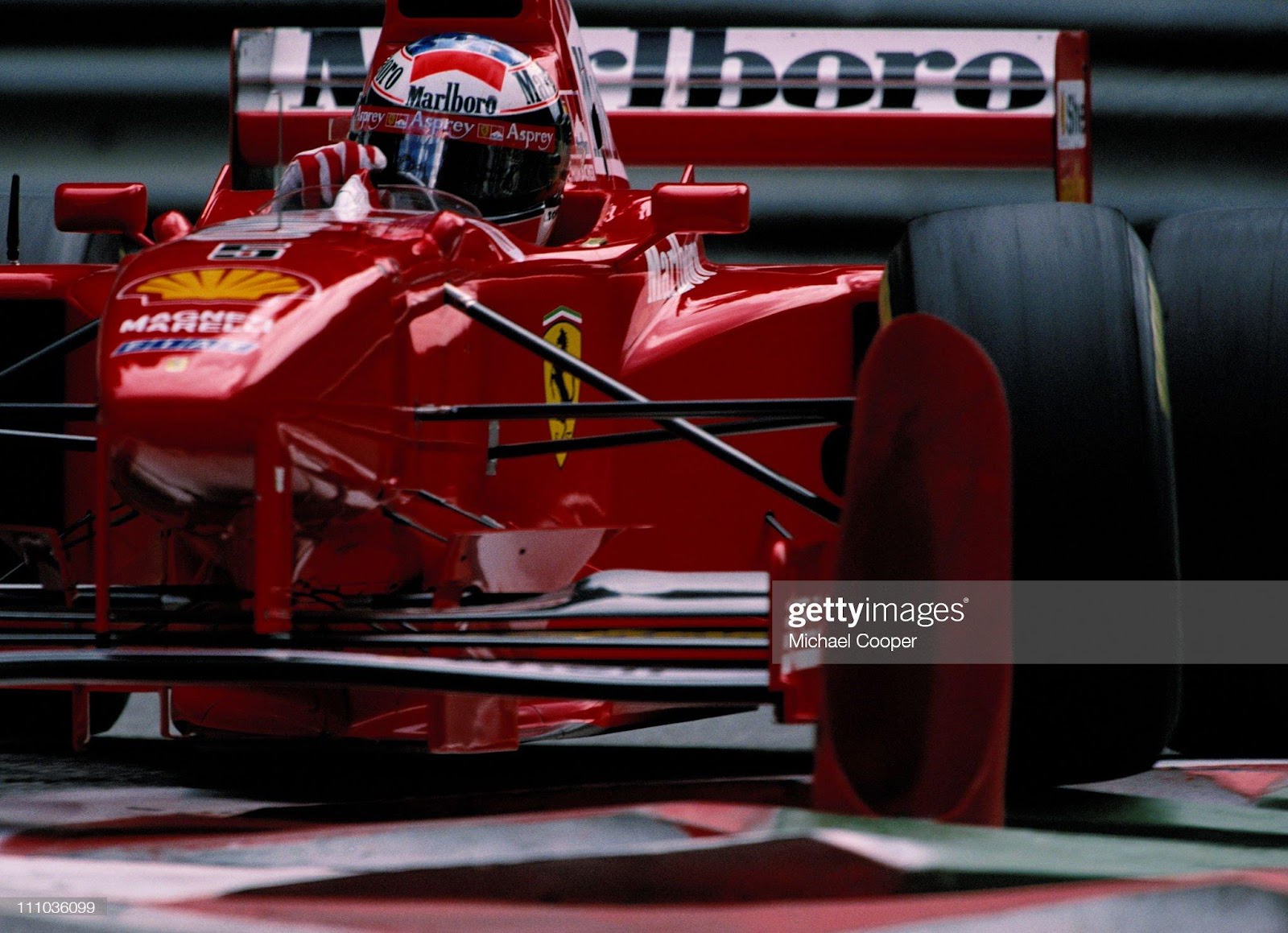
Michael Schumacher drives the n. 5 Ferrari F310B over the curbs during practice for the Belgian Grand Prix on 23rd August 1997 at the Circuit de Spa-Francorchamps. Photo by Michael Cooper/Getty Images.
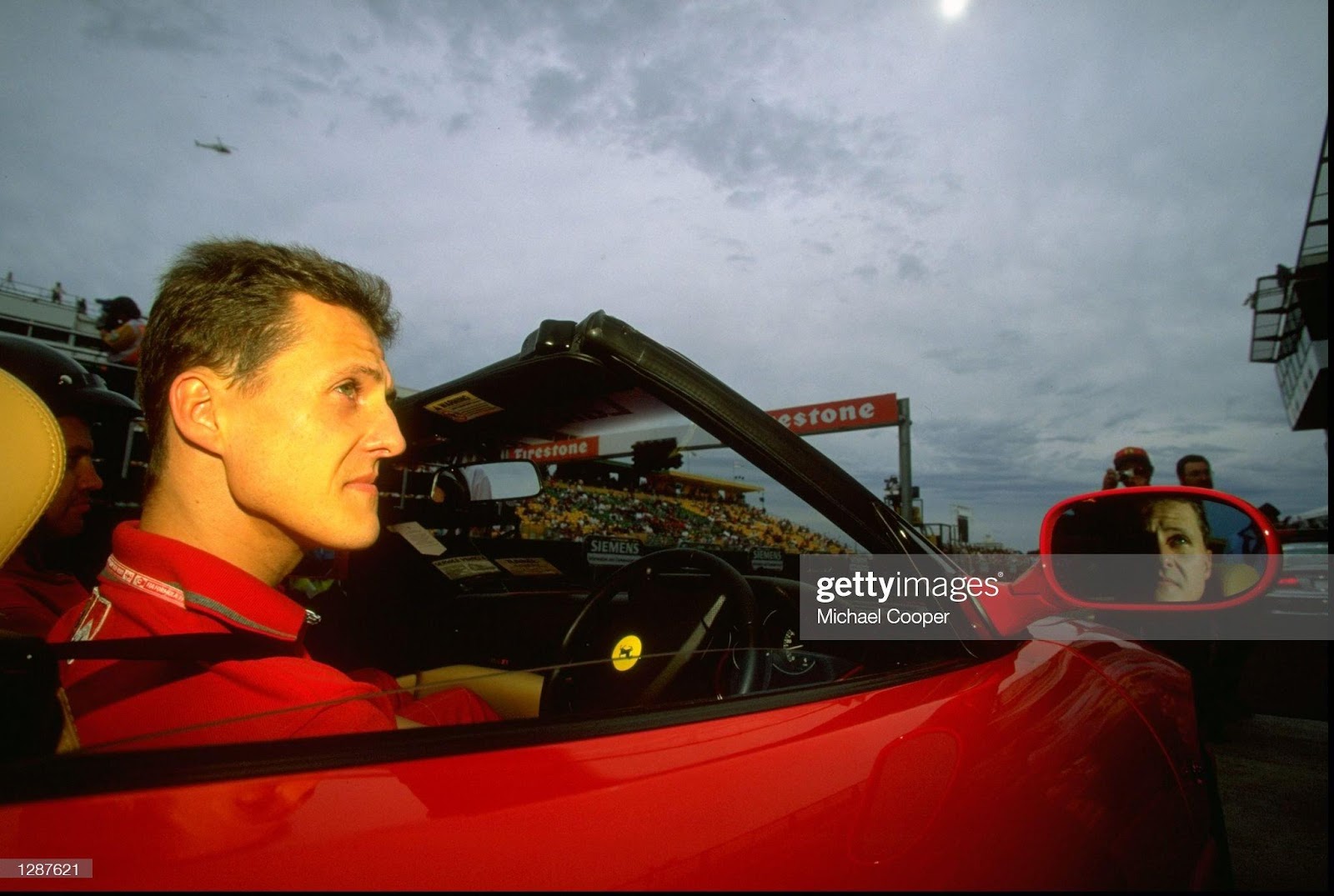
07 March 1999: Michael Schumacher in his Ferrari 355 Spyder before the F1 Australian Grand Prix at Albert Park in Melbourne. Credit: Michael Cooper /Allsport.
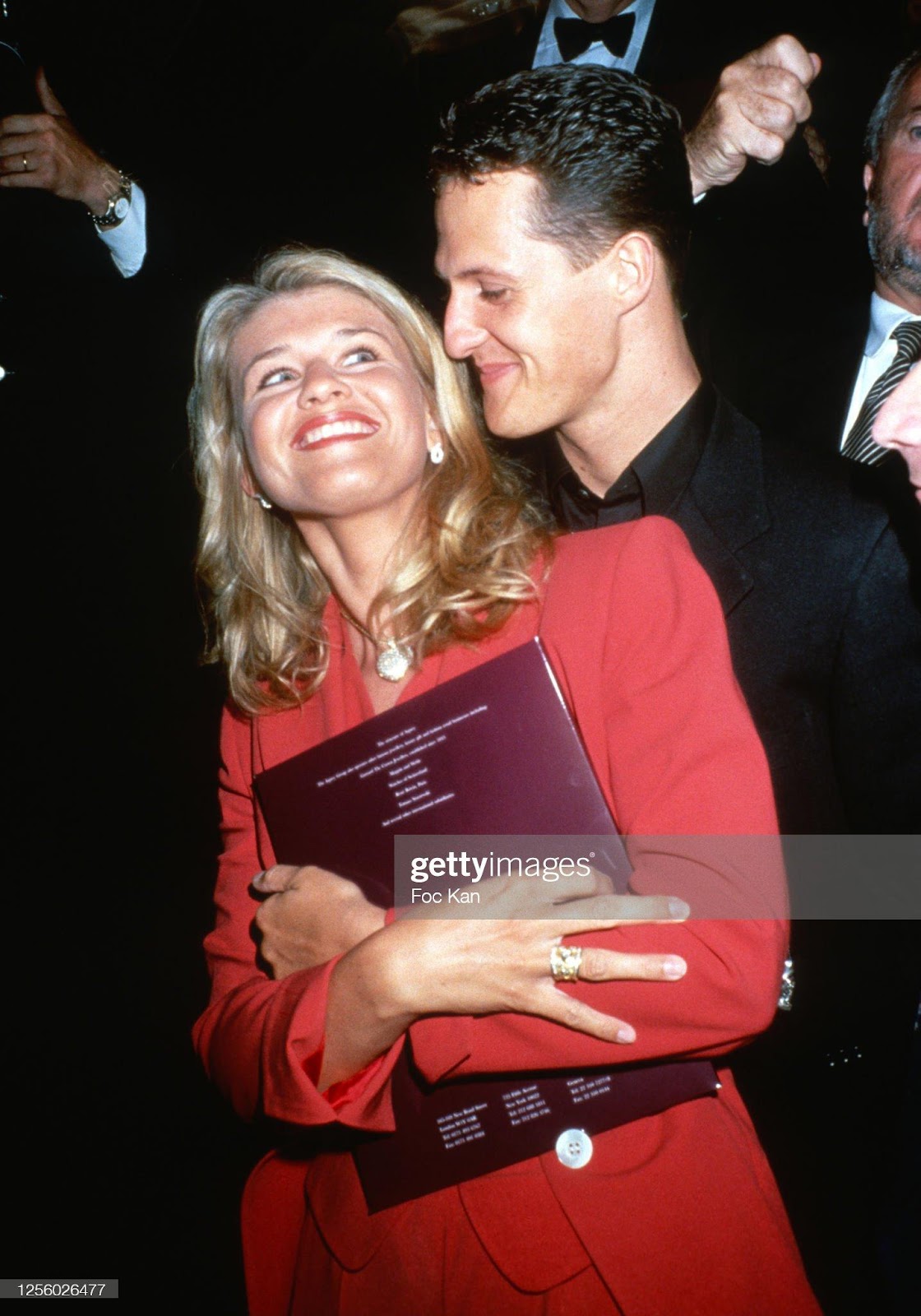
Michael Schumacher and his wife Corinna attend the 52nd Cannes Film Festival on May 01, 1999. Photo by FocKan/WireImage.
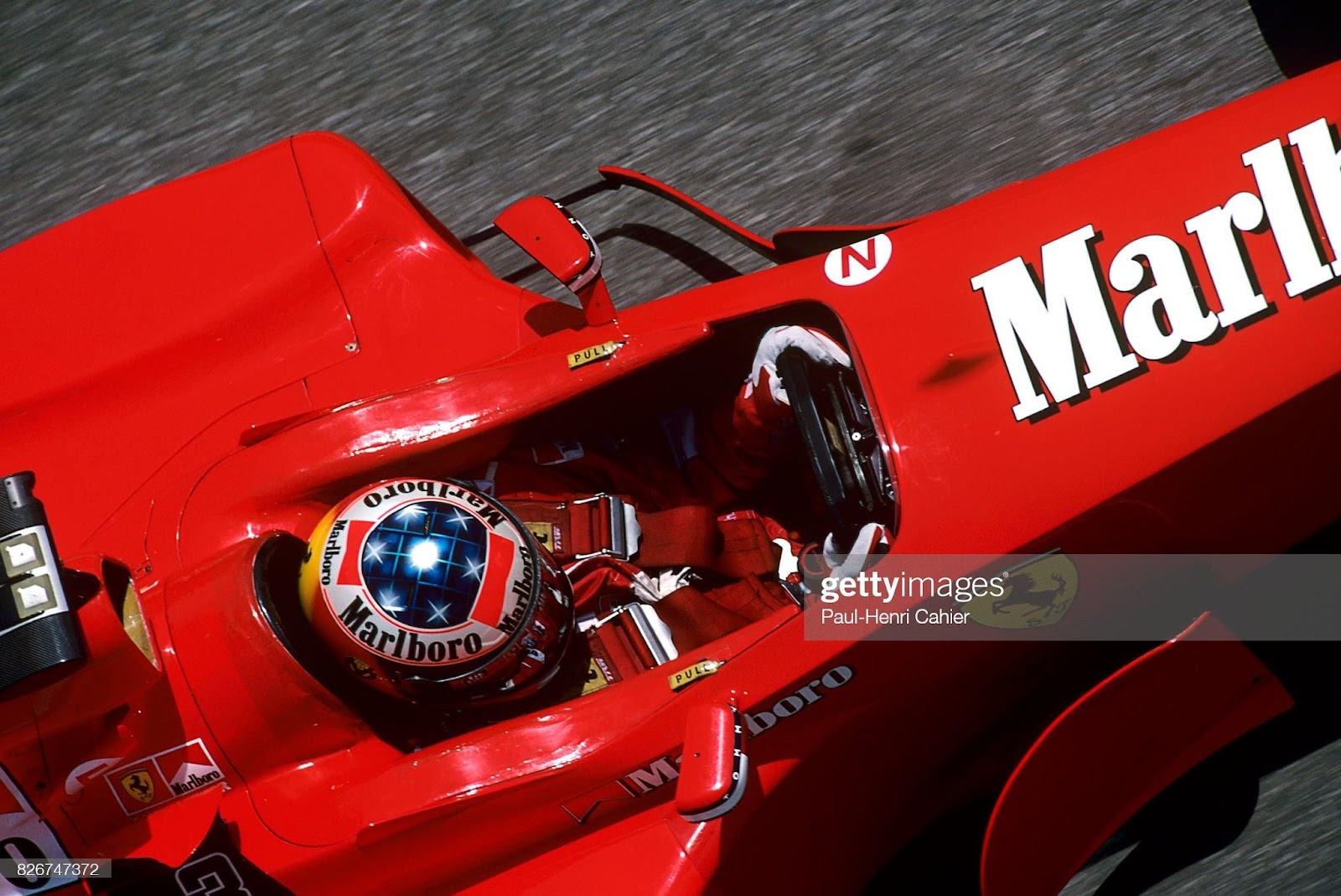
Michael Schumacher, Ferrari F399, Grand Prix of Spain, Circuit de Barcelona-Catalunya, 30 May 1999. Photo by Paul-Henri Cahier/Getty Images.
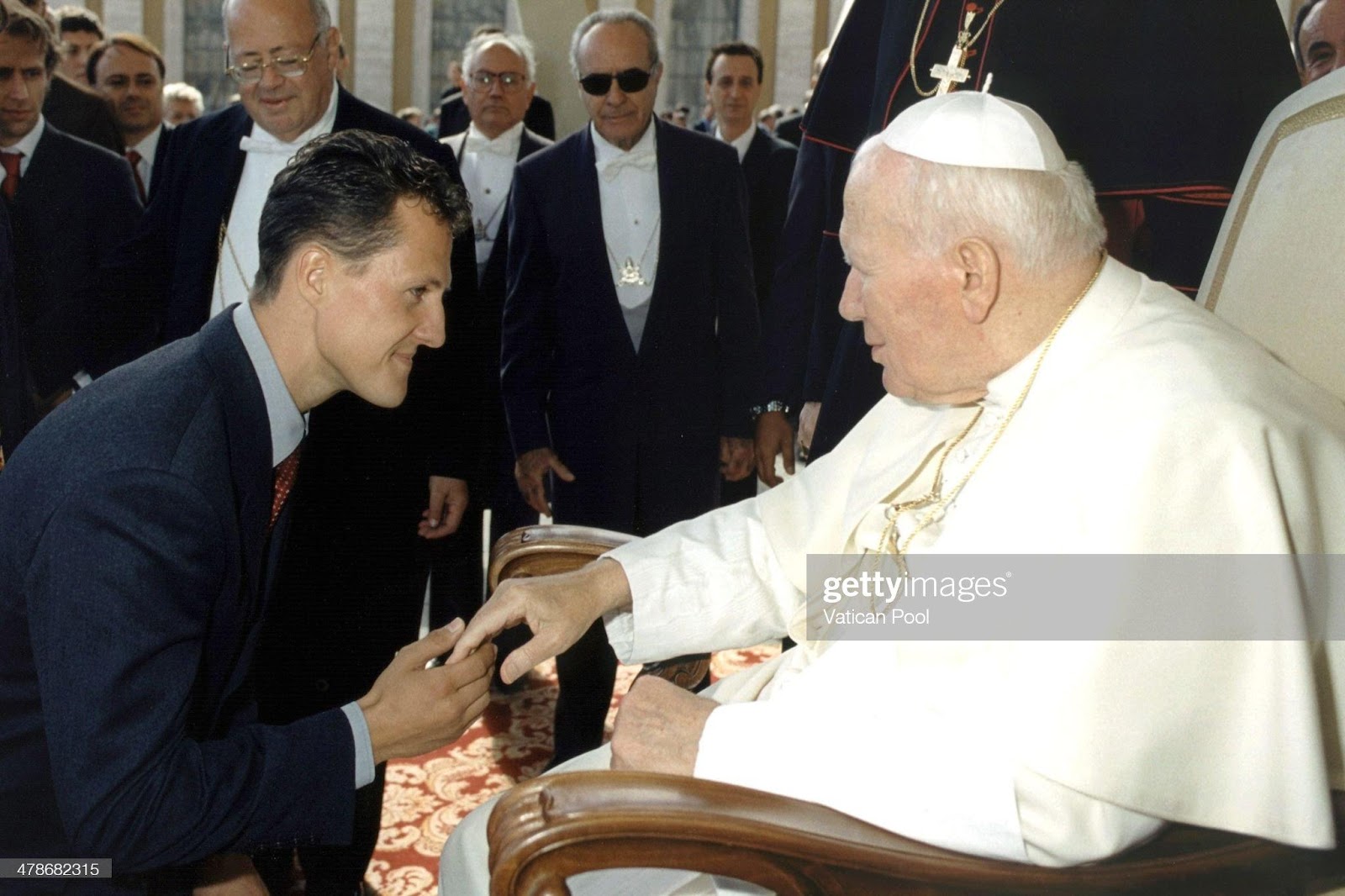
Pope John Paul II meets Michael Schumacher during an audience in St. Peter's Square on October 6, 1999 in Vatican City, Vatican. Photo by Vatican Pool/Getty Images.
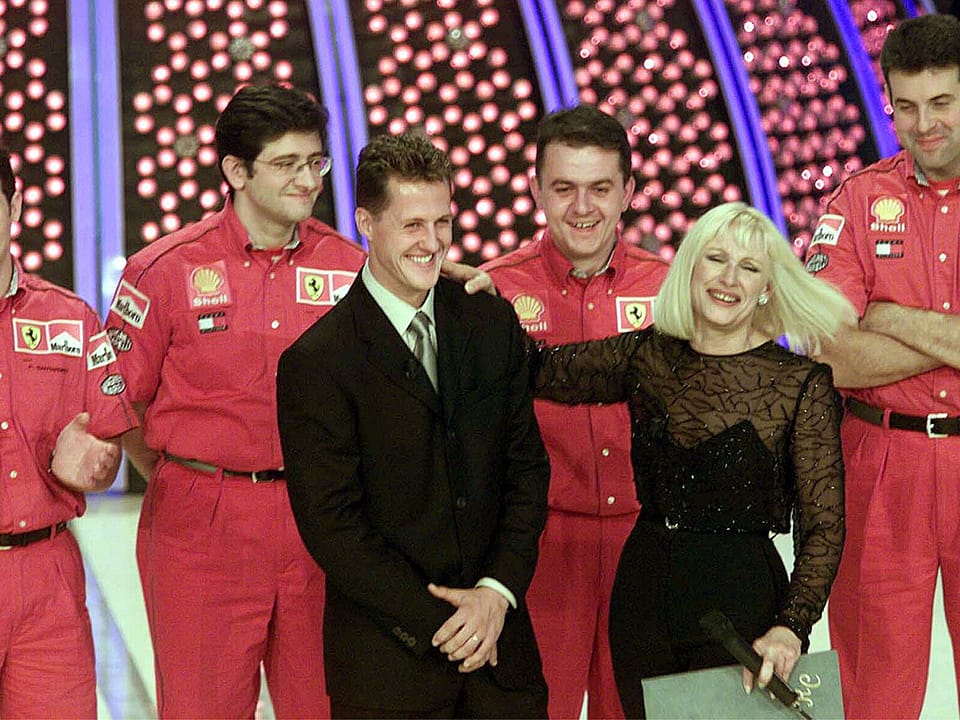
Rome, Rai Auditorium of the Foro Italico, 06 November 1999. From left: the Ferrari racing driver Michael Schumacher, guest of Raffaella Carrà in the Italian television program ‘Carràmba! What luck’ of Raiuno.
He came close to winning the 1997 and 1998 titles, before breaking his leg at the 1999 British Grand Prix, ending another title run.
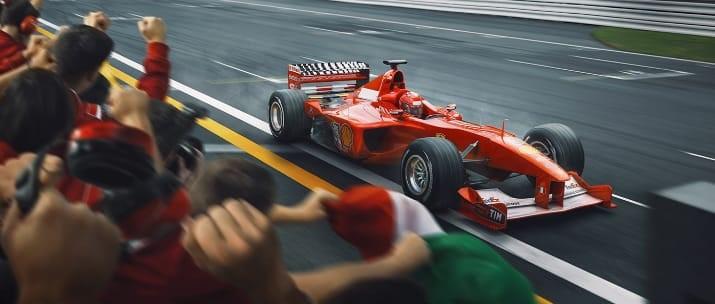
Michael Schumacher at Suzuka in 2000.
"I was moved because I thought of Enzo Ferrari who had passed the baton to us and we finally brought him the world championship.
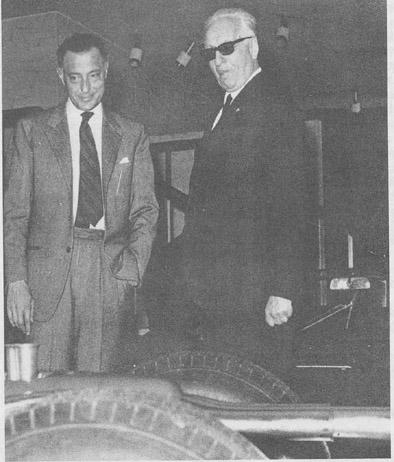
Gianni Agnelli and Enzo Ferrari.
It is the first title won without him. He would have commented: 'they did what they had to'. And he would have stopped there. I would put Schumacher among the top, I put him among the top. I put him among the Lauda, the Stewart and the Senna. He is a man of the highest class. Even if not everyone likes him, he is a man of class and quality in his conduct. The merit of this success is in the order: of the organization, of the team, of the driver and of the car. The team helped Schumacher even today, because what it had to do it did very well. The team was the interpreter of a tactic that has always been good throughout the world championship." Thus spoke Gianni Agnelli the day after the historic victory at Suzuka in 2000. A joke from the Lawyer would be enough for the bad figures of our day. With a smile he gave orders.
“We did it, we did it.” Schumacher said after the win in Japan. “When Michael won the title at Suzuka I never imagined such an explosion of emotion from the whole team. When he crossed the line, the people in the back of the garage were in tears. Only then did I understand what that success meant to them, who had been chasing it for so many years. There were some mechanics who had worked there for 25 years and shed real tears, but they were ashamed and tried to cover them. I have never seen something so touching. It was even bigger than I expected”. Sabine Kehm
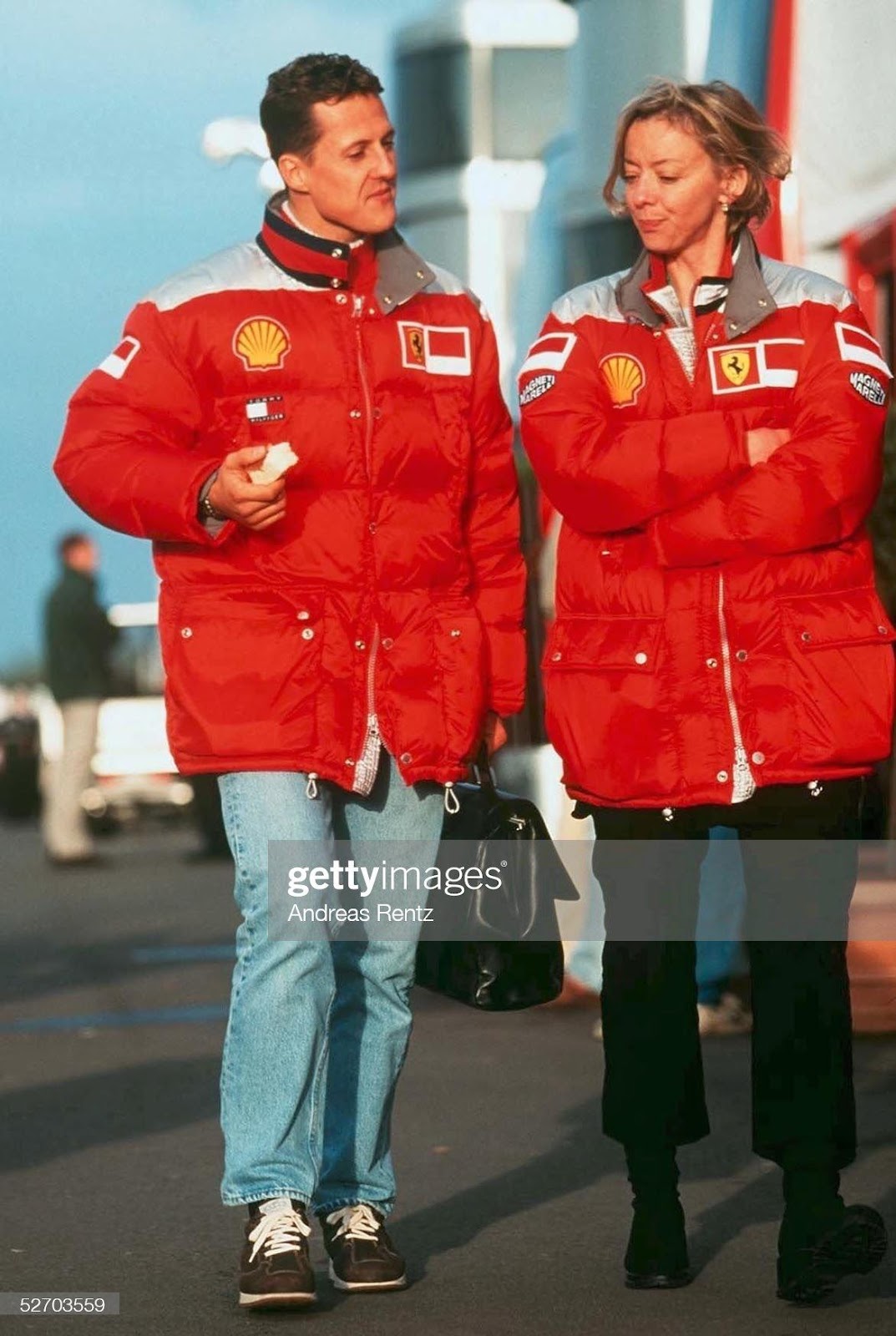
Michael Schumacher, Ferrari, with Sabine Kehm at Silverstone on April 23, 2000. Photo by Andreas Rentz/Bongarts/Getty Images.
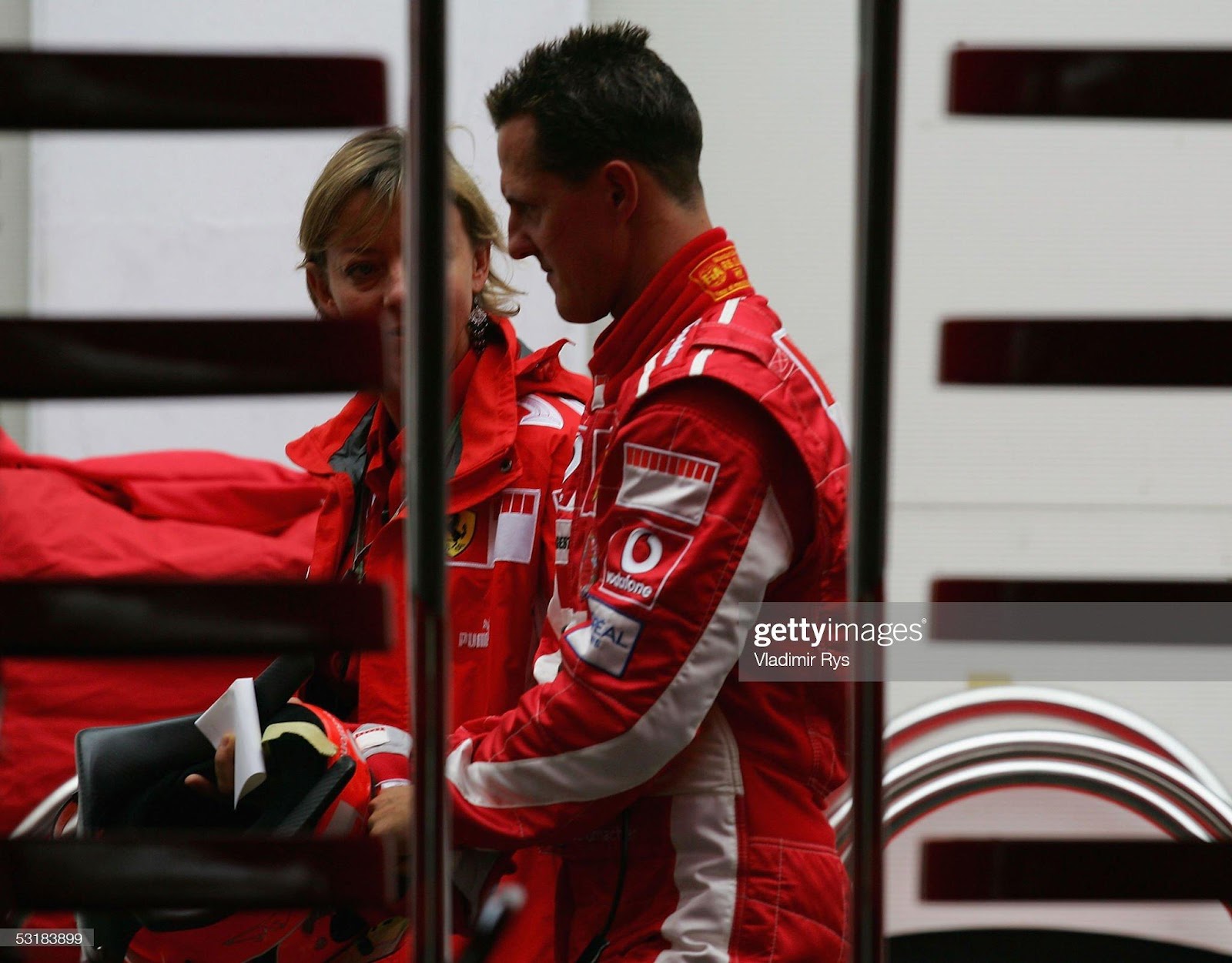
Michael Schumacher, Ferrari, talks with his press officer Sabine Kehm after the qualifying for the French F1 Grand Prix at Magny Cours on July 2, 2005. Photo by Vladimir Rys/Bongarts/Getty Images.
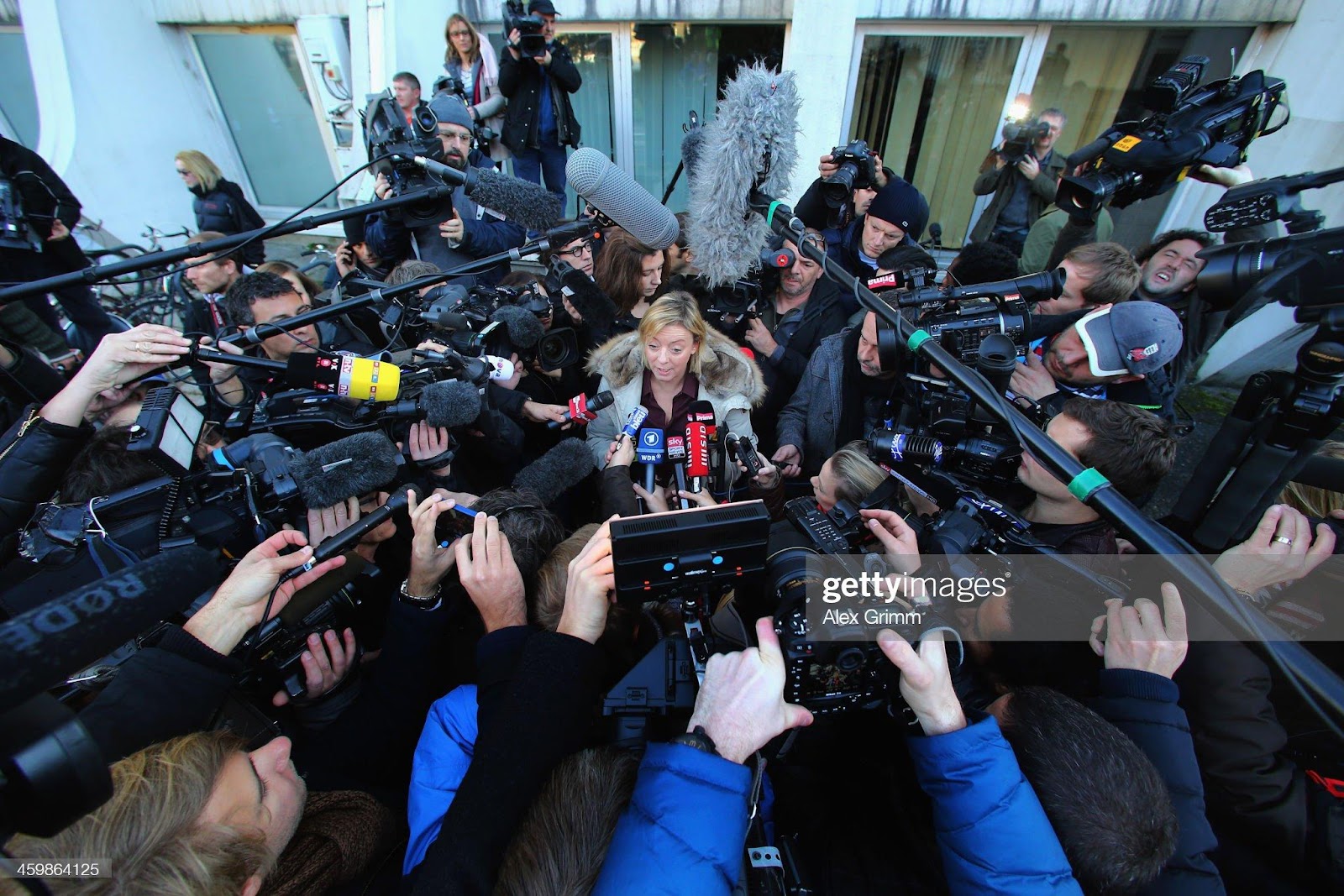
Sabine Kehm, press officer of former German F1 driver Michael Schumacher, talks to the media outside the Grenoble University Hospital Centre where Schumacher is being treated for a severe head injury following a skiing accident on Sunday in Meribel on January 1, 2014 in Grenoble, France. Photo by Alex Grimm/Bongarts/Getty Images.
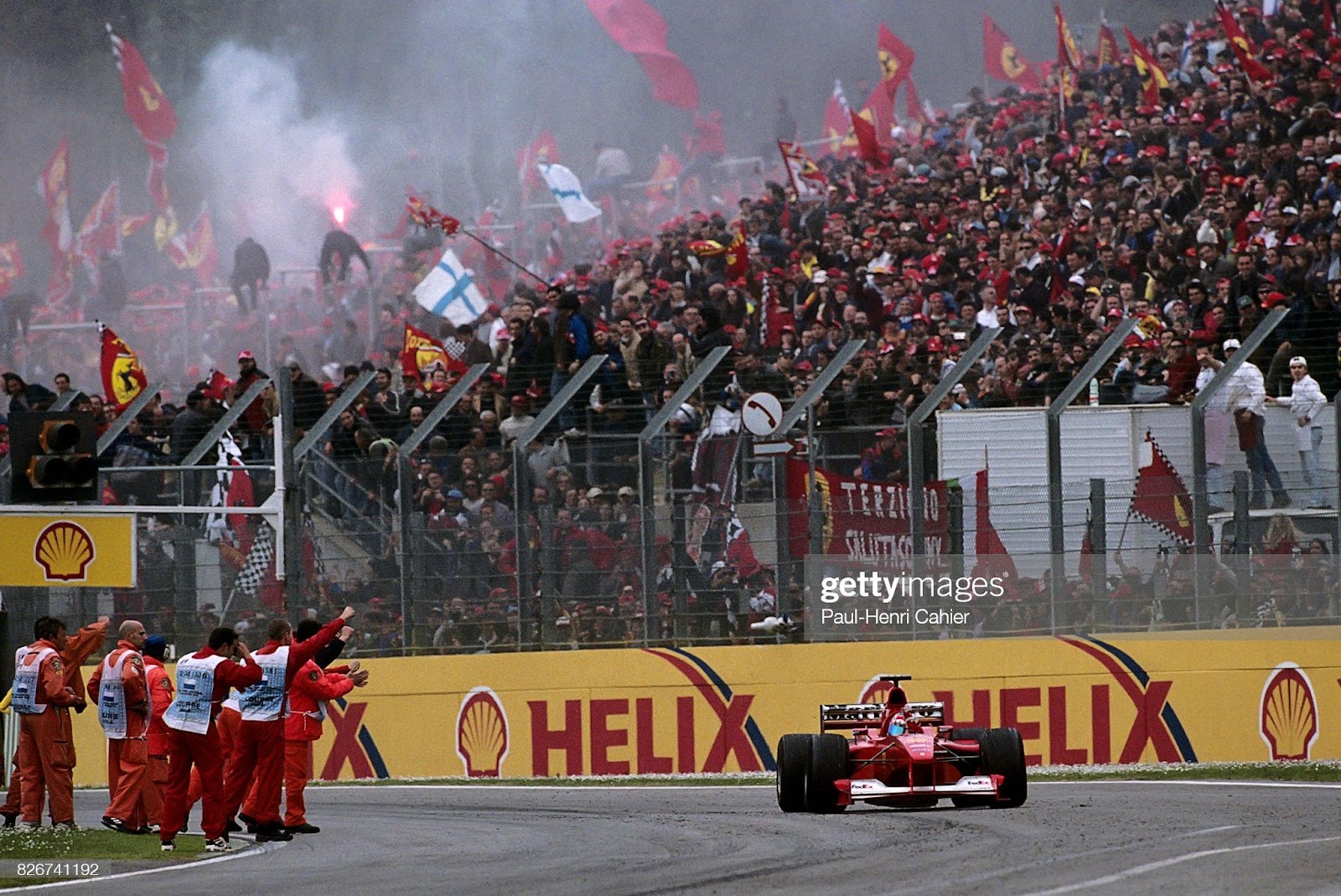
Michael Schumacher, Ferrari F1-2000, Grand Prix of San Marino, Imola, 09 April 2000. Victorious Schumacher cheered by a crowd of loving tifosi. Photo by Paul-Henri Cahier/Getty Images.
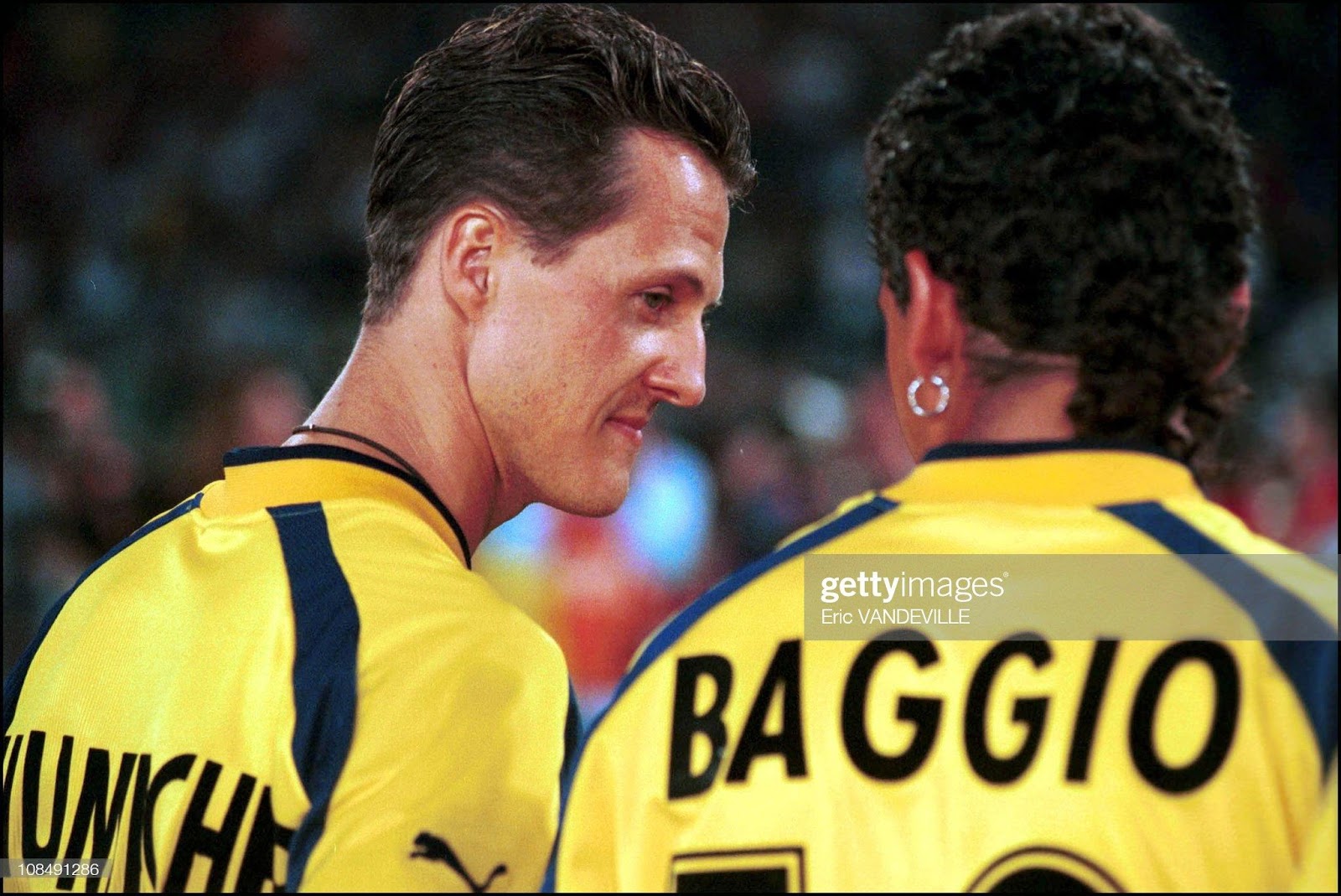
Michael Schumacher and Roberto Baggio in Rome, Italy, on May 25th, 2000. Photo by Eric Vandeville/Gamma-Rapho via Getty Images.
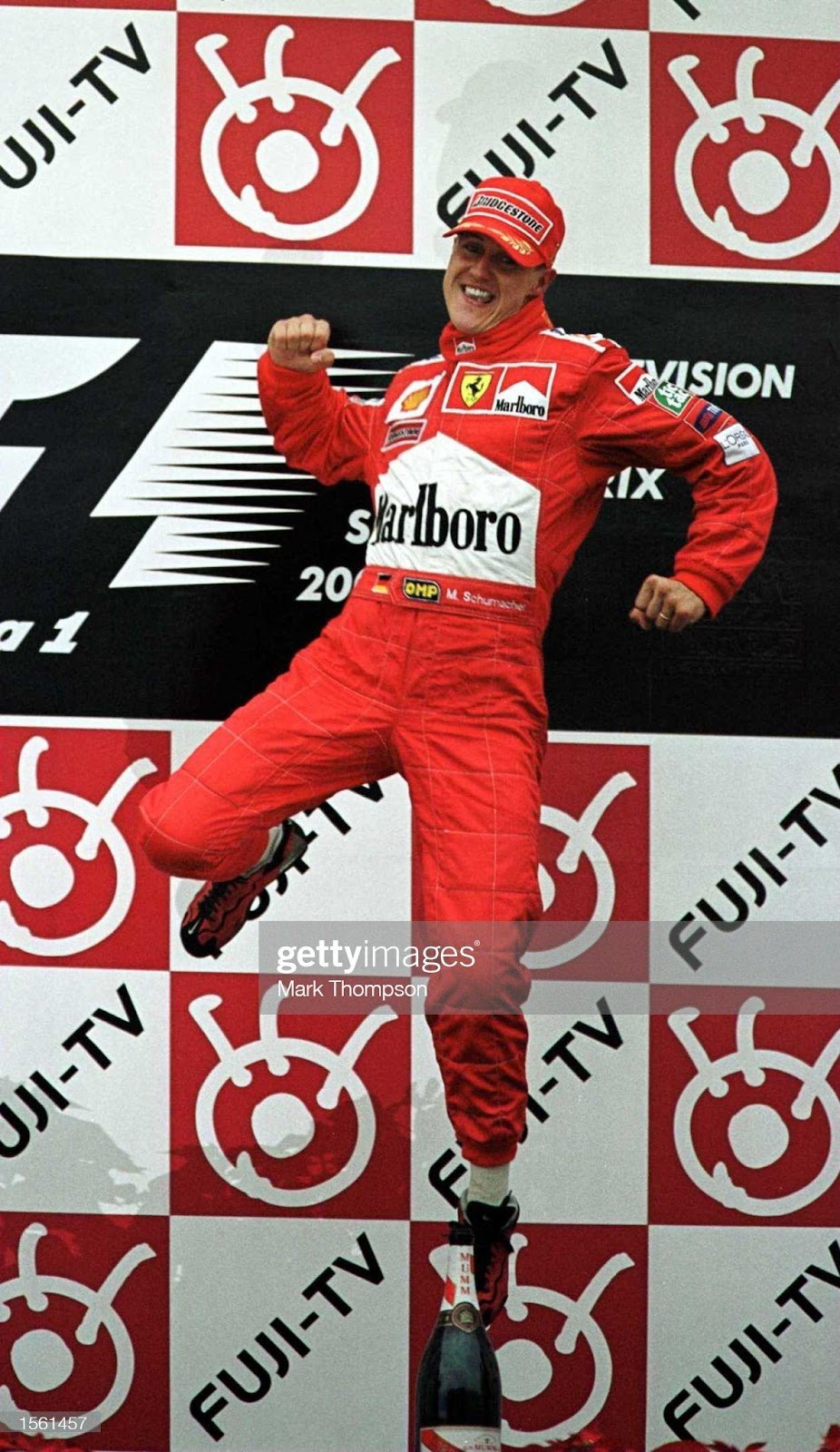
Michael Schumacher, Ferrari, celebrates on the podium after winning the F1 world championship at the Japanese Grand Prix at Suzuka on October 08, 2000. Credit: Mark Thompson/Allsport.
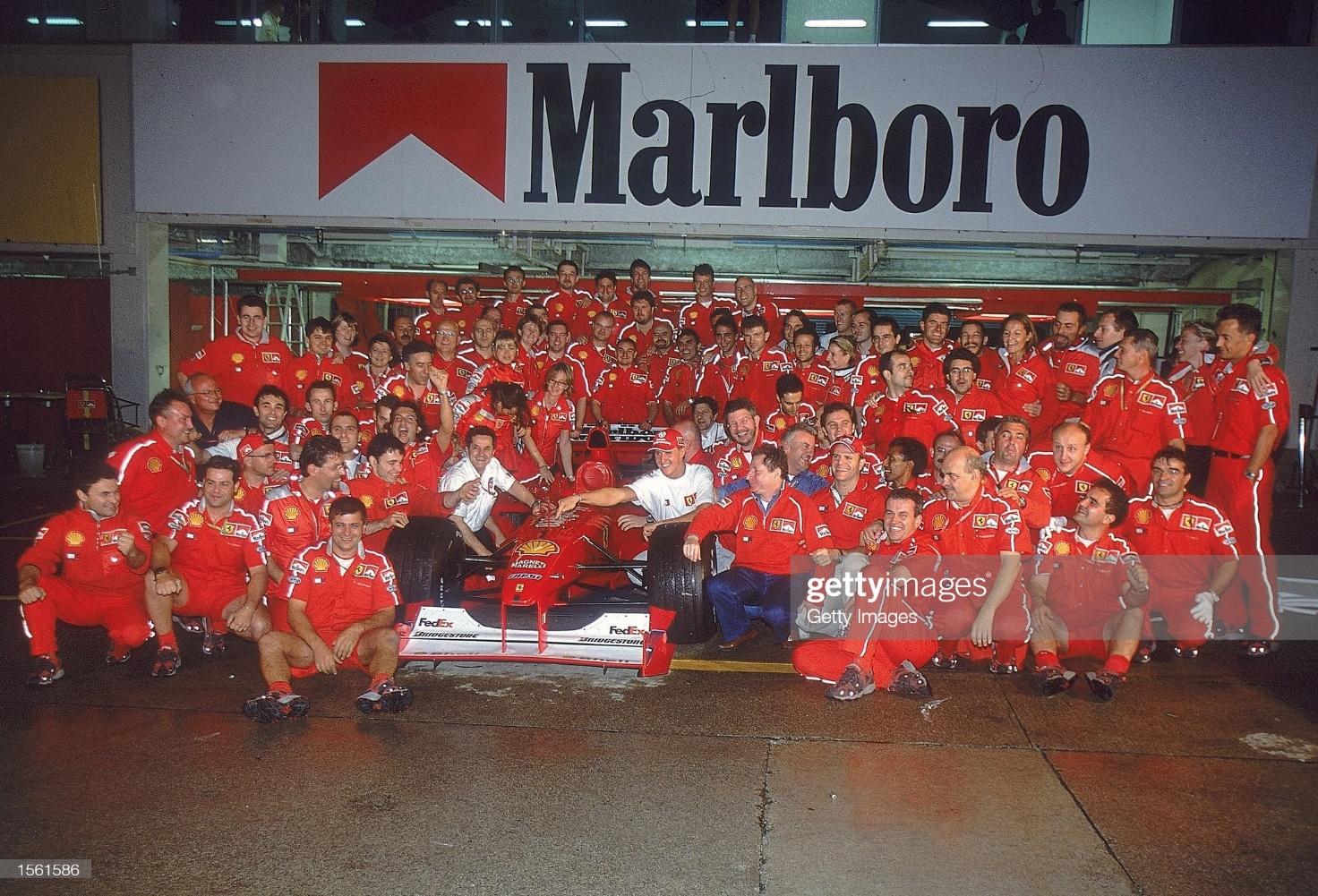
8 October 2000: Michael Schumacher and Rubens Barrichello celebrate with the rest of the Ferrari team after the Japanese F1 Grand Prix in Suzuka. Credit: Allsport UK /Allsport.
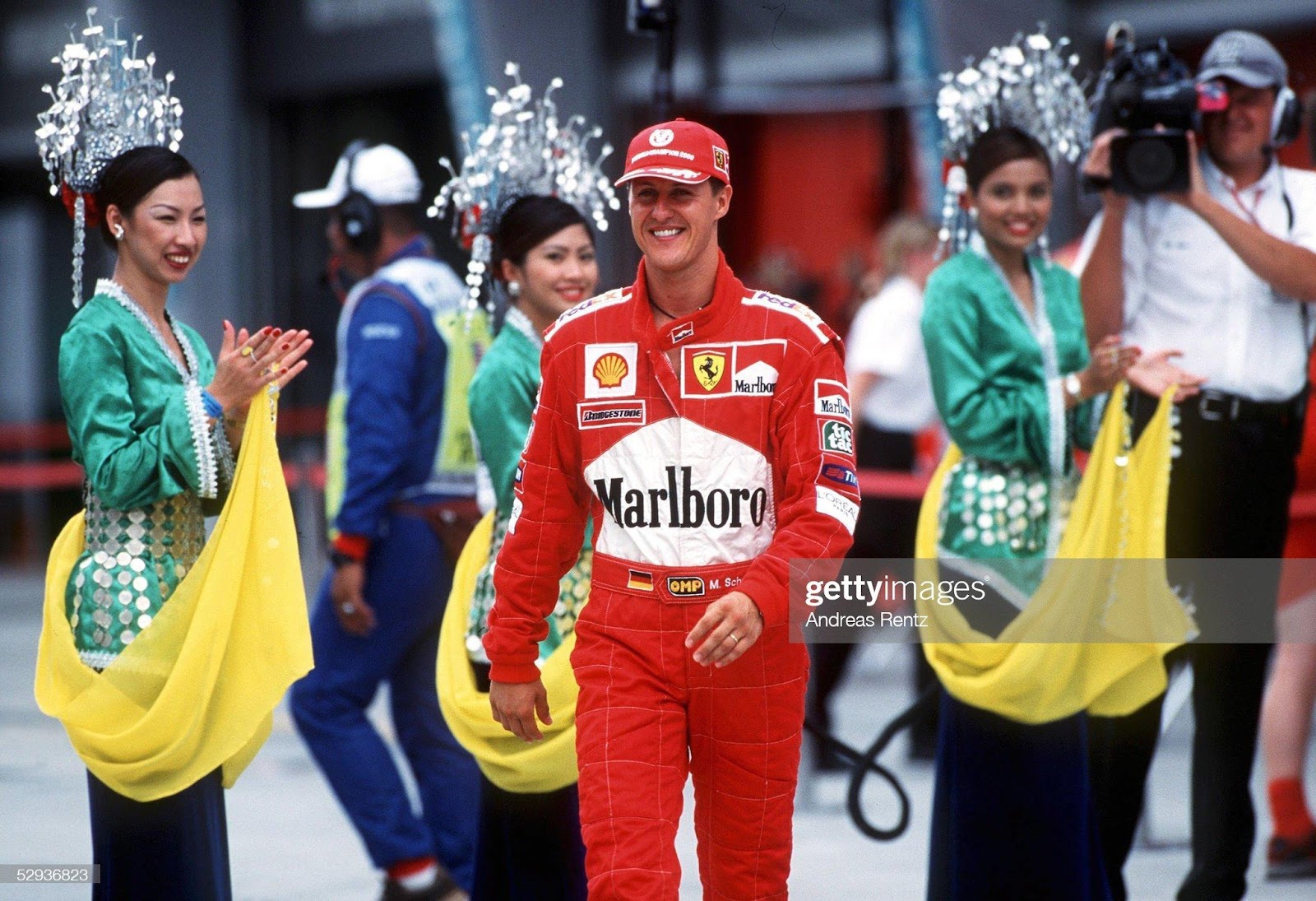
Michael Schumacher at the Malaysian Grand Prix in Sepang on October 22, 2000.
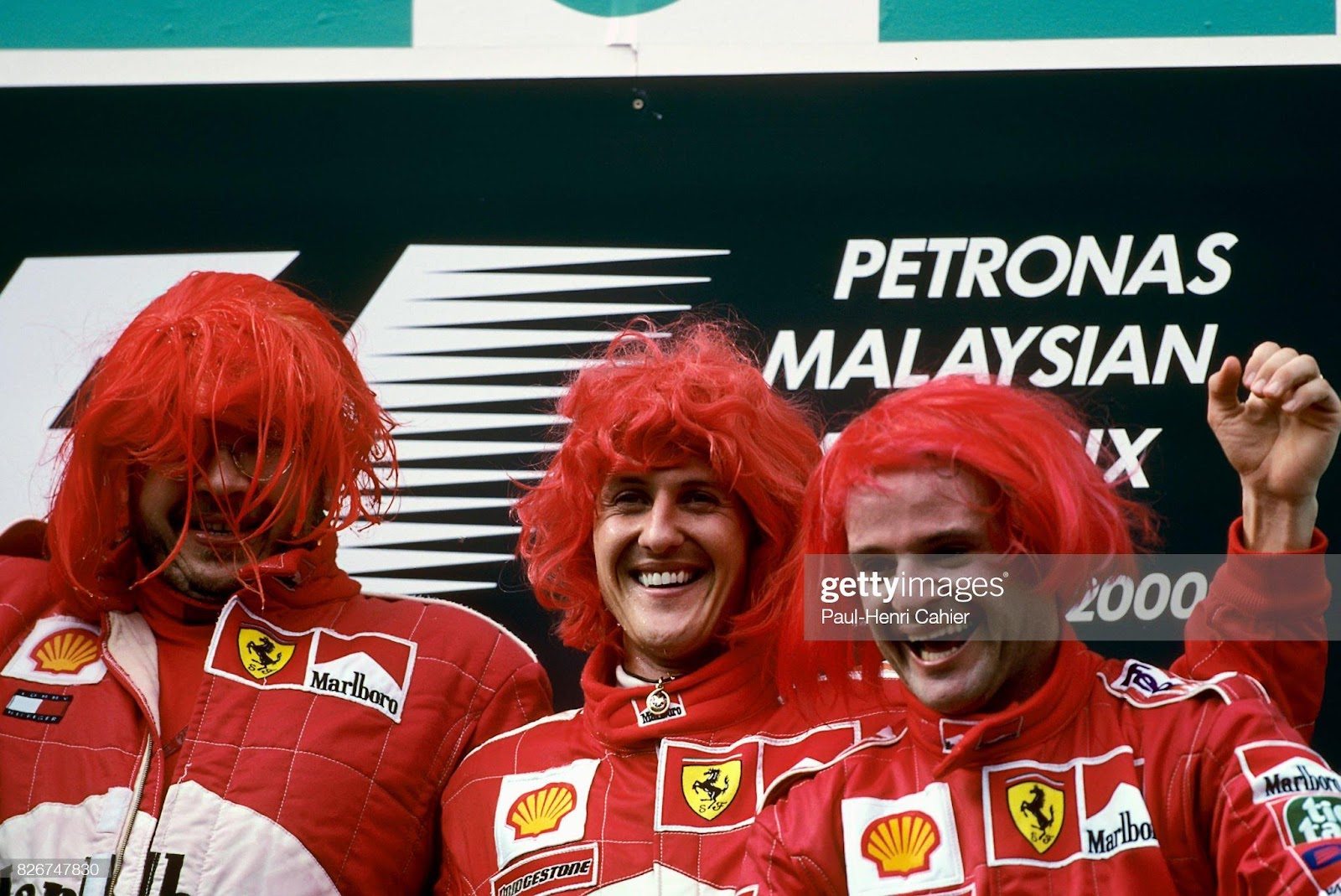
Ross Brawn, Michael Schumacher and Rubens Barrichello wearing red wigs on the podium of the Grand Prix of Malaysia at Sepang International Circuit on 22 October 2000. Photo by Paul-Henri Cahier/Getty Images.
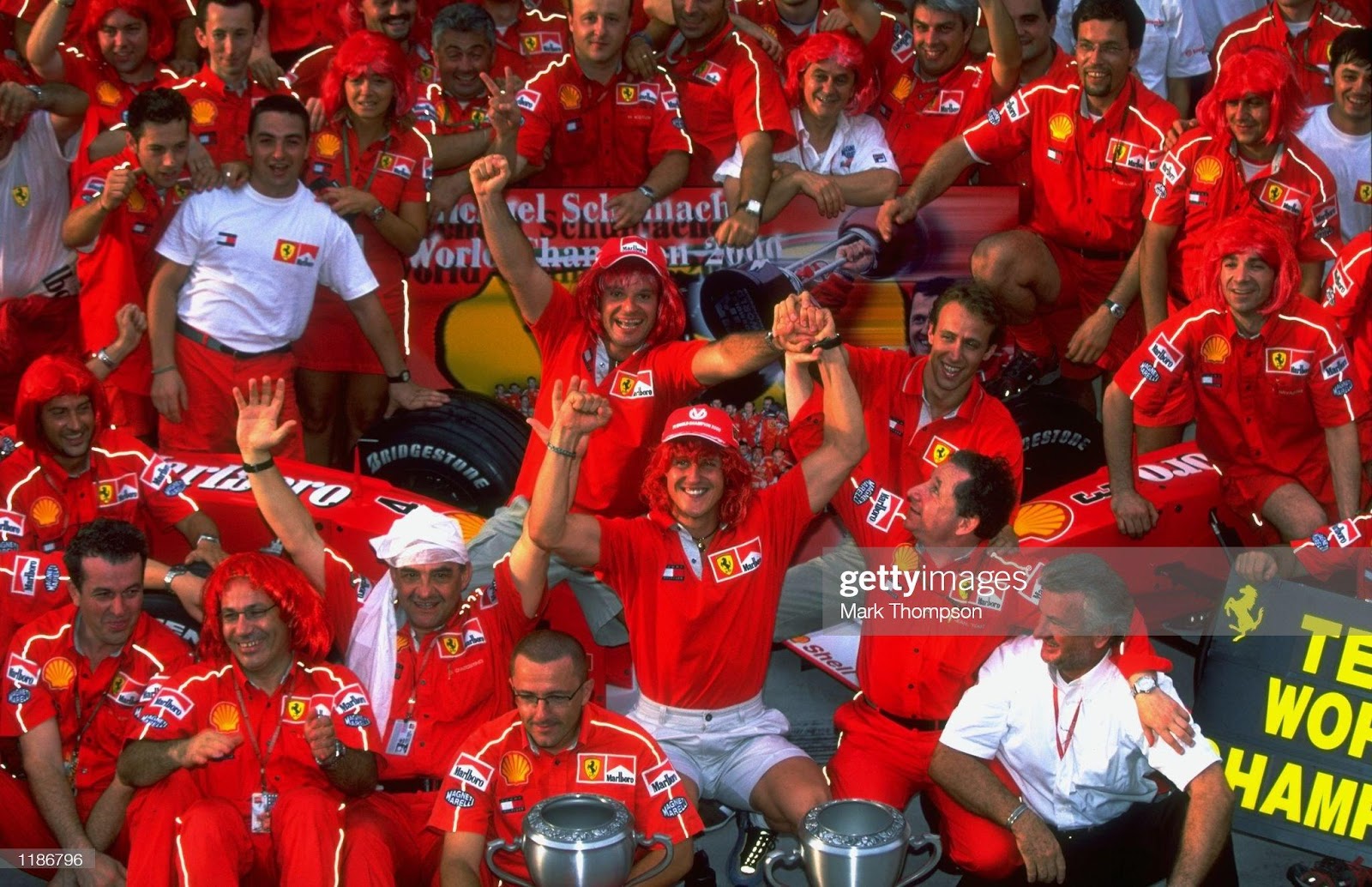
22 October 2000: Michael Schumacher, Ferrari, celebrates winning with the Ferrari team their two titles after the Malaysian F1 Grand Prix at the Sepang Circuit, in Kuala Lumpur. Credit: Mark Thompson /Allsport.
He won five consecutive drivers' titles from 2000 to 2004, including an unprecedented sixth and seventh title.
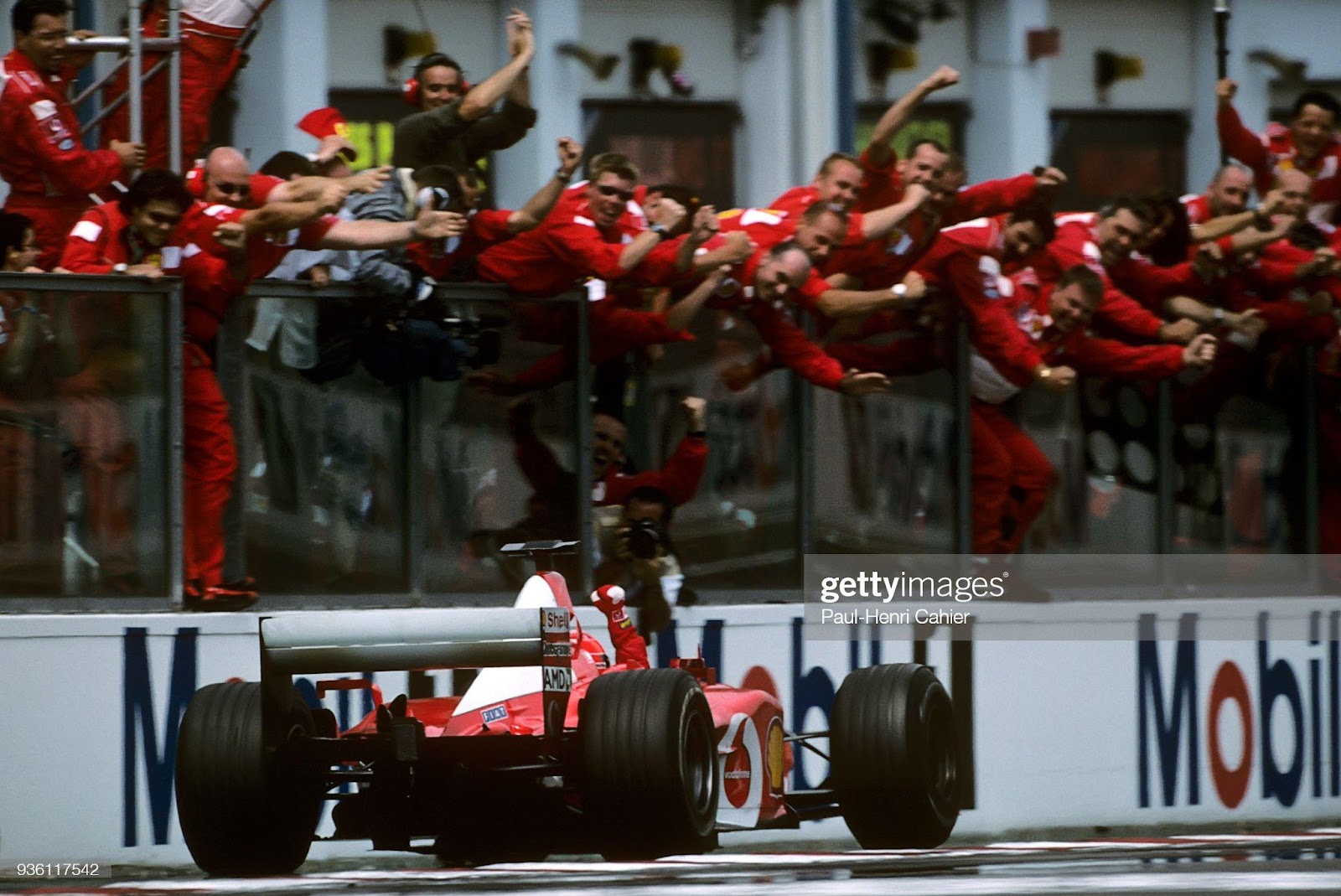
Michael Schumacher, Ferrari F2002, claims victory in the Grand Prix of France, Circuit de Nevers Magny-Cours, 21 July 2002. Photo by Paul-Henri Cahier/Getty Images.
In 2002, Schumacher won the title with a record six races remaining and finished on the podium in every race.
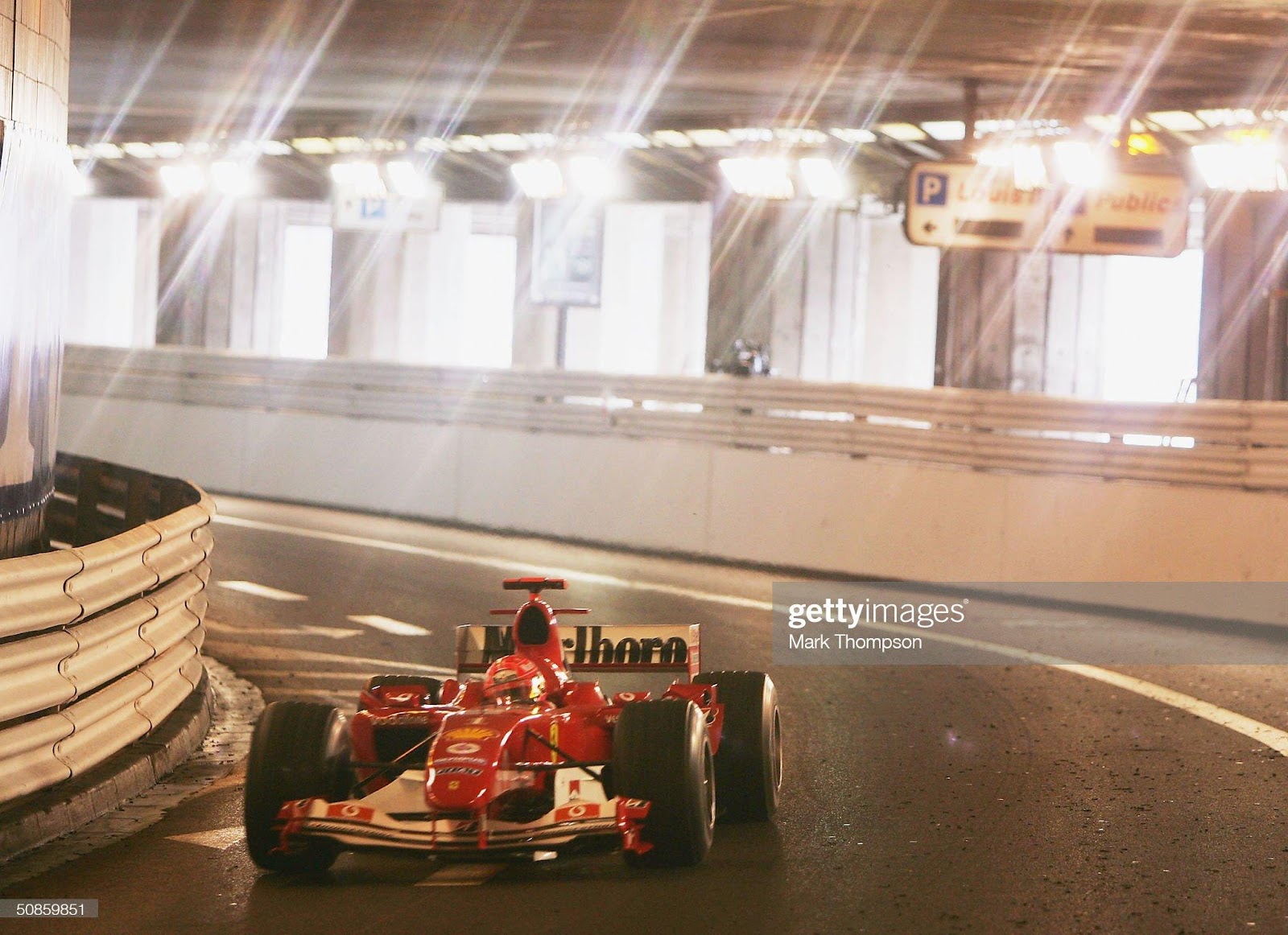
Michael Schumacher of Germany and Ferrari in action during practice for the Monaco F1 Grand Prix, on May 20, 2004, in Monte Carlo, Monaco. Photo by Mark Thompson/Getty Images.
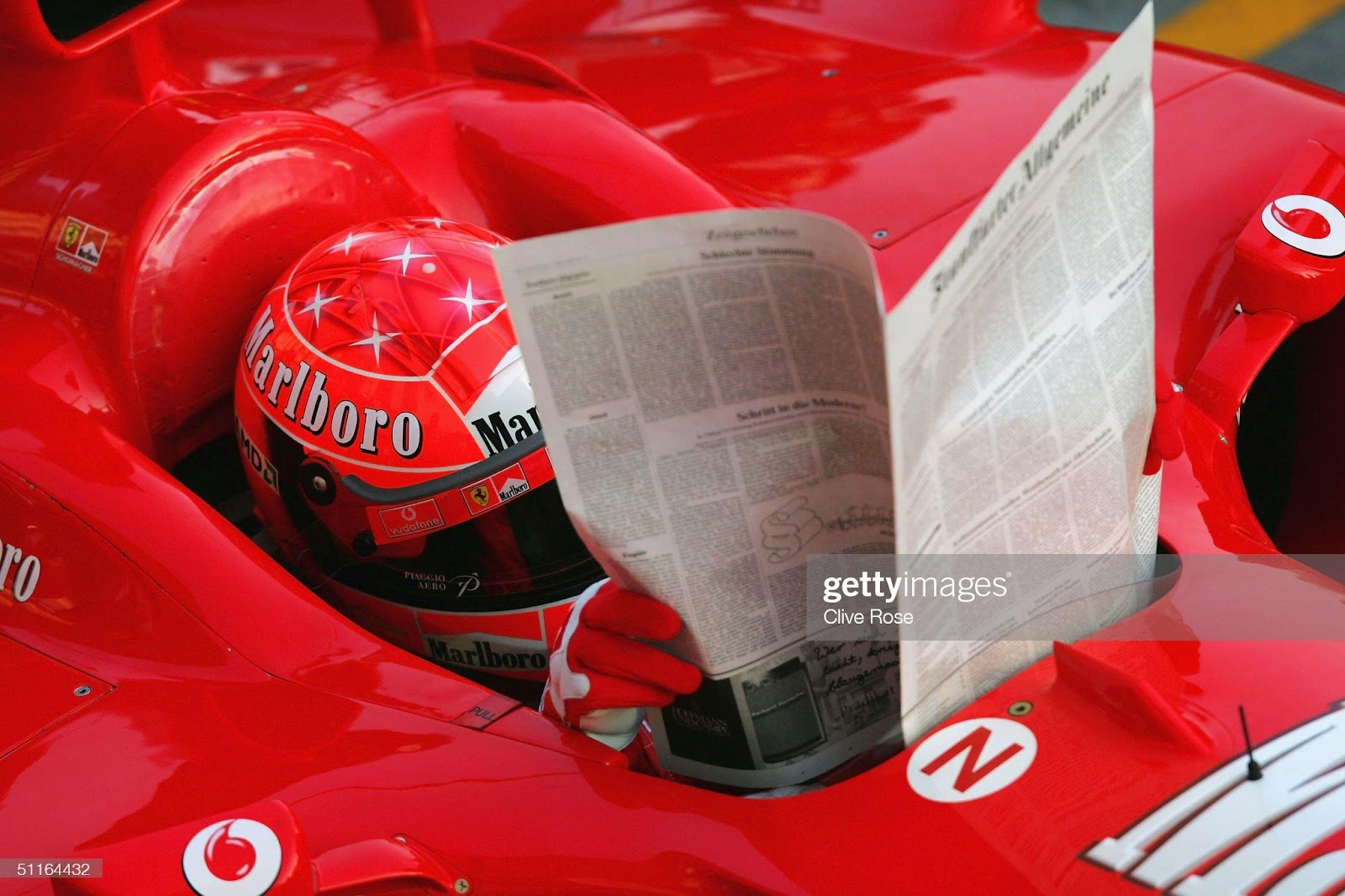
Michael Schumacher, Ferrari, poses with a newspaper in the pits prior to the practice session for the Hungarian F1 Grand Prix at the Hungaroring Circuit on August 13, 2004, in Budapest, Hungary. Photo by Clive Rose/Getty Images.
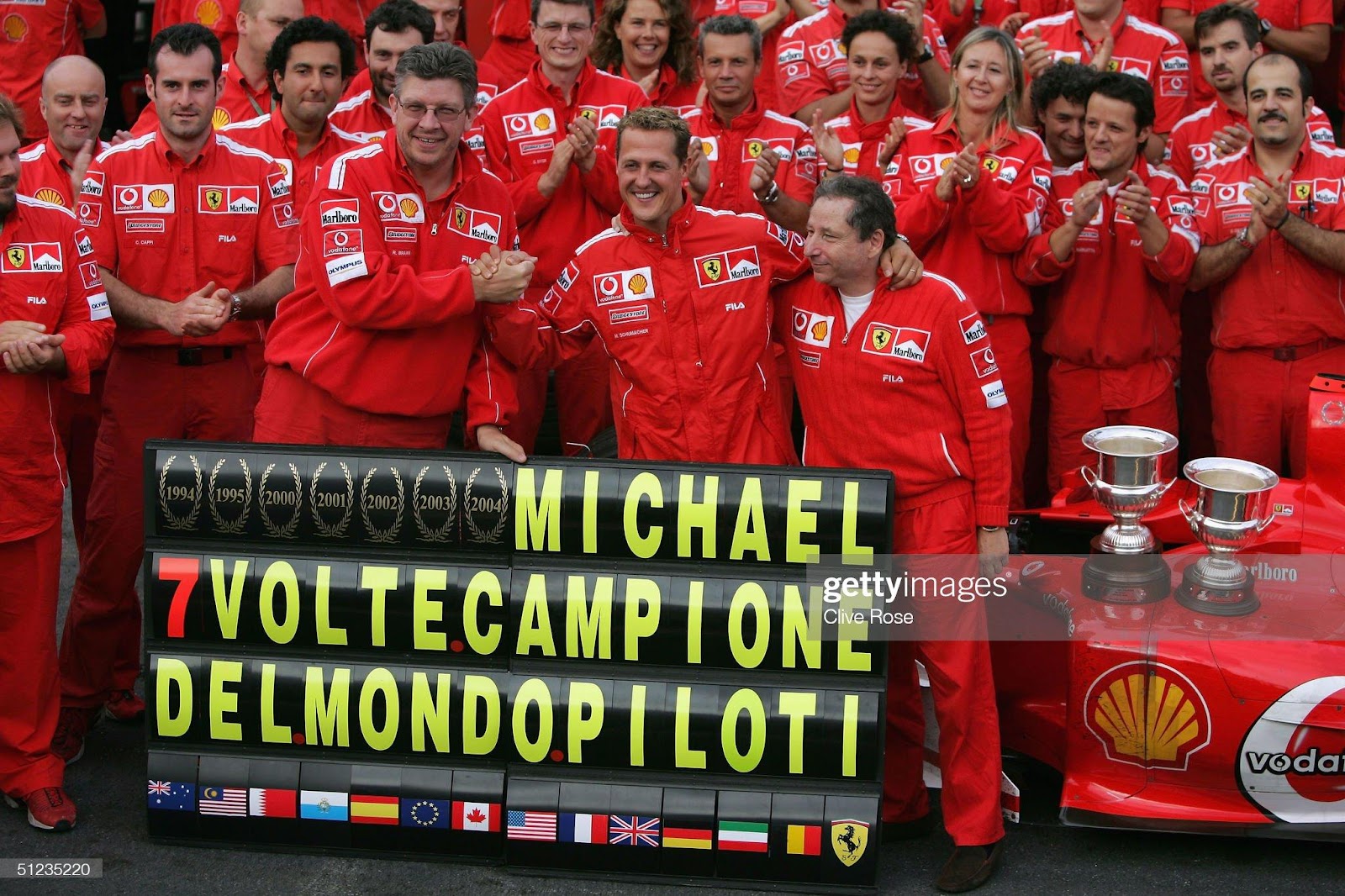
Michael Schumacher, Ferrari, celebrates winning the World Drivers Championship at the Belgium F1 Grand Prix at the Circuit of Spa-Francorchamps on August 29, 2004. Photo by Clive Rose/Getty Images.
In 2004 he won twelve out of the first thirteen races and went on to win a record 13 times as he won his final title.
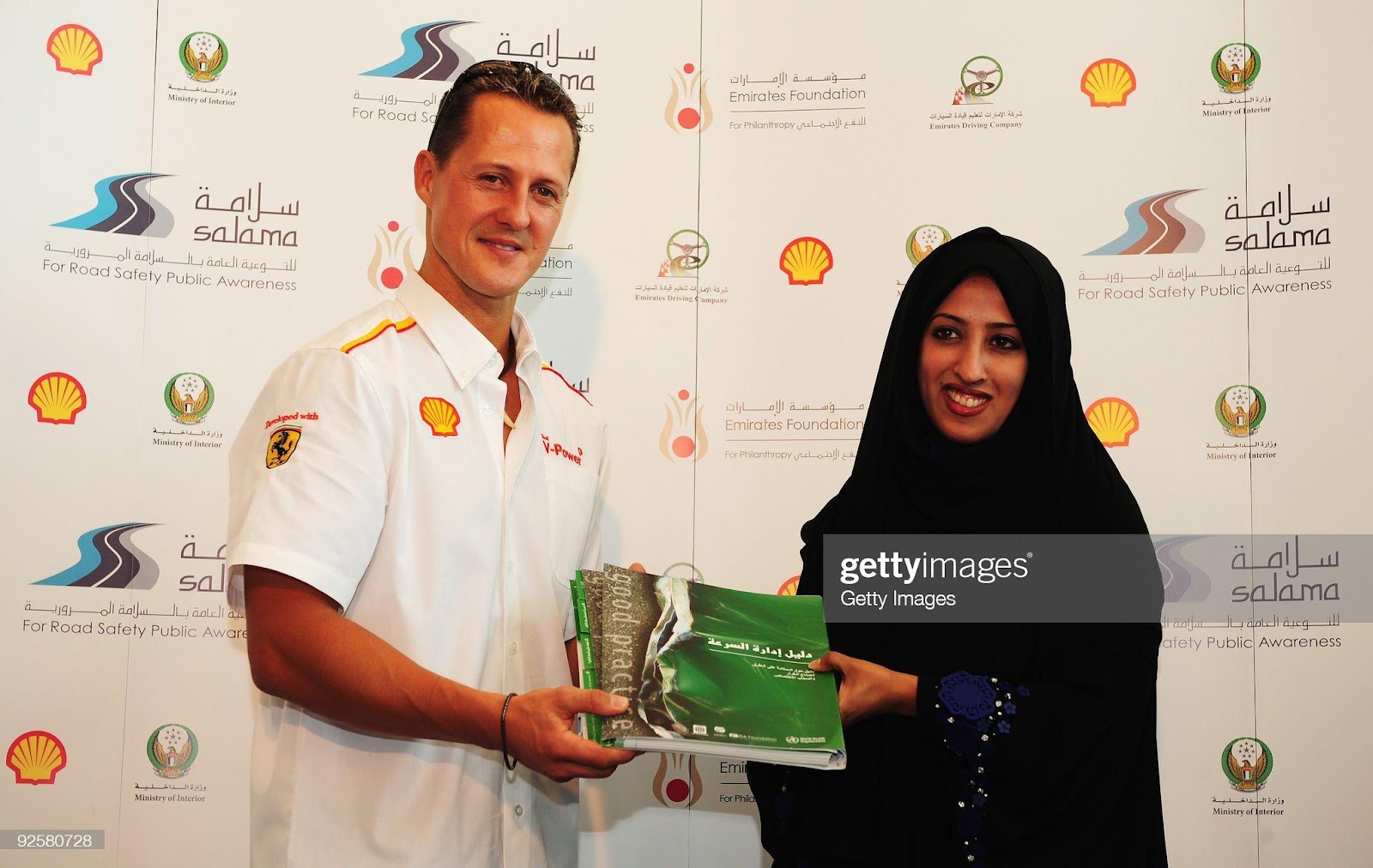
Former Ferrari F1 World Champion attends a joint event hosted in conjunction by Salama and Shell to promote road safety in the U.A.E. at the Yas Hotel before qualifying for the Abu Dhabi F1 Grand Prix at the Yas Marina Circuit on October 31, 2009 in Abu Dhabi, United Arab Emirates. Photo by Getty Images for Shell.
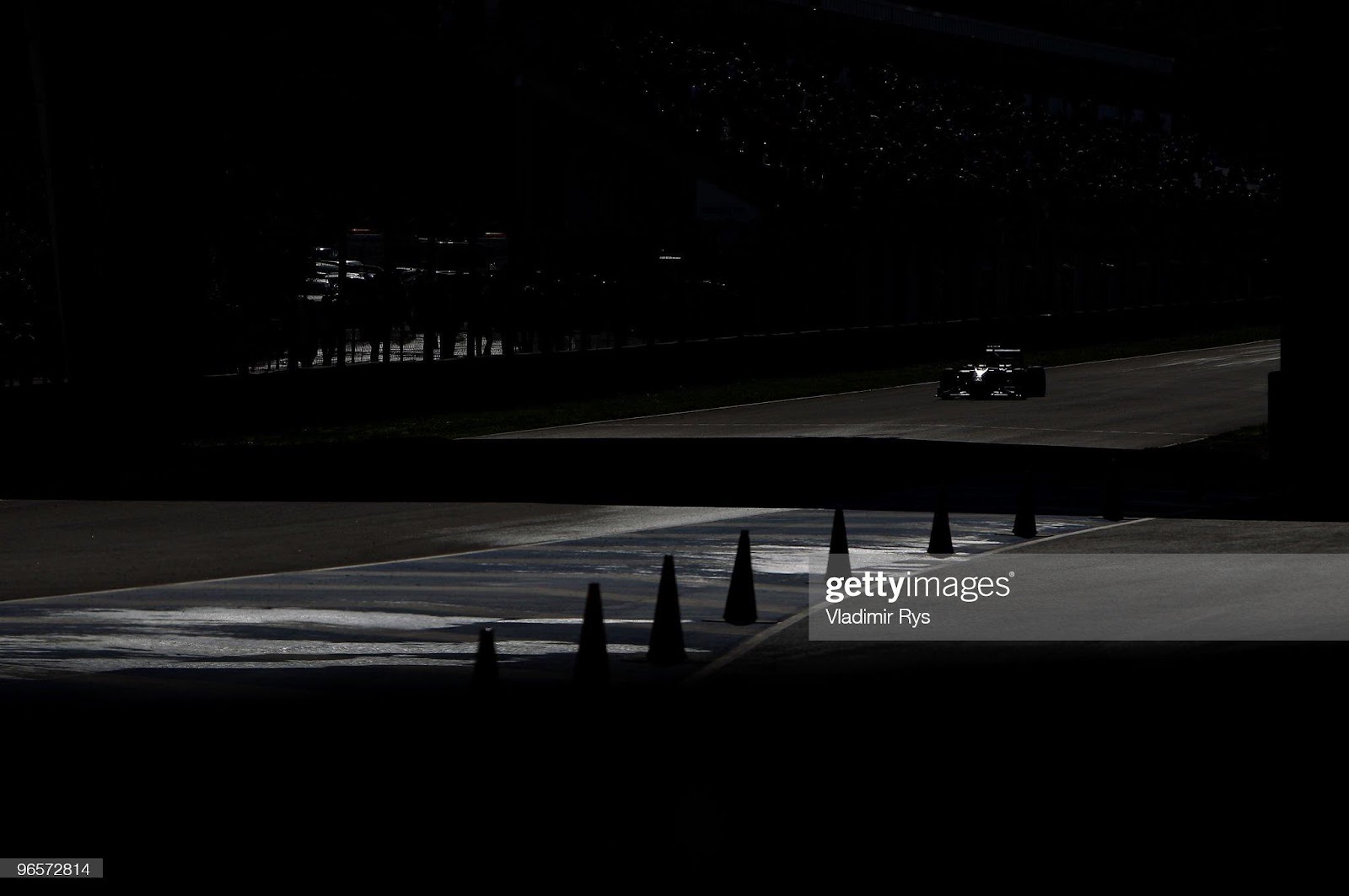
Michael Schumacher, Mercedes GP, drives during winter testing at the Circuito de Jerez on February 11, 2010 in Jerez de la Frontera, Spain. Photo by Vladimir Rys/Bongarts/Getty Images.
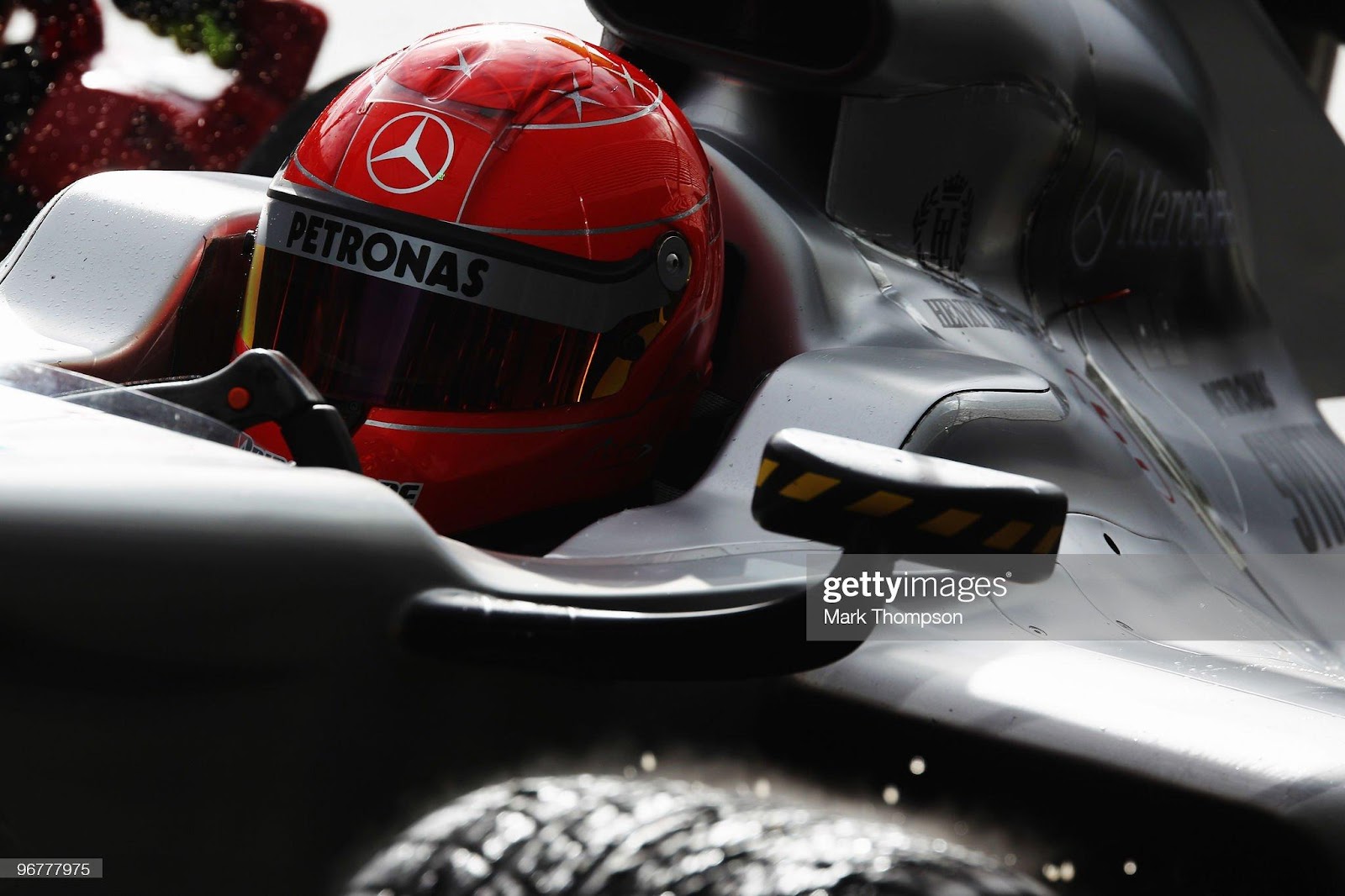
Michael Schumacher, Mercedes GP, stops at his team garage during winter testing at the Circuito De Jerez on February 17, 2010 in Jerez de la Frontera, Spain. Photo by Mark Thompson/Getty Images.
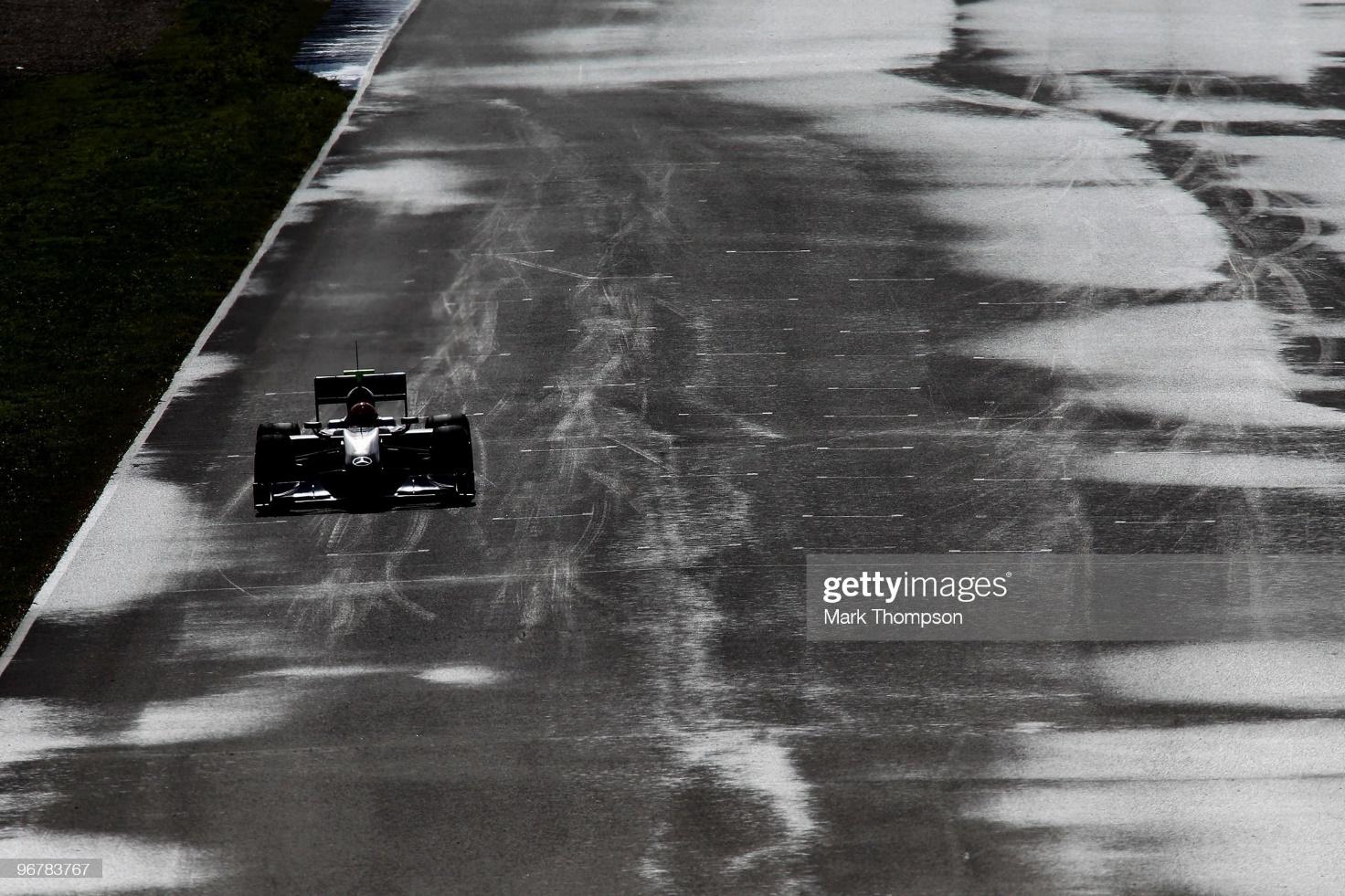
Michael Schumacher, Mercedes GP, drives during winter testing at the Circuito de Jerez on February 17, 2010 in Jerez de la Frontera, Spain. Photo by Mark Thompson/Getty Images.
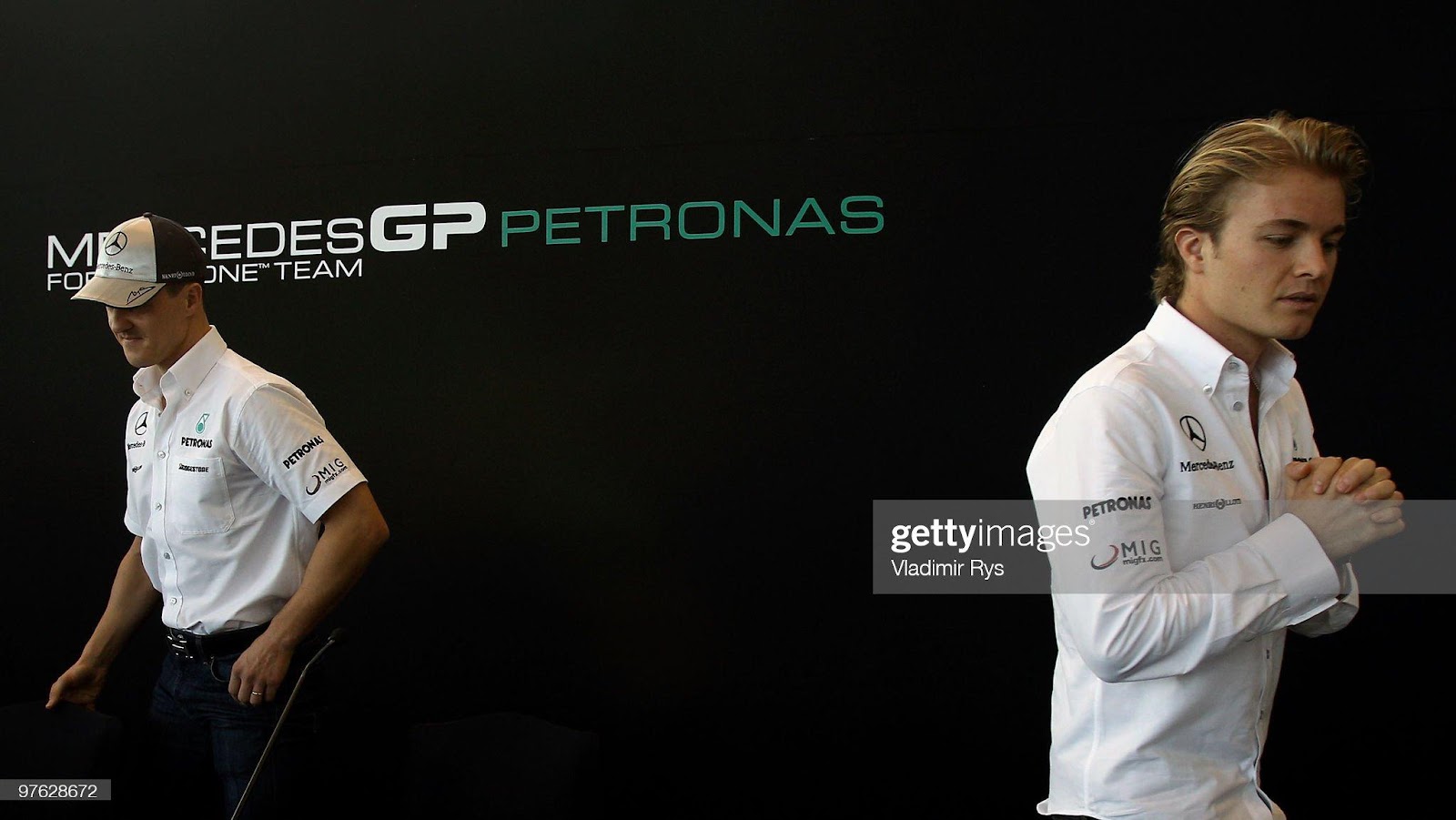
Michael Schumacher, Mercedes GP, with Nico Rosberg, Mercedes GP, appear at a media breakfast press conference on March 11, 2010 in Manama, Bahrain. Photo by Vladimir Rys/Bongarts/Getty Images.
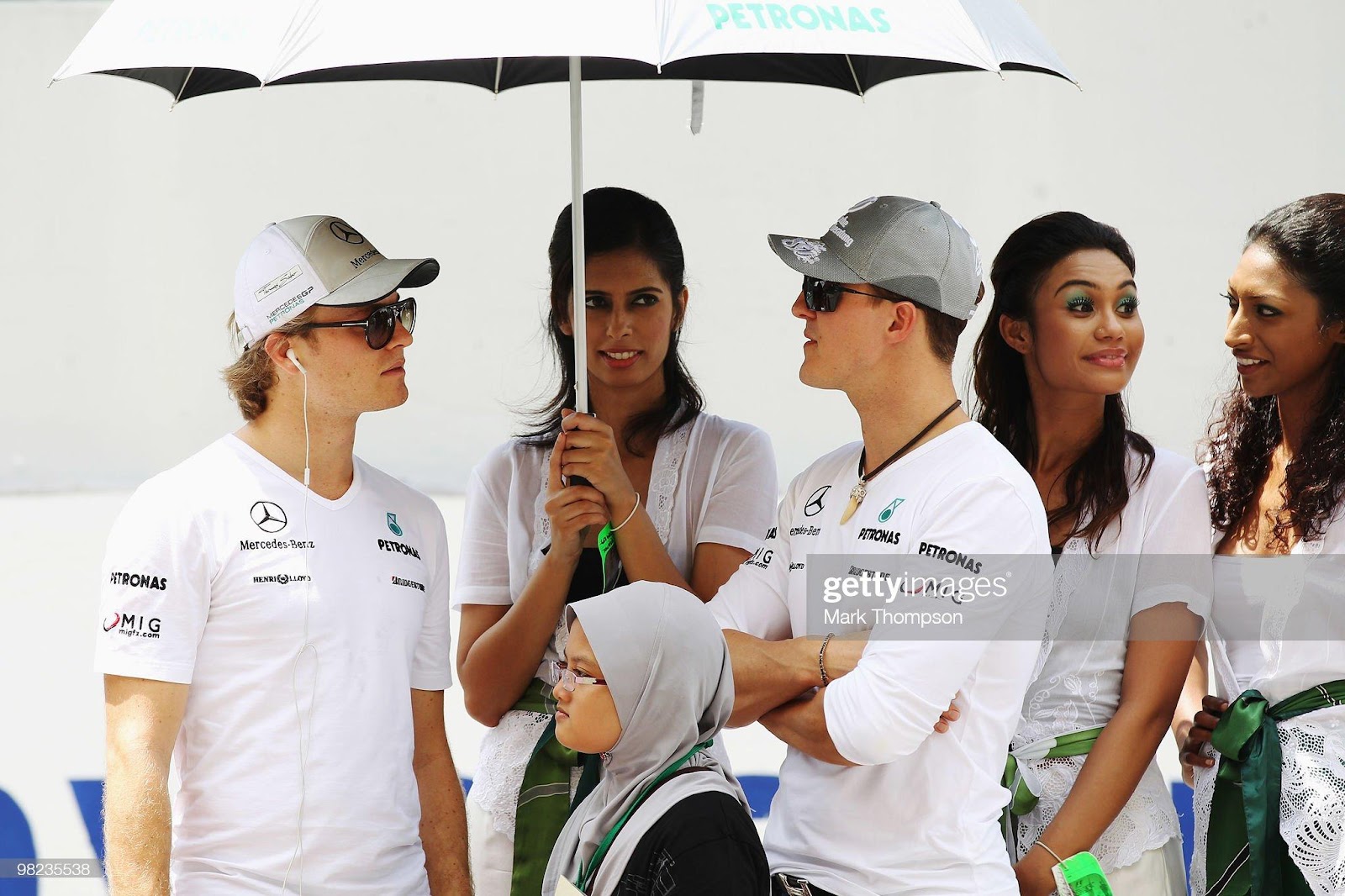
Nico Rosberg (left), Mercedes GP, team mate Michael Schumacher (right), Mercedes GP, attend the drivers parade before the Malaysian F1 Grand Prix at the Sepang Circuit on April 4, 2010 in Kuala Lumpur. Photo by Mark Thompson/Getty Images.
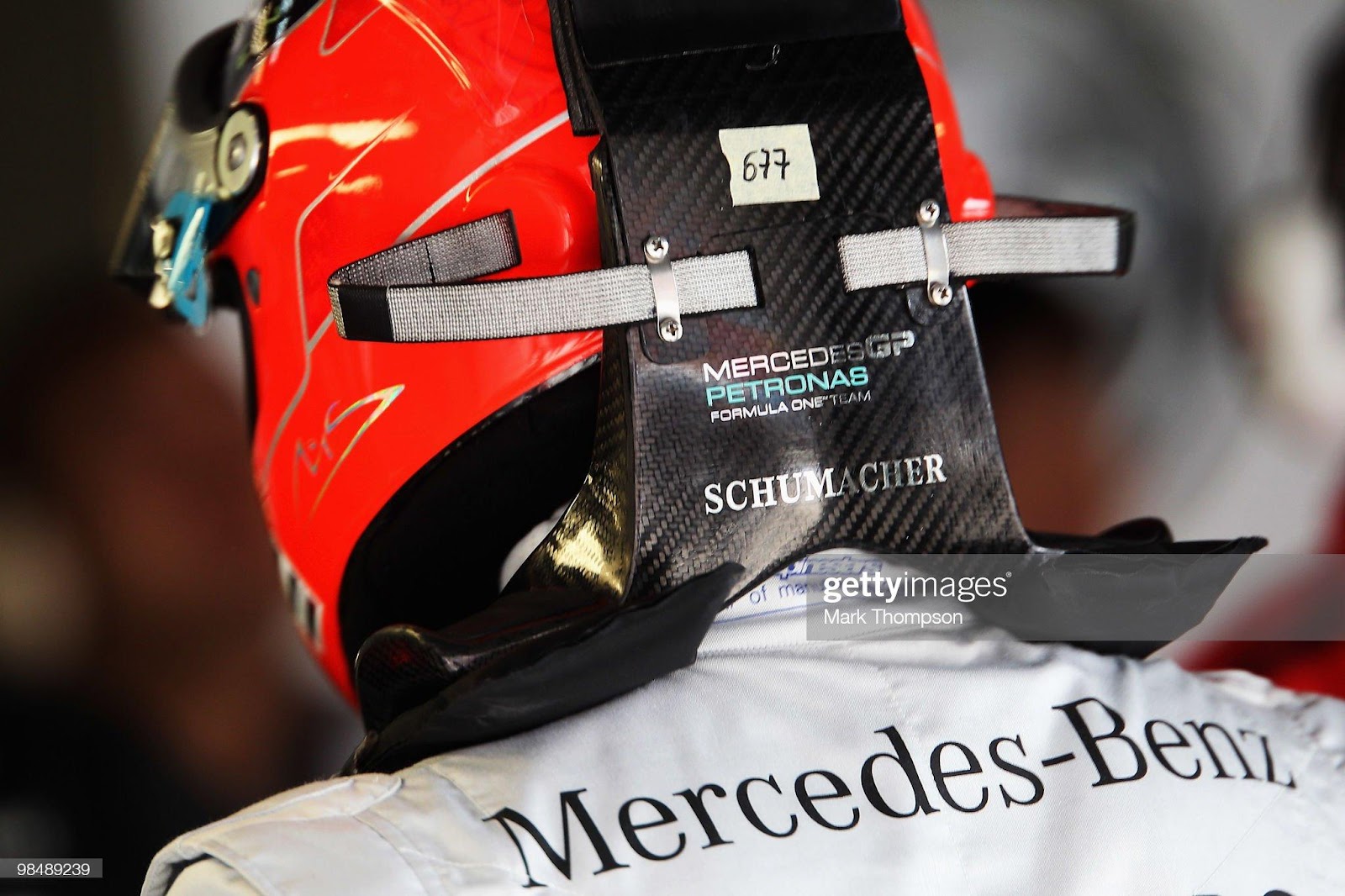
Michael Schumacher, Mercedes GP, prepares to drive during practice for the Chinese F1 Grand Prix at the Shanghai International Circuit on April 16, 2010. Photo by Mark Thompson/Getty Images.
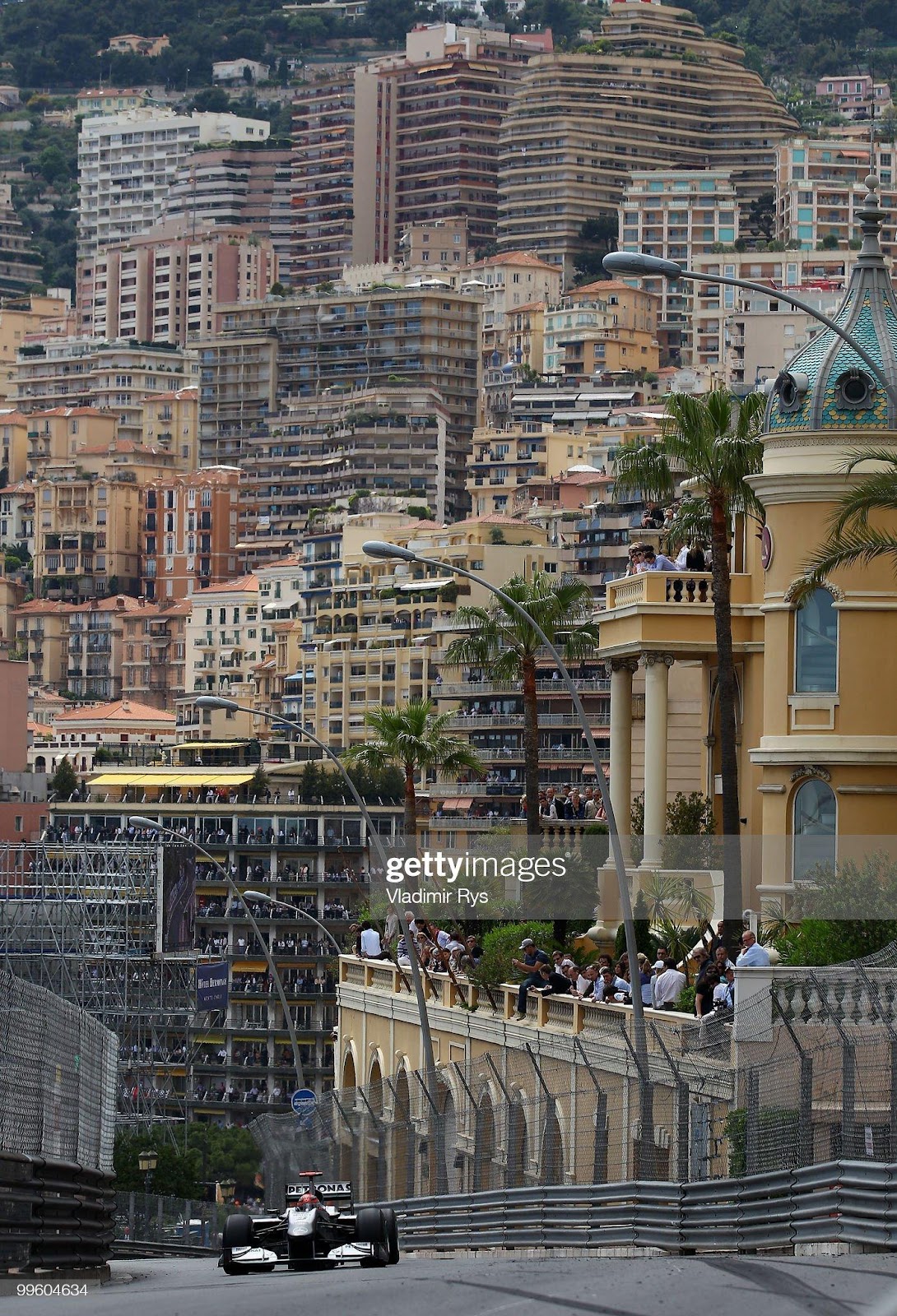
Michael Schumacher, Mercedes GP, drives during the Monaco Formula One Grand Prix at the Monte Carlo Circuit on May 16, 2010. Photo by Vladimir Rys/Bongarts/Getty Images.
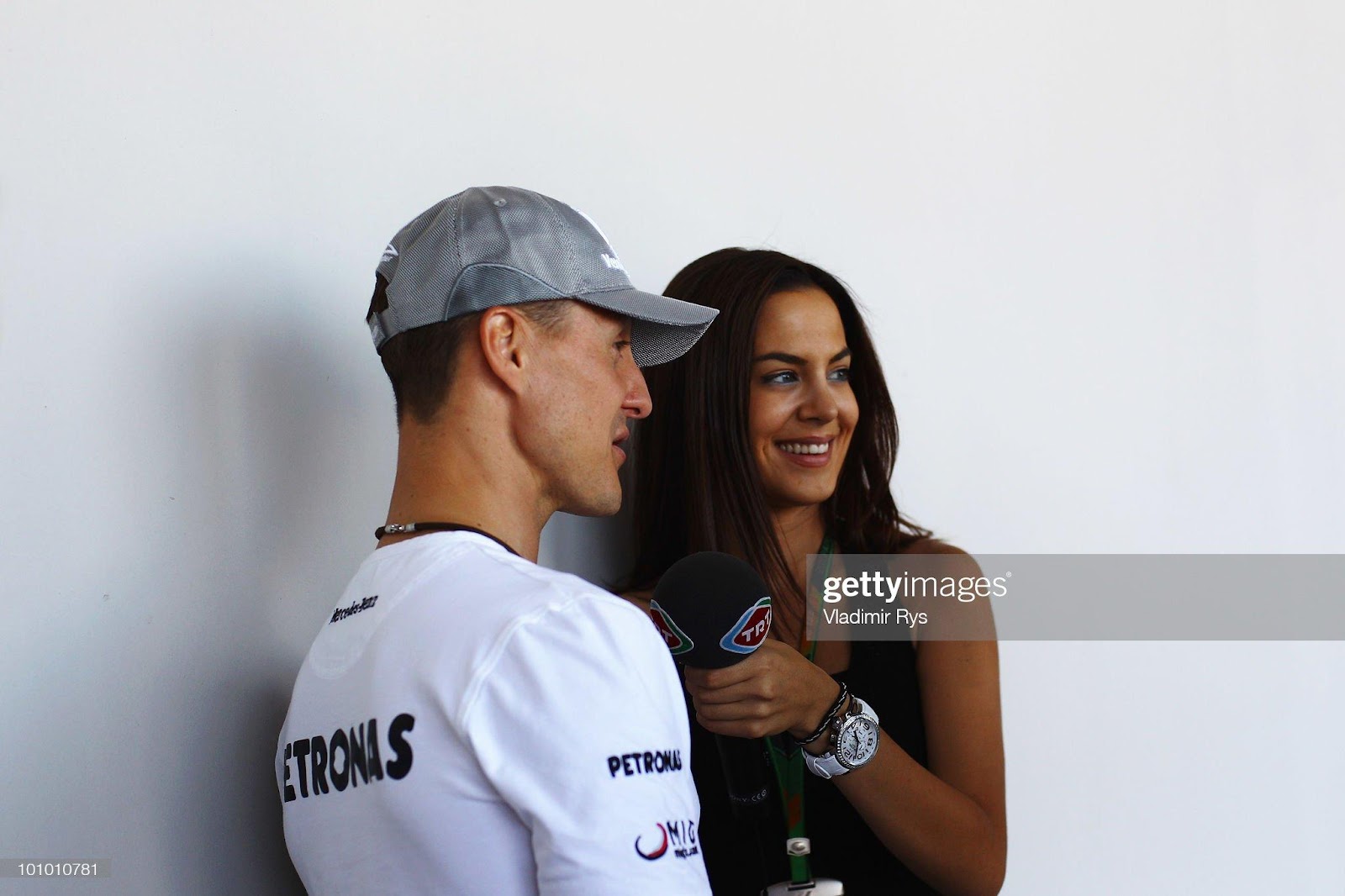
Michael Schumacher, Mercedes GP, is interviewed by the media following the drivers press conference during previews to the Turkish F1 Grand Prix at Istanbul Park on May 27, 2010. Photo by Vladimir Rys/Bongarts/Getty Images.
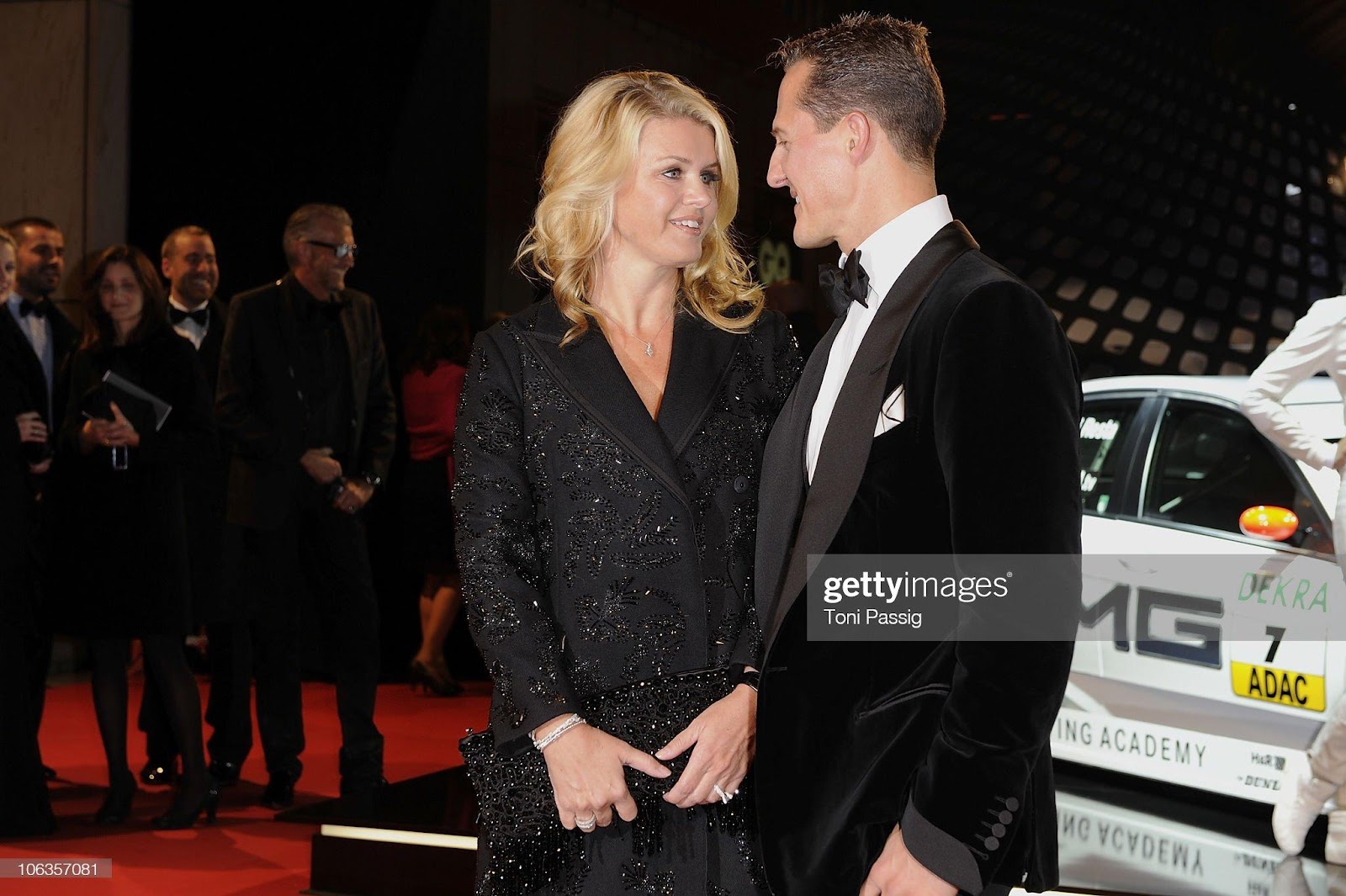
Michael Schumacher and wife Corinna attend the GQ Men of the Year 2010 award ceremony at Komische Oper on October 29, 2010 in Berlin, Germany. Photo by Toni Passig/Getty Images.
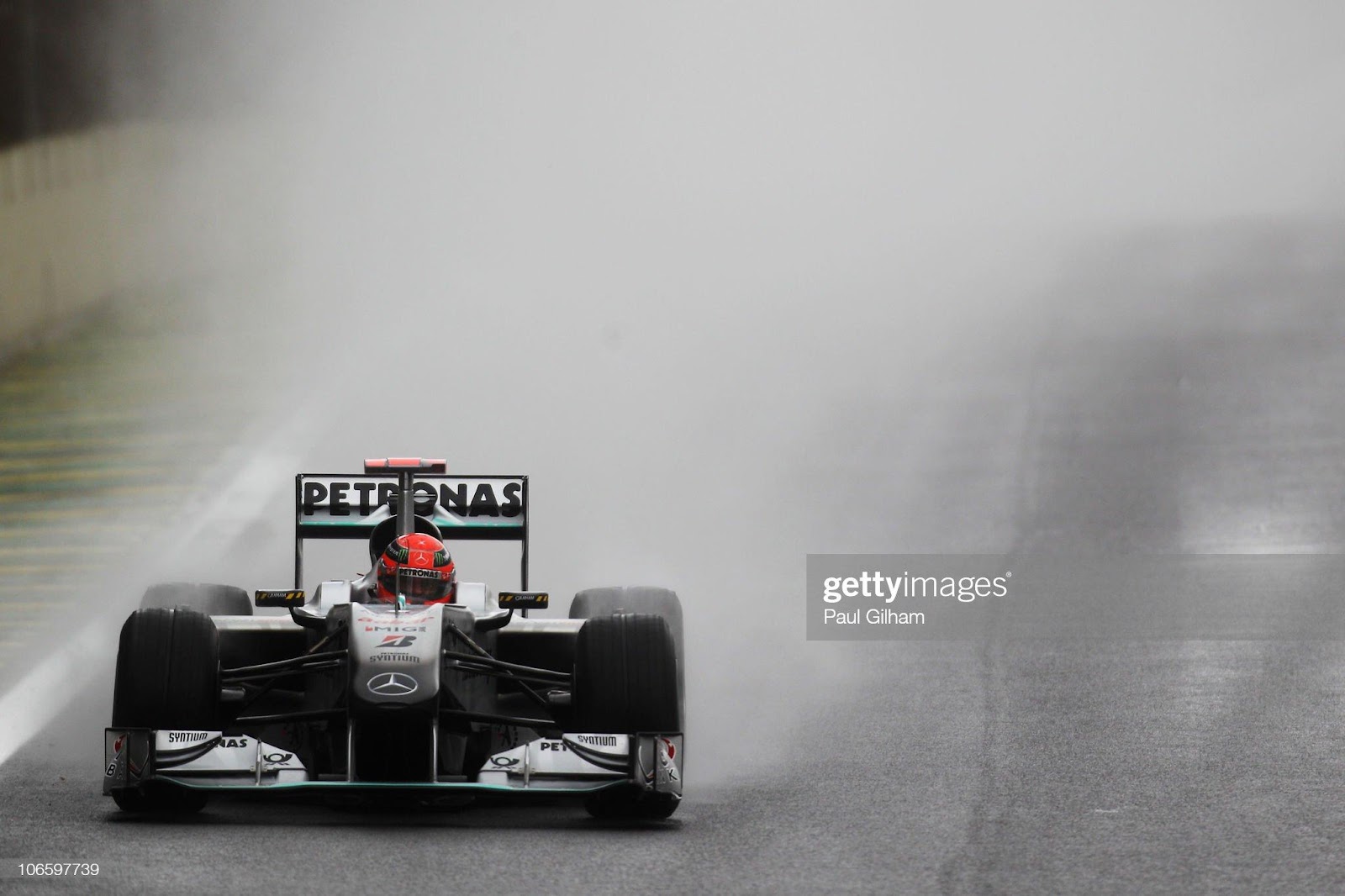
Michael Schumacher, Mercedes GP, drives during final practice prior to qualifying for the Brazilian F1 Grand Prix at the Interlagos Circuit on November 6, 2010 in Sao Paulo. Photo by Paul Gilham/Getty Images.
The German retired from F1 in 2006 and returned to race in 2010 with Mercedes. In October 2012, he announced he would retire for a second time at the end of the season. His career was not without controversy, as he was twice involved in collisions in the final race of a season that determined the outcome of the World Championship, with Damon Hill in 1994 in Adelaide, and with Jacques Villeneuve in 1997 in Jerez. Michael Schumacher was born in Hürth, North Rhine-Westphalia, to Rolf Schumacher, a bricklayer, and his wife Elisabeth. When Schumacher was four, his father modified his pedal kart by adding a small motorcycle engine.
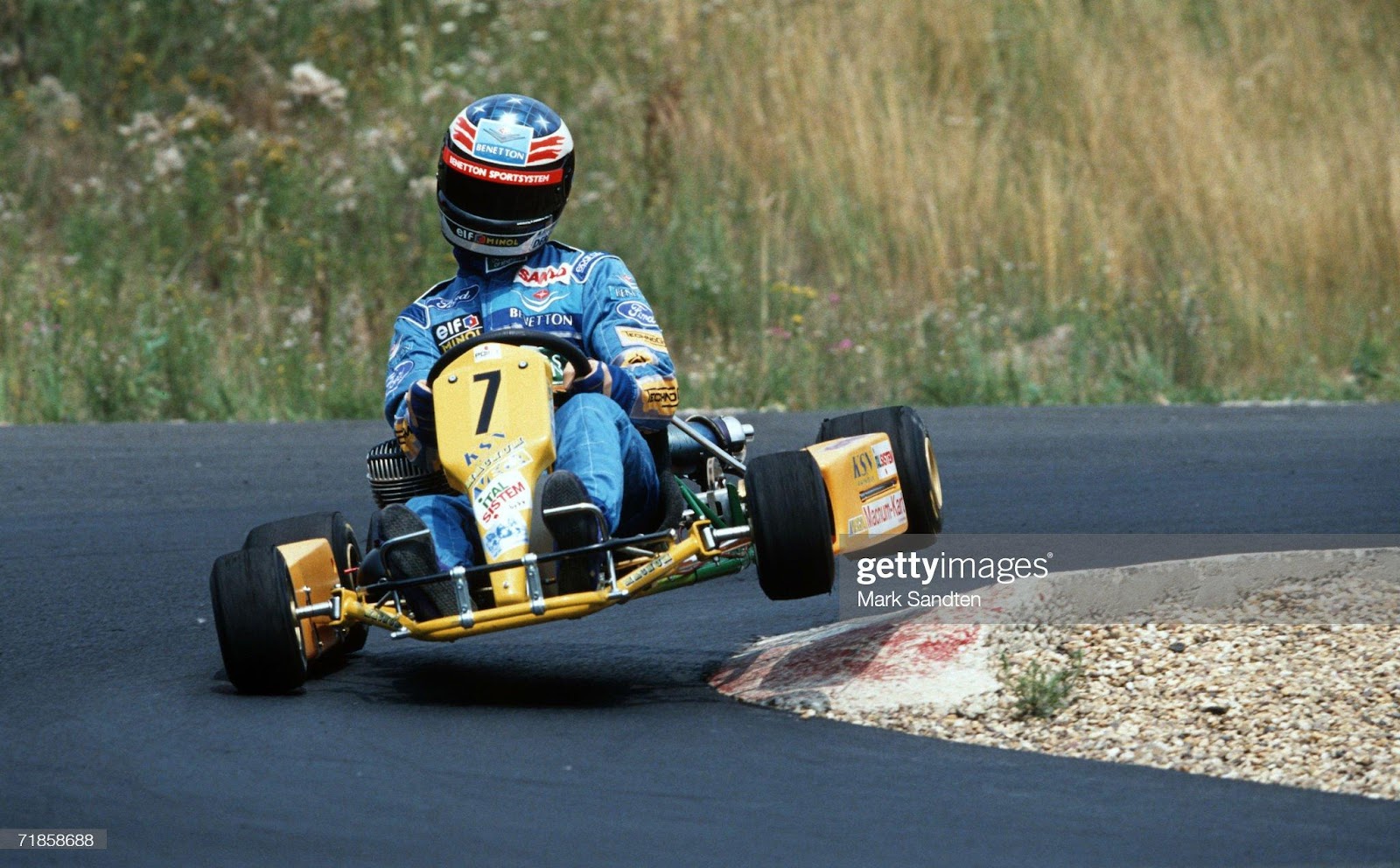
Michael Schumacher in action after the press conference on the go-cart circuit on July 1, 1994 in Kerpen, Germany. Photo by Mark Sandten/Bongarts/Getty Images.
When Schumacher crashed it into a lamp post in Kerpen, his parents took him to the karting track at Kerpen-Horrem. His father soon built him a kart from discarded parts and, at the age of six, Schumacher won his first club championship. In 1984 he won the German Junior Kart Championship and, from then on, he won many German and European kart championships. By 1987 he was the German and European kart champion, then he quit school and began working as a mechanic. In 1988 he made his first step into single-seat car racing, by participating in the German Formula Ford and Formula König series, winning the latter. In 1989 Schumacher signed with Willi Weber's WTS F3 team. Some of the German's best performances occurred in wet conditions, earning him the nicknames "Regenkönig" (rain king) or "Regenmeister" (rain master). Schumacher's nicknames include "Schumi", "Schuey" and "Schu". In 1996 Michael joined Ferrari for a salary of $60 million over 2 years, followed a year later by Benetton employees Rory Byrne (designer) and Ross Brawn (Technical Director).
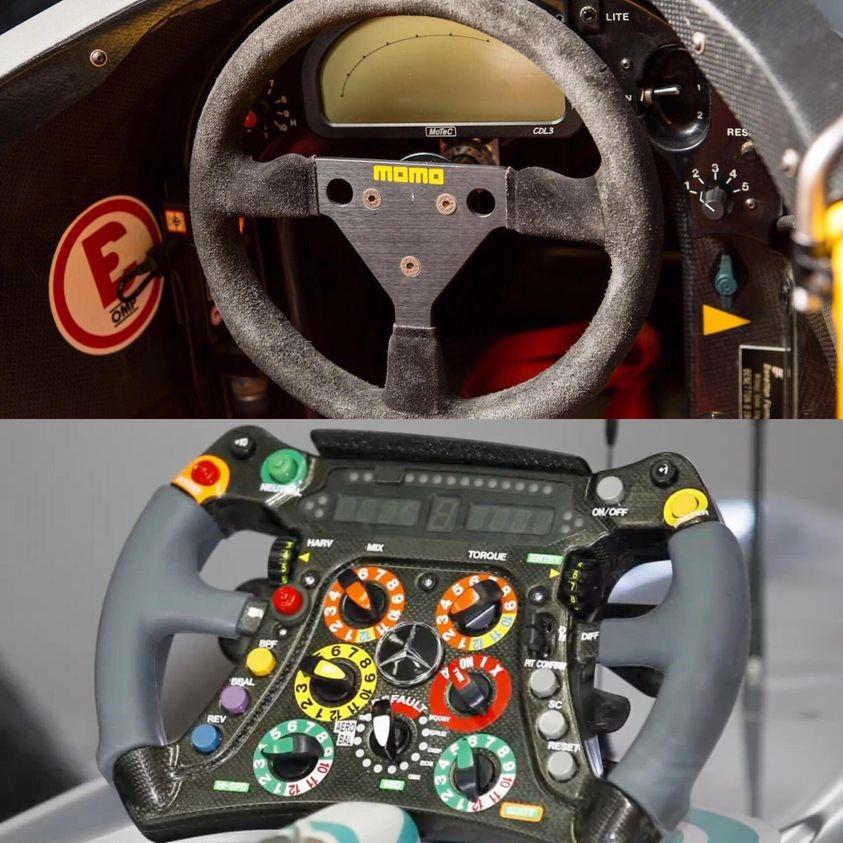
The steering wheel of Michael Schumacher's first and last season in Formula 1.
At the end of 1995, though the Red team had improved into a solid competitor, it was still considered inferior to front-running teams such as Benetton and Williams. Schumacher declared the Ferrari 412T good enough to win the Championship. Michael Schumacher, Ross Brawn, Rory Byrne and Jean Todt (hired in 1993), have been credited as turning this once struggling team into the best ever.
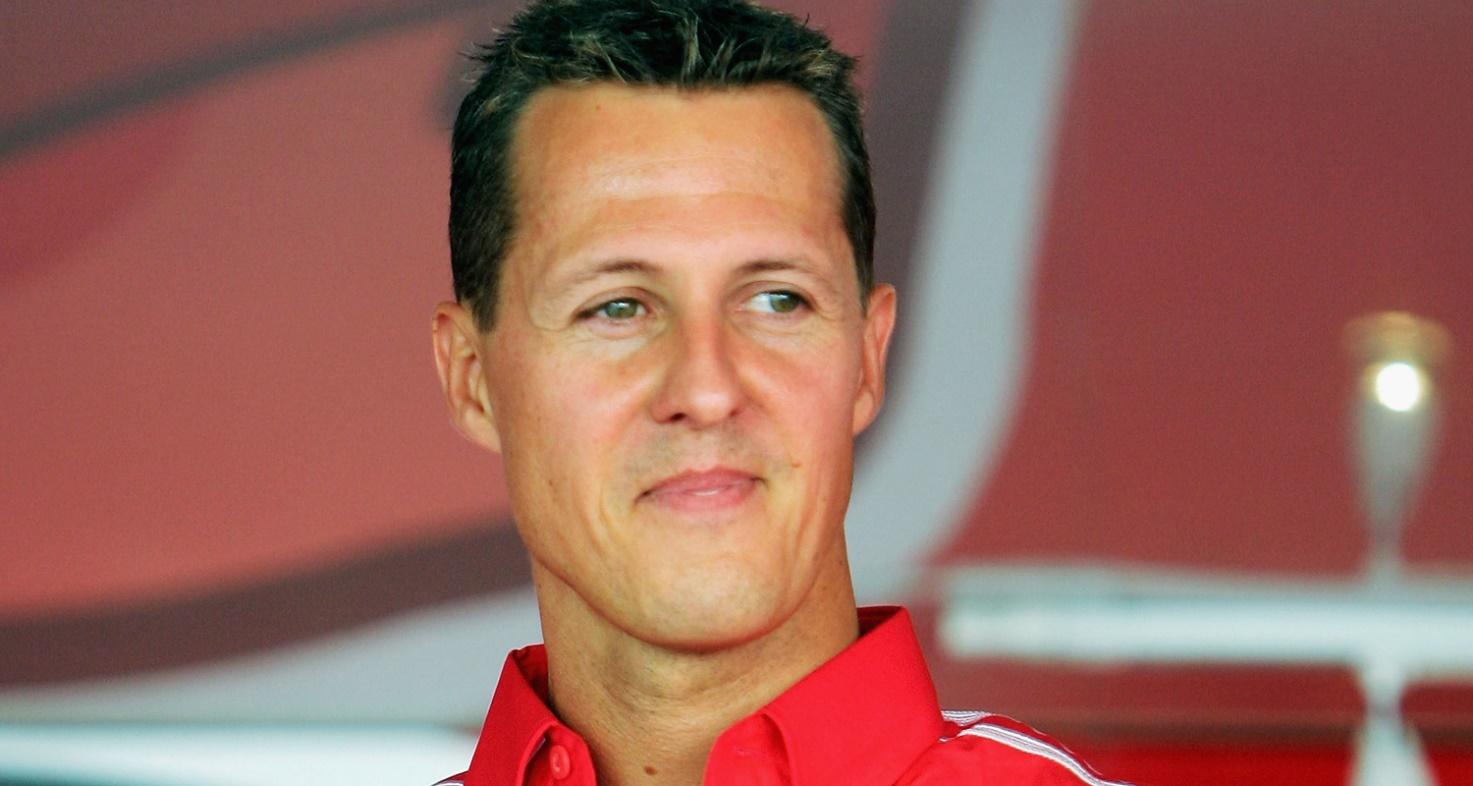
In the middle of the 1991 season, after a short test at Silverstone, Schumacher was given the nod to travel to Spa, in preparation for the Belgian GP to entry into F1. Gary Anderson, Jordan's designer, recollected the test: "he only did about 20 laps, but his fastest one was as good as we'd ever done at that circuit." The German then promptly qualified 7th in the unfancied car, confounding the paddock. Schumacher's first-ever teammate, Andrea Di Cesaris, who competed in 160 GP, later told ESPN: "I realised straight away that he wasn't just some newcomer. Spa is no picnic. It's one of the toughest tracks, very quick, long and extremely challenging. In short, it's unforgiving and I expected the rookie to struggle there. Straight away he was as quick as me. My engineer came to me and said: 'look, Michael is taking Blanchimont [corner] flat [out] and you're not. You have to take this corner flat'. For me it was a very demanding weekend!"Gary Anderson: "Michael suffered a water leak on the Cosworth in one of the sessions, and back then that would have been an engine-out job which would have put us out for the rest of the afternoon. Andrea felt there was something wrong with his car too and, because he was the senior driver, took the spare car. To get more laps I asked if it would be OK for Michael to take Andrea's car. We bundled Michael in, and had no chance to even adjust the pedals or anything. Well, immediately, Michael was beating Andrea again… it was surreal." Schumacher sadly retired on lap one of the race, encountering problems with the clutch due to his lack of familiarity with an F1 car's systems. But was signed immediately to drive the Benetton car, partnering three-time champion Nelson Piquet.
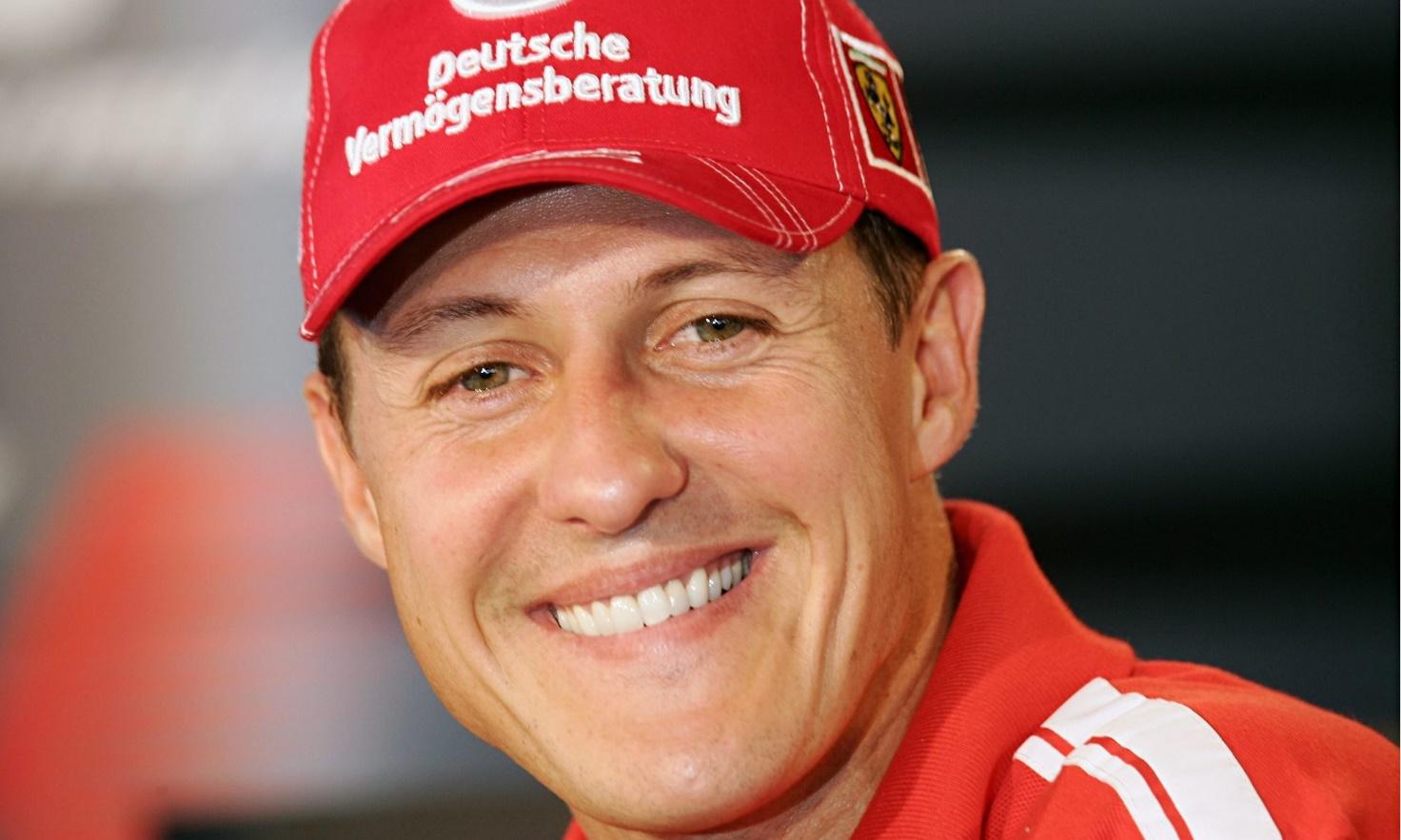
His then-teammate Eddie Irvine would later explain about Michael: "the '96 [Ferrari] car was a disaster and was nearly undriveable. Only someone of Michael Schumacher's ability - and maybe Senna - could have driven it." That year, in Spain, the race was won with a yawning 45-second advantage, with only second- and third-placed drivers finishing on the same lap as Schumacher.
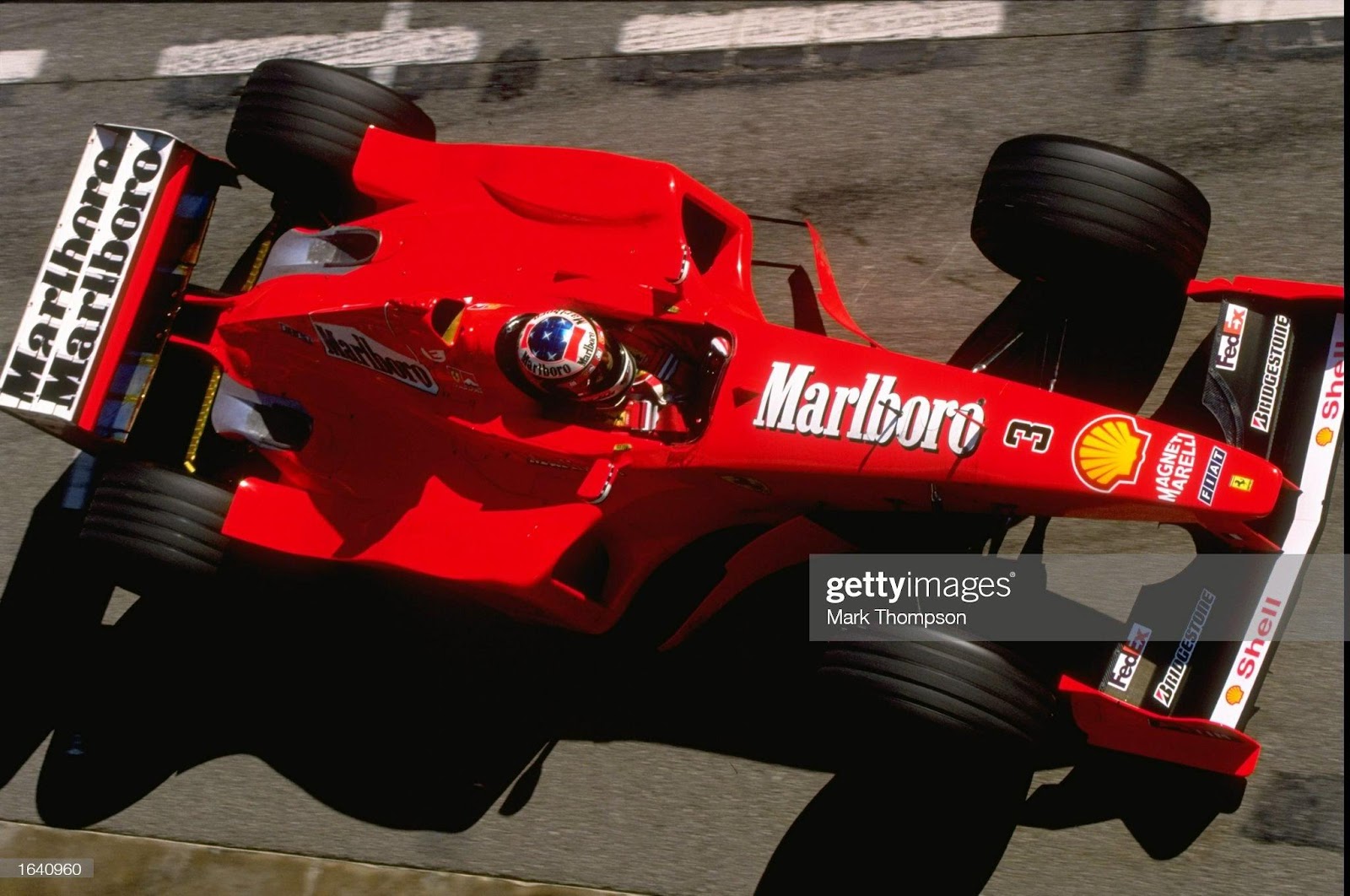
12 Feb 1999: Michael Schumacher races the new Ferrari F399 during a F1 testing session at the Circuit de Catalunya in Barcelona, Spain. Credit: Mark Thompson /Allsport.
In 1999, after several months out, in his first race back since breaking his leg earlier, Schumacher's championship hopes were dashed; not so those of his teammate, Eddie Irvine. Schumacher was then expected to help the Ulsterman. He giftwrapped the win for Irvine, after a tough fight with the McLaren cars, and pulled over to let him through in the closing stages. After the race, the victorious Irvine was full of praise for his returning teammate: "He's not just the best n° 1, he's the best n° 2 as well!" Years later Irvine spoke of the strength of Schumacher's comeback in barely credulous terms. "It was amazing. I remember me and Mika Salo were testing at Mugello, which is one of the hardest circuits in the world - and he [Schumacher] hadn't driven for eight months. He got in the car and within a lap he was a tenth or two tenths slower than I was. How do you do that? And then of course a couple of laps later he's half a second quicker and - it's just impossible. It's really, really annoying, but it was an honour to be able to see his telemetry and see the things he could do with a car." Eddie Irvine recently added: “Michael was quite exceptional. Even when things were going really bad, he worked with Todt to hold the whole thing together, which was quite amazing.” In my day there was, after [Ayrton] Senna’s death, only Michael. No one could drive a car like Michael Schumacher. That is what helped Ferrari at the time, because they could never point a finger at him. Rightly so because he was never to blame. When we were teammates I knew I was not as good as Michael. When I saw Michael drive I realised he could do things I could not do with the car. Mika [Häkkinen] was perhaps better than the rest of us but Michael was better than him too”. “Of today’s drivers, Irvine said, “Vettel is an arrogant, well educated kid and damn good driver, but not on Michael’s level, Lewis [Hamilton] is a damn good driver, but everyone knew Michael was on a different level.”
“The 1996 Ferrari was the spiritual ancestor of the Jaguar R2, the worst F1 I have ever driven. Yet Schumi with that car won three races and started from pole four times. That car was fine for three laps, then the rear tires were smashed. Michael was sensational that year. We were filled with admiration for what he could do with that car. He had the ability to solve problems. He was also very good at engine development. You had no chance in the race.” Eddie Irvine
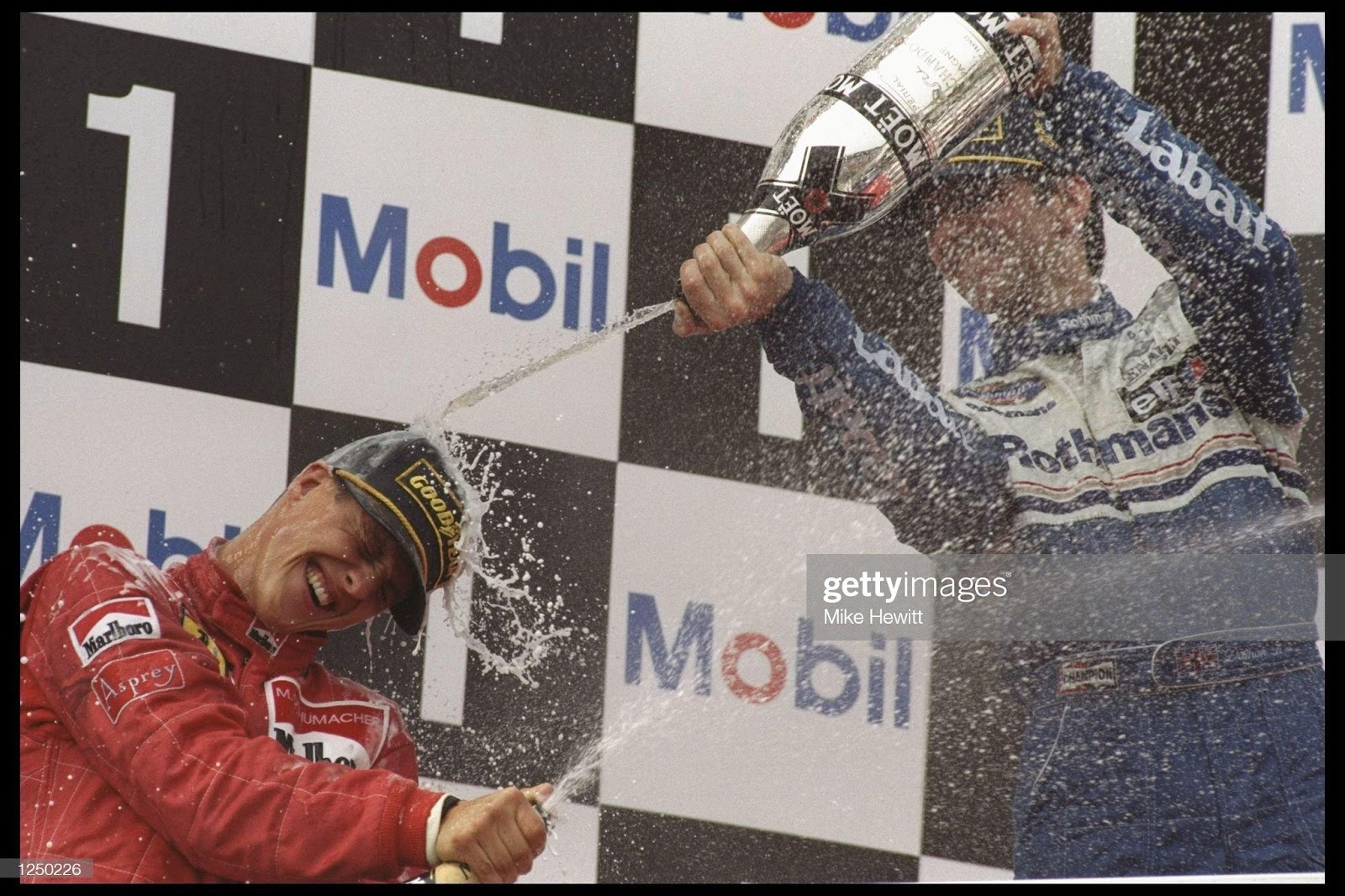
5 Apr 1996: Damon Hill celebrates his win of the San Marino Grand Prix in Imola by spraying rival Michael Schumacher with champagne. Credit: Mike Hewitt/Allsport.
On F1 appearing to lack drivers with the complexity and depth of Senna and his predecessors, Damon Hill answered: "it's an interesting comment and I think people feel that. Maybe we have to ask why there is not so much admiration and respect today. There's a lot of talent and experience but drivers are being cloaked by the sport in this media-mad world. When you talk about the philosophical, layered characters of Senna, [Niki] Lauda and [James] Hunt I don't think we've got anyone like that today. It comes back to the life-and-death question." Did Schumacher have that same sense of entitlement than Senna? "Yes – except that Michael was much cooler about his racing. Michael didn't exude passion like Ayrton. He was quite clinical but he had oodles of confidence. The difference was that Ayton seemed to need battles to galvanise him – with Alain Prost and even his own team. Michael worked instead with his team and used their talents to help him." “Yes, they raced with total commitment – but they were poles apart,” Hill added. “Ayrton raced with his heart and soul; Michael raced with his head and was much more calculating. When Senna went looking for him was the day I knew he’d realised Michael was the pretender to his crown. The friction carried extra bitterness. Senna was one of those drivers who just could not allow for the possibility that anyone could come close to them in terms of performance. Michael had the same mindset. Ayrton had made himself a rival to the sport’s establishment. He saw himself as a crusader. There were certain vested interests, he felt, swingeing regulations that suited them, and he was the guy who was going to challenge them.”
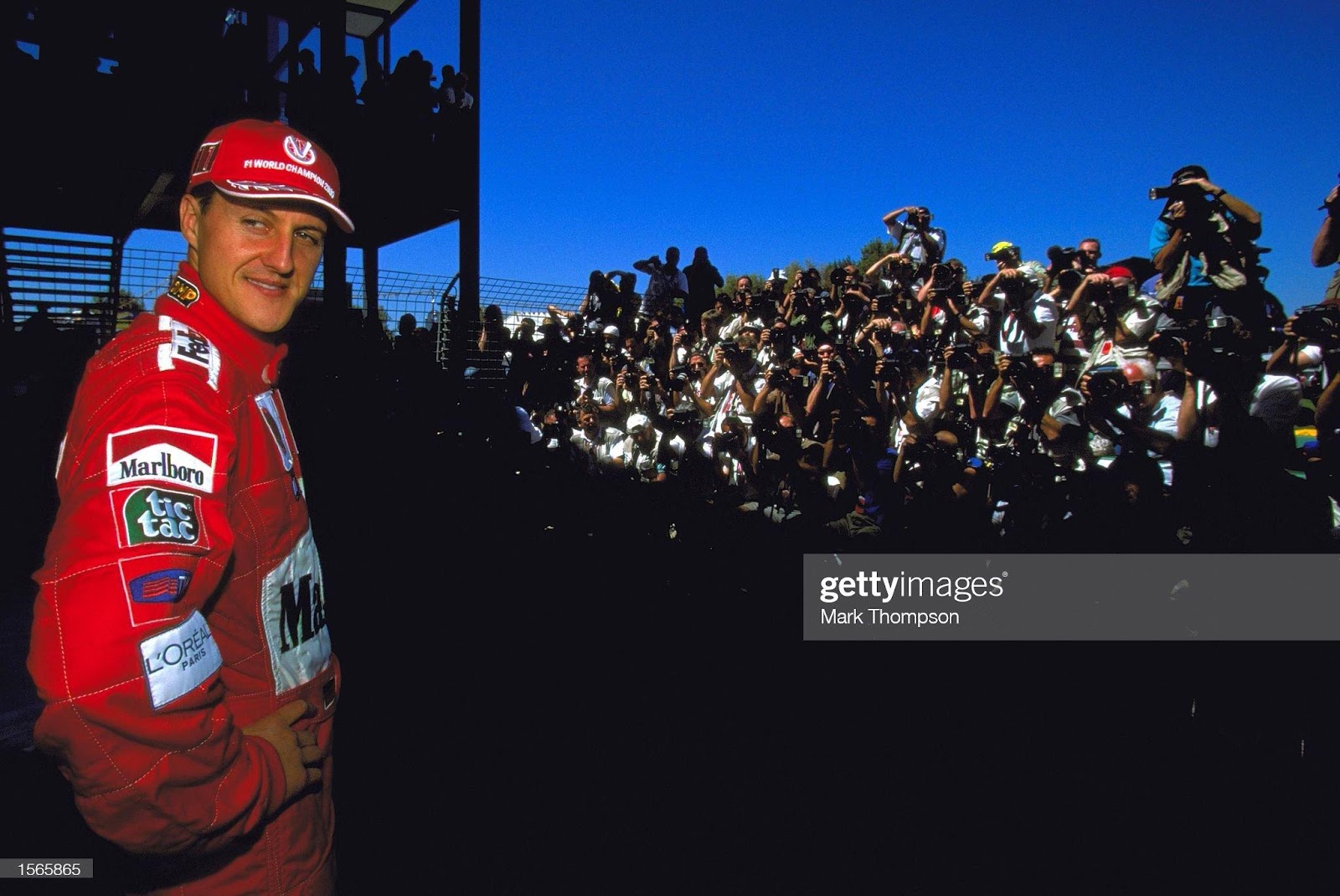
01 March 2001: Michael Schumacher, Ferrari, poses for photographers at the Albert Park Circuit in the lead up to the first Grand Prix of the 2001 season, Melbourne, Australia. Credit: Mark Thompson/Allsport.
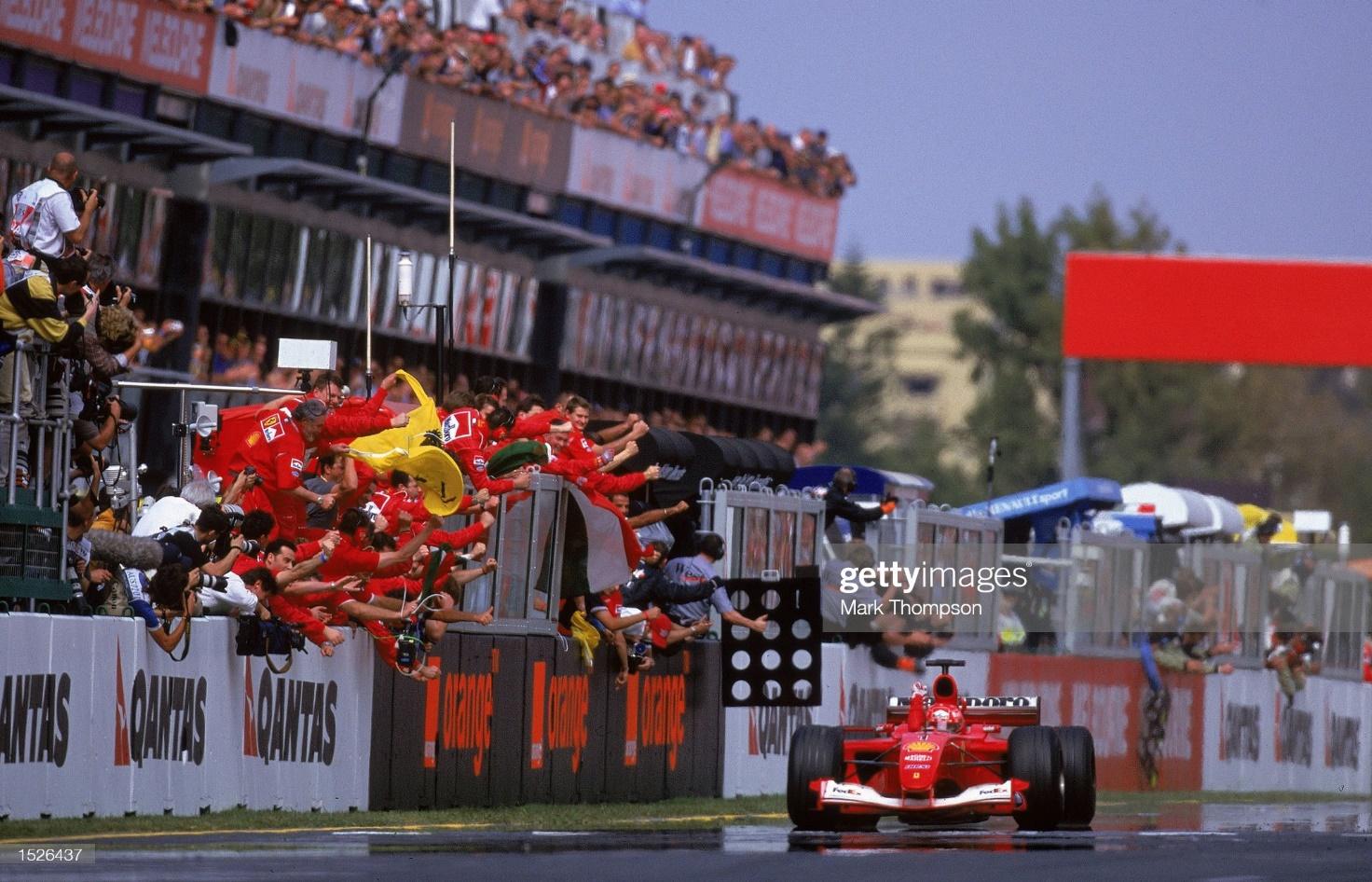
04 March 2001: Ferrari driver Michael Schumacher wins the Formula One Australian Grand Prix at Albert Park in Melbourne, Australia. Credit: Mark Thompson /Allsport.
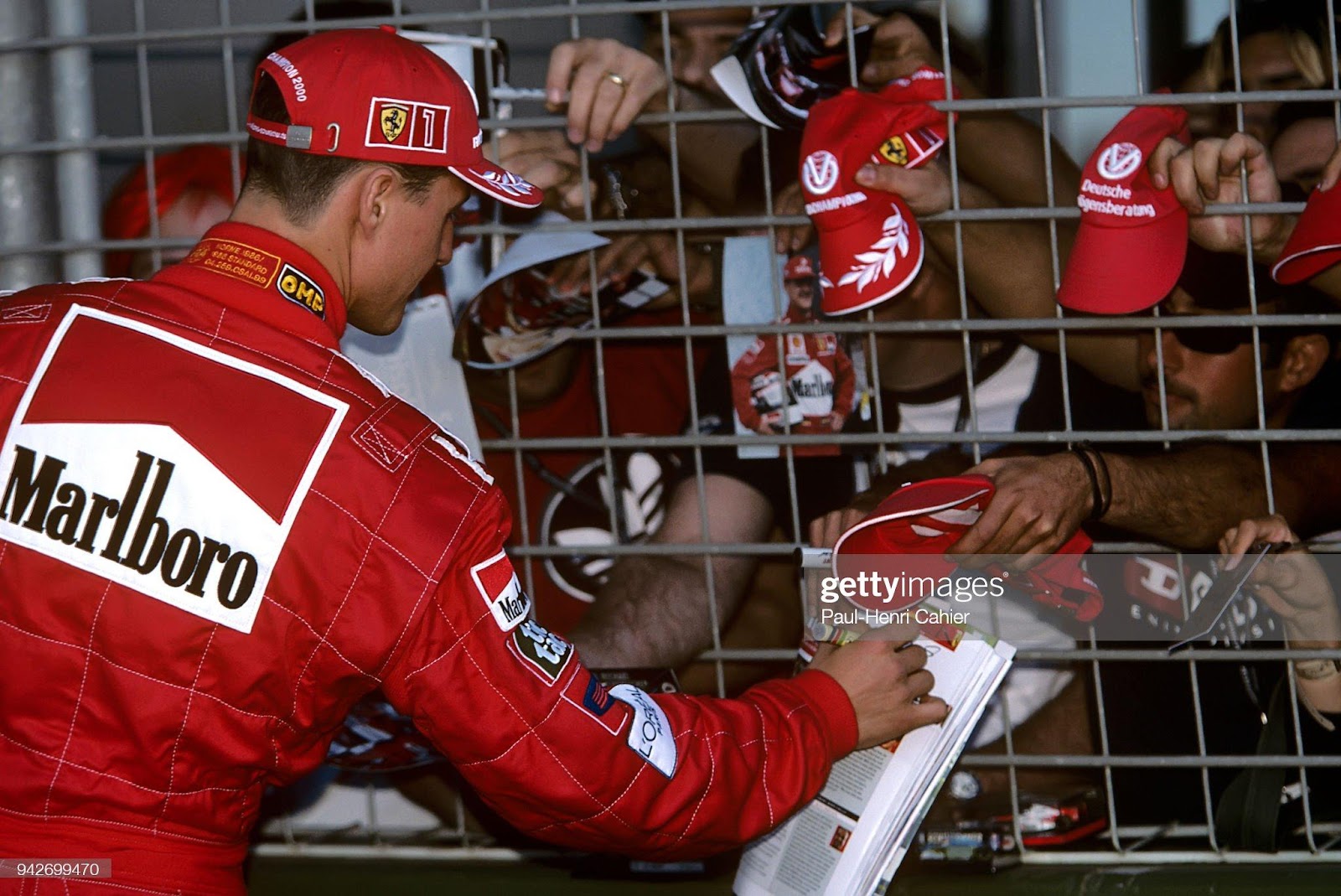
Michael Schumacher, Grand Prix of Australia, Albert Park, Melbourne Grand Prix Circuit, 04 March 2001. Schumacher signing autographs for the Australian fans. Photo by Paul-Henri Cahier/Getty Images.
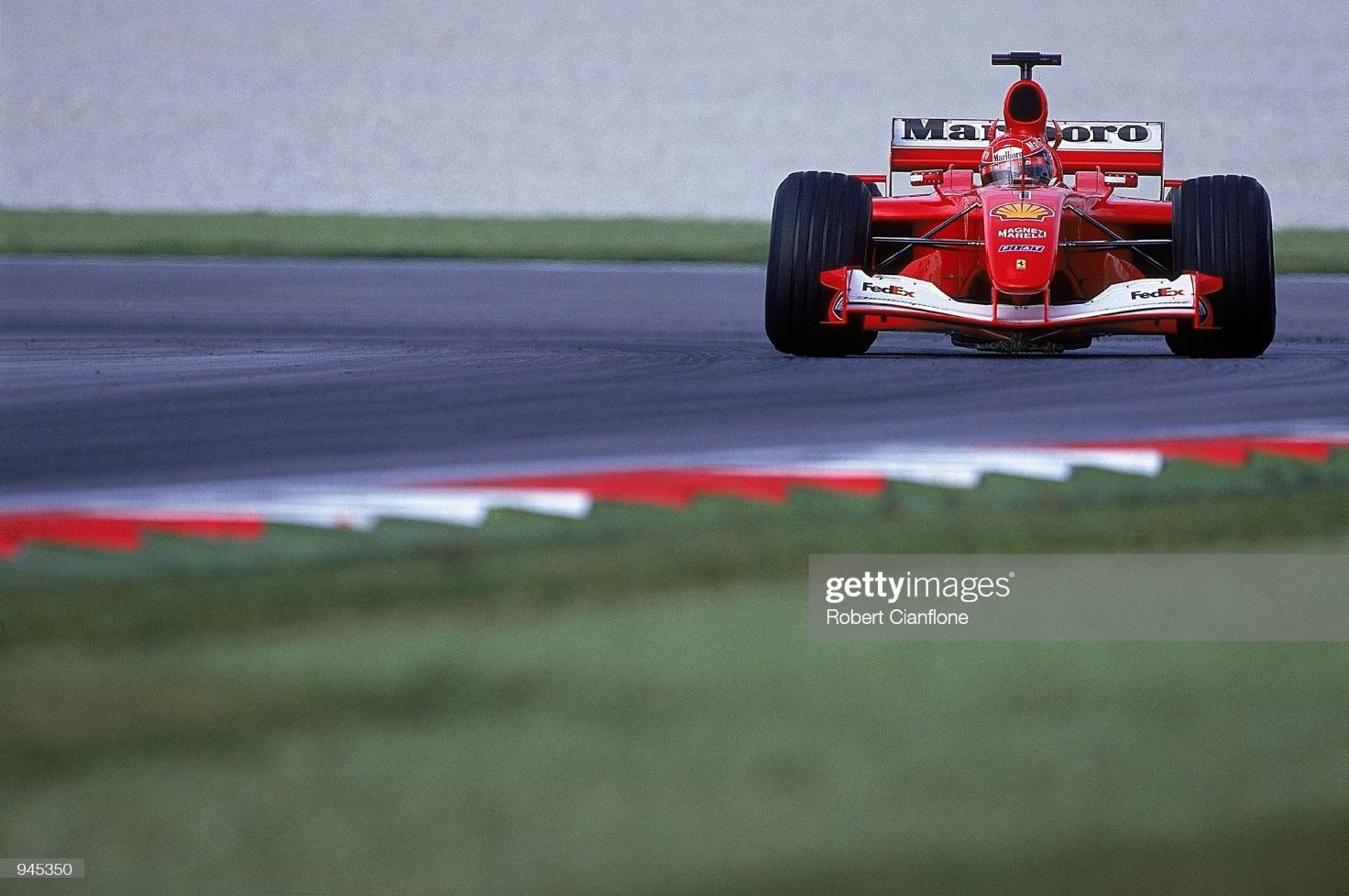
18 Mar 2001: Ferrari driver Michael Schumacher in action during the F1 Malaysian Grand Prix at the Sepang International Circuit. Credit: Robert Cianflone /Allsport.
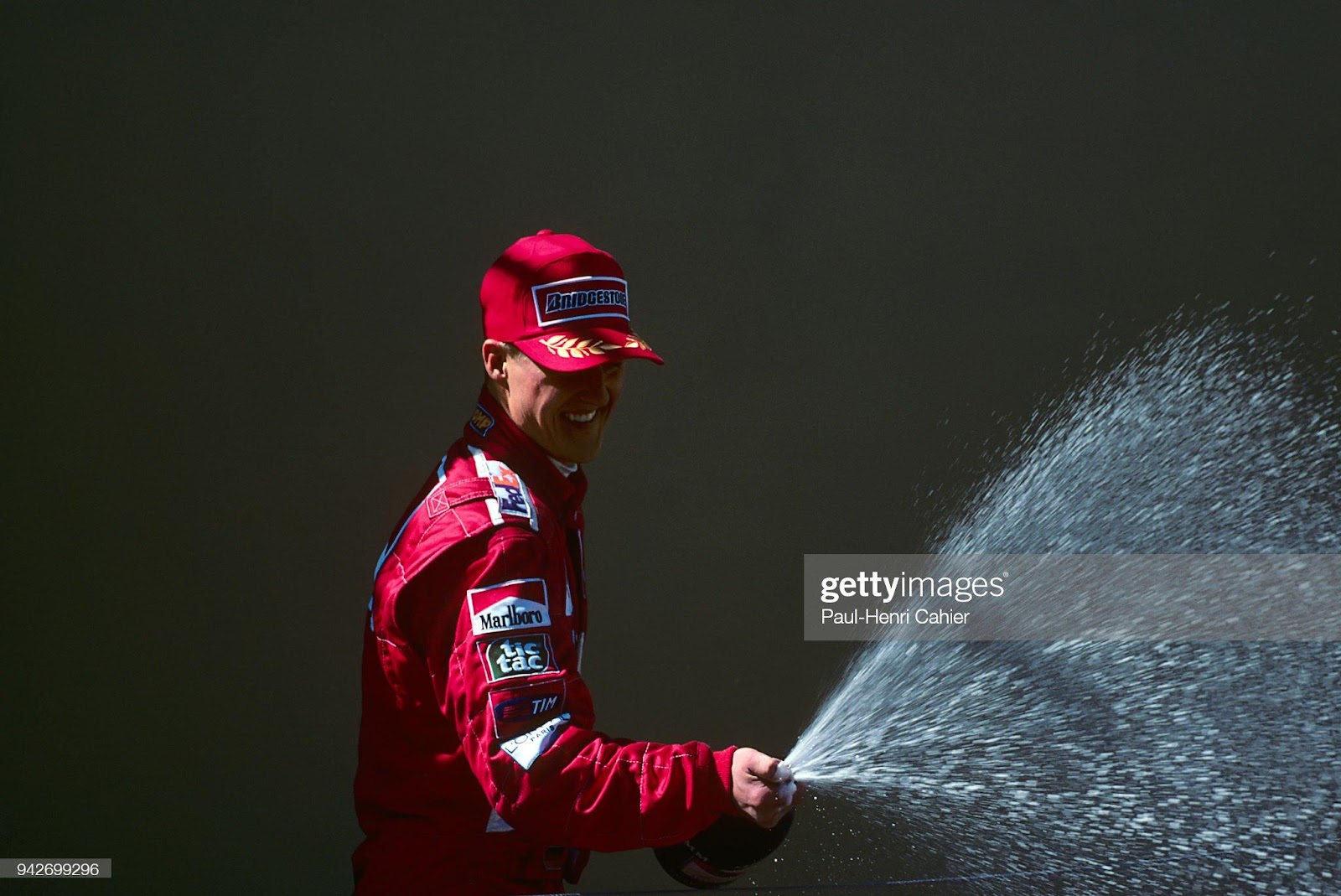
Michael Schumacher, Grand Prix of Austria, Red Bull Ring, 13 May 2001. Photo by Paul-Henri Cahier/Getty Images.
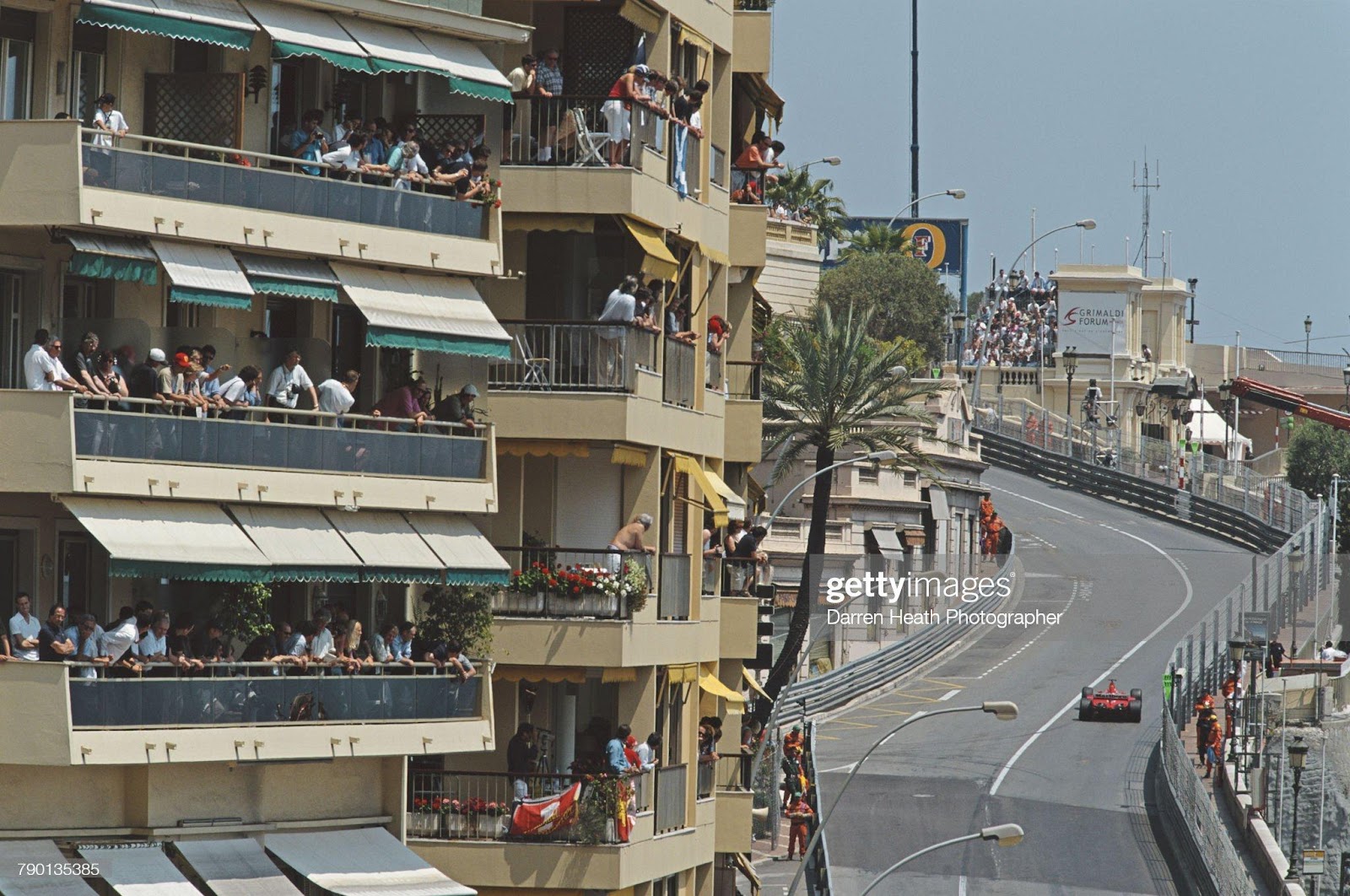
Michael Schumacher drives the n.1 Ferrari F-2001 V10 up Beau Rivage past the watching spectators on their balconies during the F1 Monaco Grand Prix on 27 May 2001. Photo by Darren Heath/Getty Images.
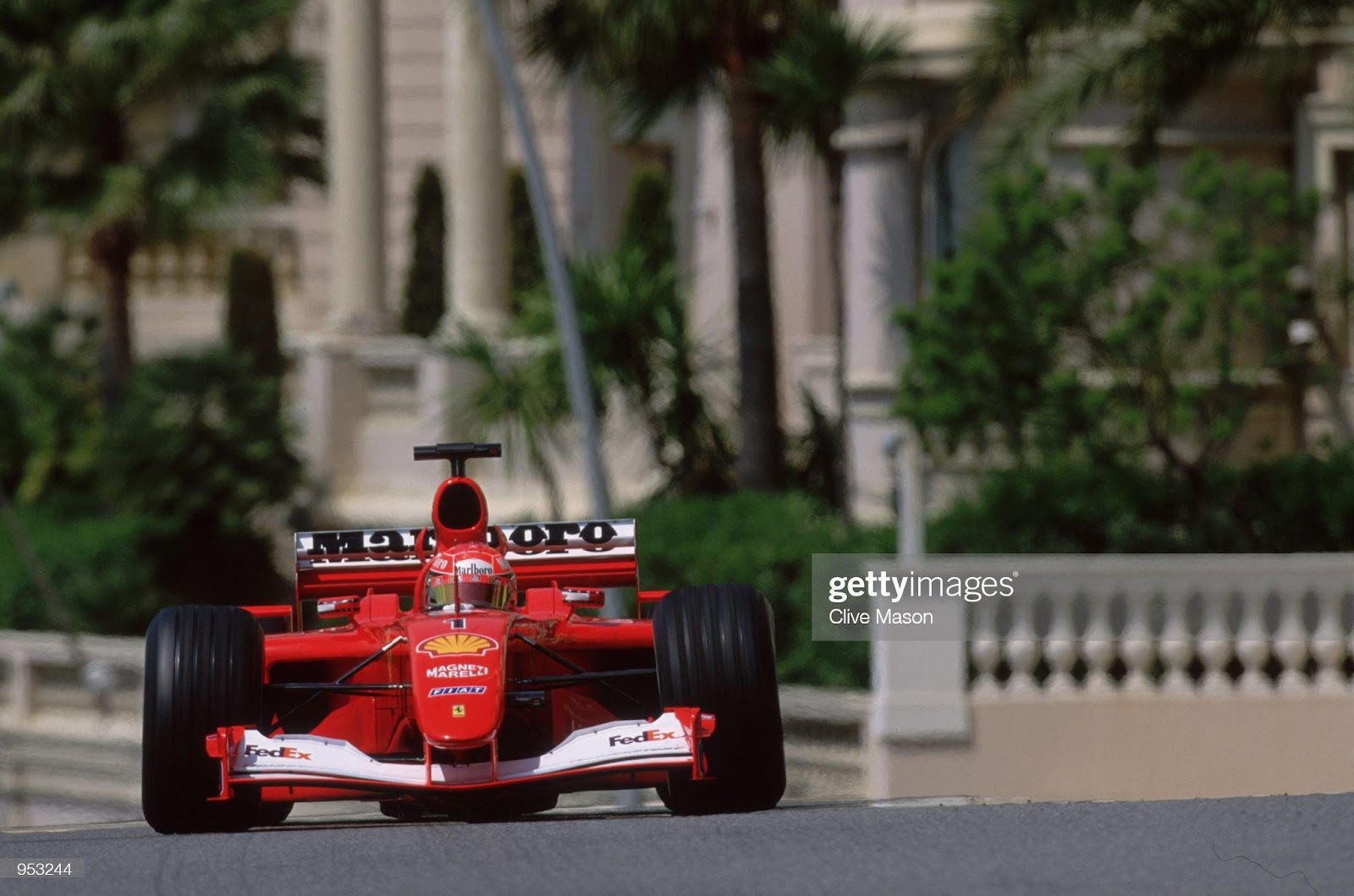
Ferrari driver Michael Schumacher in action during the Formula One Monaco Grand Prix in Monte Carlo, Monaco, on 27 May 2001. Credit: Clive Mason /Allsport.
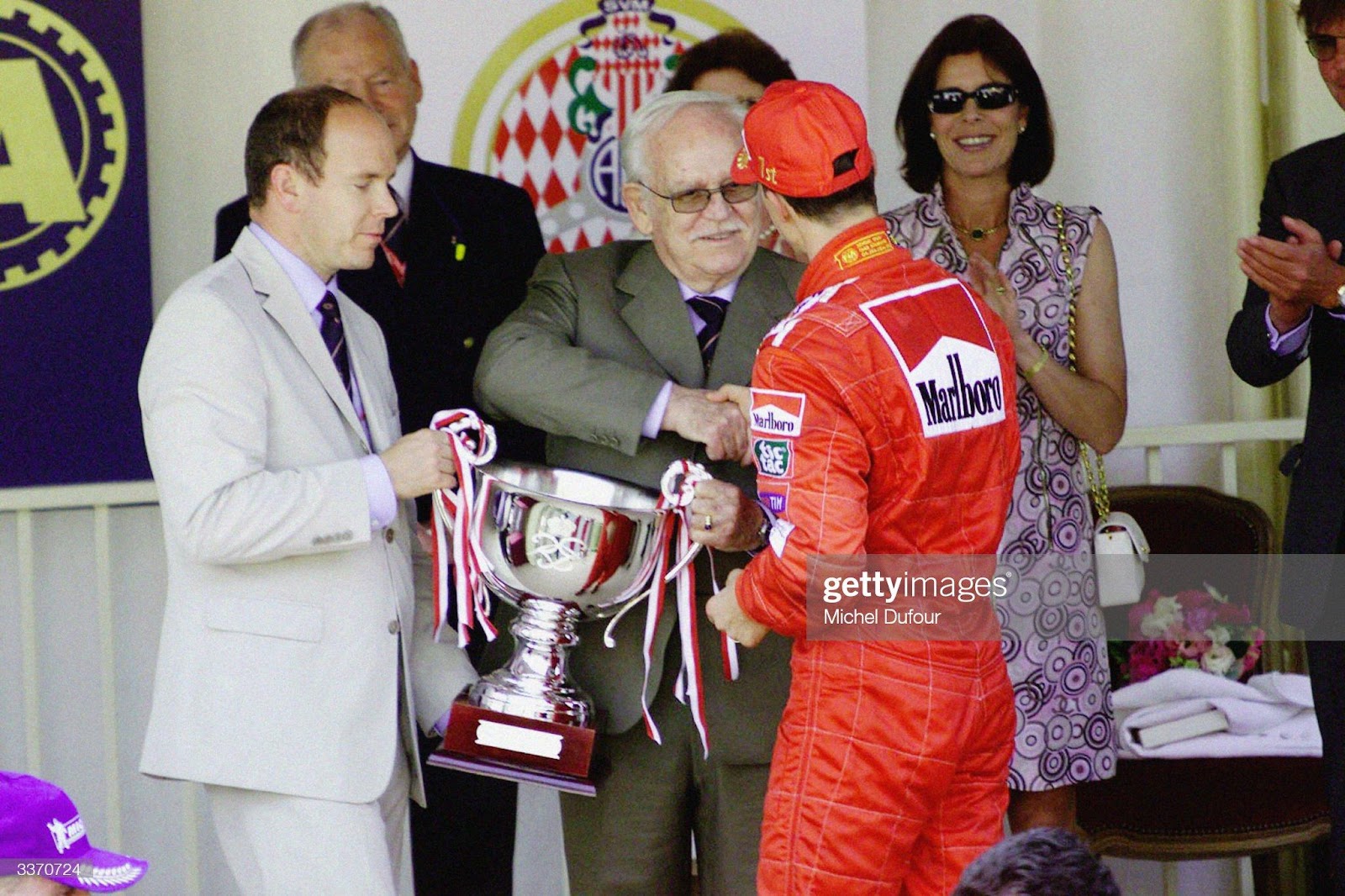
Prince Rainier III of Monaco and son Prince Albert hand the winner’s trophy to Ferrari driver Michael Schumacher at the Monaco F1 Grand Prix held on May 27, 2001 in Monte Carlo, Monaco. Photo by Michel Dufour/WireImage.
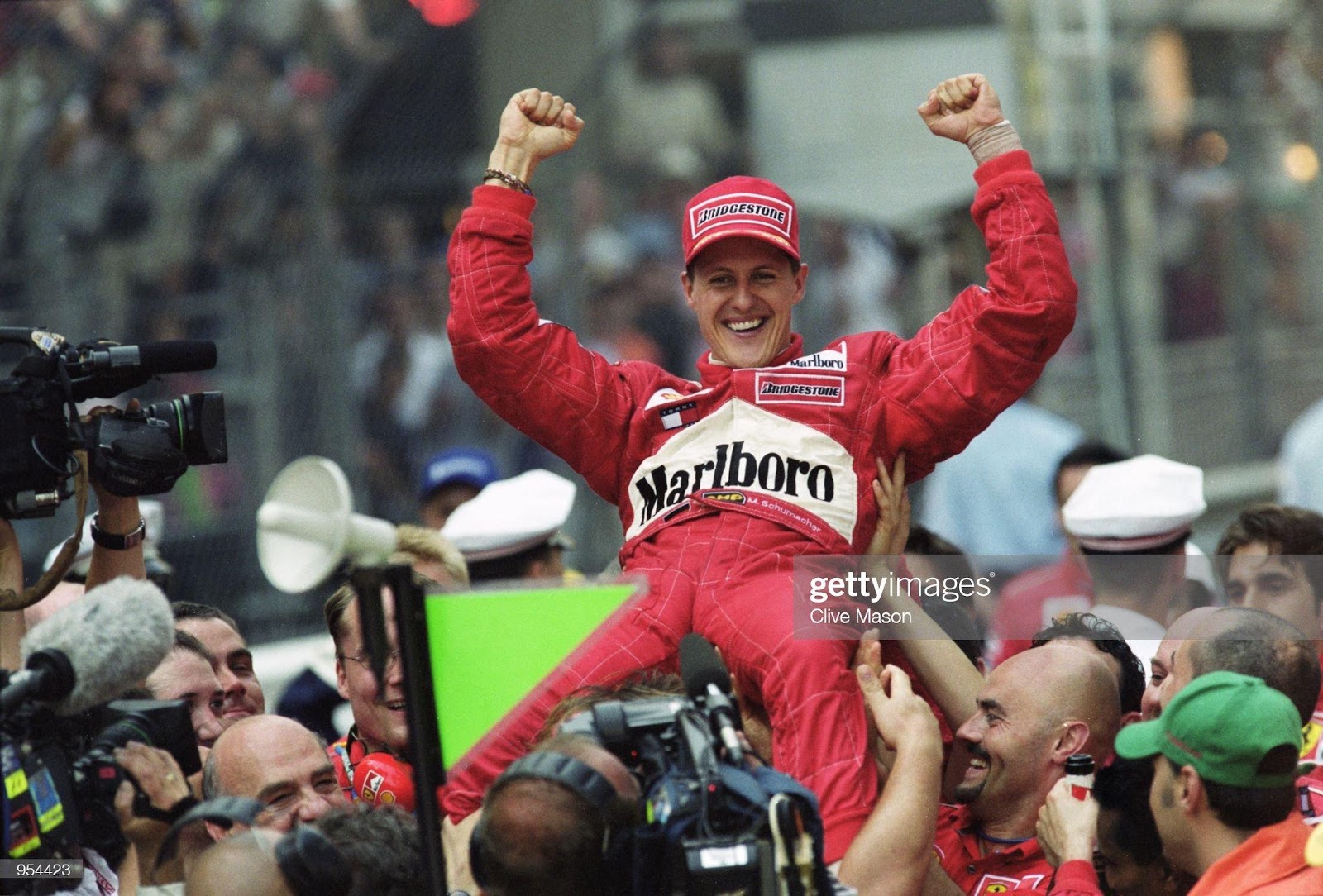
27 May 2001: Ferrari driver Michael Schumacher celebrates winning the Formula One Monaco Grand Prix in Monte Carlo, Monaco. Credit: Clive Mason /Allsport.
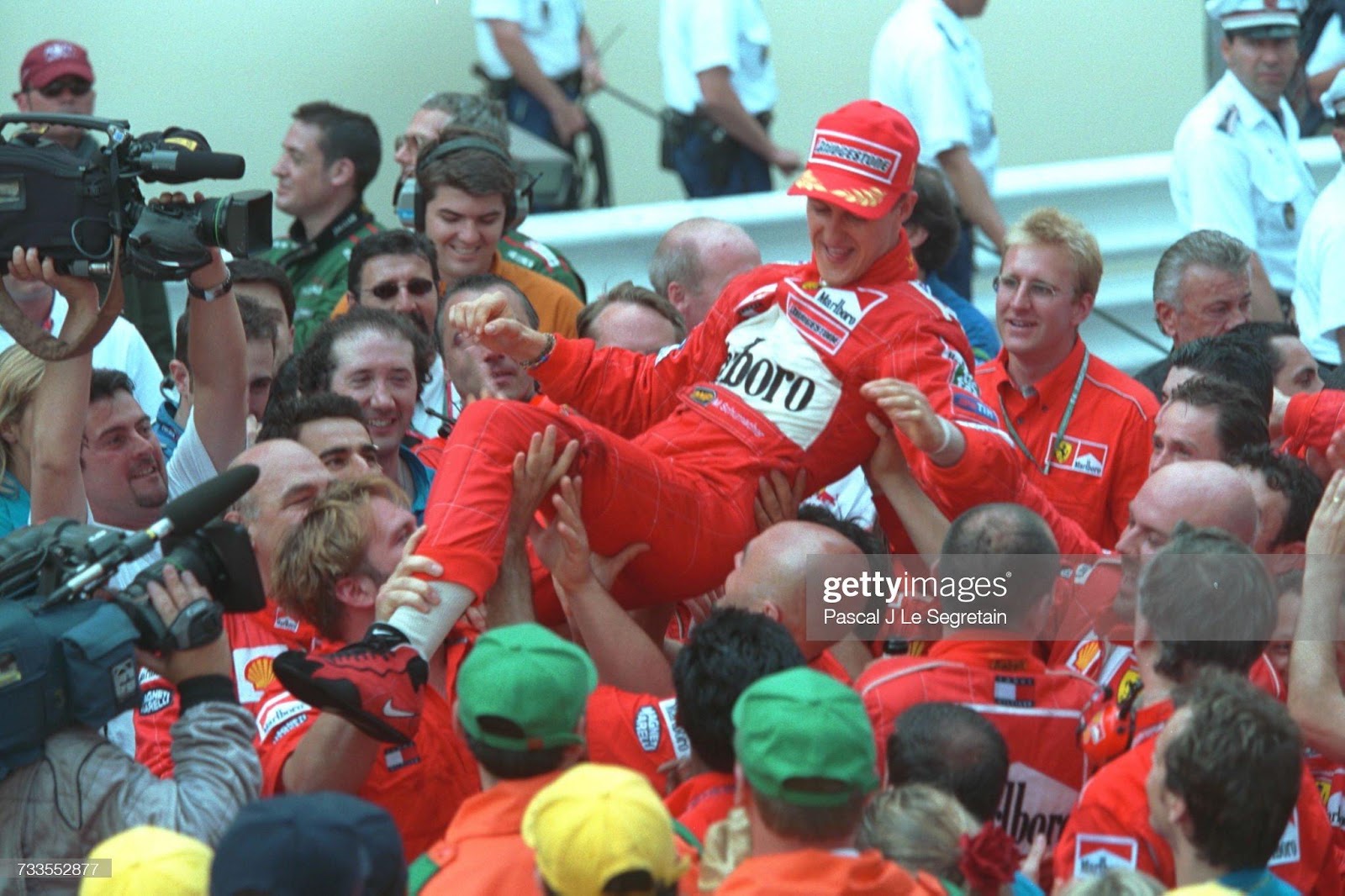
Michael Schumacher celebrating his victory at the Monaco F1 Grand Prix held on May 27, 2001 in Monte Carlo. Photo by Pascal Le Segretain/Sygma via Getty Images.
“2001 season was about to begin and shyly Michael, even though he was world champion, asked me: would you let me do some tests at Fiorano to make sure I’m still capable of driving? He was always filled with doubt, he was a good driver or not. This shows his humility and a total lack of arrogance.” Todt recalled.
“I carried the great Juan Manuel Fangio to his last resting place - one of the most important things I have done in my life - and, by the way, I carried Senna to his last resting place, too. A lot of people would have said, “why is Jackie Stewart there, because Ayrton had said he didn’t want to speak to him?” But we had corrected that. I was always critical of Senna because, as he said in that interview, if there is a gap you have to go for it, and if you don’t then you are not a great driver. That was wrong. He forced that issue too many times, so I am sorry, I cannot say that he was the greatest Formula One driver. There were a number of times that he intentionally did things which the great drivers wouldn’t have done. Fangio wouldn’t have done it. Jim Clark wouldn’t have done it. And Prost wouldn’t have done it either. I rate Prost higher than Senna; the ‘Professor’ was a more complete driver than Senna was. I liked Ayrton a lot as a friend and I loved his enthusiasm and his spirit and his drive, but to be a great you have got to be able to do it with consistency, but he had too many collisions with too many people. Indeed, that would stop Michael Schumacher from being the greatest driver of all time, too. Senna readily admitted it; winning was what mattered at any cost. Like most people in life however, you mature and that phone call to me was a message that he had done that.” Jackie Stewart said. "The mind is everything. All the boys in Formula One today have gifts from God and there's 20 of them. Then there's the top six, then the extraordinary three. But the genius is the one who takes it to another level. That is Michael Schumacher today, just as there once was Fangio, Clark, myself if you like, Lauda, Prost, Senna - the absolute multiple champions. And it's always the head that took them there." Sir Jackie Stewart in an interview in 2004.
Maranello, 28 December 2017. “There’s one thing that escapes to so many: without the mark given by Schumi in the three-year period 2010-2012, today the Mercedes team wouldn’t be so dominant.” Luigi Mazzola was the chief engineer at the Maranello testing team from 1995 to 2006, when tests were free. “And this means that I have spent hundreds and hundreds of days next to Michael. I’m proud of it.” What was he like at work? “On time, demanding, open. But, I like to remember the human side, because as a driver it’s even useless to offer words, he was the greatest.” Turns out he was a cool customer, very private. “And they’re wrong.” In what? “Schumacher always wanted to keep his work life and personal life separate. With journalists he was certainly not expansive. But with the people who was working with him and for him he opened up unreservedly. He was grouping. “Exactly. He never thought he can win by himself! He understood that the conquest of success is always a collective effort. That’s why his best quality was even stranger to talent of driving.” In what sense? “Schumi was capable to motivate the team in a special way. He was not an alien who was bestowing an astral blessing from the top. He was Michael Schumacher and at the same time one of us.” “There is one aspect of Michael,” Luigi Mazzola also said, “that is not very well known and it is related to his ability to use emotions. It's something I don't tell often. Contrary to the impression he could give from the outside, he was a very emotional character, a leader. I called him a great driver not only of cars, but also of people. He was pragmatic, strict, rigorous in doing things. He aspired to perfection. But, when he won, he let himself go. I remember the last test we did together, it was 2006 and we were in Jerez de la Frontera. He retired for the first time that year, only to return in 2010. At a dinner at the end of the test, he thanked everyone. He said: "without you I would have been nobody, I just have to say thanks to you and to the whole company". He let himself go in a cry that touched us all. Those tears weren’t an exception. Often, after a successful test or a success, he was found unable to speak out of emotion.”
“In their early days, Michael was more complete; Ayrton didn’t have the same attention to detail and was ridiculously unfit.” Probably driving was a gift that he managed more naturally than Michael. But Michael was, …… was incredibly good in every respect. His aptitude for work, his physical shape, comprehension of all that was going on in and out the car, the reading of the race, everything really. In my opinion he’s the best, the best I’ve ever worked with.” In 2013 he added: “I've worked with many outstanding drivers from Senna, Schumacher, and Alonso but if I had to pick one, I do have a special place for Michael (Schumacher). He is obviously a super talent, he very much thinks like an engineer and yet he's also a really great person, so I definitely have a soft spot for him." Pat Symonds
Martin Brundle, former F1 driver: "when looking at the last 20 years, I've seen drivers with talents in different ways but I don't think I've seen another Ayrton. Probably the closest was Michael Schumacher, but Senna was driven by the heart and Schumacher by the head. Schumacher was a more complete driver, but Senna had more natural talent. But of course we are talking about tiny percentages, as these two were some of the best drivers that ever sat in a racing car. Senna was also smart in politics. He was one of the few guys who could control Ron (Dennis). So no, we haven't really seen another Senna yet." “Michael was a bright boy,” says Brundle. “He knew he had the skills to get the job done. There was a Germanic confidence about him and, to begin with, arrogance: in hotels and restaurants, down the gym, in the paddock and debriefs. He got rid of it as he achieved. It disappeared with maturity and success. I saw Ayrton as an emotional, great human being. Passion was his energy source. But it became a weakness. He convinced himself that Benetton was cheating. I was in those races in 1994 and I felt he was pushing beyond even his great skill.” Both men, blinded by their duel’s intensity, had still to see the best of each other when Senna was killed doing what he was born to do. And Schumacher had to live with that. Brundle: “Michael loved to talk. I’ve seen him chat for hours at a race, and not necessarily with the powerful or famous. But I can’t recall him asking me about Ayrton, even though I had all that experience of racing against him. ‘What’s he like?’ ‘How do I beat this guy?’ There was none of that. I think that would have been perceived as weakness. Ayrton was fixated on Michael, not the other way around. Michael was in the ascendency. Youth would have come through in the end. [Plus Benetton did get that Renault engine in 1995.] Ayrton, though, was better. He had a sixth sense for speed and grip that Michael didn’t. Michael achieved great things with all the tools and levers at his disposal, but he didn’t have the competition – all those household names of the 1980s that Ayrton had.”
Eddie Jordan, Jordan F1 team owner: "just remember that even the great Michael Schumacher started as a pay-driver. If he had not paid for his first drive at Jordan, he would not have got the drive." He said he was amazed when he saw Schumacher racing for the first time, finding him simply phenomenal. "Michael Schumacher is the fastest racing driver the world has ever seen." Eddie Jordan, Spa '97 - Schumacher flies on wet track.
Their mother, Elisabeth, had died on the Saturday night, between qualifying and the race at the 2003 San Marino GP, but both Michael and Ralf Schumacher returned from her bedside in time to take their place on the start line. Michael secured his 65th career win. The top three forewent the usual champagne celebrations in acknowledgement of the Schumachers' personal tragedy.

From left to right Rubens Barrichello, Michael Schumacher and Luca Badoer.
Rubens Barrichello, Michael's Ferrari teammate, said afterwards: "I don't know if I would have been able to take part in a race under the same conditions. He's a great person and absolutely deserved to win. I'm very sorry for Michael. I don't want to speak for him. Only Michael can know if he made the right choice. But since he felt he could race, I supported him. Today again Michael has shown the dimension of what he is as a driver and as a man."
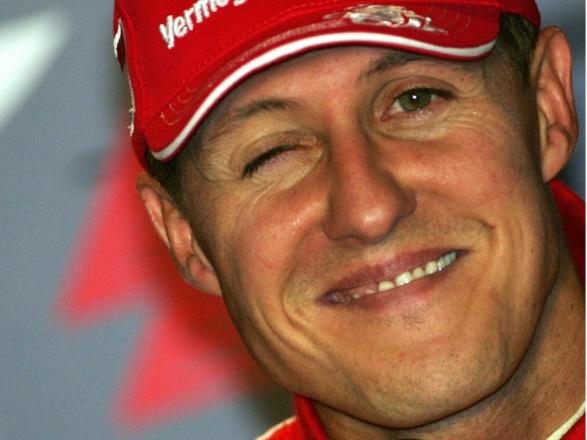
“Michael Schumacher is the greatest” Murray Walker, 2006. The main British commentator, considers Schumacher the best ever and not only because of statistics. In his opinion the German was better for having spontaneously left Benetton at the end of the 1995 season, when he was two-time world champion, accepting the challenge to drive for Ferrari and bringing the Italian team back to the success from seasons pasts. He emphases the fact that Michael has taken in there Ross Brown and Rory Byrne, as well as having brilliantly led the team. According to the British, Senna was indubitably the most charismatic, the most mystical, while Schumacher was the best of all time.
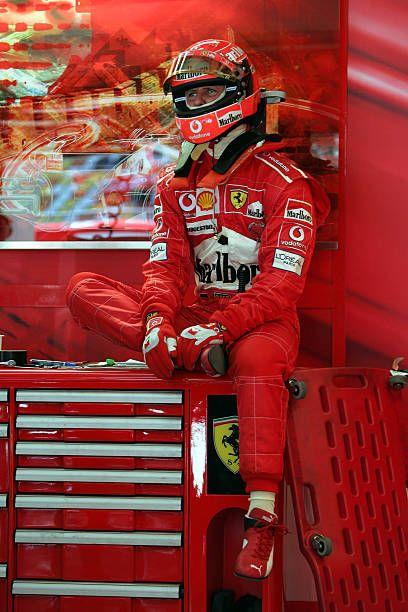
"[Senna] was just as quick [as Schumacher]," Frank Williams told the Telegraph. "He was also just as brave [as Michael] but probably more intelligent."
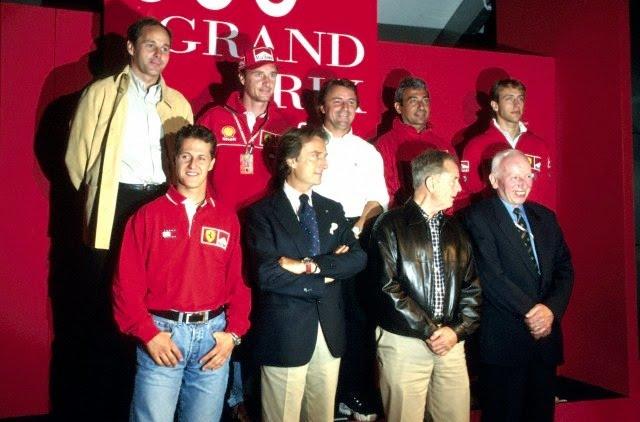
Italy 1999, 600 Grands Prix for Ferrari. Gerhard Berger, Eddie Irvine, Rene Arnoux, Michele Alboreto, Luca Badoer, Michael Schumacher, Luca di Montezemolo, Phil Hill and John Surtees.
“Senna is the best ever. It’s a simple question. Because the combination of speed, talent, strategy, professionalism, discipline, personality and charm were unique. In each of these he was close to perfection.” Gerhard Berger
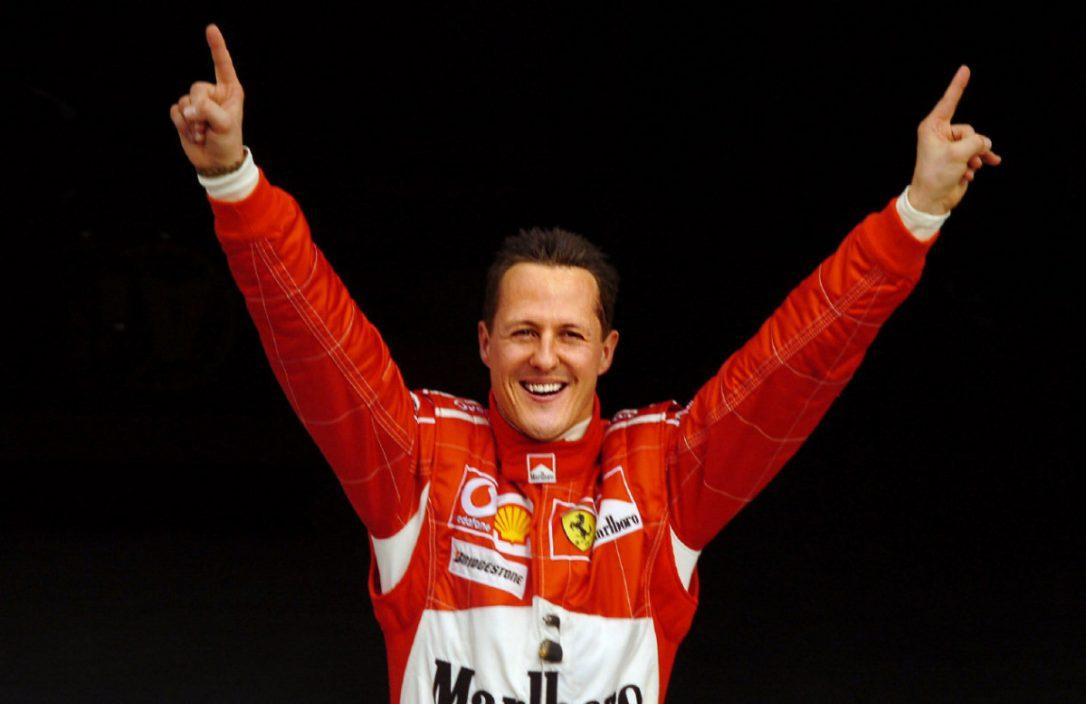
Joan Villadelprat, the formerly operations director and team manager at Benetton Formula until 1999, has a special predilection for Michael Schumacher: “it was incredible, everything was working out for him, he had brains and intuition. He began to brake with his left foot, he worked a lot in the car with the throttle, he took physical preparation to another level. He got involved a hundred percent and made you work a hundred and twenty percent. Mind you, he spent the day doing stinker on track and me all day with the commissioners trying to apologize for him.” Schumacher was the natural heir of Ayrton Senna, with whom also Viladelprat coincided. Alonso, Hamilton and many other drivers indicate the Brazilian as the greatest in the history. Here, the formerly team manager at Benetton Formula takes a different view: “Senna was a natural talent, but many things he didn’t know why he was making. Pure talent, he was above good and evil as for racing.” But concerning Schumacher he also said: “Michael then was a machine. He would have fused Senna … always.”
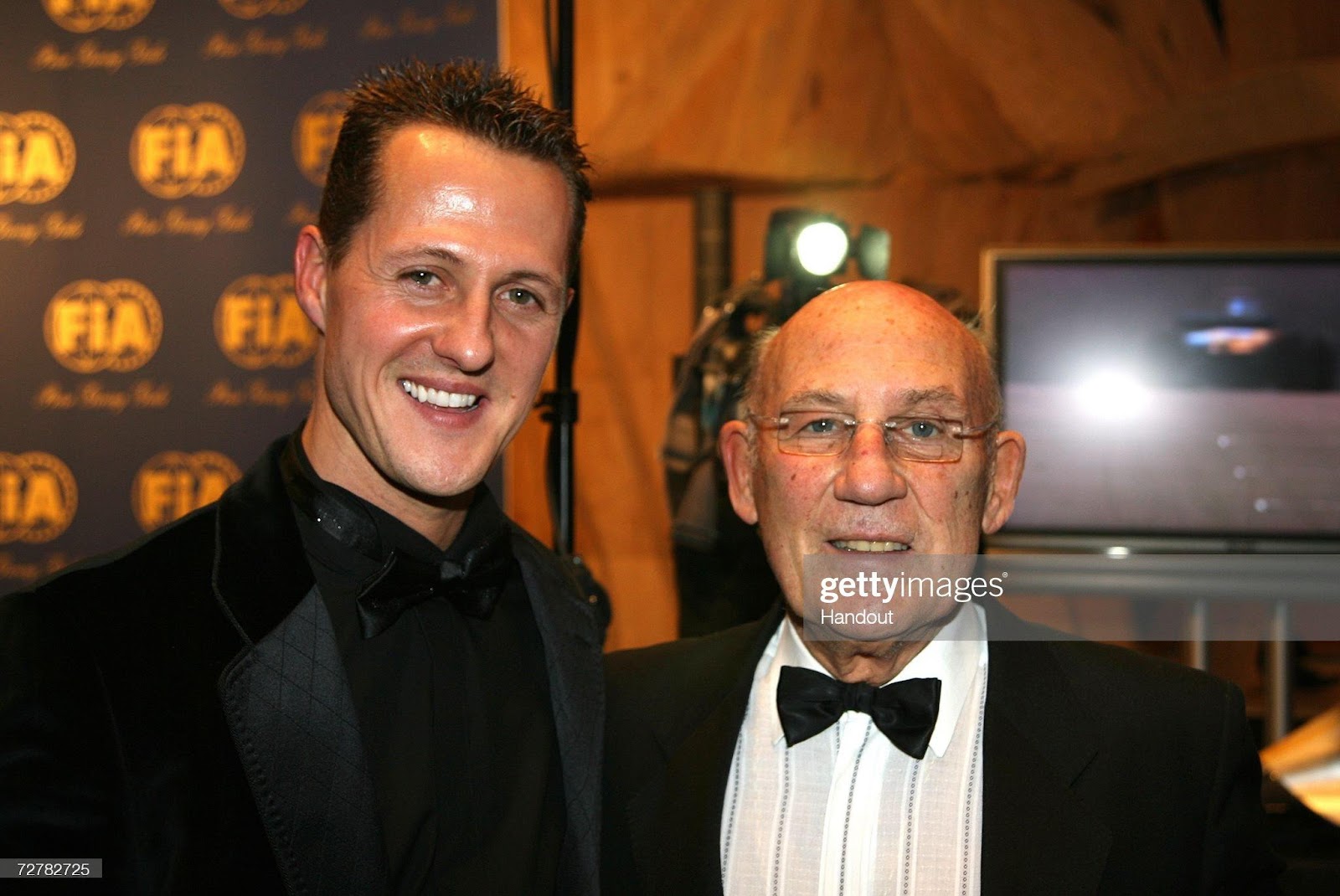
Michael Schumacher and Sir Stirling Moss attend the 2006 FIA Gala Prize Giving Ceremony held at the Salle des Etoiles Sporting Club on December 8, 2006 in Monte Carlo, Monaco. Photo by FIA via Getty Images.
"It was not a race. It was a demonstration of brilliance." Stirling Moss about Schumacher at the 1996 Spanish GP.
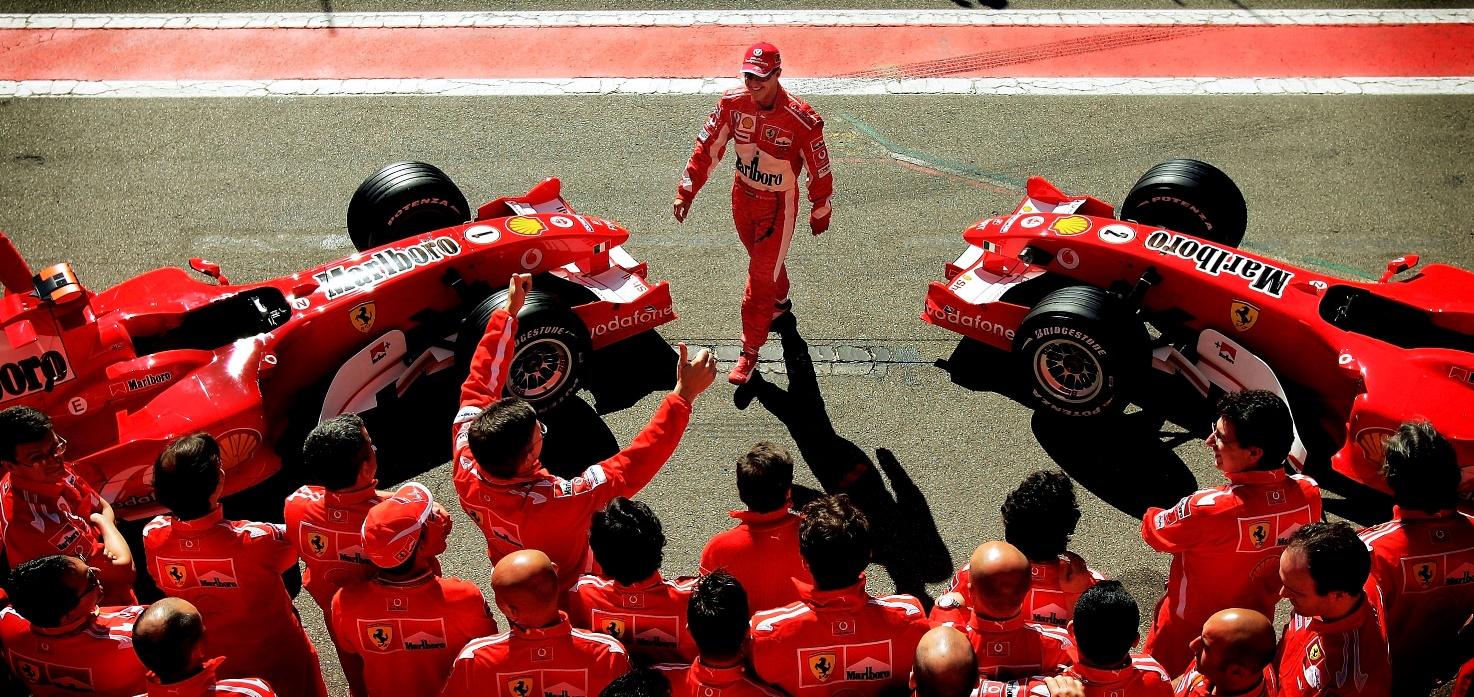
Getty Images.
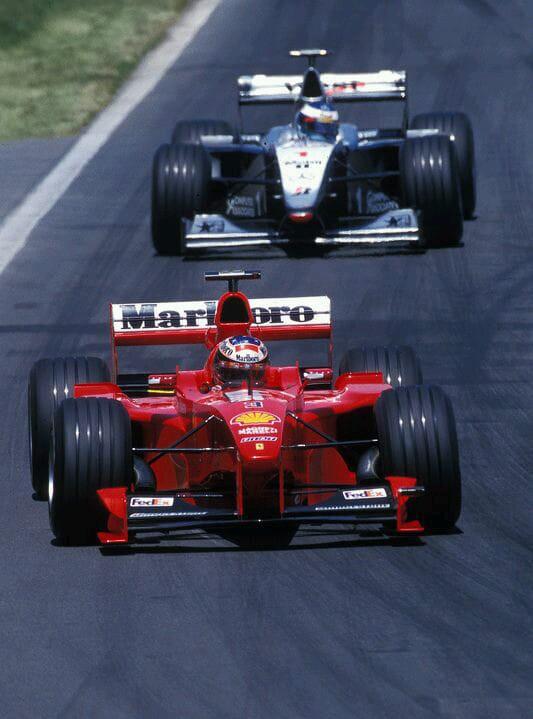
Michael Schumacher, Ferrari, ahead of Mika Hakkinen, McLaren.
"I have exceptional memories of my duels with Michael. It wasn't about improprieties or accidents on the track, but simply driving to the limits to determine who should win. I think that's the main reason why we have great respect for each other." Mika Hakkinen
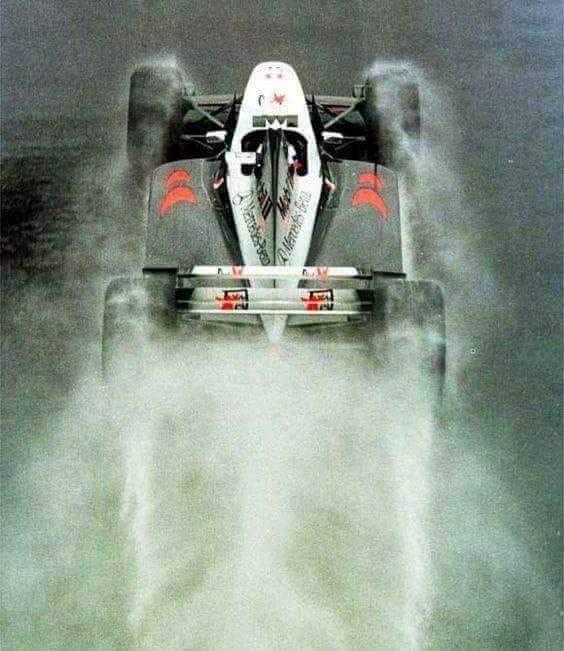
Mika Hakkinen, McLaren.
"We started competing against since 1984 so we knew everything about each other. From a very young age Michael was a very fast and talented driver.
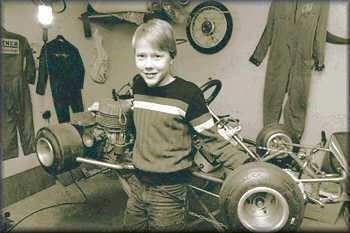
Mika Hakkinen.
I have so many memories of the battles we staged at all the circuits with him: from karts to Formula 3 to the challenges in Formula 1. He was very determined and only took to the track to win. He never gave up, regardless of the situation, he didn’t surrender and kept fighting right up to the finish line. He took his commitment and passion for his sport to a very high level: you don't become Formula 1 champion seven times by chance." Mika Hakkinen
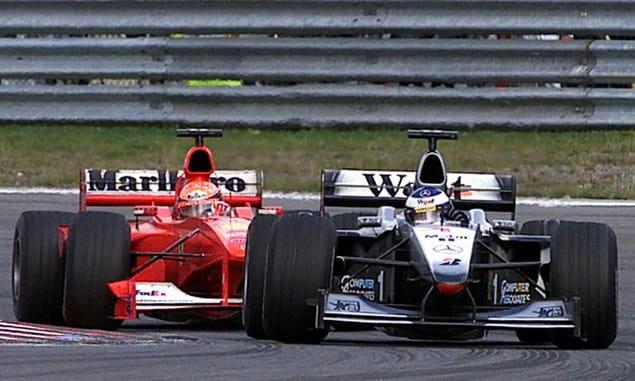
“If I look back on my career, I think Michael Schumacher and I have had more freedom to fight. Perhaps there weren't so many cameras that analyzed our behaviors. We would have had to suffer penalties of five seconds or worse if we had raced with today's rules." Mika Hakkinen
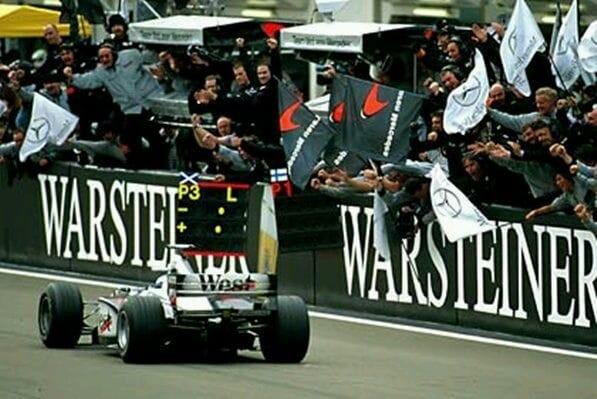
“Since I started in F1 in 1991, it has been a battle every year. We worked hard and finally we won the World Cup. " Suzuka 1998, Mika in the Olympus of the World Champions. Since that day he sits next to the greatest.
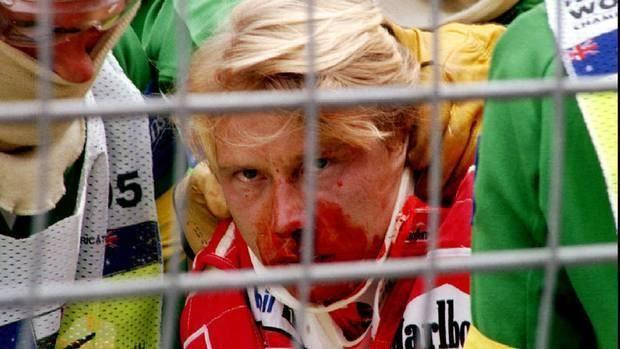
It's amazing Mika Hakkinen survived this crash at Adelaide in 1995.
Yes, because it was not easy to beat Michael Schumacher, the opponent par excellence but, above all, it was not easy to recover from the terrible accident in Adelaide that would have ended the career of any "normal" driver.
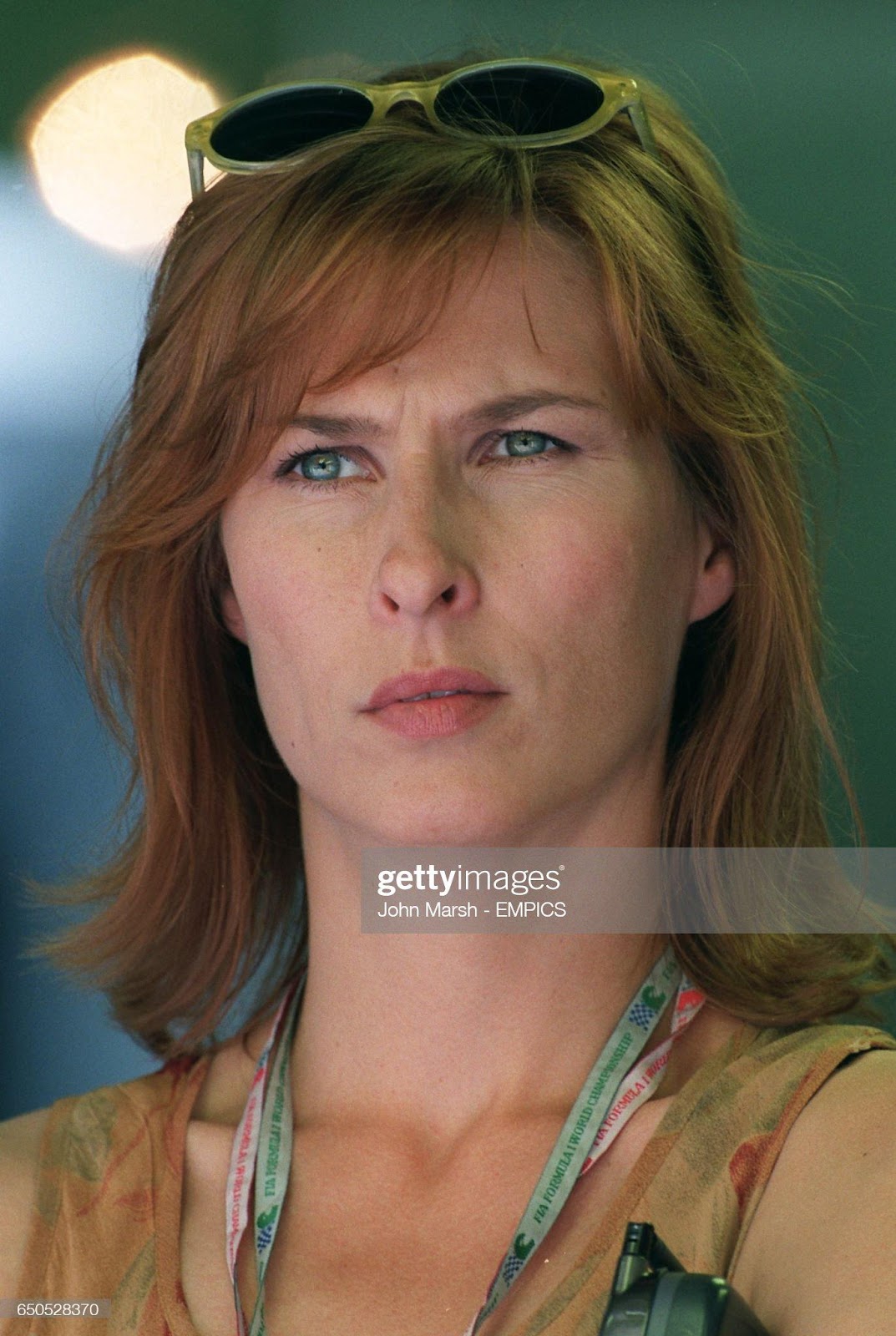
Mika Hakkinen's wife, Erja. Photo by John Marsh/Empics via Getty Images.
Instead Mika, supported by his wife Erja and by Ron Dennis who supports him like a son, gets up and becomes the flying Finn. On the return lap after the victory in Japan the mechanics will listen to him amused while he sings 'O sole mio', while Ferrari and Michael Schumacher will promise revenge but will have to wait a little longer and another Japan.
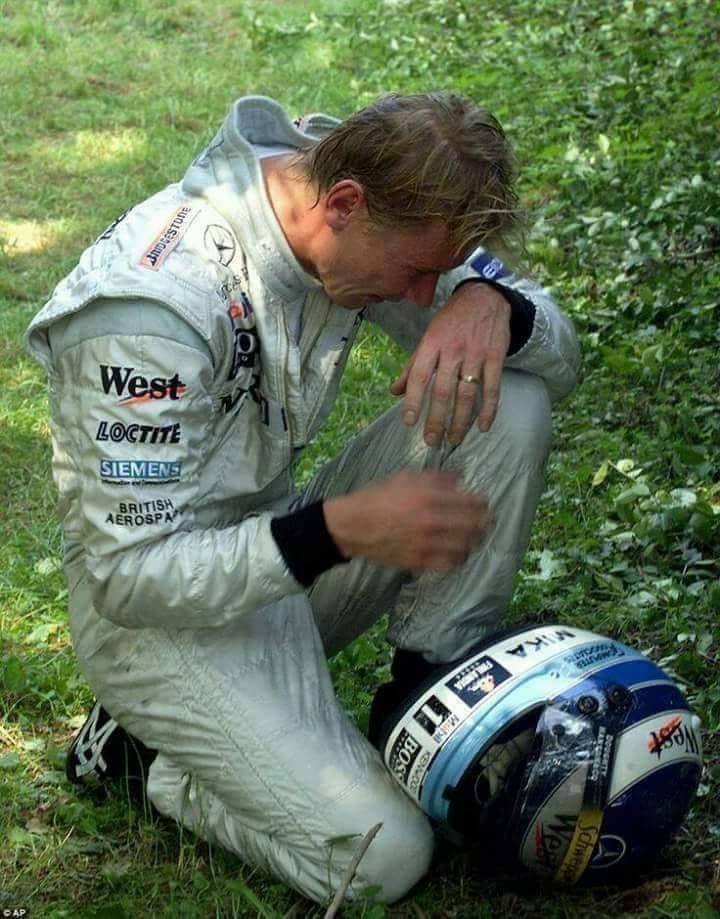
"I made a big mistake, I was pushing, pushing too much and I engaged first gear. I got it all wrong. I didn't hurt myself but I broke my nerves and then I was shaking with anger." Mika Hakkinen at Monza in 1999.
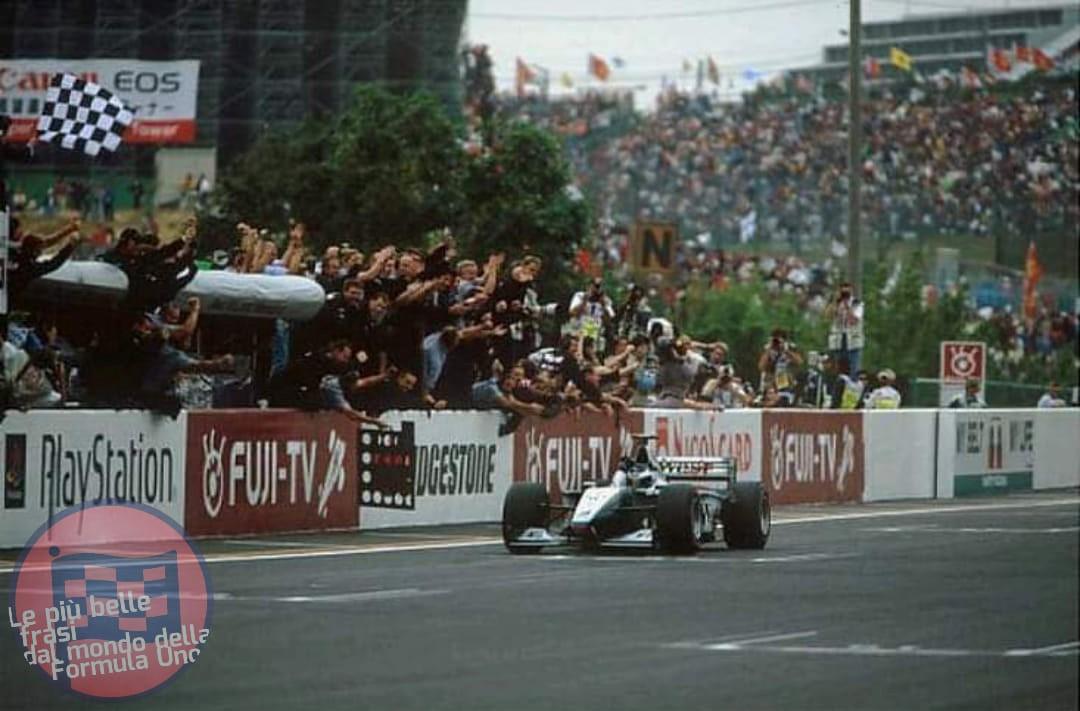
"I like to think that, even if Michael had competed in those six races, I would have won anyway. But the satisfaction was not the same." Mika Hakkinen on winning his second world title in 1999.
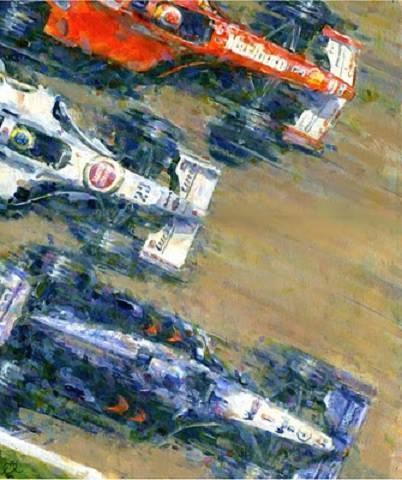
Mika Hakkinen at Spa in August 2000: an overtaking in history.
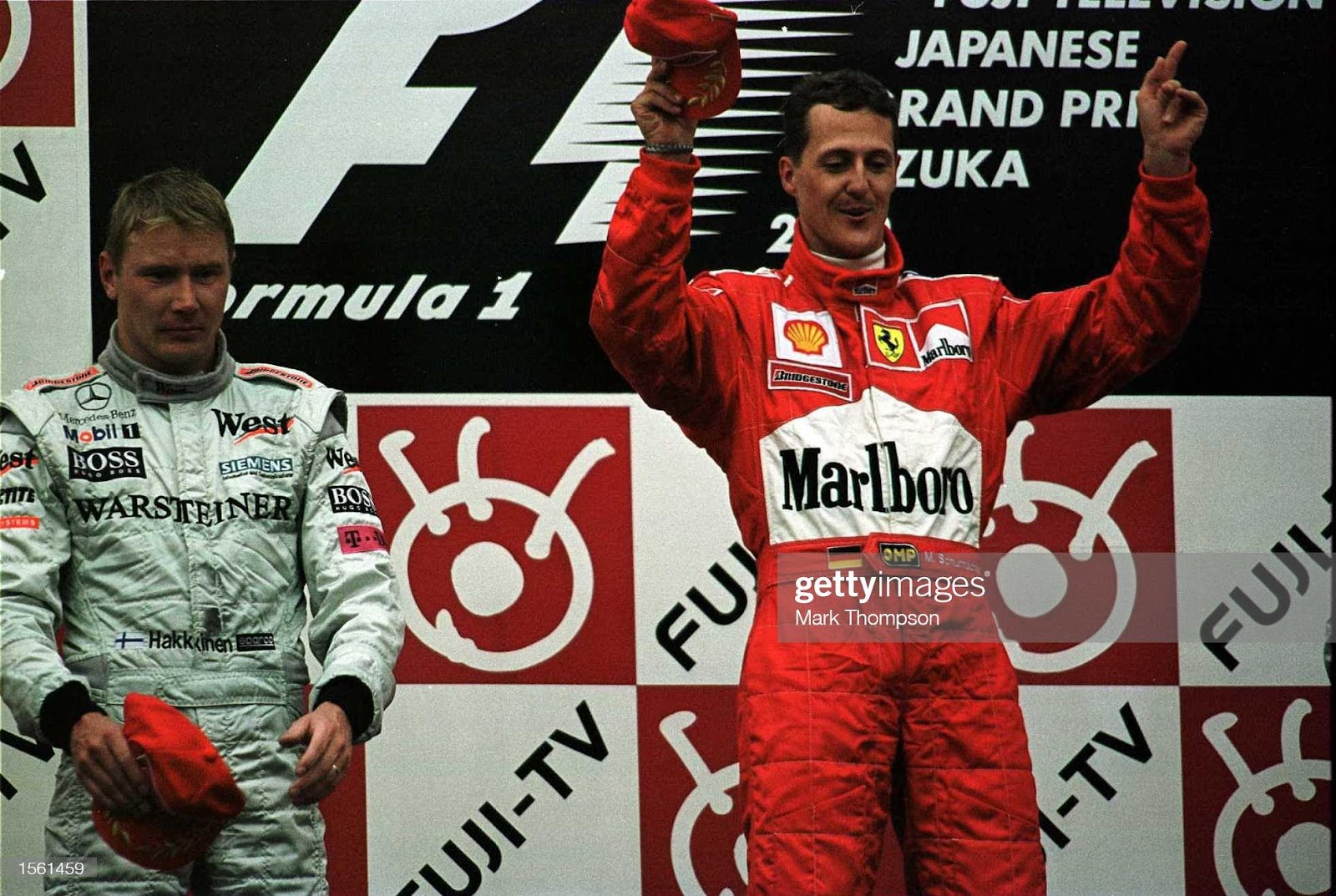
8 October 2000: Michael Schumacher, Ferrari, celebrates on the podium after winning the F1 world championship at the Japanese Grand Prix at Suzuka, Japan. Credit: Mark Thompson/Allsport.
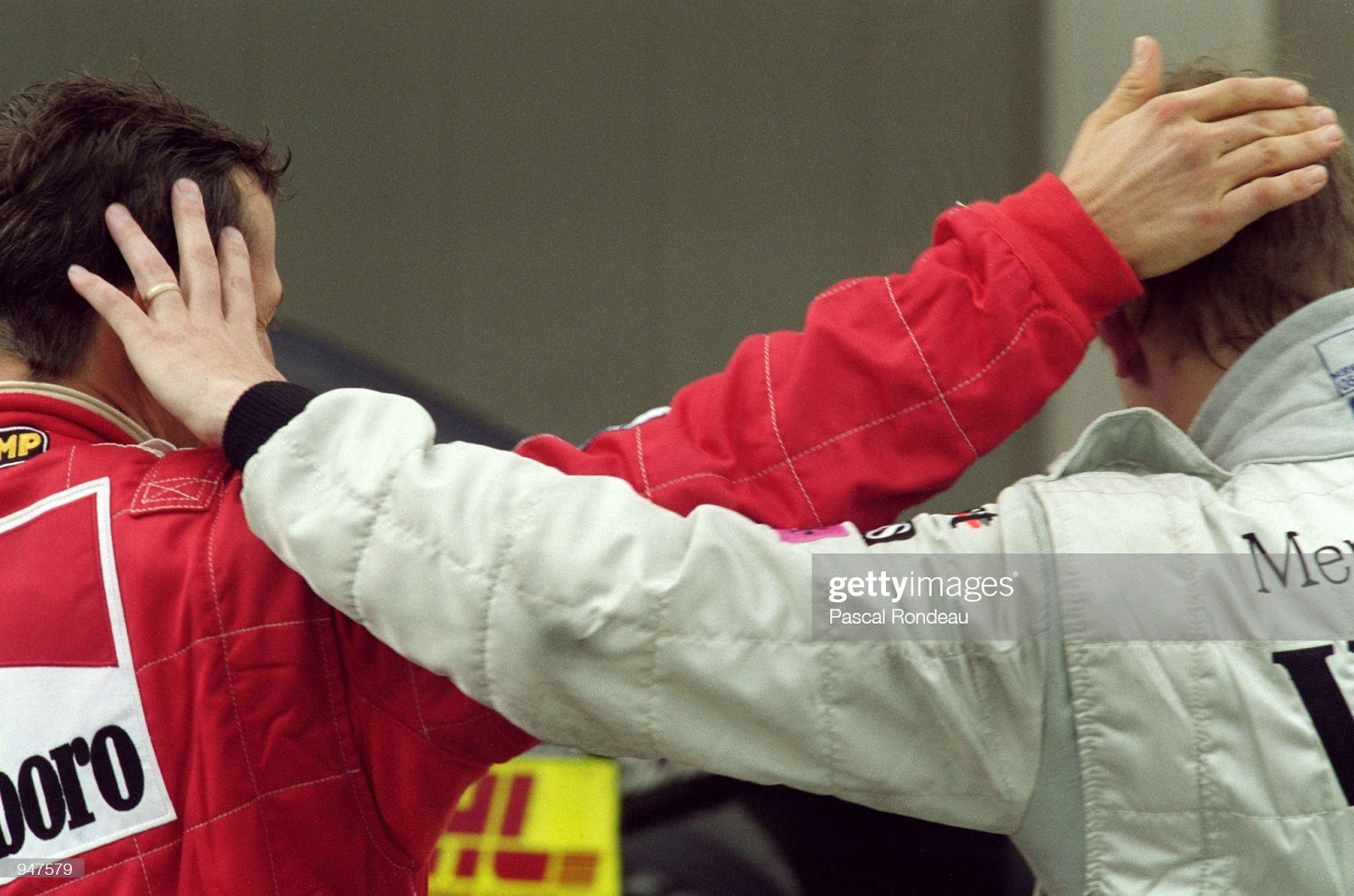
29 Apr 2001: Ferrari driver Michael Schumacher consoles McLaren Mercedes driver Mika Hakkinen after Mika breaks down on the final lap whilst leading the F1 Spanish Grand Prix at the Circuit de Catalunya in Barcelona, Spain. Schumacher won the race. Credit: Pascal Rondeau /Allsport.
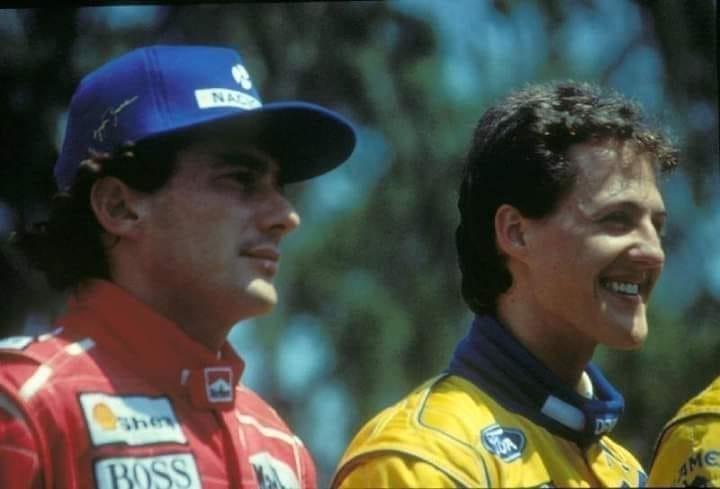
Ayrton Senna and Michael Schumacher.
"Michael is very good. He has an extraordinary natural speed. I respect and esteem him. I didn't like some of his attitudes and I told him to his face. I think he always wants to win, just like me. And that's okay. Temperamentally we are not alike. How do you Italians say? We don’t get along! But there is time, maybe one day we will become friends." Ayrton Senna, interviewed by Leo Turrini
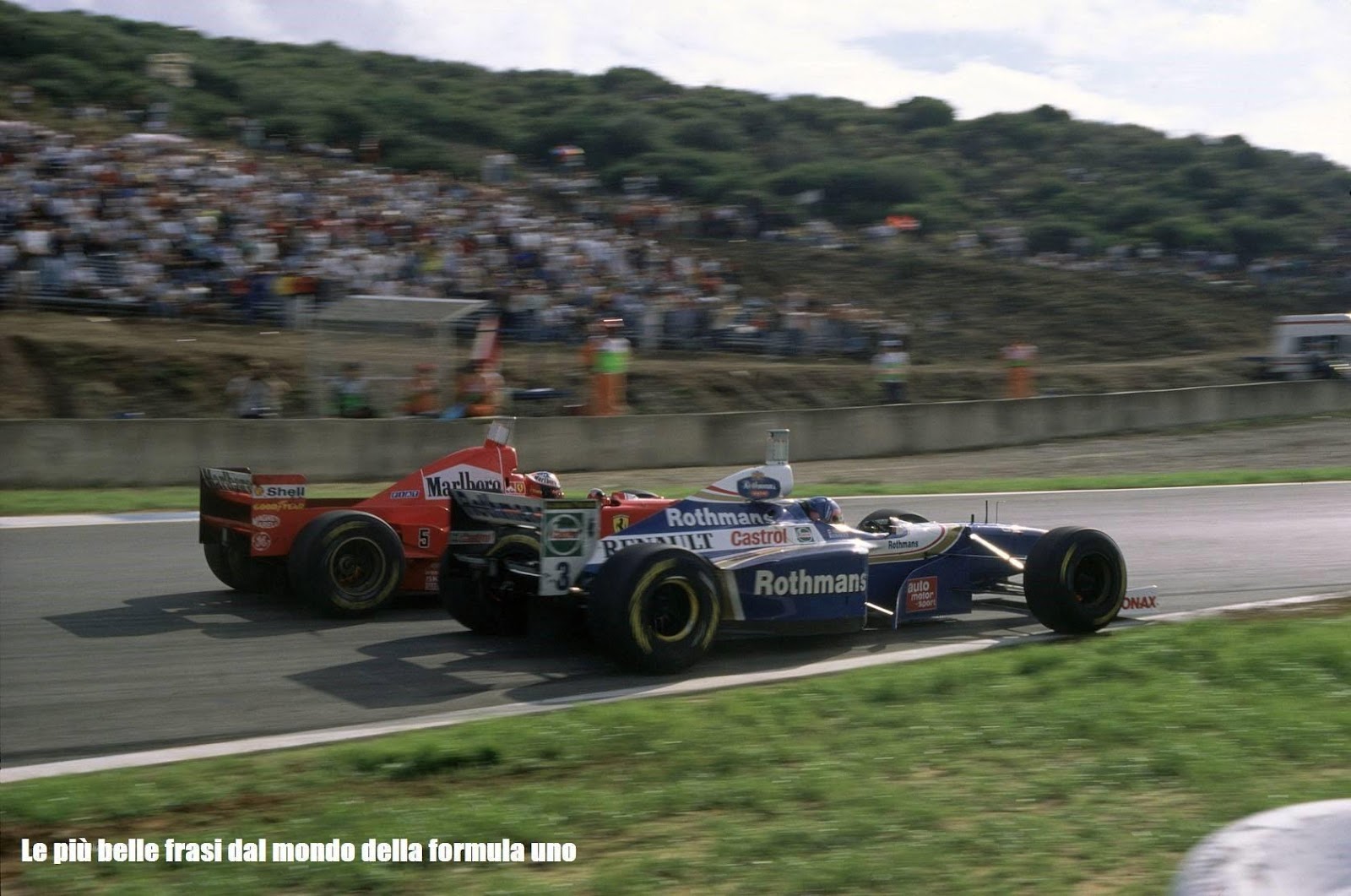
"Michael was convinced that the others could not overtake him, he felt the strongest. I had to act cunning: after the pit stop I had fresher tires than him because I had entered later. I knew that this would be the only moment to pass him. So I deceived him: I haven’t been too close to him for him not to get suspicious. I knew where I could attack him and I made the previous curve so fast that I risked going off the track. When I reached him he wasn’t expecting it. I passed." Jacques Villeneuve
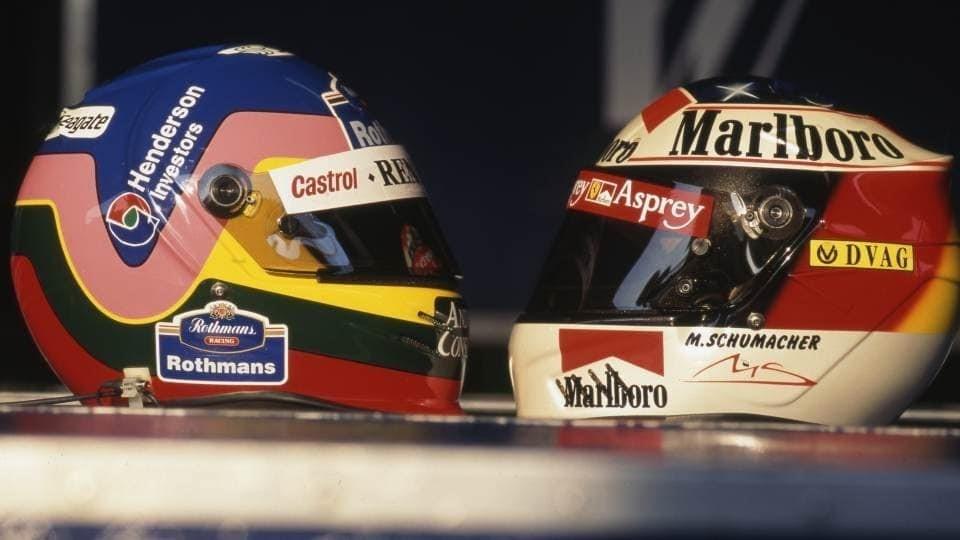
The helmets of Jacques Villeneuve and Michael Schumacher.
"As in school, there is always someone with whom you will never get along. It was a fight between wolves, he was the strongest wolf. Beating him gave my title a lot of value." Jacques Villeneuve
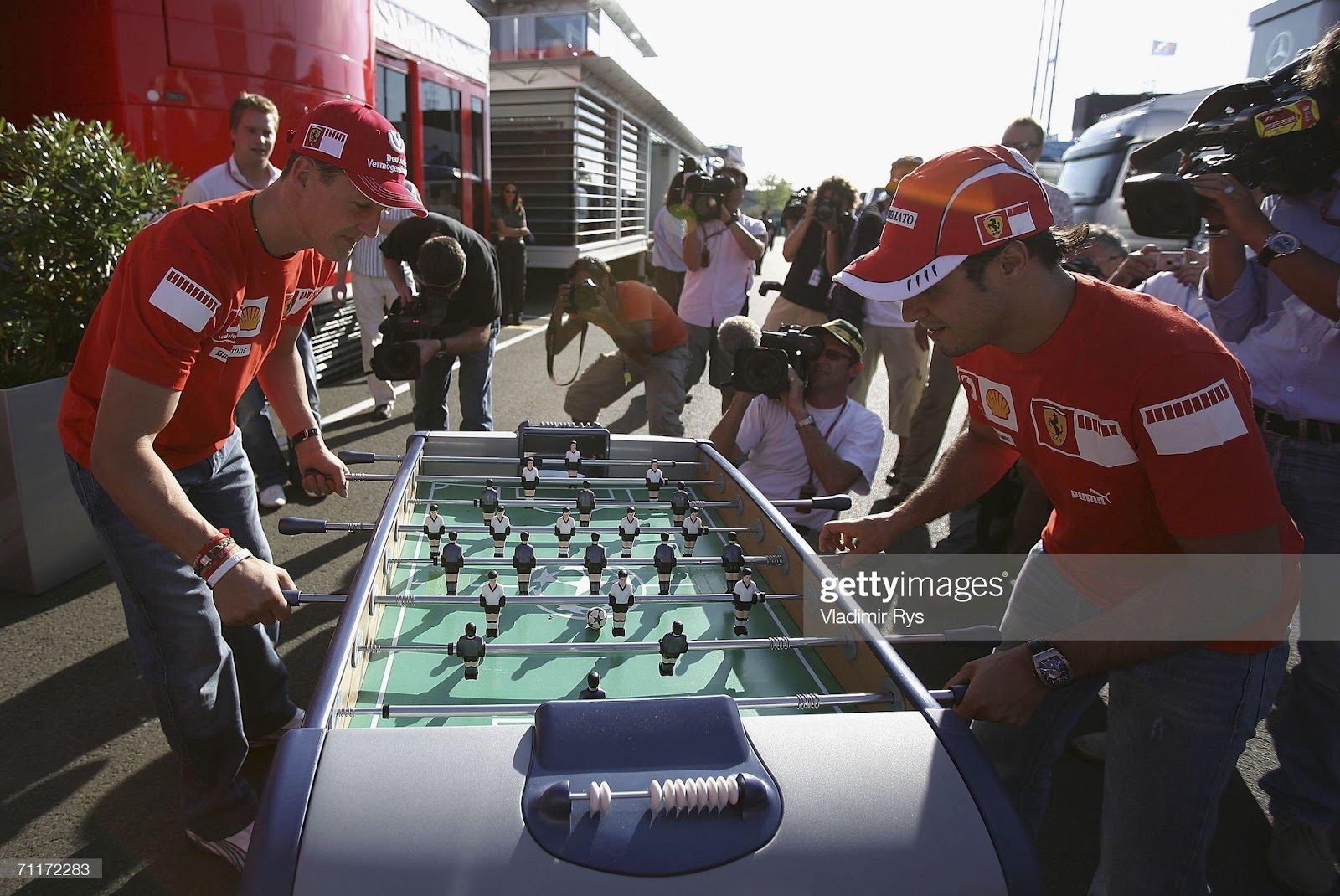
Michael Schumacher (left) and his Ferrari team mate Felipe Massa play a table football in the paddock after the qualifying for the F1 British Grand Prix at Silverstone on June 10, 2006. Photo by Vladimir Rys/Bongarts/Getty Images.
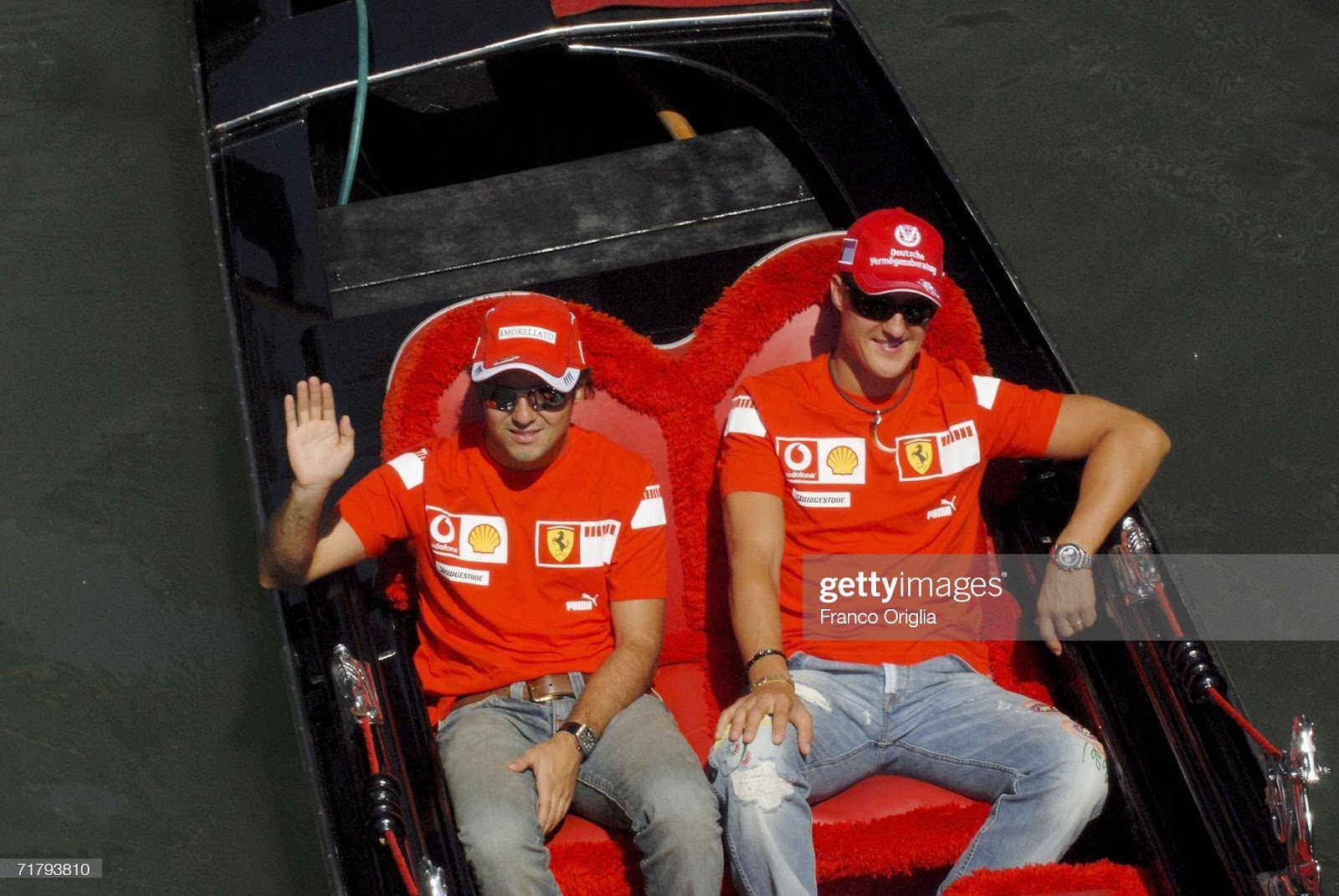
Michael Schumacher and his teammate Felipe Massa arrive in a gondola to launch the Ferrari store in Venice on September 6, 2006. Photo by Franco Origlia/Getty Images.
"My teammates in Ferrari? Michael Schumacher always saw the glass as half empty and this pushed the team to pursue perfection.
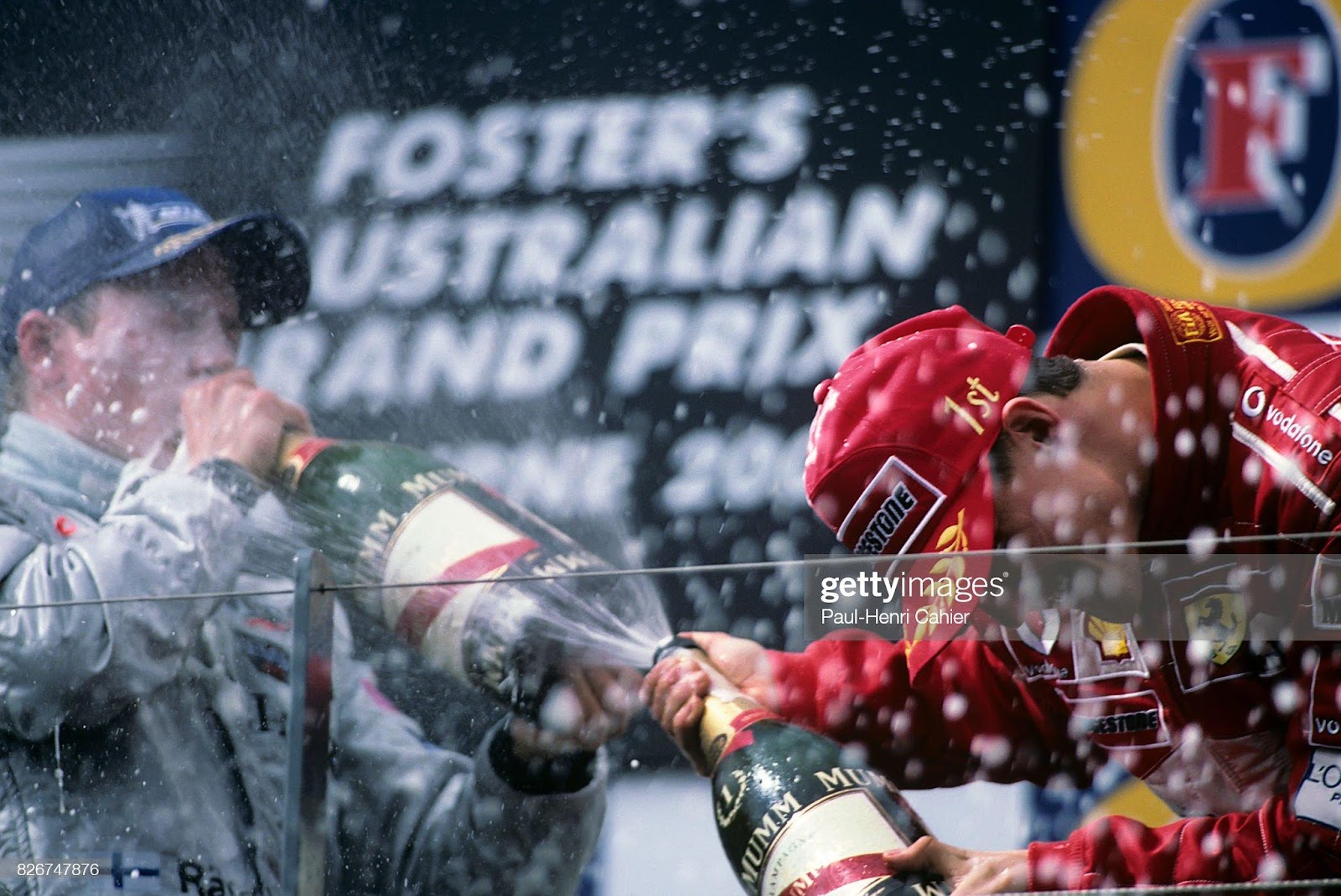
Kimi Raikkonen and Michael Schumacher, Grand Prix of Australia, Melbourne Grand Prix Circuit, Albert Park, 03 March 2002. Photo by Paul-Henri Cahier/Getty Images.
About Kimi Raikkonen it was even difficult to understand what he thought about, he spoke little with those who worked with him, sometimes he even forgot to say hello, but on the track he always provided excellent analysis. Fernando Alonso was direct, if there was something he did not like, he did everything to make it change. When the visor lowered he became someone else, he tended to divide the team a little, he closed himself with his men and tried to bring the team to his side." Felipe Massa
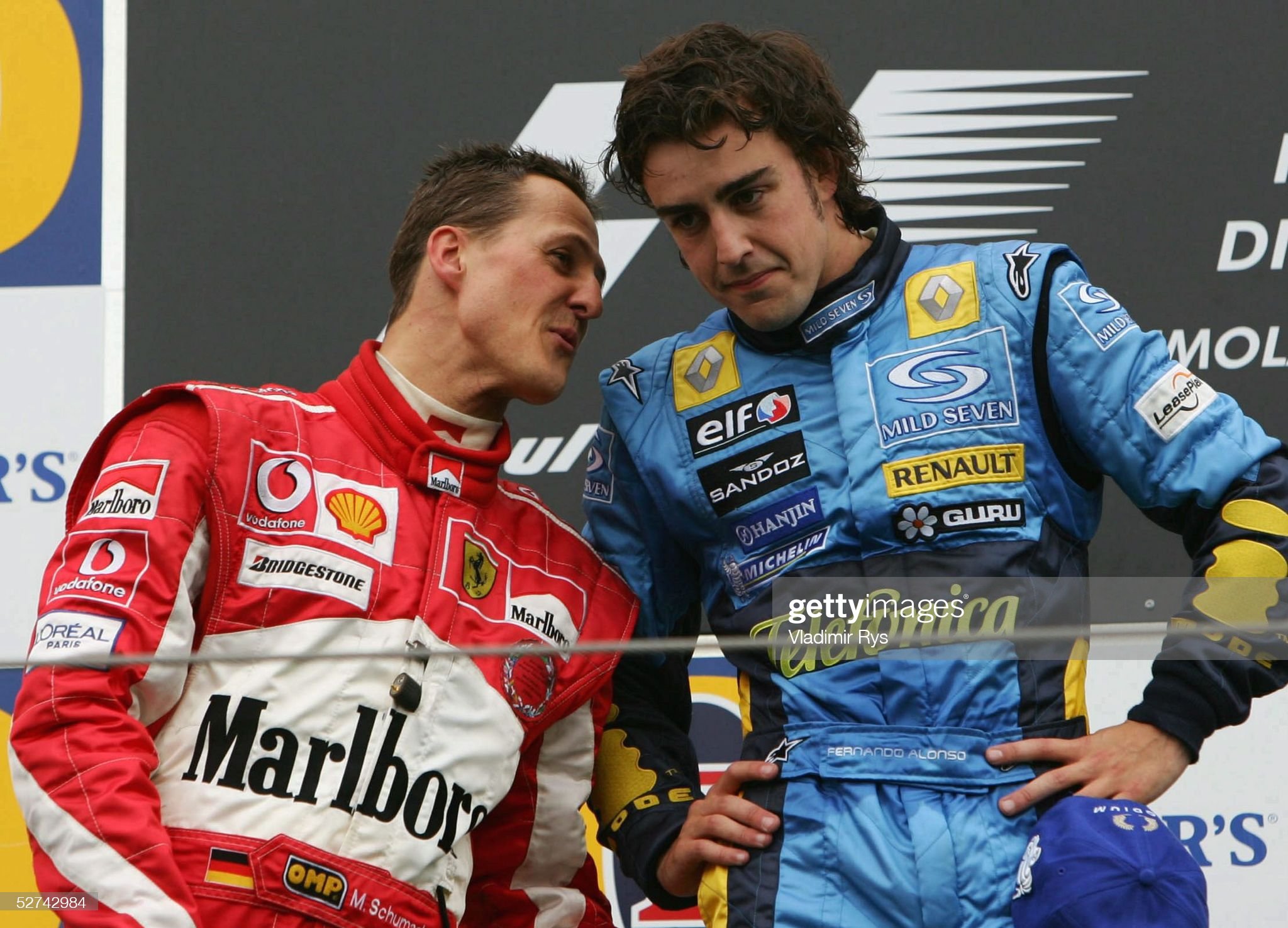
Fernando Alonso of Spain and Renault and Michael Schumacher of Ferrari and Germany speak on the podium after Alonso's victory in the San Marino F1 Grand Prix on April 24, 2005 in Imola, Italy. Photo by Vladimir Rys / Bongarts / Getty Images.
"There is no domination if there is not a winning car. When you conquer a series of world titles it means that you have a decisive technical superiority. It happened to Hamilton, it happened to Vettel who triumphed with Red Bull and then couldn't win anymore. The same thing happened to me with Renault in 2005 and 2006. I drove a Renault faster than Ferrari and he was always there, fighting, attacking. He could do amazing things. I was convinced that I had distanced him: not at all. I'm talking about a legend. We can argue that Barrichello was his partner as well as Bottas is Hamilton's partner. But legends are also built in this way and it is right that they are remembered as such. Michael was the man who motivated us and he was the man we went to see when we were go-kart drivers." Fernando Alonso
“Throughout my career and in different categories, my rivals have had some bad days and those were the days when you had to capitalize and get more points than them but with Michael Schumacher this has never happened.” Fernando Alonso
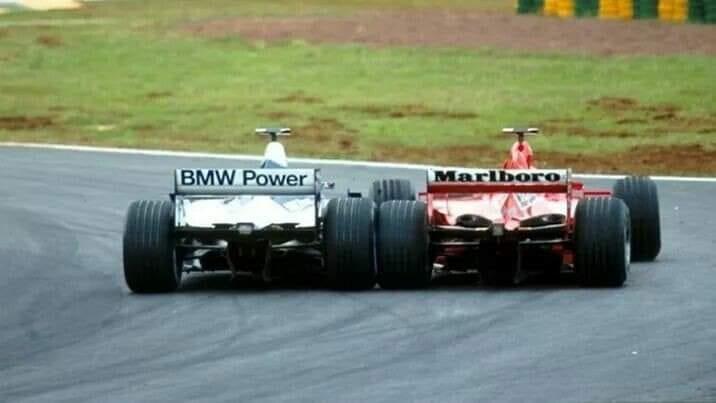
"Interlagos, 2001. The rookie Juan Pablo Montoya unleashes a memorable attack on the one who is considered the leader of the pack of the moment: Michael Schumacher. The pack leaders do not like changes, let alone unexpected ones and, in this very moment, a very personal idiosyncrasy begins for Schumacher towards the Colombian that, over the years, will bring them into very close contacts. The success of this extraordinary maneuver by the new Williams driver caused such a sensation as to deceive Montoya himself, who sought in this personal conflict the essence of his challenge in F1, losing sight of a more complete understanding of what is necessary to fully assert yourself in the ruthless system of the premier category. It is a convoluted system, because this category is always looking for a new challenger to break into the scene to kill the pack leader, almost as if it were a necessary popular form; but then, if the challenger does not hold up the role, the sentence to transience is almost certain. Perhaps that affront by JPM that afternoon in Sao Paulo fully represented his entire career in F1: a great vein swollen of improvisation and courage, without, however, an evident design that would transform all that talent into a strong and coherent discipline, necessary in the races of the new millennium. For this reason, the success in the circus was a too distant hypothesis for him, especially when he sought the clash against the granitic and Germanic talented discipline of Schumacher, who would never have conceived of being systematically beaten by an improviser who dedicated to this sport only a drop of his proverbial commitment. What remains of that unequal rivalry is a beautiful affront, cheeky and shouted at everyone in front of the paddock and never such a delayed braking has seemed of such arrogant beauty .... even if, in the end, the masters always win." Max Gagliano
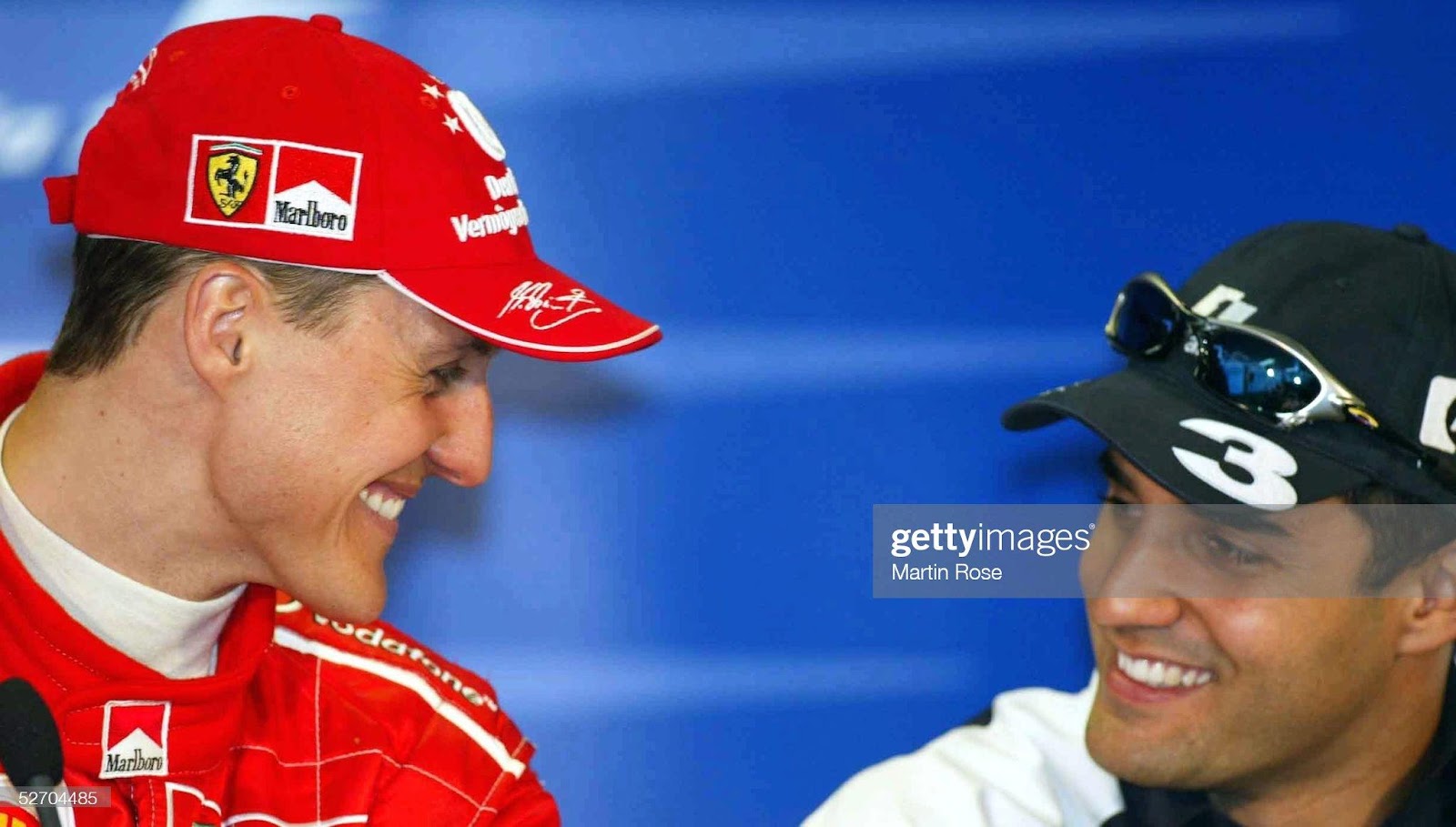
Michael Schumacher and Juan Pablo Montoya at the 2003 Australian Grand Prix in Melbourne on March 08, 2003. Photo by Martin Rose/Bongarts/Getty Images.
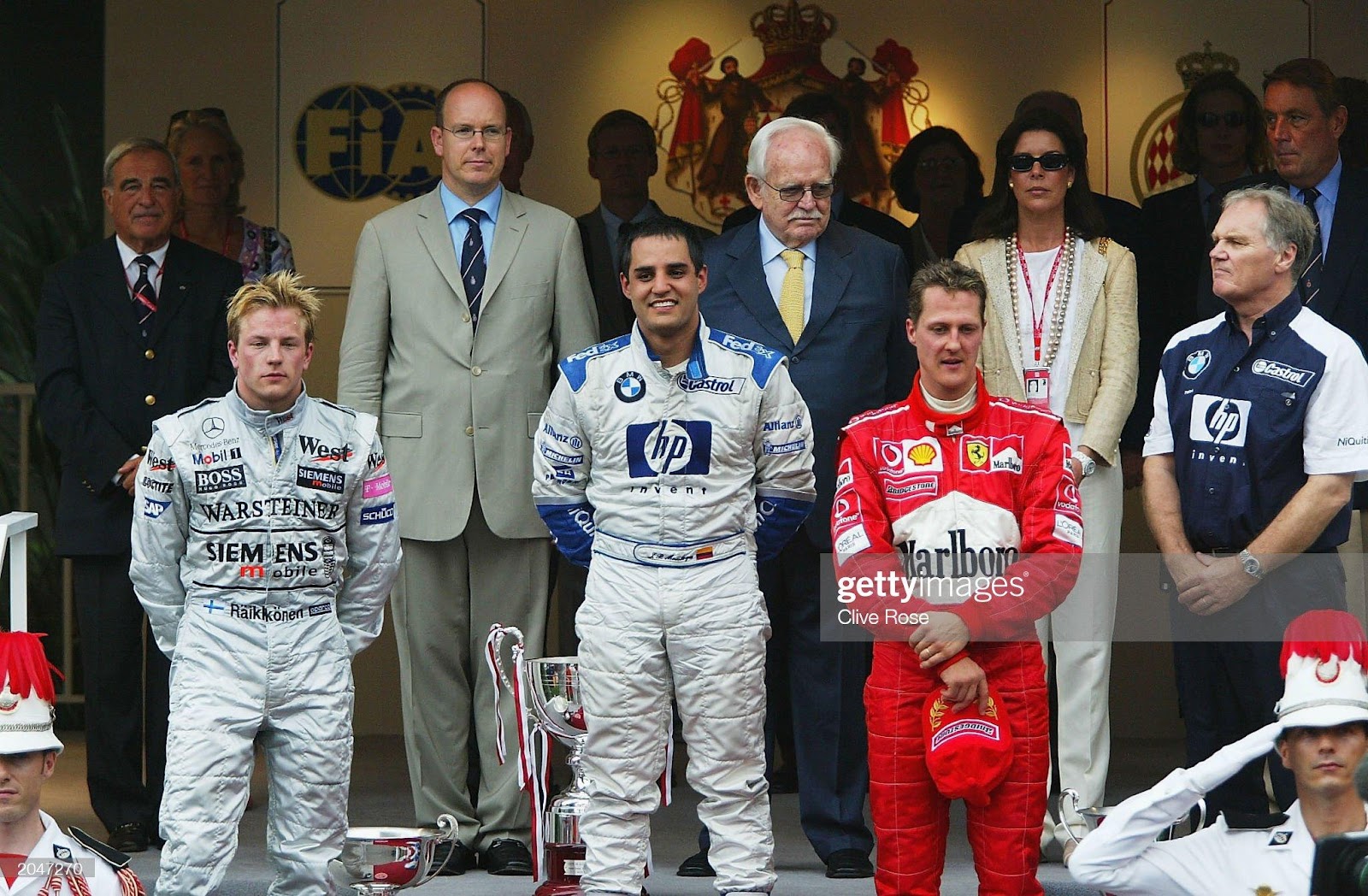
Kimi Raikkonen of Finland and McLaren, Juan Pablo Montoya of Colombia and Williams and Michael Schumacher of Germany and Ferrari after the F1 Monaco Grand Prix on June 1, 2003 in Monte Carlo, Monaco. Photo by Clive Rose/Getty Images.
"Michael was the driver that more than any other I wanted to beat, if I could give him a disappointment I felt good. For everyone he was considered as something unattainable, there was a kind of awe towards him. I respected him too, but I didn't fear him." Juan Pablo Montoya
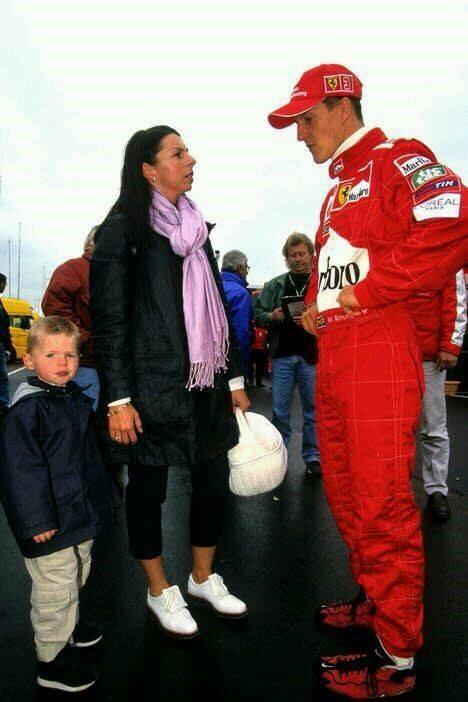
Max Verstappen, his mother and Michael Schumacher.
“I remember very little about him, we went on vacation together when I was 4 or 5 years old. I was only a child, so I was playing with his son Mick who is a little younger than me. The whole thing was very relaxed and playful, I didn't think of him as the great Schumacher. On the track he did everything to win, if he needed it he also threw someone off the track. This is the mentality of a winner." Max Verstappen
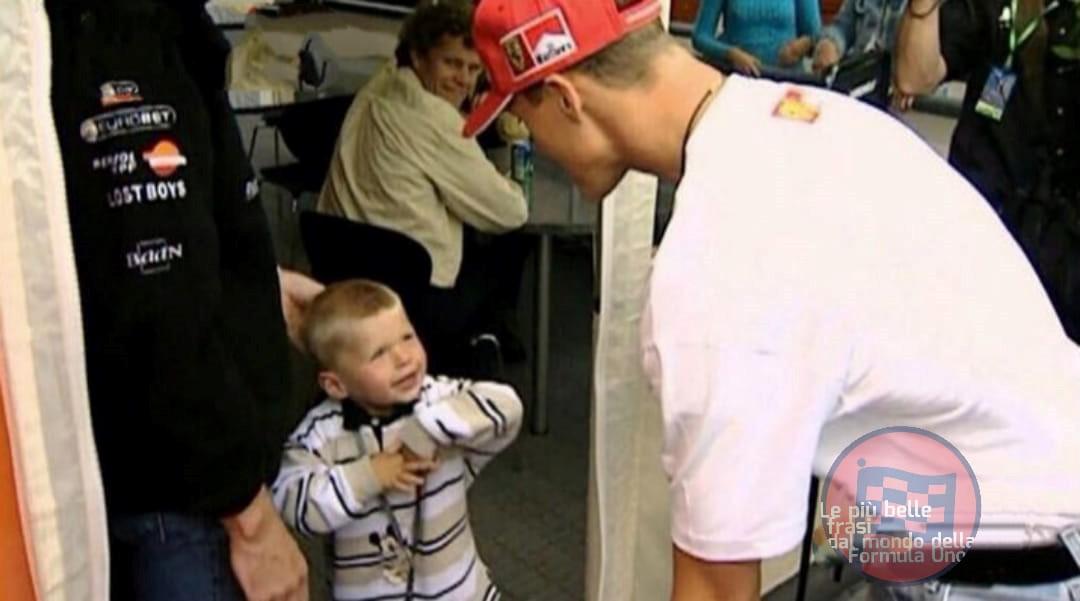
Max and Michael.
"I was three or four years old at the time. I never saw him as a man breaking records in F1, because I was not aware of it. All I knew was that he was to me Uncle Michael, that was very nice and he was a really great family man. You see that in the old photos and videos we have at home. Mick or Gina were always there. It was great. I still have fond memories of those weekends today. I have no idea how we used to talk to each other. But three or four year olds never have a problem communicating, even if they don't speak the same language. Kart challenges? Nobody won, we just wanted to have fun. They were two seater ones. Michael with Mick or Gina, my father with me. And, when things got too dangerous, they quickly regained control.” Max Verstappen
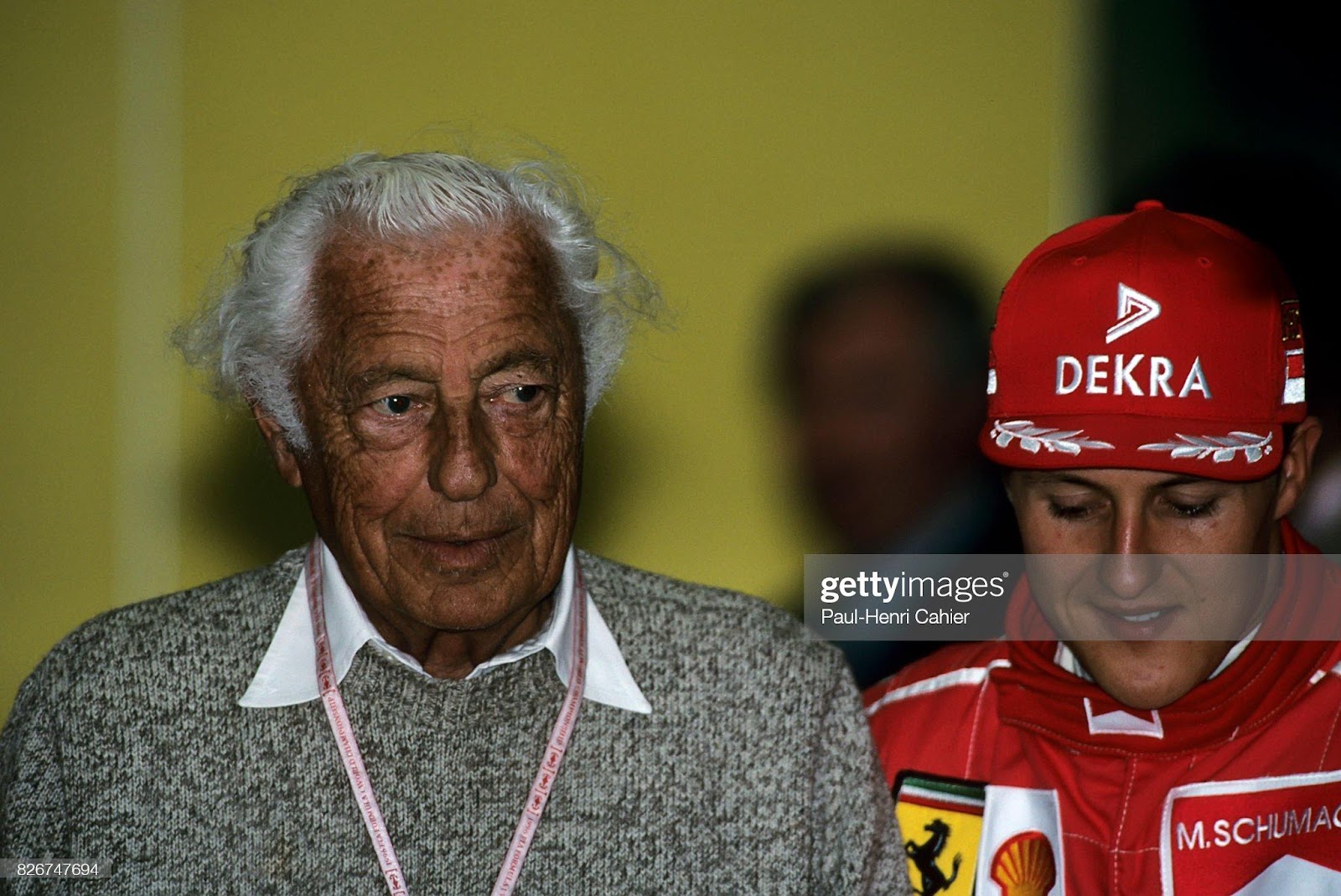
Gianni Agnelli and Michael Schumacher, Grand Prix of Great Britain, Silverstone, 14 July 1996. Photo by Paul-Henri Cahier/Getty Images.
"This German is very dear to me, in the sense that he costs me a lot, but it is worth it. If I had to compare him to a painter I would choose a contemporary artist like Andy Warhol." Gianni Agnelli
"He used to come to my house in the summer with his little son Mick and lovingly covered him with a mosquito net. Michael was always ahead. It was he who introduced me to Dubai twenty years ago. He did the winter preparation there. Outside the races, Schumi was not such a strong man, he needed psychological support, the accident with Villeneuve made him suffer a lot.
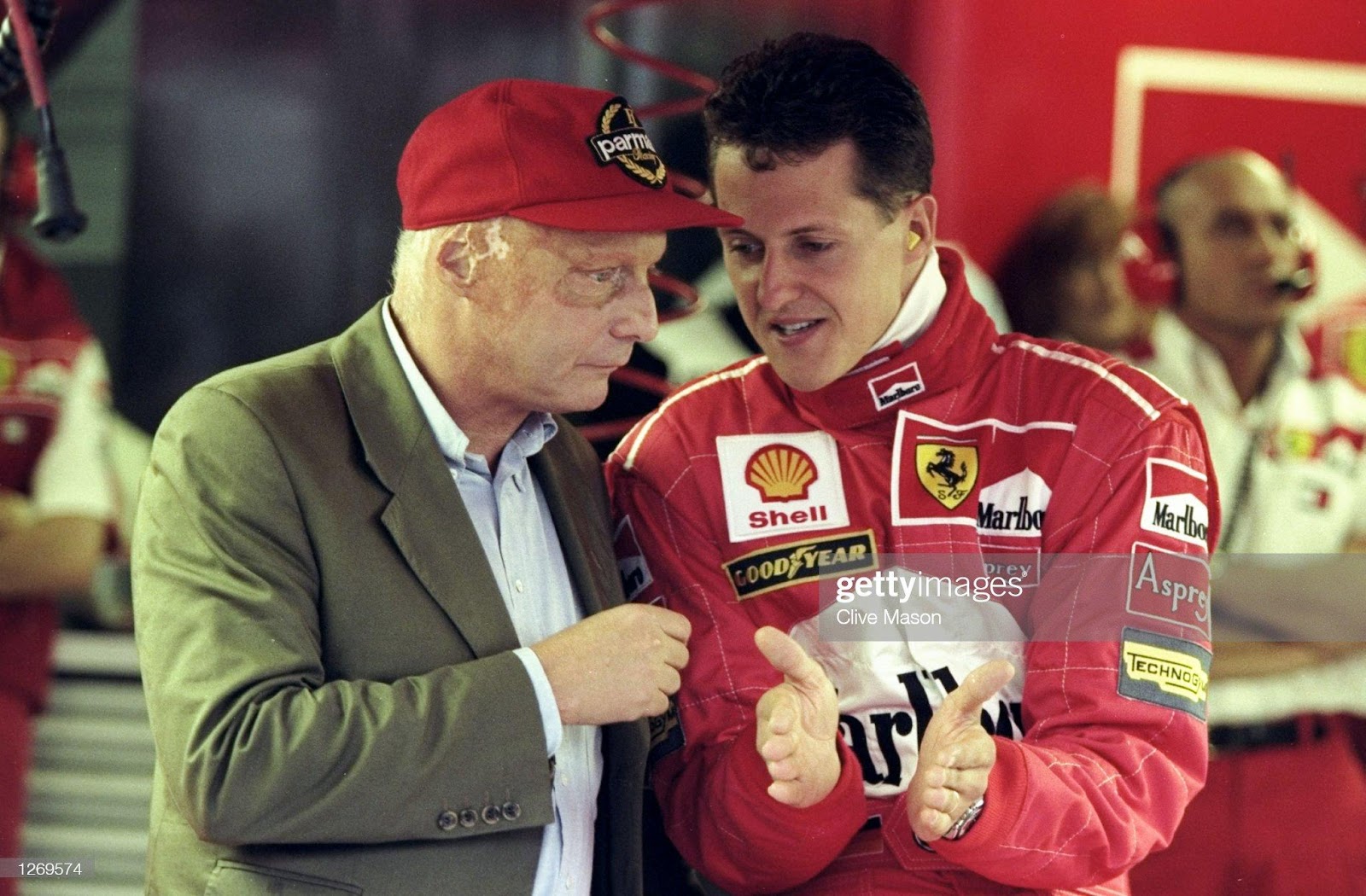
12 Sep 1998: Niki Lauda and Michael Schumacher during qualifying for the Italian Grand Prix at Monza, Italy. Credit: Clive Mason /Allsport.
The great attention to details made him unique, like Niki Lauda. He was a real team man. Whether he won or lost it was always a 'we', never an 'I'." Luca Cordero di Montezemolo
“A driver has two ways ahead of him when he is faced with a difficult car. He can become unmotivated, his performances drop and it doesn't help either him or the team. On the contrary, he can react, dig even deeper and create extra performance, which gives the team confidence when things don't go well. Often with Michael we won races only thanks to him because the car was not up to par but he still managed it." Ross Brawn

13 March 2000, Brazilian Grand Prix in Sao Paulo. Michael Schumacher with Rubens Barrichello and girls. Photo by Marcus Brandt / Bongarts / Getty Images.
"In 2000, three races before the end of the championship, Montezemolo asked me: 'engineer, you who are a wise person, tell me really where we are.' I replied to the president that we would win at least two out of three races." Luigi Mazzola. And they were three out of three ...
"Michael Schumacher paid his mechanics out of his own pocket. It wasn't much but, when he got a good result, he gave us a little bonus. I was working on his car at the time and it was very positive for all of us. You can also talk to people who were responsible for other things at the time, whether it's PR or press or marketing. He thought of everyone." Alan Permane, Renault sporting director
"Michael will always be above us and above Formula 1. For a decade he has made his mark as the most complete racing driver that motorsport has ever seen. No one will ever be greater than Schumi. Even if the statistics see Lewis in the lead. But Michael has shaped a generation like no other, he's iconic. You cannot make comparisons between generations. Lewis is the best of his era." Toto Wolff
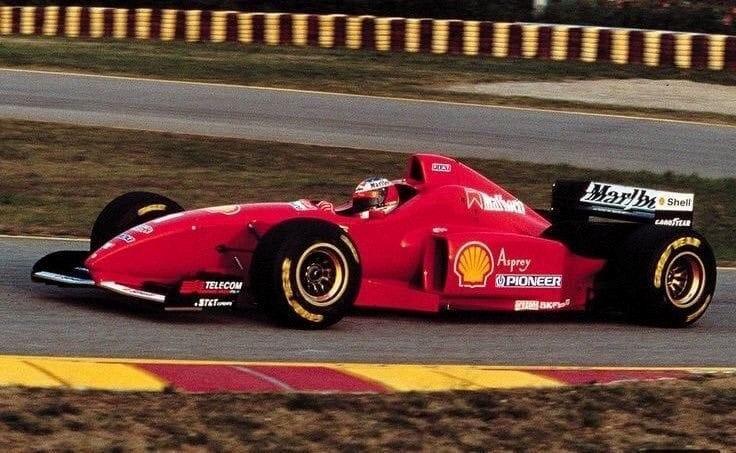
"When Fiorano was built, Ferrari was the first ever team to have a private track to test the Formula one single-seaters. It was conceived over a length of three thousand meters and more but, in all these years, it has undergone only one substantial modification, in 1996: a young German champion, named Michael Schumacher, convinced Montezemolo and Todt to modify the first corner, transforming it from very slow (almost a hairpin) to fast. The Fiorano curves were designed as replicas of some famous ones in various tracks of the world championship; the track had to be a demanding test bed for the car, in order to prepare it for the difficulties of the championship. But it wasn't enough for that German boy: he convinced mechanics, foreman and president that a faster corner was needed; he made it clear where the 1996 F310 was too lacking (indeed, heavily deficient), he explained where they had to work to get the Ferrari where it deserved to be. The whole team listened to him, without doubting." Vincenzo Borgomeo
Tommaso Lorenzini for “Libero quotidiano”. 26.03.2021.
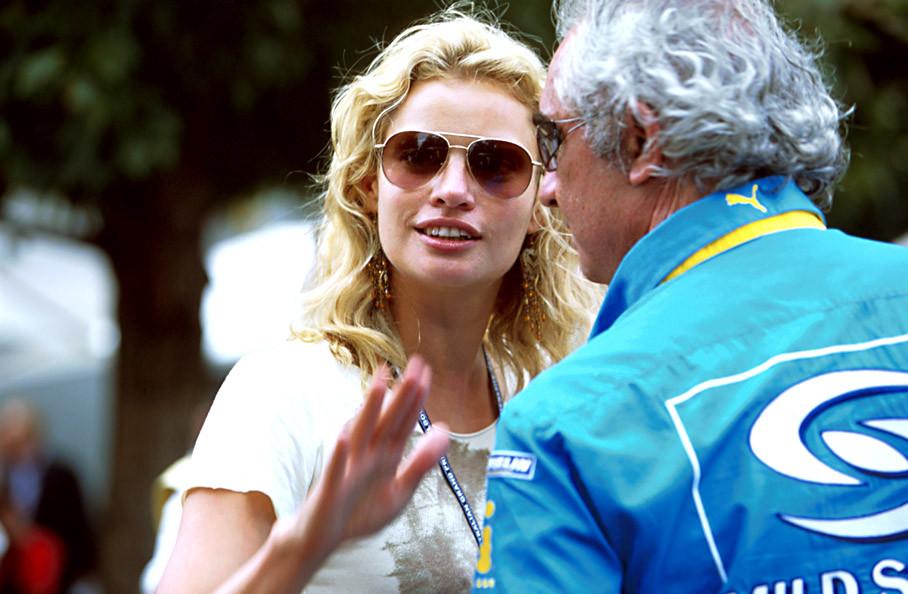
Flavio Briatore with a woman. Photo by Rainer Schlegelmilch.
«In our times, a driver was maturing at about 28/30 years of age, I'm talking about Senna, Prost, Mansell.
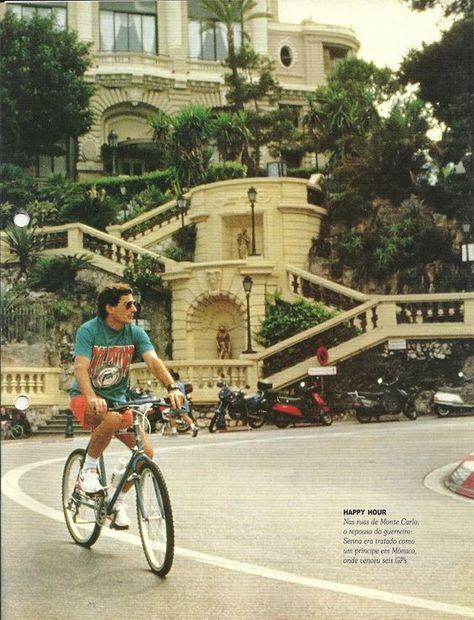
Ayrton Senna in Monaco.
I brought the first young man who overturned everything and he was Michael Schumacher. He was 22 when I put him in a Benetton, he changed the way of being F1 drivers. He did four hours of work out a day, while the others limited themselves to exercises on the beach and a little jog. Michael forced the others to be on par with him, to be athletes. The reasoning was simple: the fitter you are, the more lucid you are and the fewer mistakes you make. One day after the San Paolo GP Senna almost collapsed and Mansell passed out twice after a race. Michael ended up without a drop of sweat.'
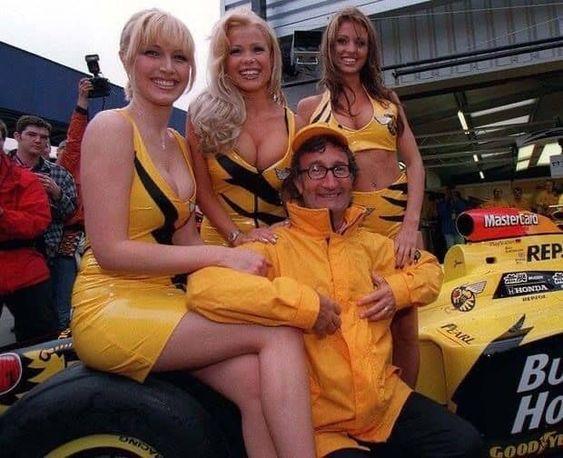
Eddie Jordan and …. friends.
It's been 30 years since you snatched him from Eddie Jordan.
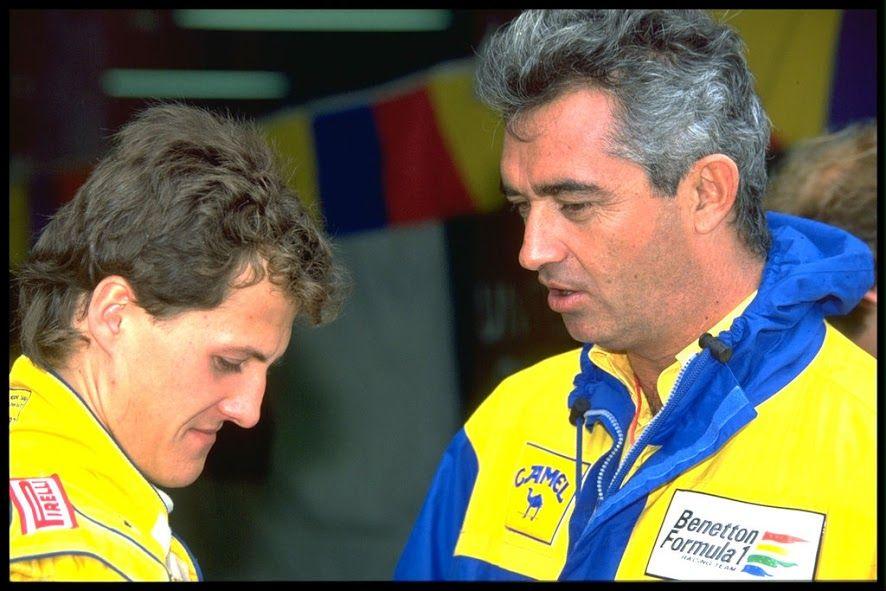
Michael Schumacher with Benetton Ford team boss Flavio Briatore in 1991.
«Yes, it was April 1991. No" big "would come to Benetton team, we were a T-shirt company. So, having no money, you needed a driver to grow. It happens that Gachot in England attacks a taxi driver and ends up in jail, Jordan replaces him for the Belgian GP with Schumi, that I had already spotted. Michael had lied to Jordan, saying he knew Spa very well. But he had only seen it on TV».
And...?
«On Saturday he is seventh in qualifying. I immediately call his manager, Willi Weber, "I'll see you on Monday", because I knew that Michael's contract with Jordan was subordinated to a sponsor that wouldn't have payed.'
The day after, in the race, Schumi had a mechanical failure on the first lap.
«I didn't even notice it. The very name "Michael Schumacher" is the one of a predestined champion, I felt it. Luciano Benetton was in Japan and knew nothing, he read in the newspapers that my garages in Monza had been seized after I fired Roberto Moreno to make room for Michael and called me: "but all this mess for what? This Schumacher is a relative of the goalkeeper of the Germany national team. He will win the world championship, I told him. And he laughed: "go ahead".
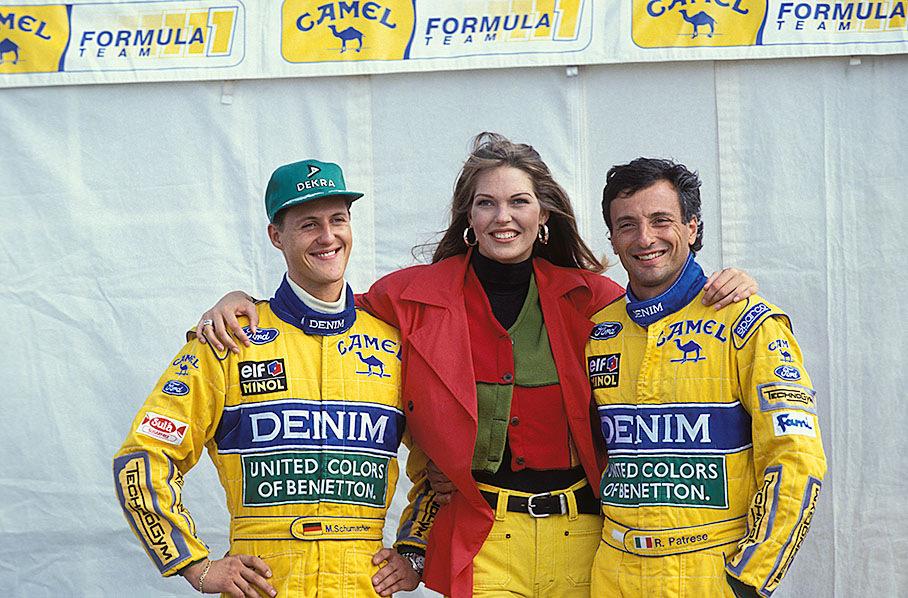
Michael Schumacher and Riccardo Patrese. Photo by Rainer Schlegelmilch.
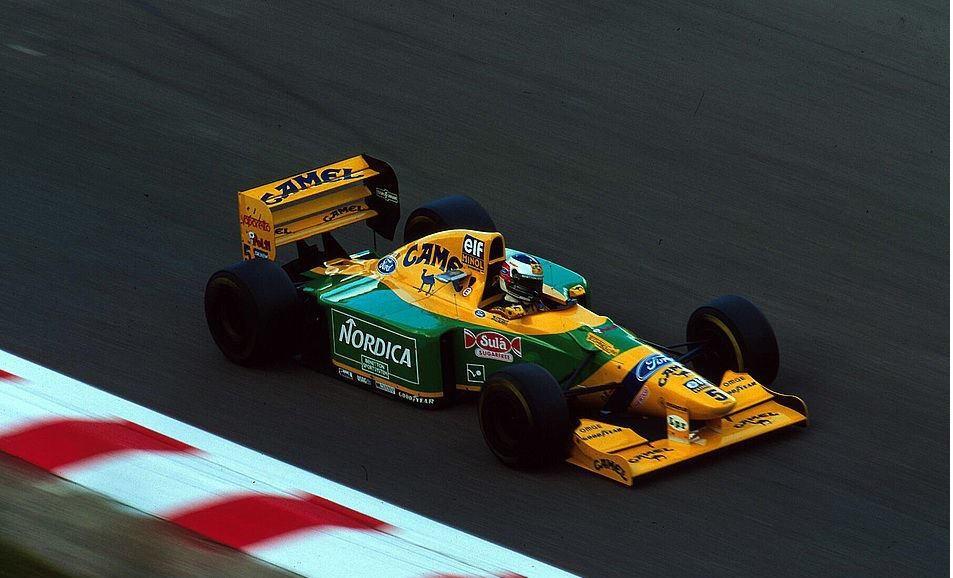
"What the fuck is that guy eating for breakfast?" Riccardo Patrese, after being beaten by more than a second by Michael Schumacher on the first lap of the weekend.
It's not bad to have a boss who gives you carte blanche.
«It was Luciano's rule: “the F1 manager is Flavio, talk to him. Stop".
Now it's the turn of Mick, Schumi's son, just 22 years old and he will debut with Haas.
«I think Mick is great but he will have to prove everything. His father was clearly a champion. In that 1991 we had to make him the seat and the pedal board for Monza and I sent him for the test in Pembrey, Wales, where there is this shit circuit often covered with freezing frost, like that day. In three laps he lowered the track record by one second. An engineer called me: “boss, you have found a formidable one”».
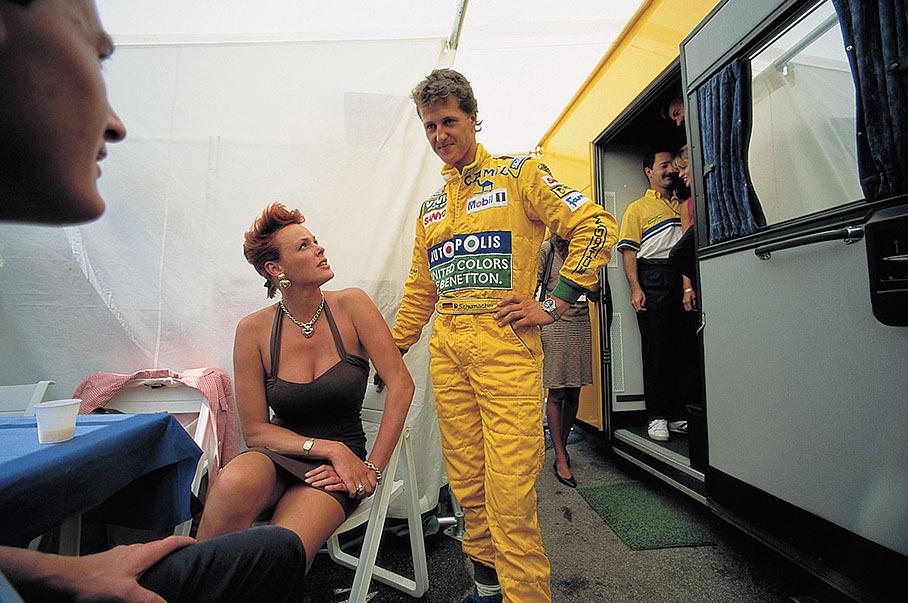
Michael Schumacher with Brigitte Nielsen. Photo by Rainer Schlegelmilch.
And you?
«I immediately phoned Benetton: “we have who will make us win the World Cup”. I was wrong: we won two of them».
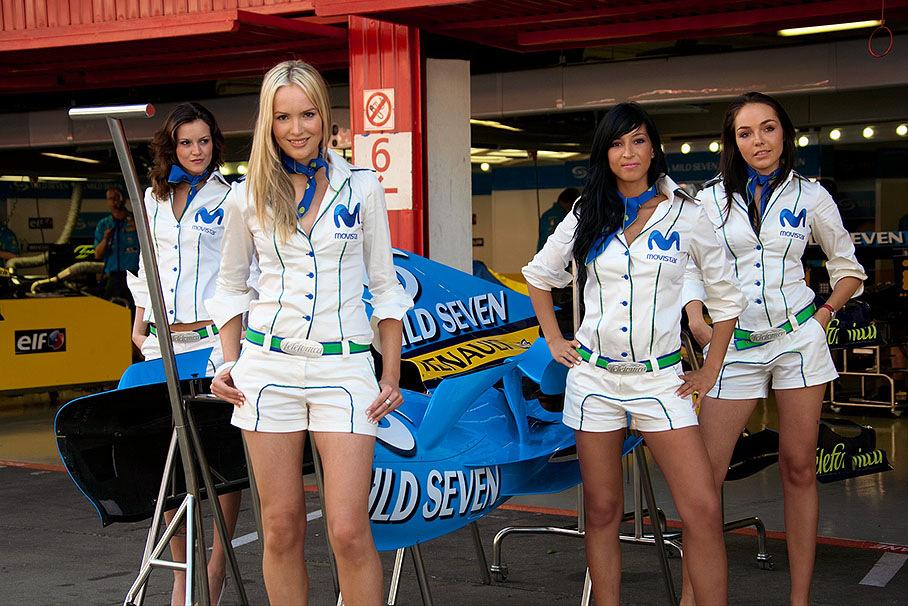
Spanish beauties in sponsor clothing - 2006, Barcelona, Spain. Photo by Rainer Schlegelmilch.
You had the same feeling with Alonso.
I made Nando debut with Minardi team and Giancarlo immediately came to me: “this guy will win the title”».
How do you recognize a phenomenon?
“Look what Hamilton does with that Mercedes and what Bottas does. There are: the drivers with the money, the good drivers, the very good drivers and a minimum percentage of phenomena and I have seen four of them, Senna, Prost, Schumacher and Alonso - and managed two.
You still manage one of them, Alonso. Can he win the title?
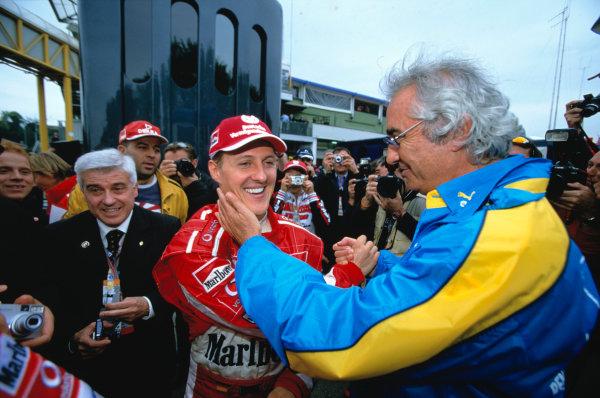
Flavio Briatore, Benetton and Michael Schumacher, Ferrari.
«With Alpine, formerly Renault, I don't believe yet, because you win the World Championship when you have a complete package of driver, strategy, car. We, at Benetton, did not have the best car but everything always worked. And then there was Schumi".
Barcelona GP, 29 May 1994. Schumacher's miracle, in a Benetton, with the gearbox stuck in fifth gear!
"I'm still trying to figure out how Michael finished second just 24 seconds behind Hill, in the 1994 Spanish GP. There were about 40 laps to go and the gearbox was completely gone. He drove in 5th gear for the rest of the race: tackling the slow corners in 5th gear and not turning off the car was practically impossible. He finished second! We were convinced he would have to retire but, instead, ... the last part of the race was one of the most incredible things in the career of the German. Doing laps as quick as the ones of those who chased was crazy! Michael always wanted an analogue revolution counter in the cockpit, not just the digital one, at the time, to understand exactly the engine RPM with which he entered each turn. Many told us that our car was trick. I’ll tell you what the trick was: his name was Michael Schumacher. His was not just talent. It was something more. He was a unique thing with the car. I had the impression that he knew it better than some mechanics. I’ve never seen anything like it again." Wiliam Toet
Willem Toet is an Australian F1 aerodynamicist. After 1994, he joined the Scuderia Ferrari team as head of the aerodynamics department.
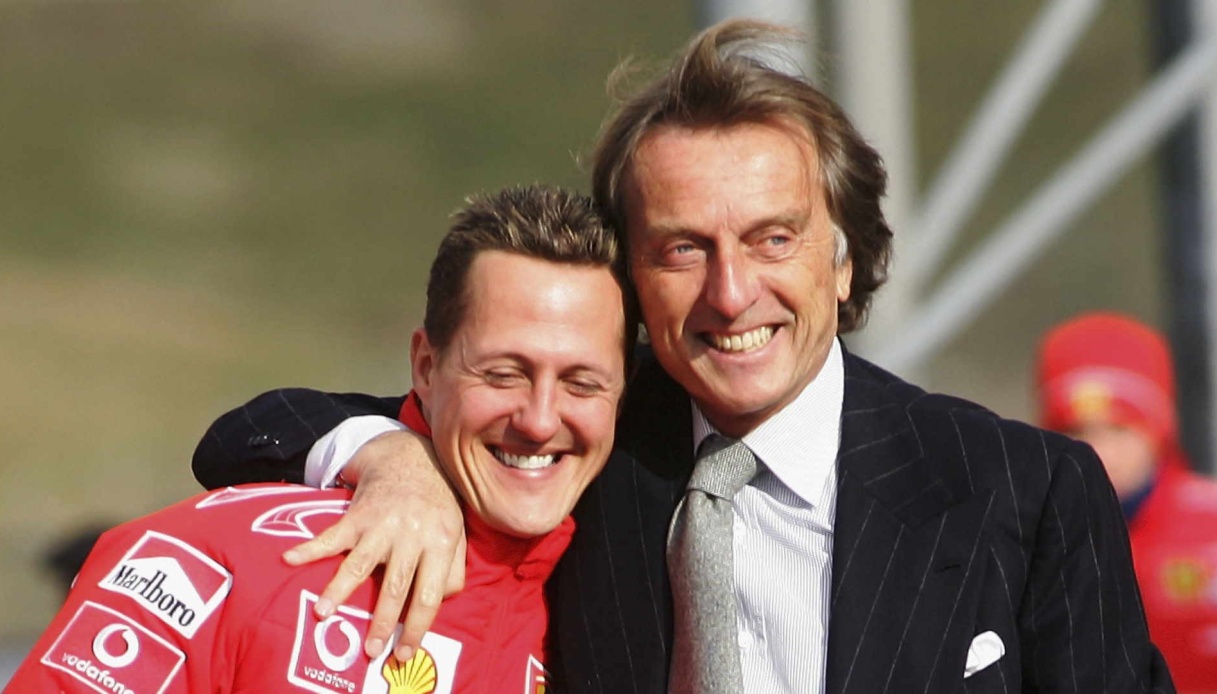
Michael Schumacher with Luca Cordero di Montezemolo.
"How did I hire Schumacher? Following the lesson of Enzo Ferrari who never exposed himself personally, I asked Niki Lauda to go and talk to Willy Weber, Schumi's manager. He made the first contacts and then passed the paperwork on to Todt. And finally Michael came to me. That German boy didn't have one hundred percent the Ferrari myth. But he had understood its importance when the year before he was leading the German GP, he broke the engine and Berger won in the Red. He confessed to me that he was very impressed: 'I'm a German, on my home circuit I stop due to a breakdown and I see all of Hockenheim full of Ferrari flags praising an Austrian...'" Luca Cordero di Montezemolo
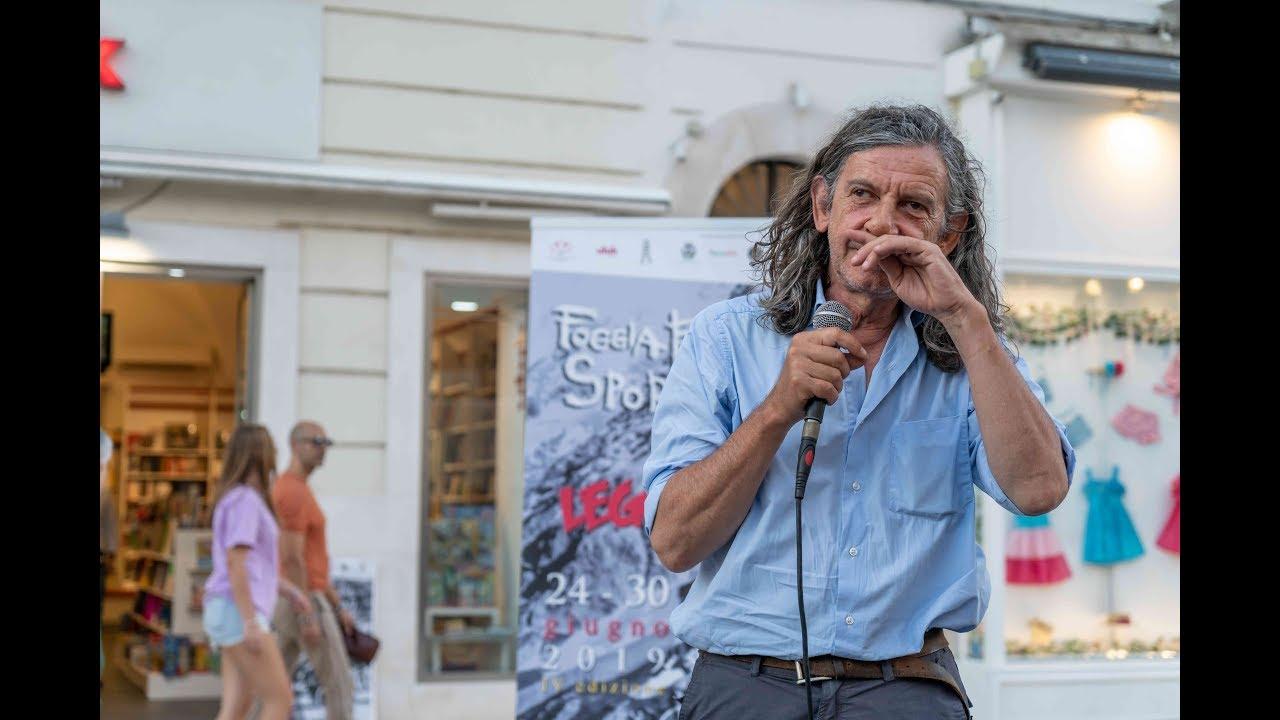
Giorgio Terruzzi.
Giorgio Terruzzi. “Senna was born in Brazil to a wealthy family but he enjoyed it very little, only in recent years. Senna was a rich man with feelings of guilt, Schumacher was a poor man. I understood a lot of things about Schumacher when I saw where he was born, in a shit place, where he had only a dad's small go kart track in front of him and that go kart there was his flying carpet, the only instrument with which to fly away, leave, do. Senna and Schumacher are two different people: Senna is all stomach and heart, Schumacher more ratio, more head, more will, more work, more rigidity. However, I'll tell you two things about Schumacher: one day they took him to see a clothing company in Germany called Hugo Boss that makes clothes, they showed him the company and then they said: ‘this is our show room, if you want to take something for yourself, take it’. And he took 7 identical jackets, it is atavistic hunger. 7 identical jackets it’s one that does not take prisoners. I once told him: ‘but when you play football with your little son, do you win 40 to zero?’ And he replies: ‘sure’”.
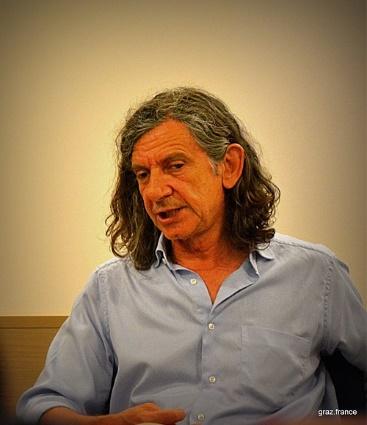
“But when we worked, I didn't like Schumacher. I always worked with a colleague of mine, always for years, a dear friend who was called Pepi Cereda and we had to share the work. He was a Schumacher fan and then I said to him: ‘you do Schumacher, you make the interviews, I do the others, who cares’. This friend of mine, my colleague Pepi Cereda, had had an inoperable tumor and died in three months. The GP after the Brazilian one, when Pepi was hospitalized for the first time, I brought another person with me who made the interview with Schumacher. Schumacher asks somebody to call me and tells me: ‘why is this person here?’ ‘Because Pepi is not well’, I did not yet know the severity of Pepi's disease. Then, the race after, I took him aside and said: ‘look, you won't see Pepi again, he will never come again’. And he said to me: ‘give me his phone number’. Well, this colleague of mine died in three months, he called him I believe every second evening for three months, at his house talking every night. So, one like this is there as a person, you understand if he is pretending. One who does such a thing with appointments behind the Ferrari truck every GP to know, one who does such a thing is there. But I've never seen a tough bastard like Schumacher in my life. That is, if you talk to those at Ferrari who worked with him, he was someone you were telling: listen, we have to do 100 laps to see how this stuff is going, he did 100 laps with a gap between the slowest and the fastest lap of two and a half tenths. That is, you won't beat someone like this anymore”.
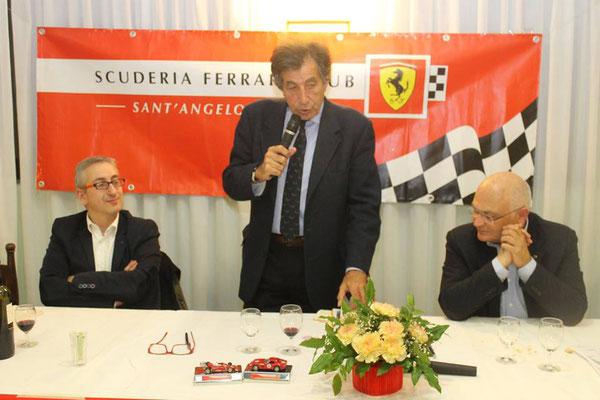
Pino Allievi and SFC San Angelo Lodigiano.
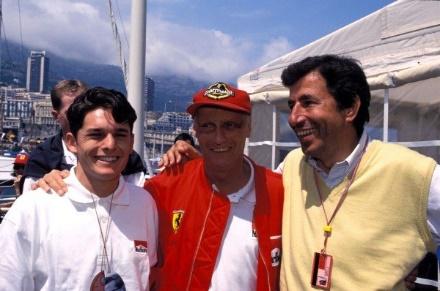
Giancarlo Fisichella, Niki Lauda and Pino Allievi at Monte Carlo in 1995. Photo by Ercole Colombo.
“Schumacher didn't make Grands Prix, he did a lot of qualifying laps”. Pino Allievi
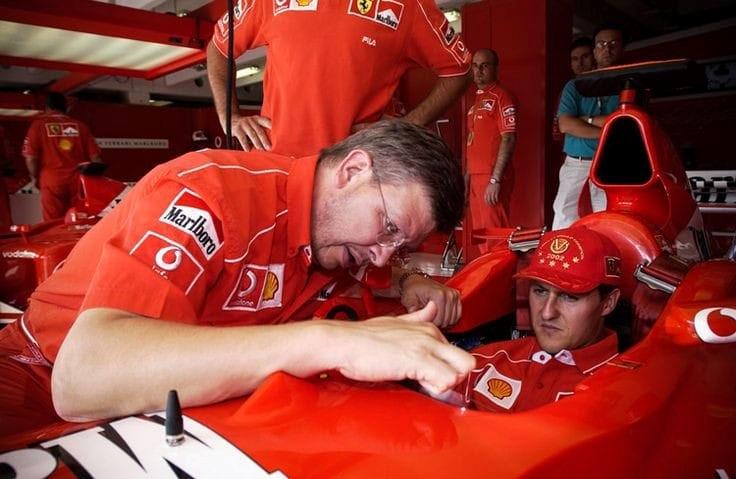
"He was the last person to leave the paddock on the Saturday night before the race. He sat with me and the engineers for hours on dates and numbers. He would be fascinated to analyse all this with the engineers. He would be great in this new era." Ross Brawn
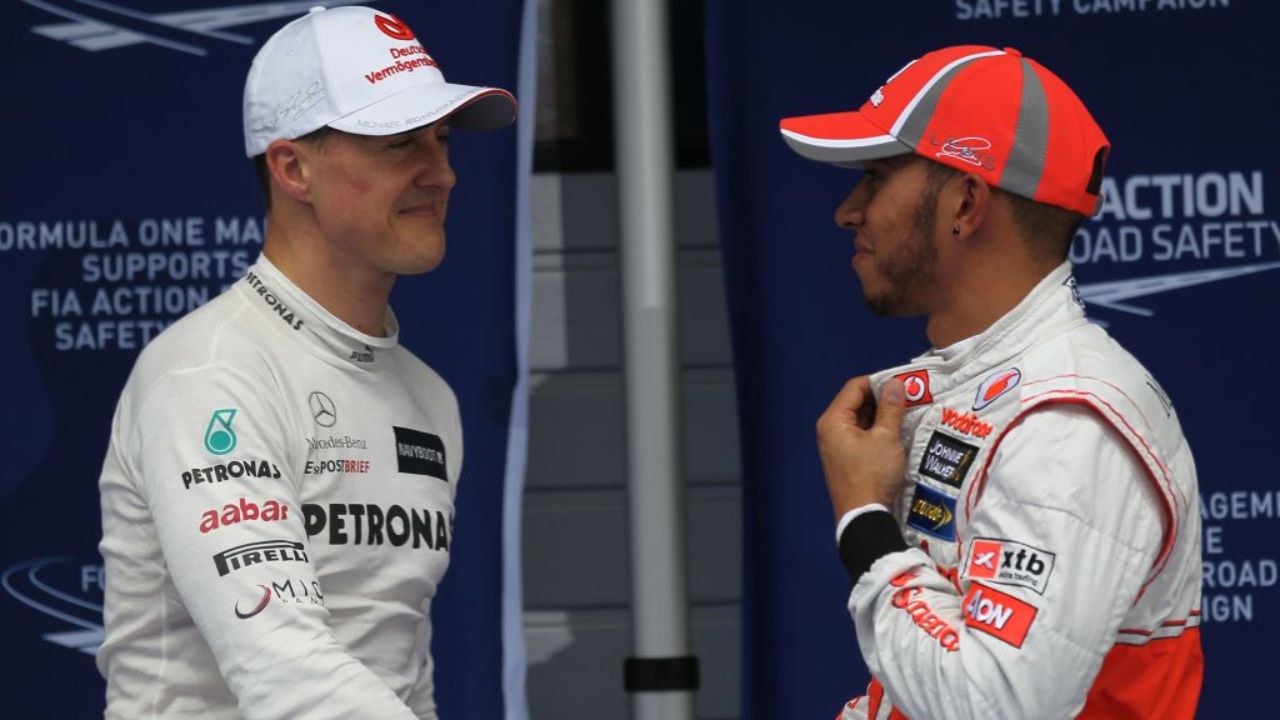
Michael Schumacher and Lewis Hamilton.
“No one will ever be greater than Schumi. Even if the statistics see Lewis in the lead. But Michael shaped a generation like no other, he's iconic. You can't compare generations. Lewis is the best of his time." Toto Wolff
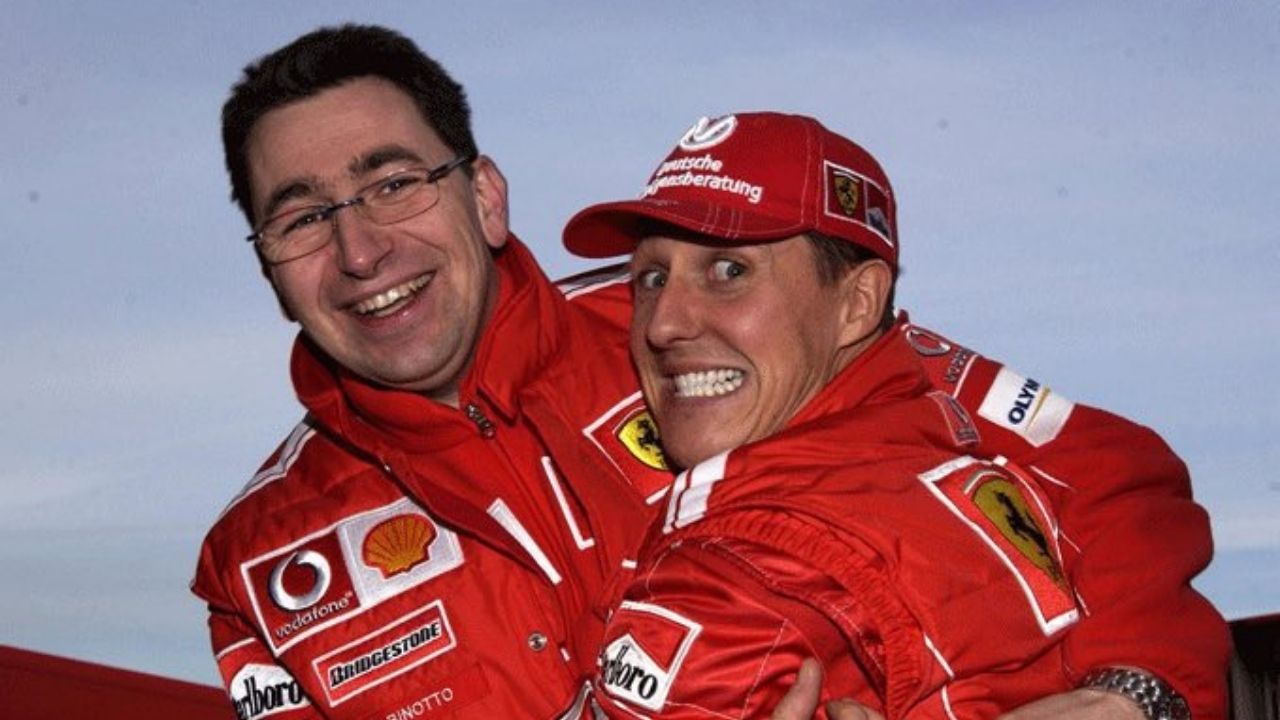
Michael Schumacher with Mattia Binotto.
“I remember that, when Michael Schumacher arrived at Ferrari, in the tests we usually did the setup lap at nine and then discussed the day's programme. But by eight o'clock Michael was ready to hit the track: from his arrival we understood that we had to meet at that time to establish the work plan. Normally in the last hour of testing we drove with less fuel so that the newspapers said we were faster than the others. But Michael didn't understand this and asked us why we did it. He wanted 50 kilos in the car all day. It was a big change for us, he wanted us to learn something…” Mattia Binotto
"I especially remember Michael's victory at Monza in 2003, when I was his engine engineer. He started on pole, stayed in front of Montoya for the whole race and got the better of it in a tenth of a second confrontation every lap. He came from two difficult races, the championship was in the balance and that triumph gave us the impetus towards the world title. I was so euphoric that on the way home, near Parma, I got a fine for speeding with driving license withdrawal." Mattia Binotto
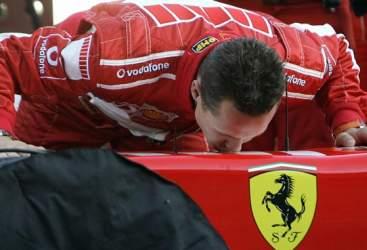
Schumacher and his red car; how much joy, how many victories! He was our pride. We all miss you so much champion. Come back soon, we are waiting for you.
Videos



Comments
Authorize to comment